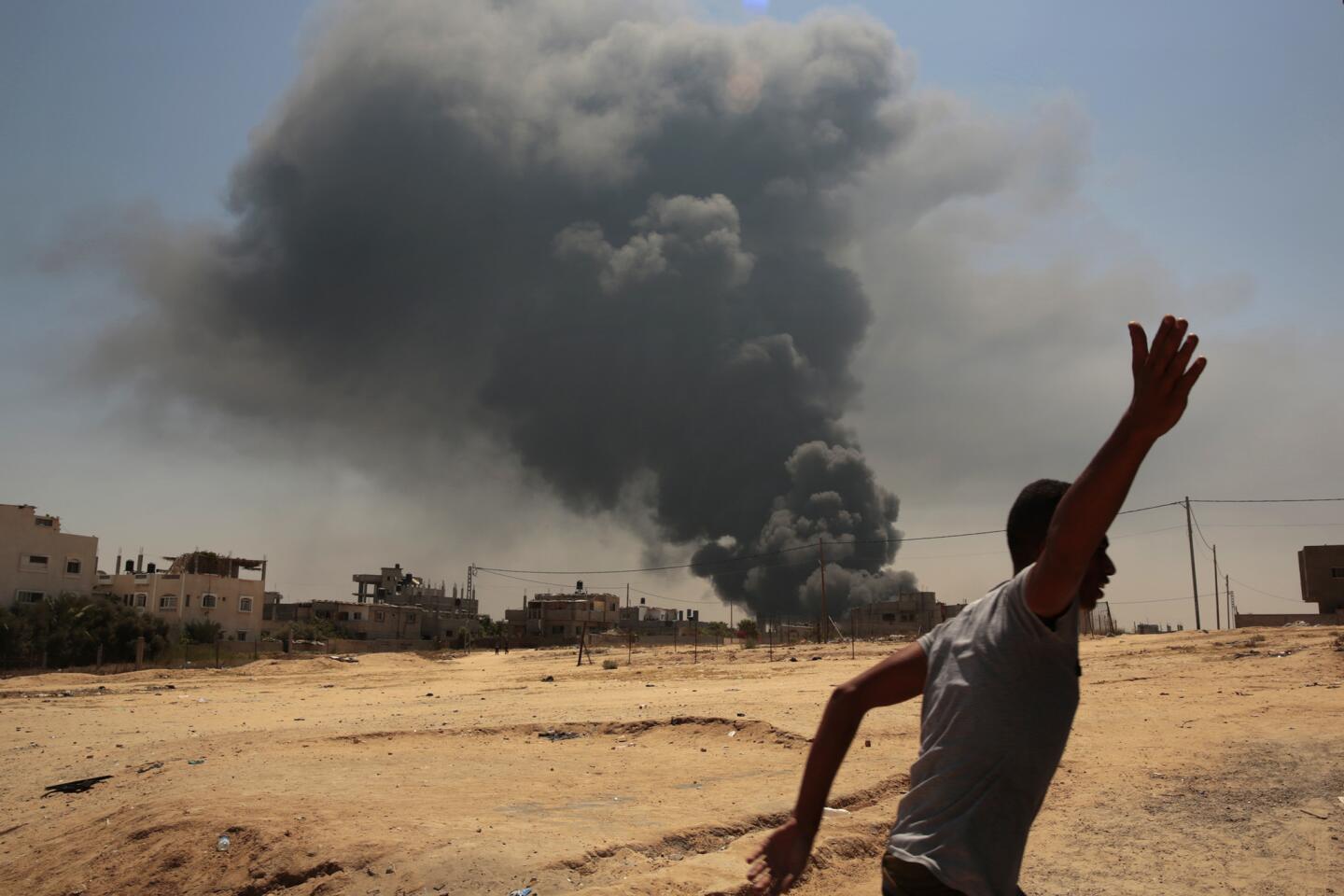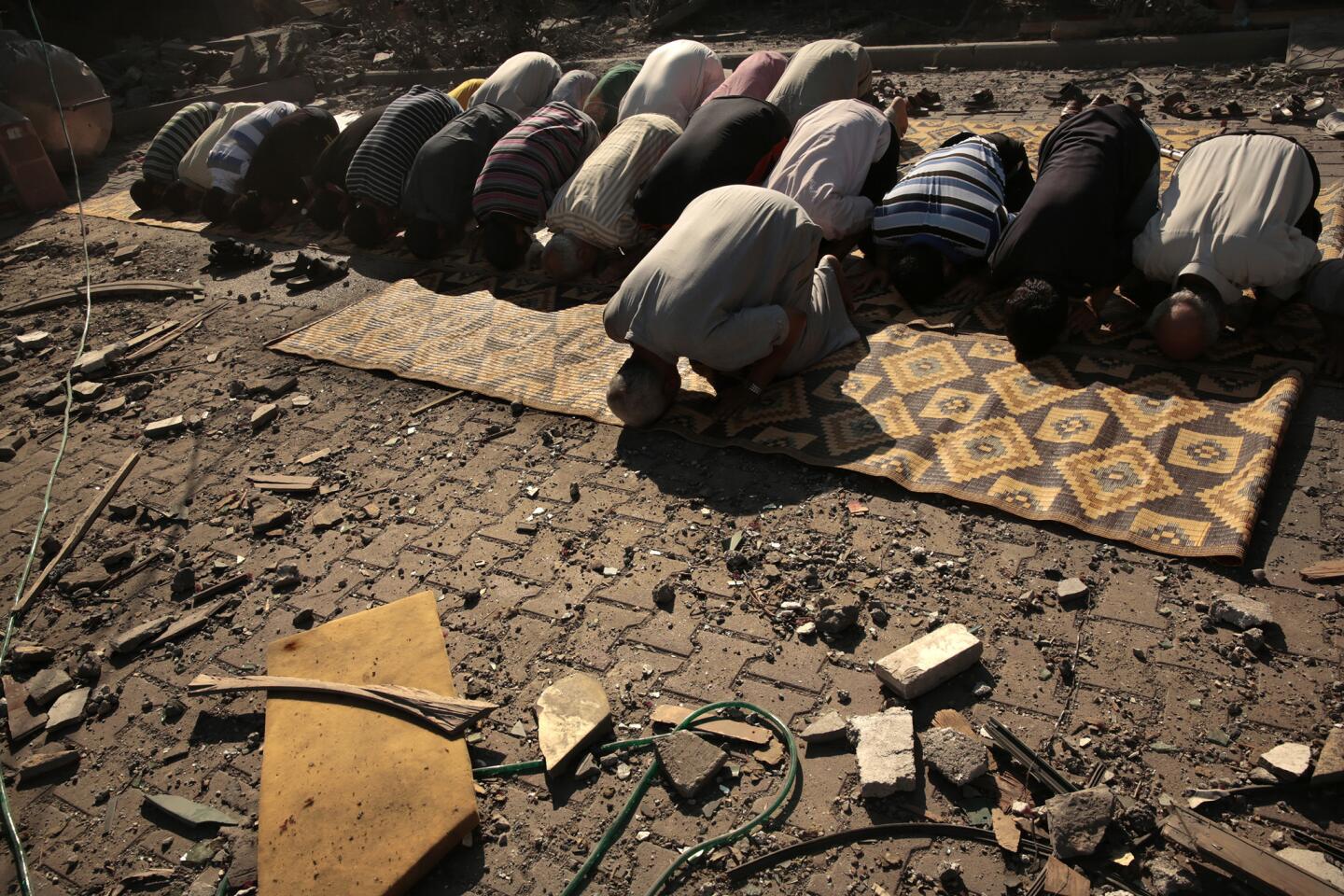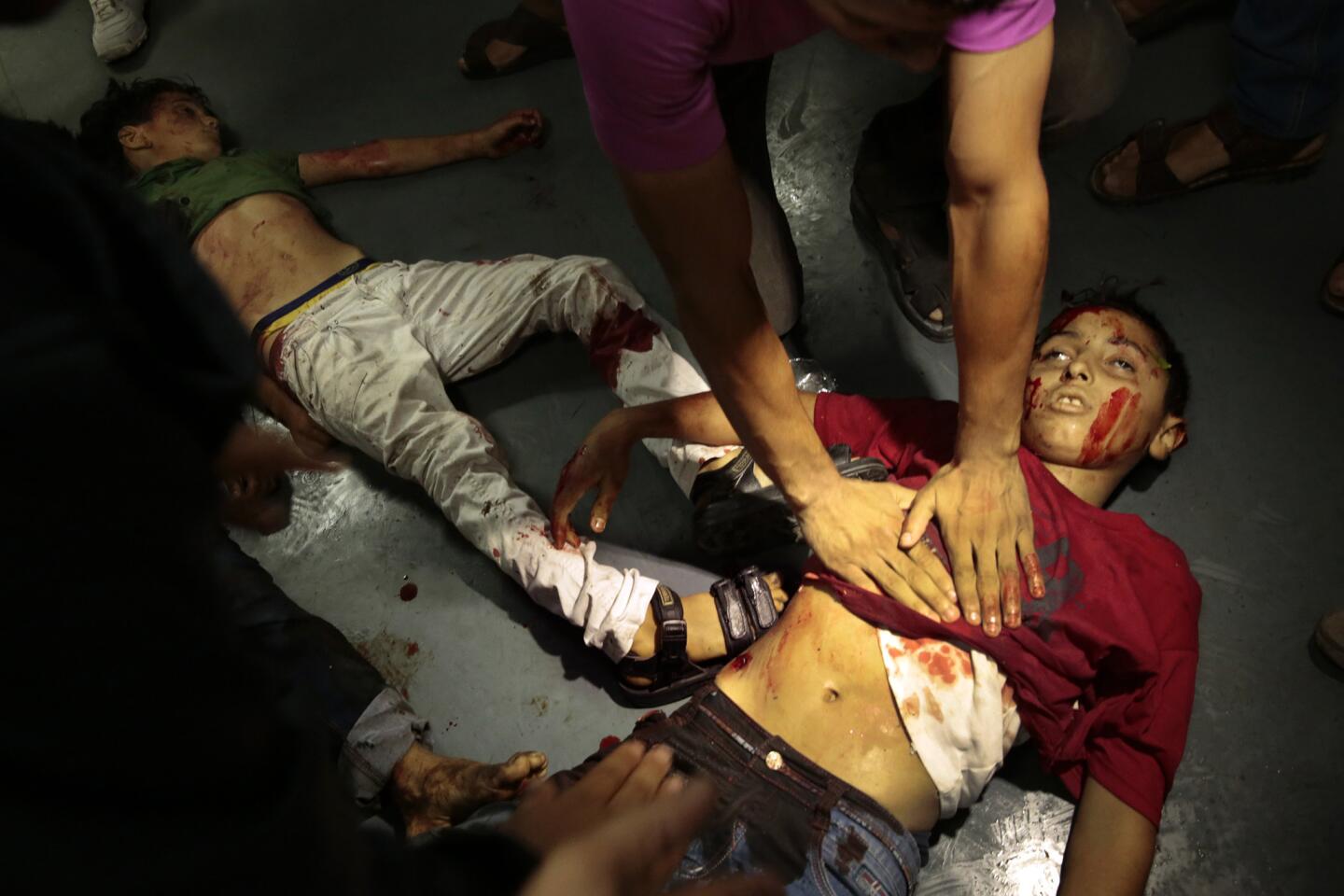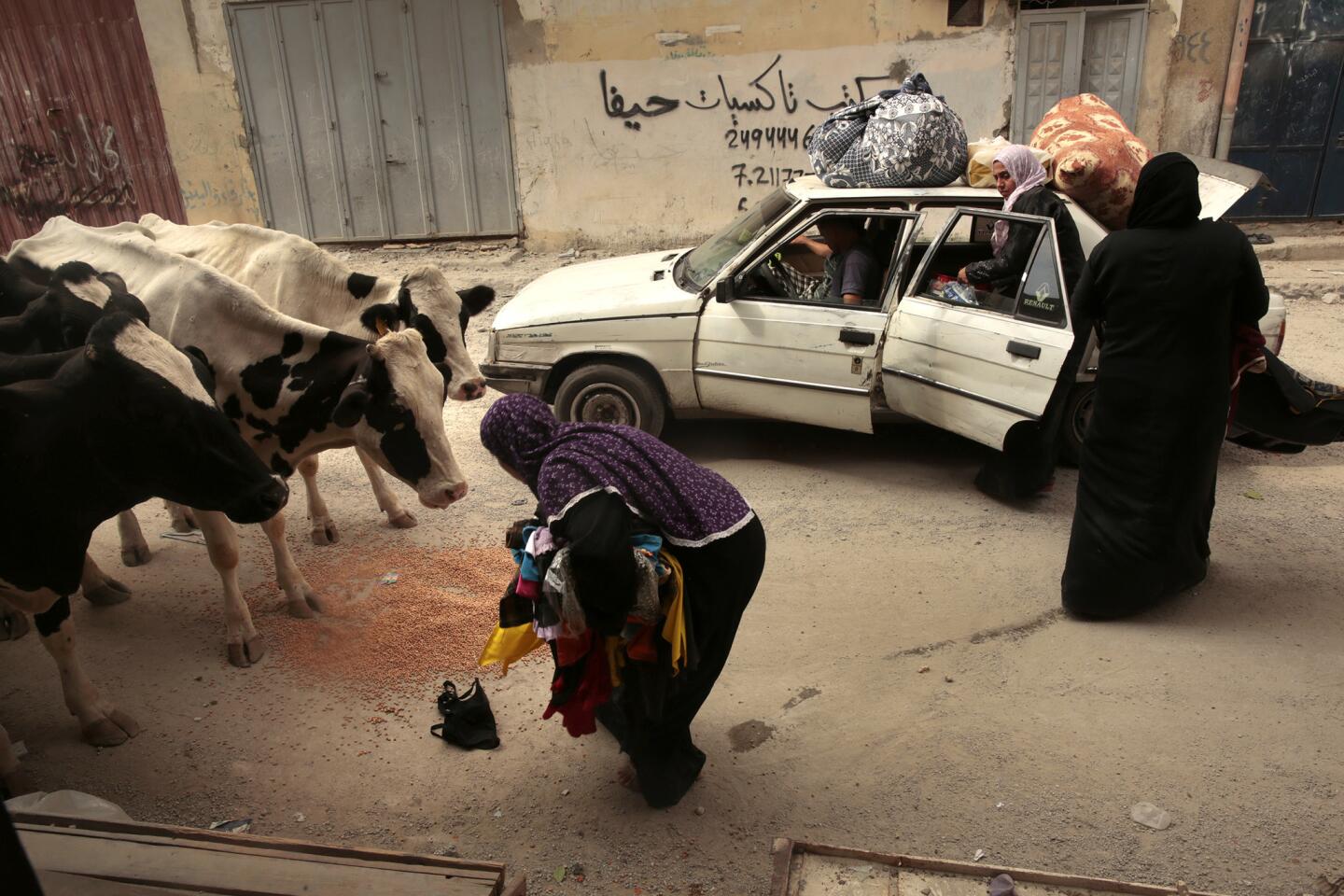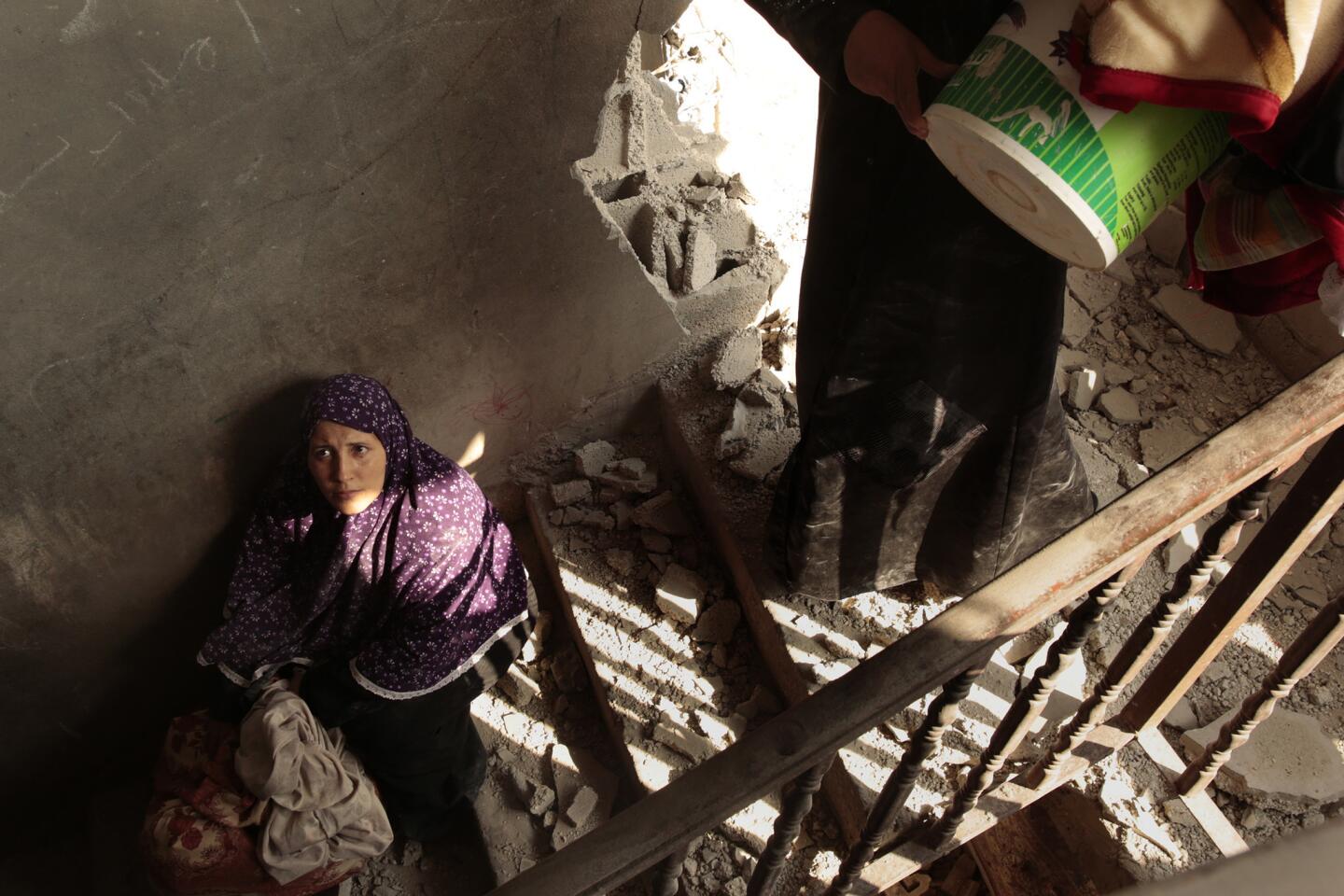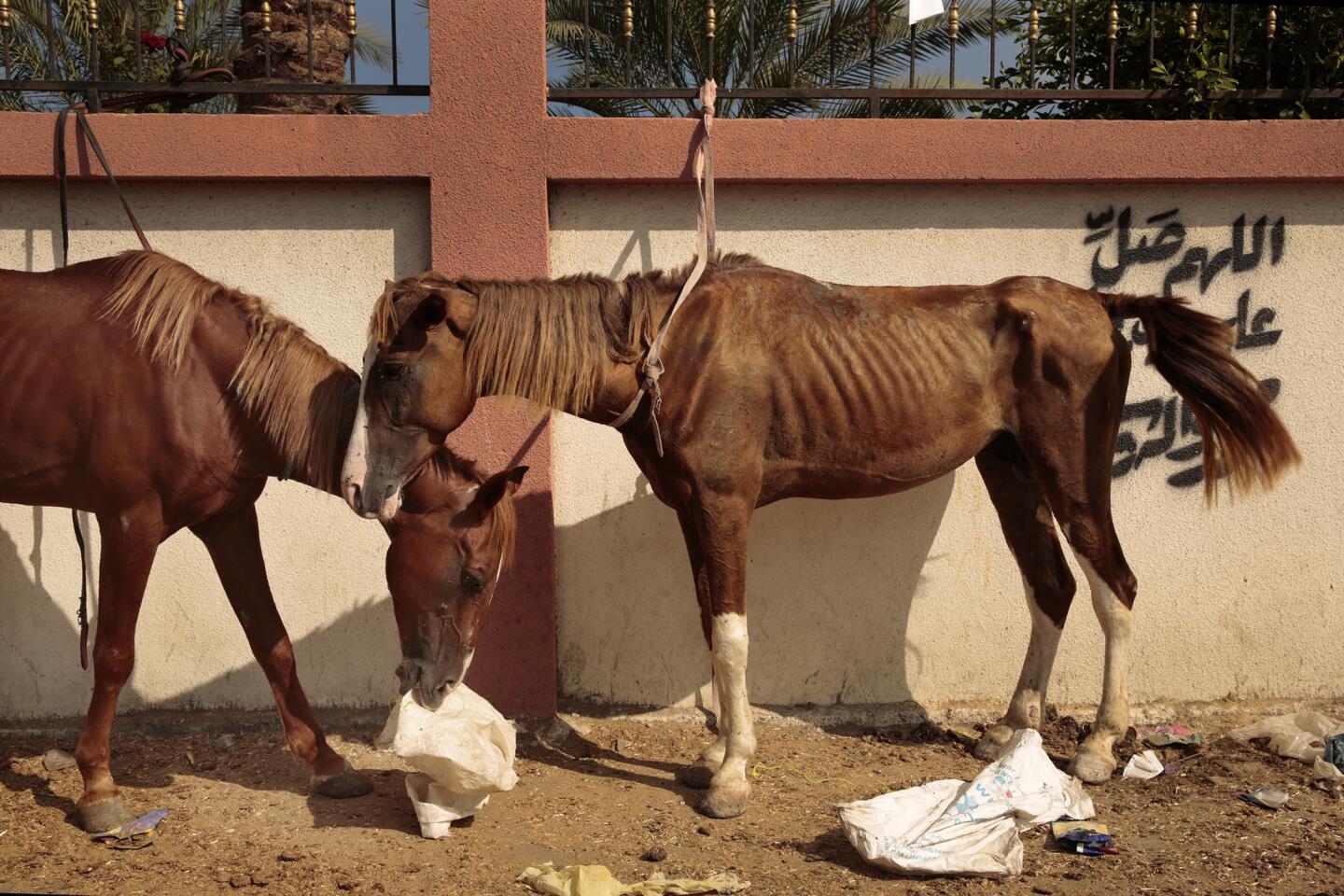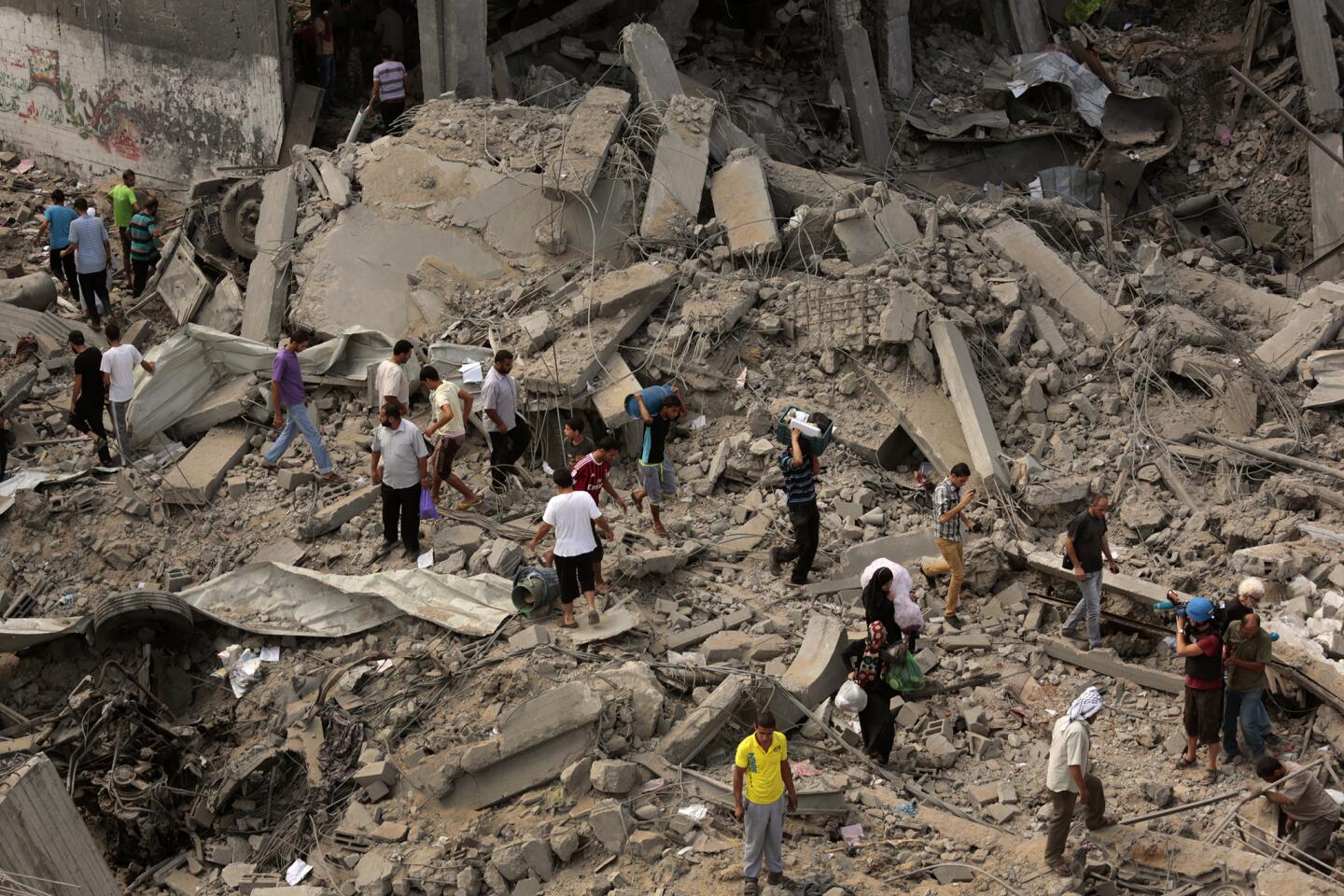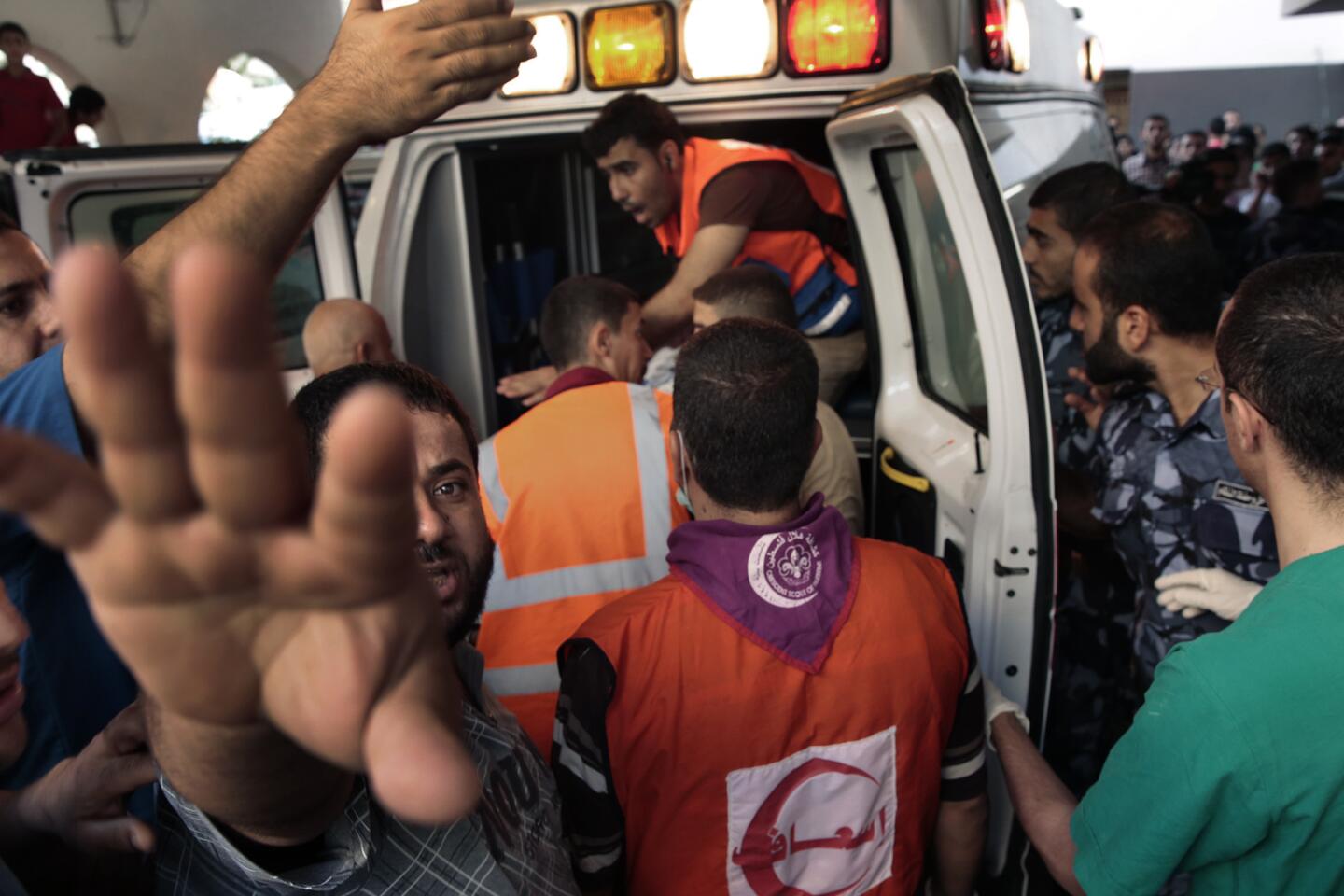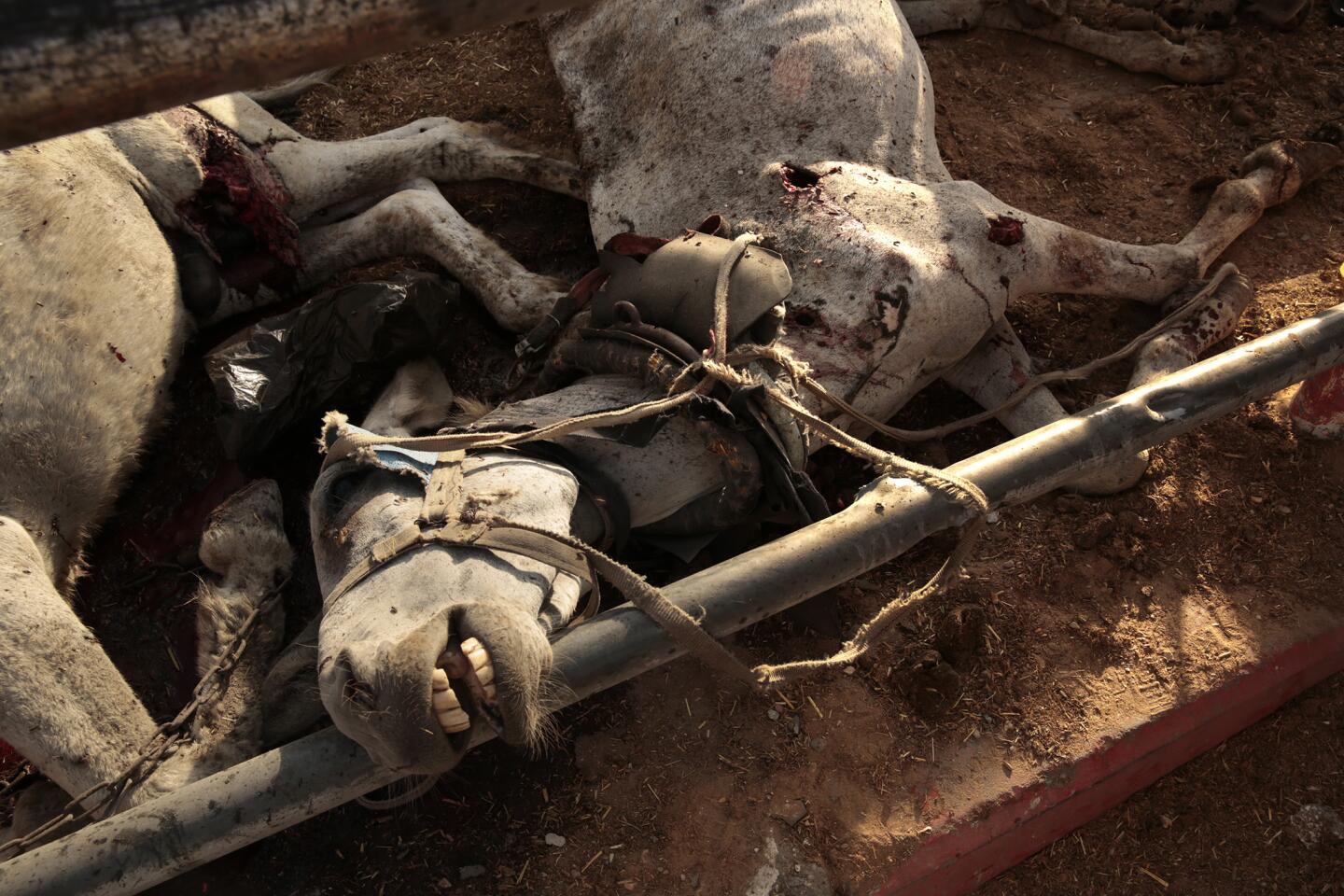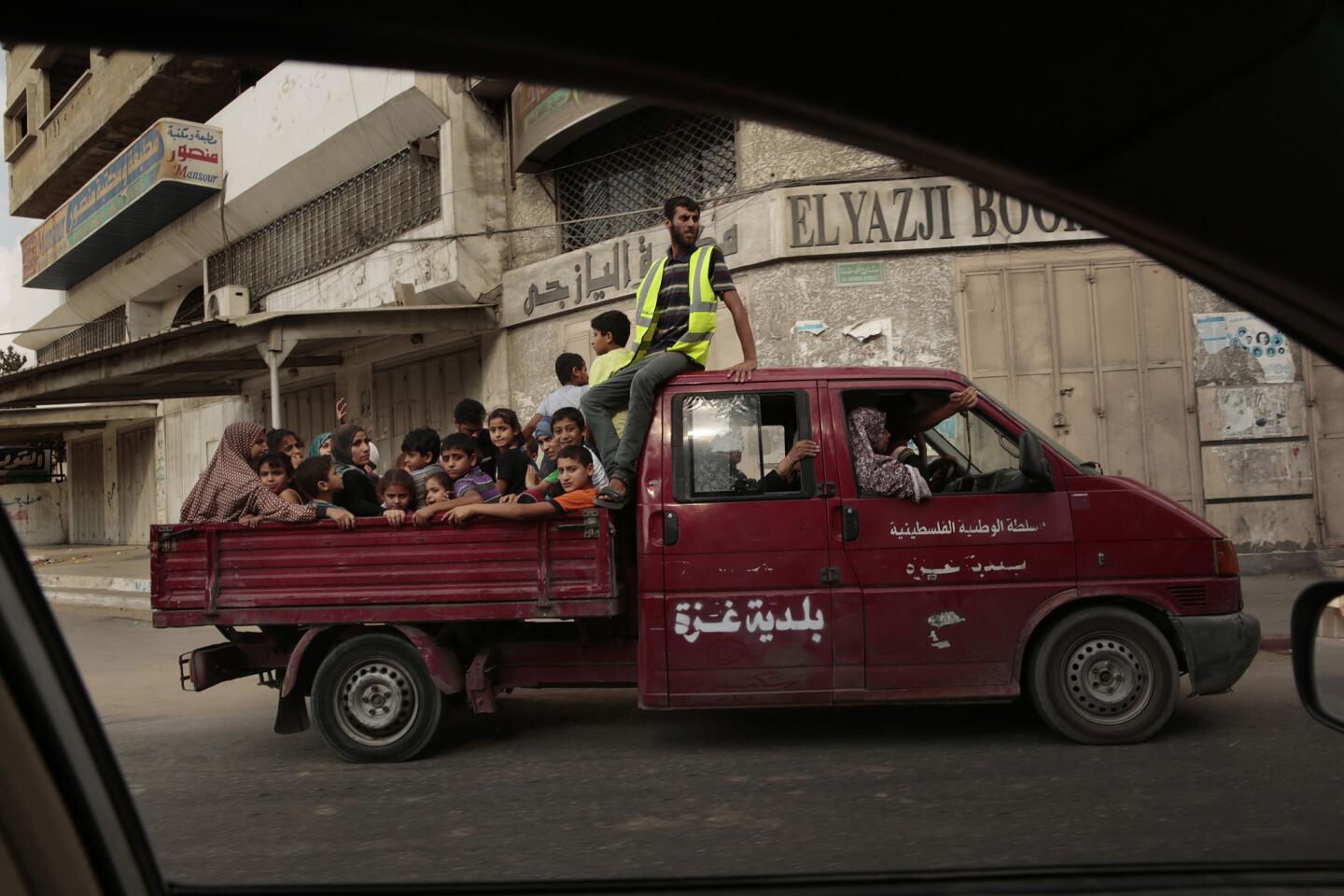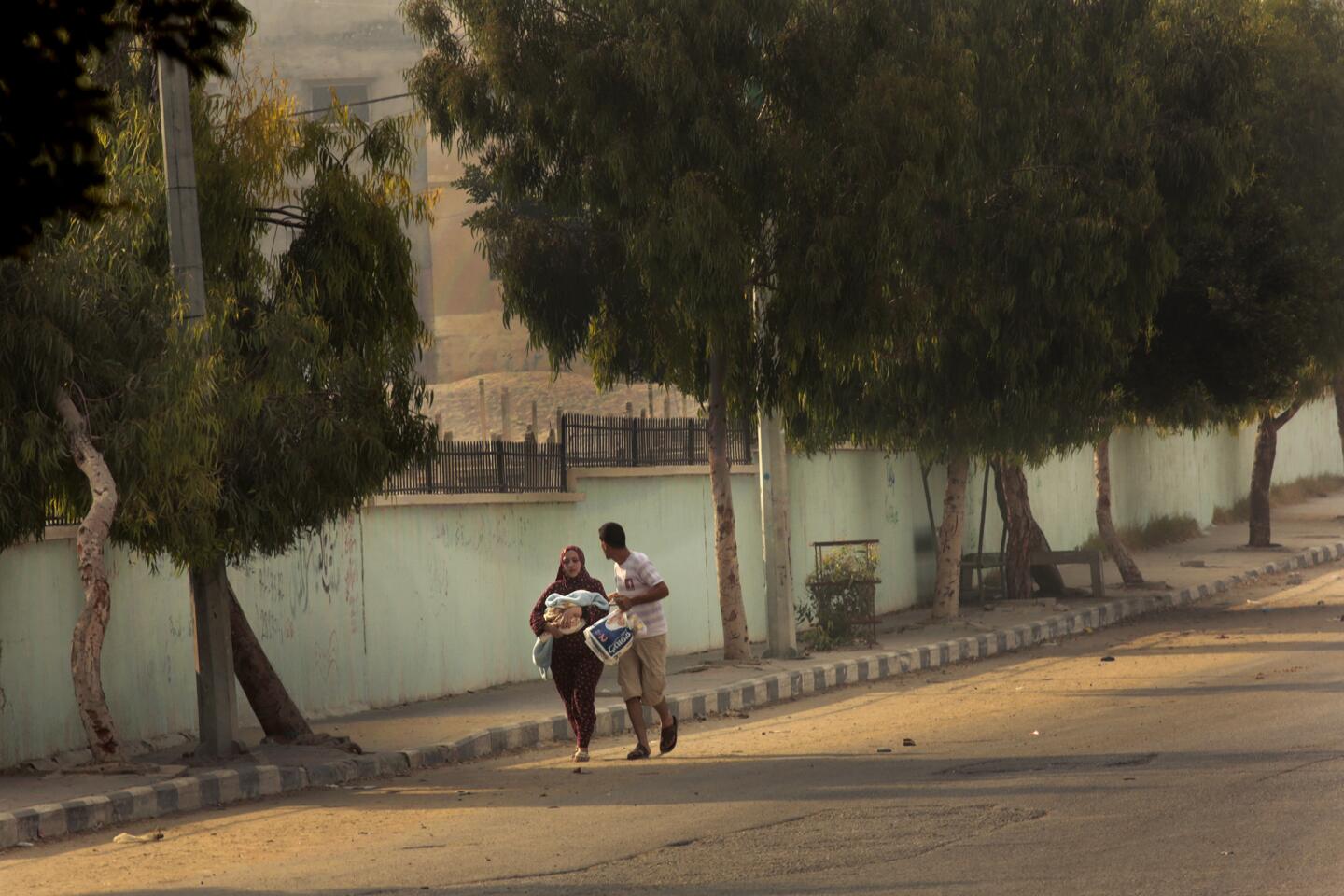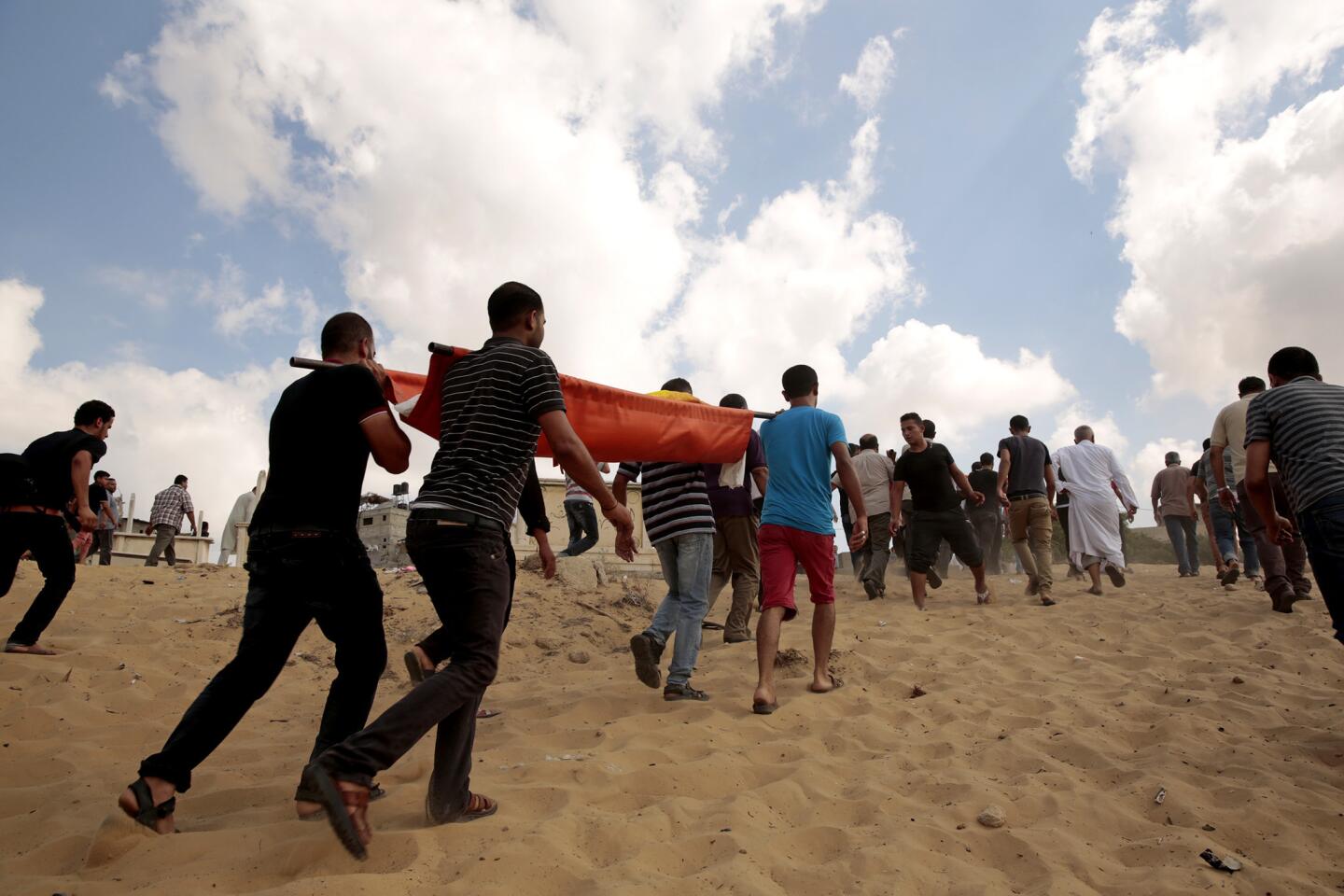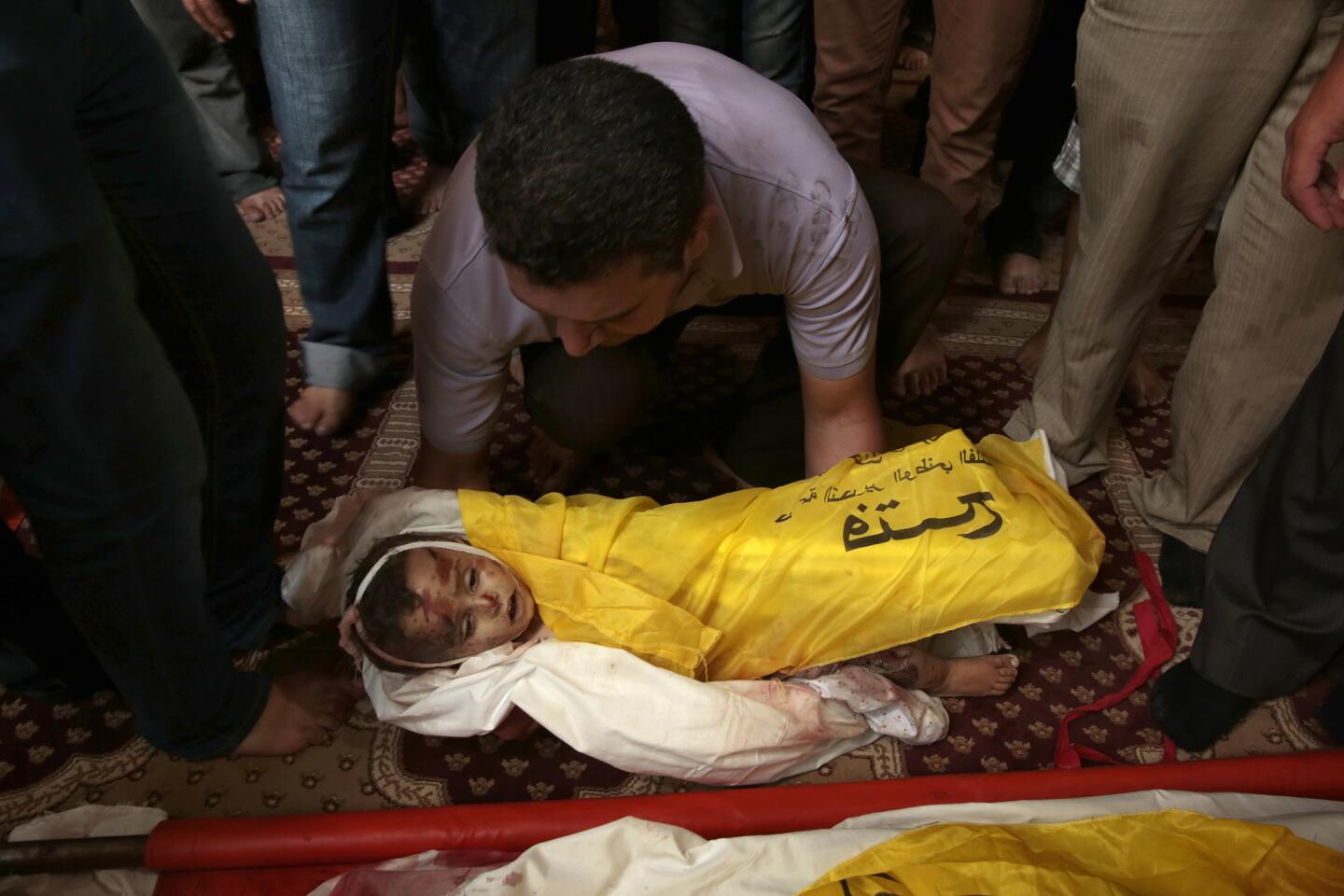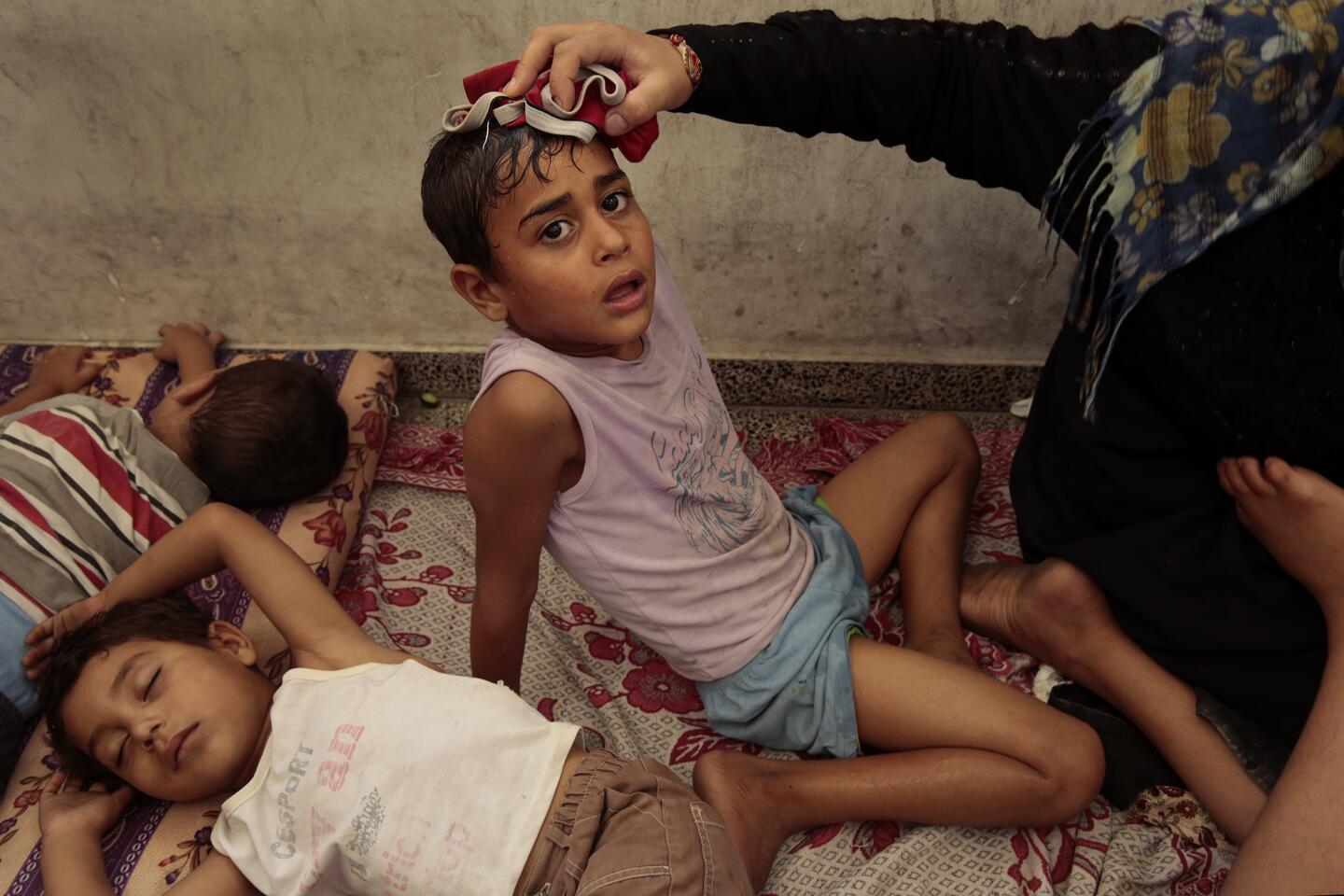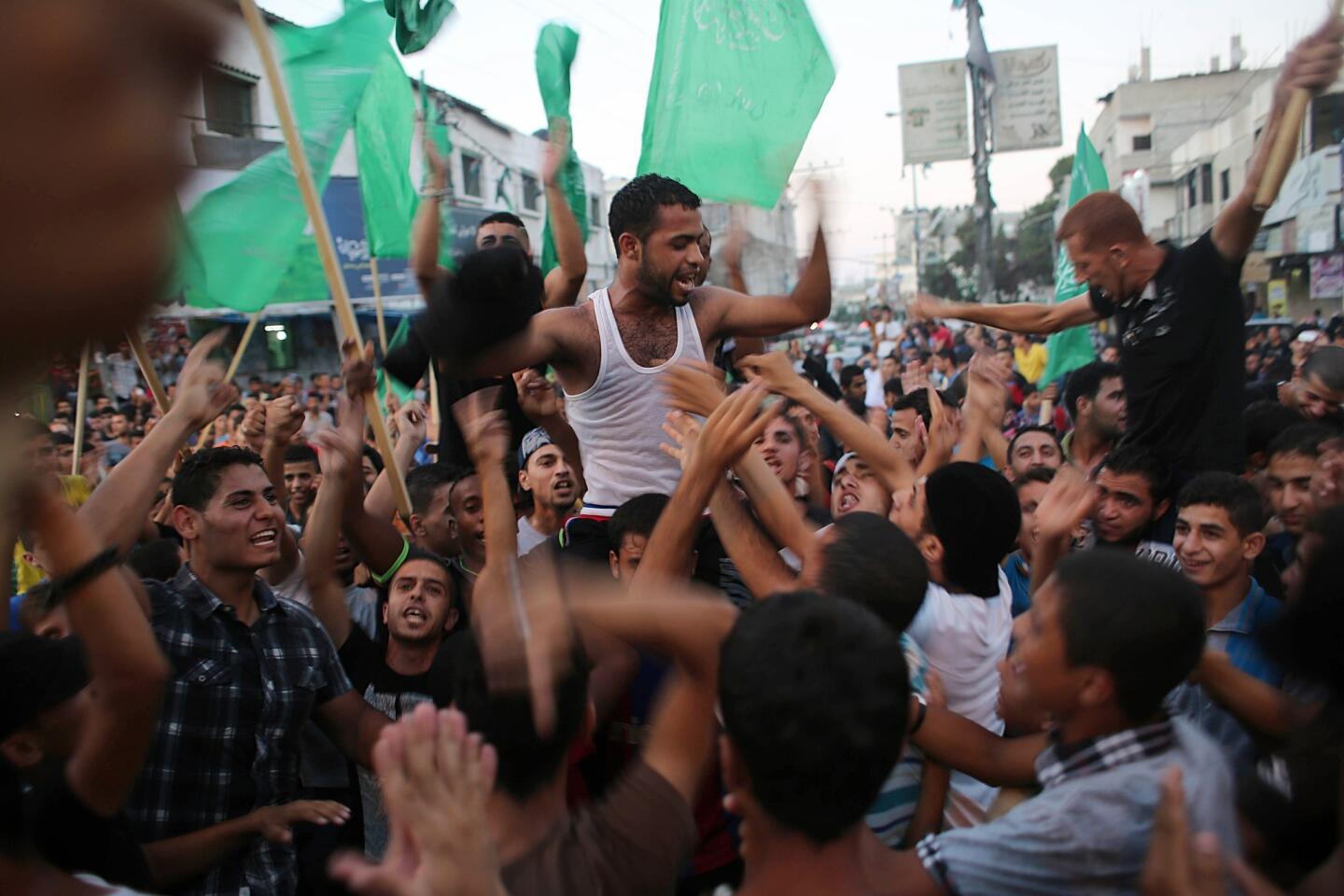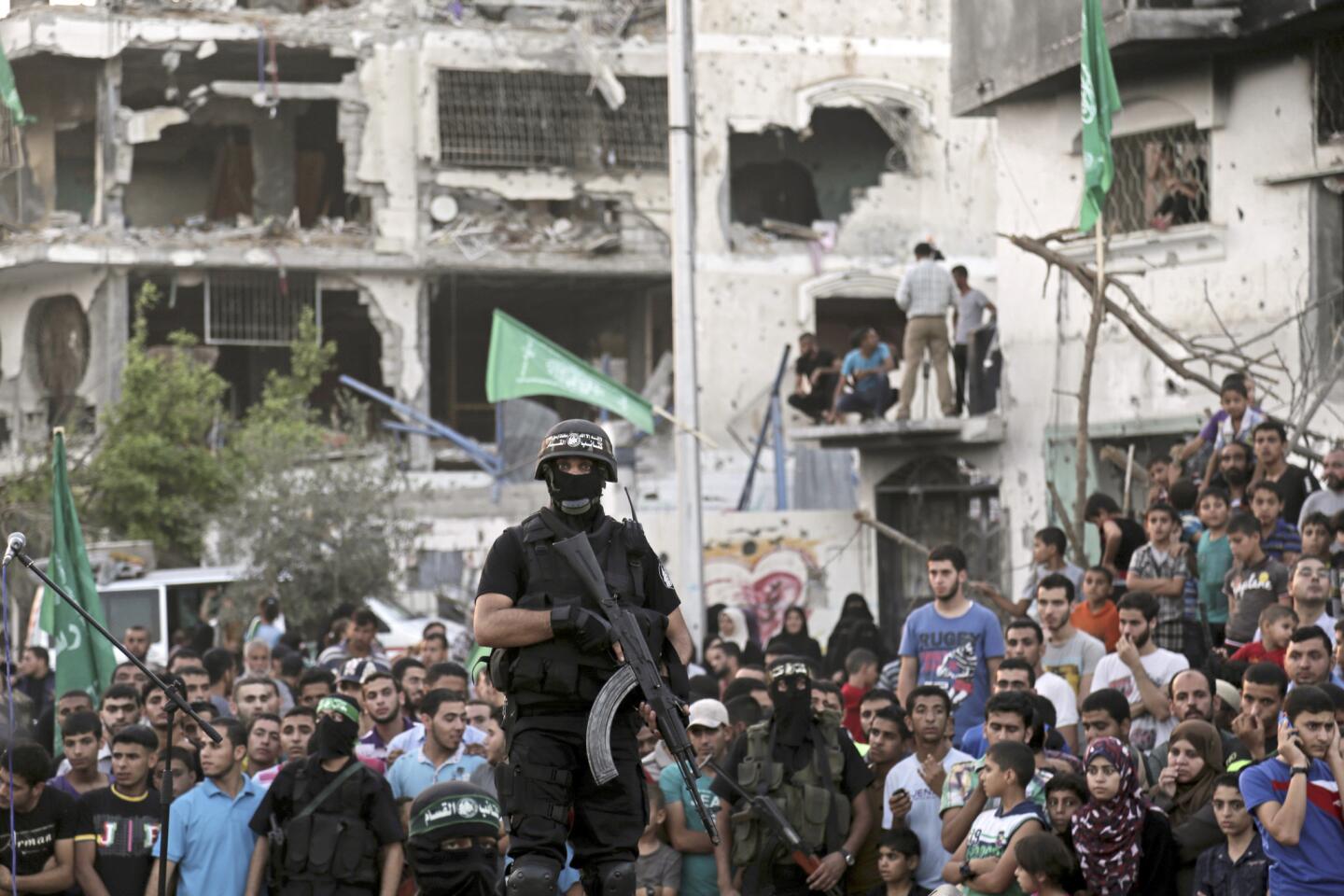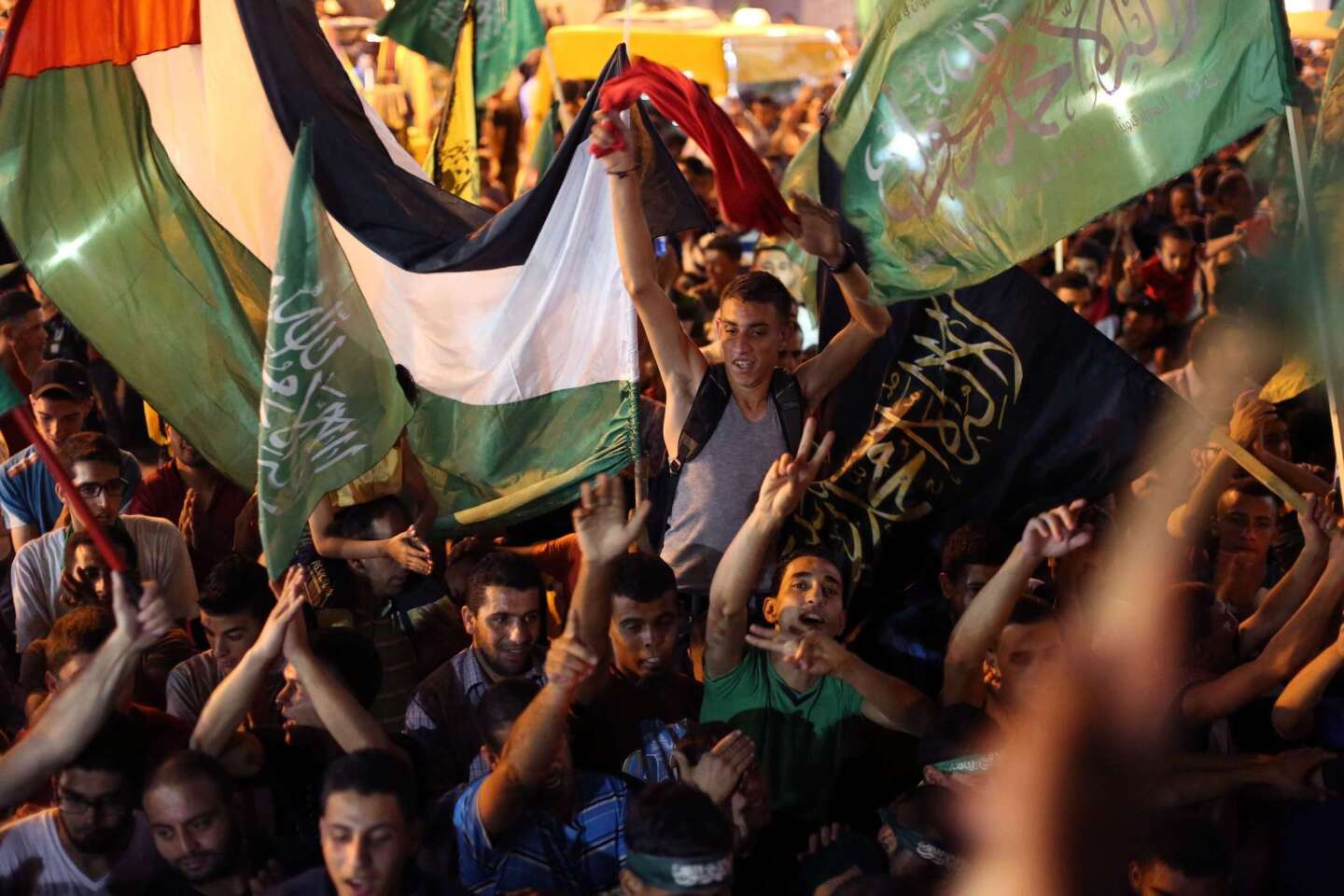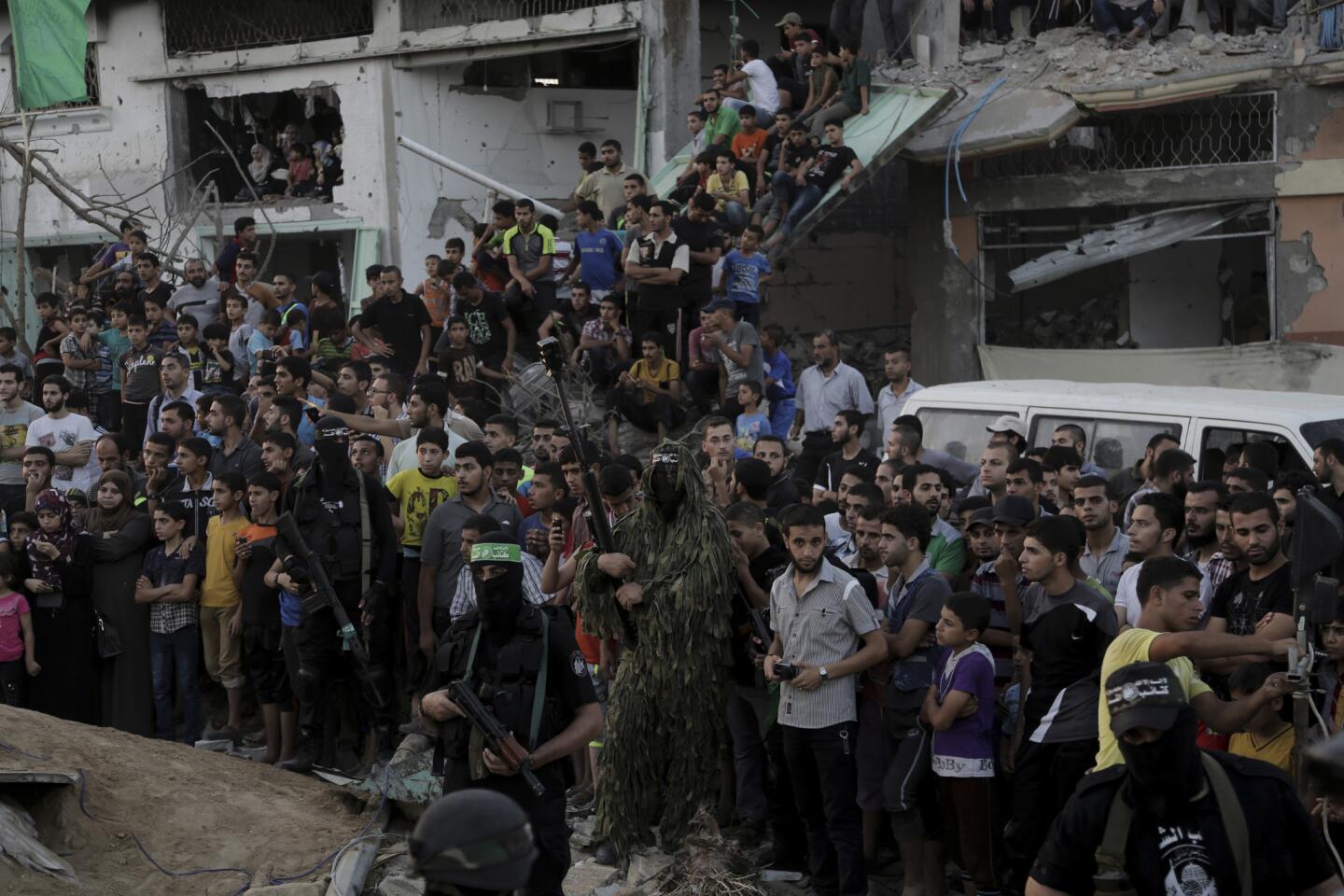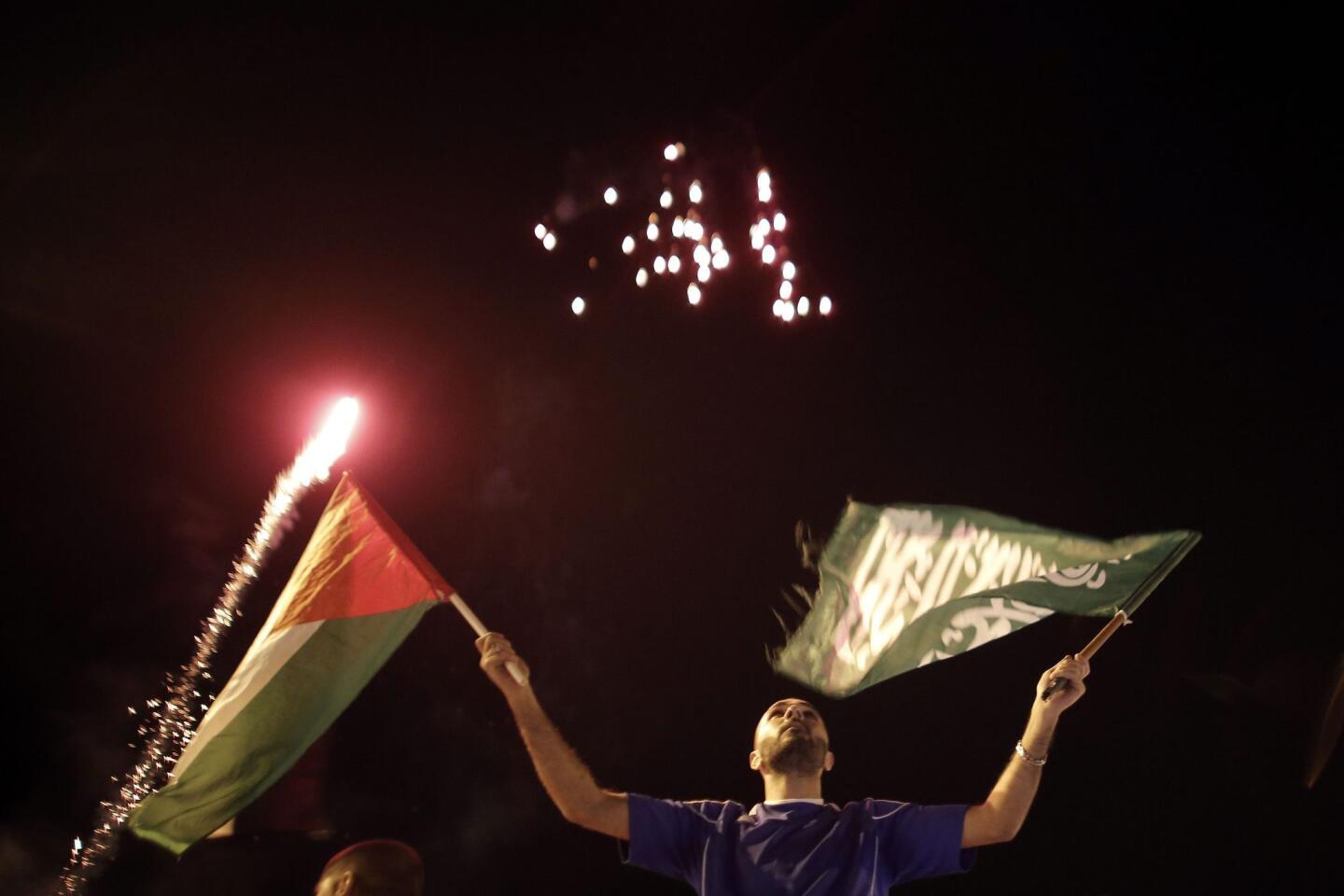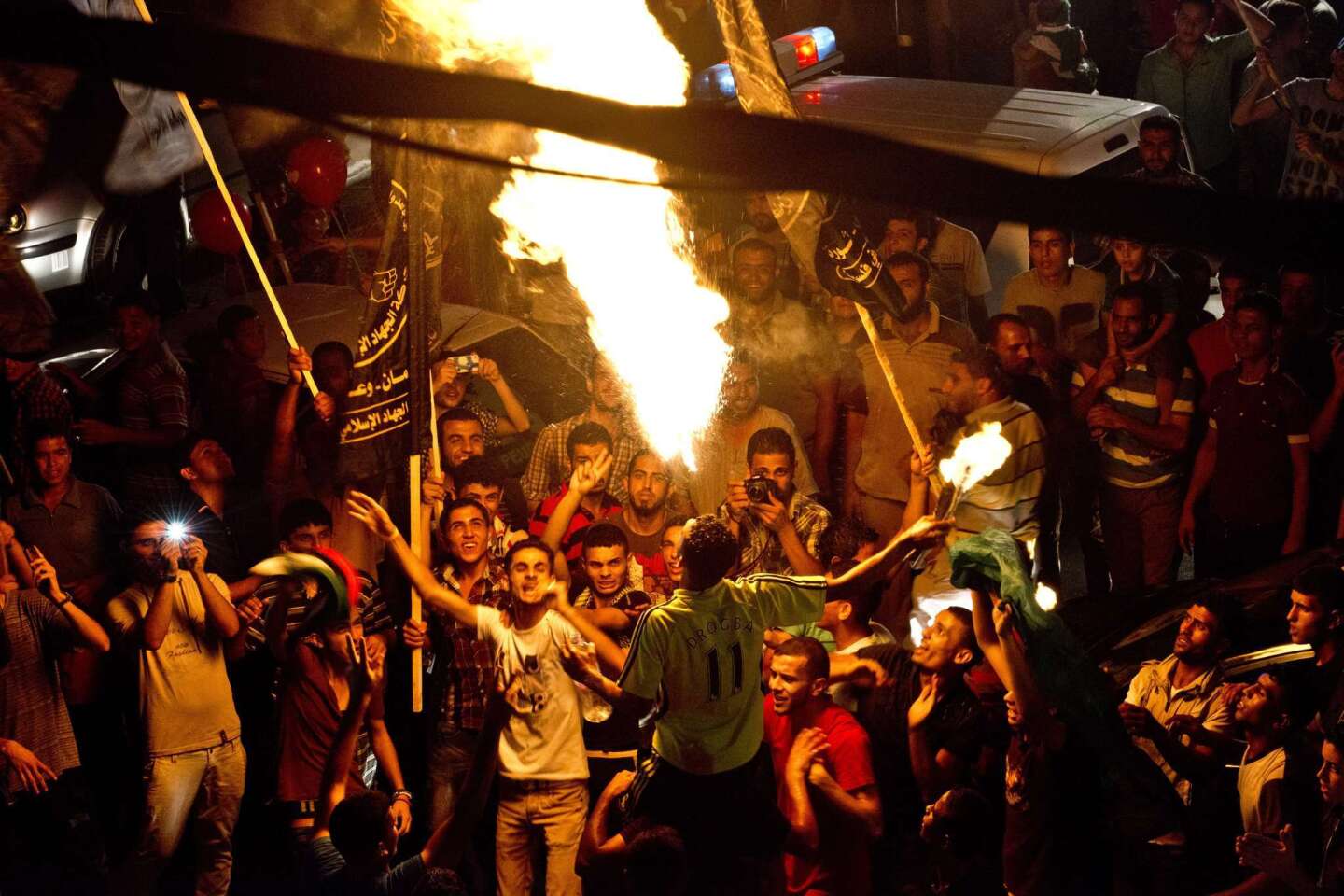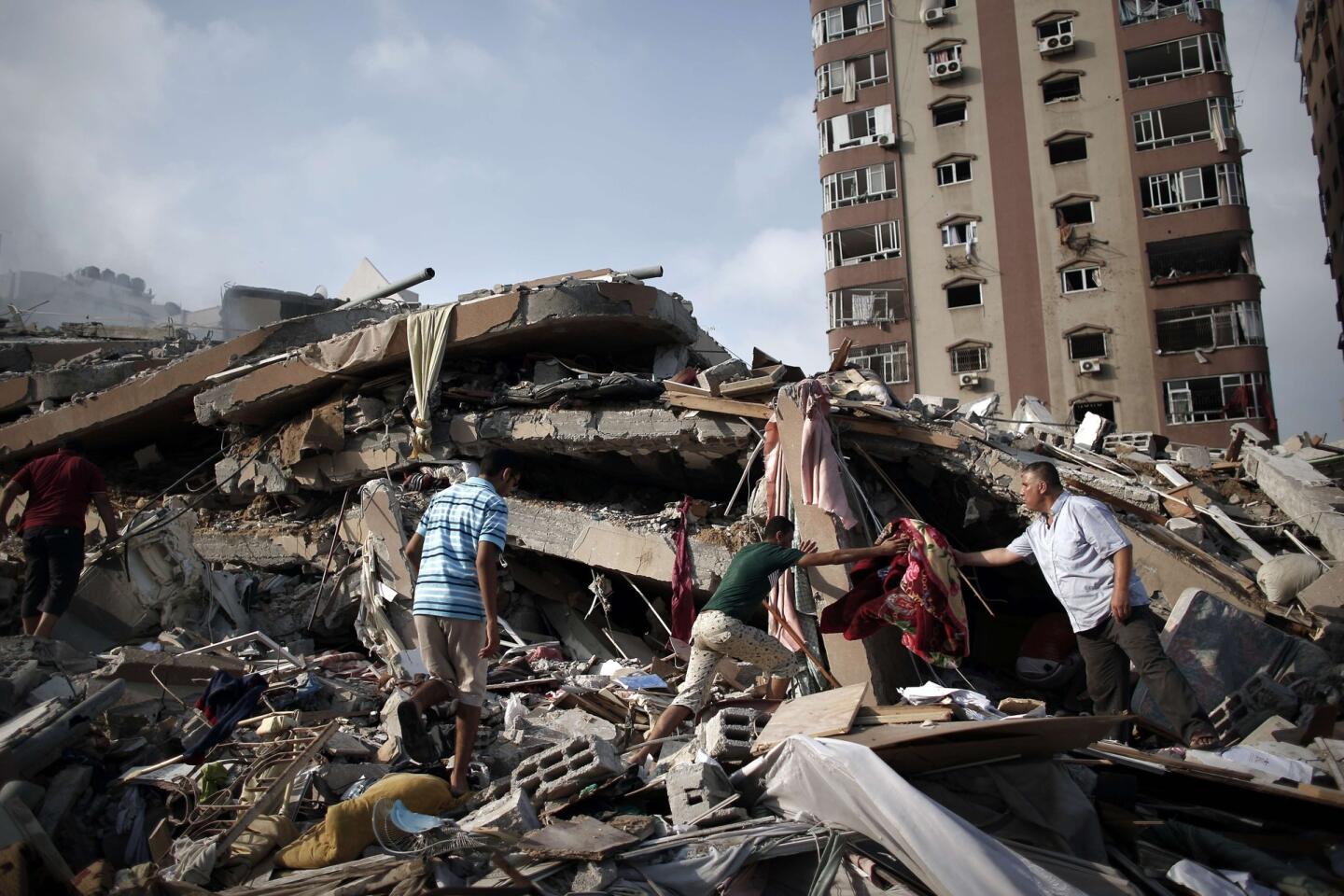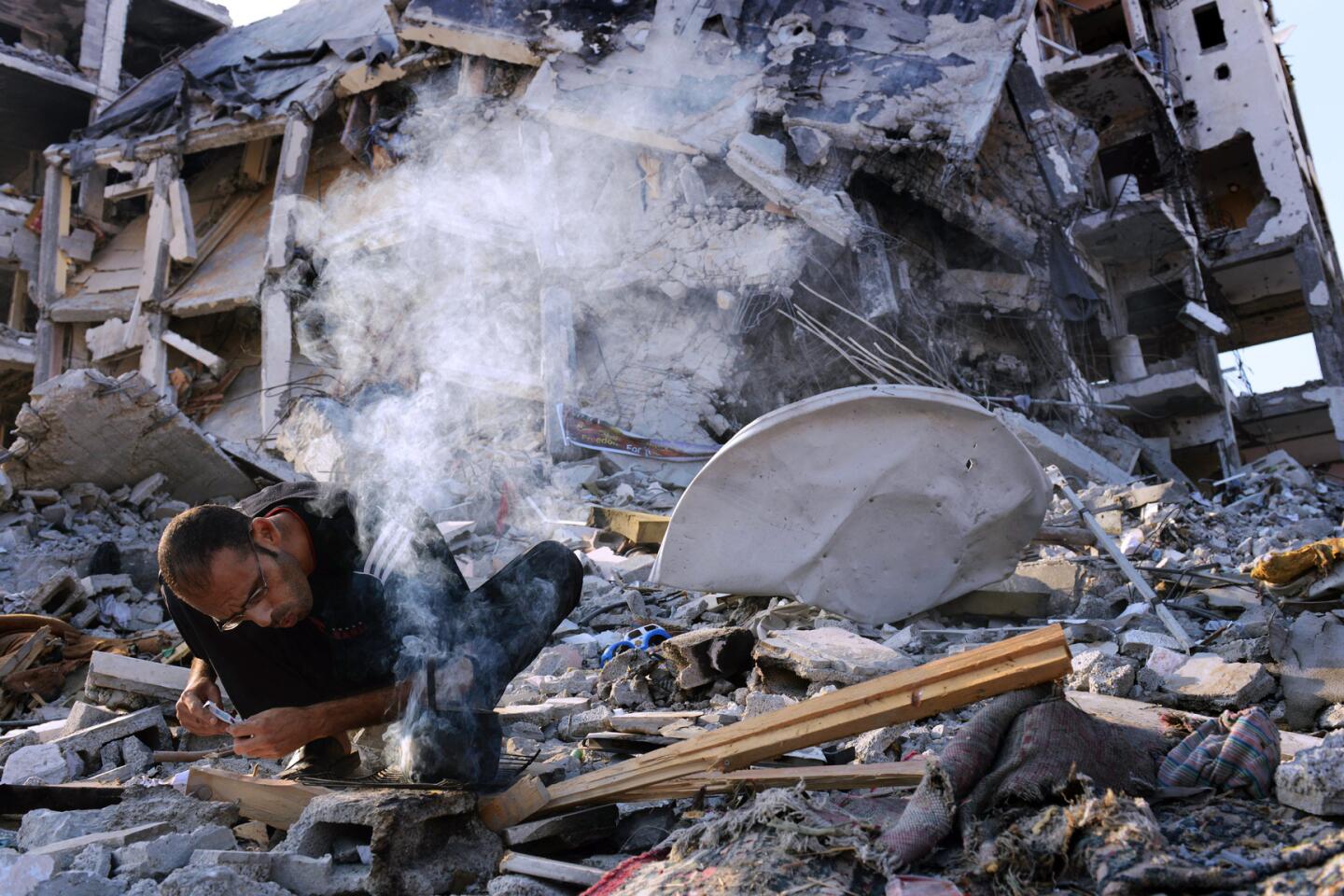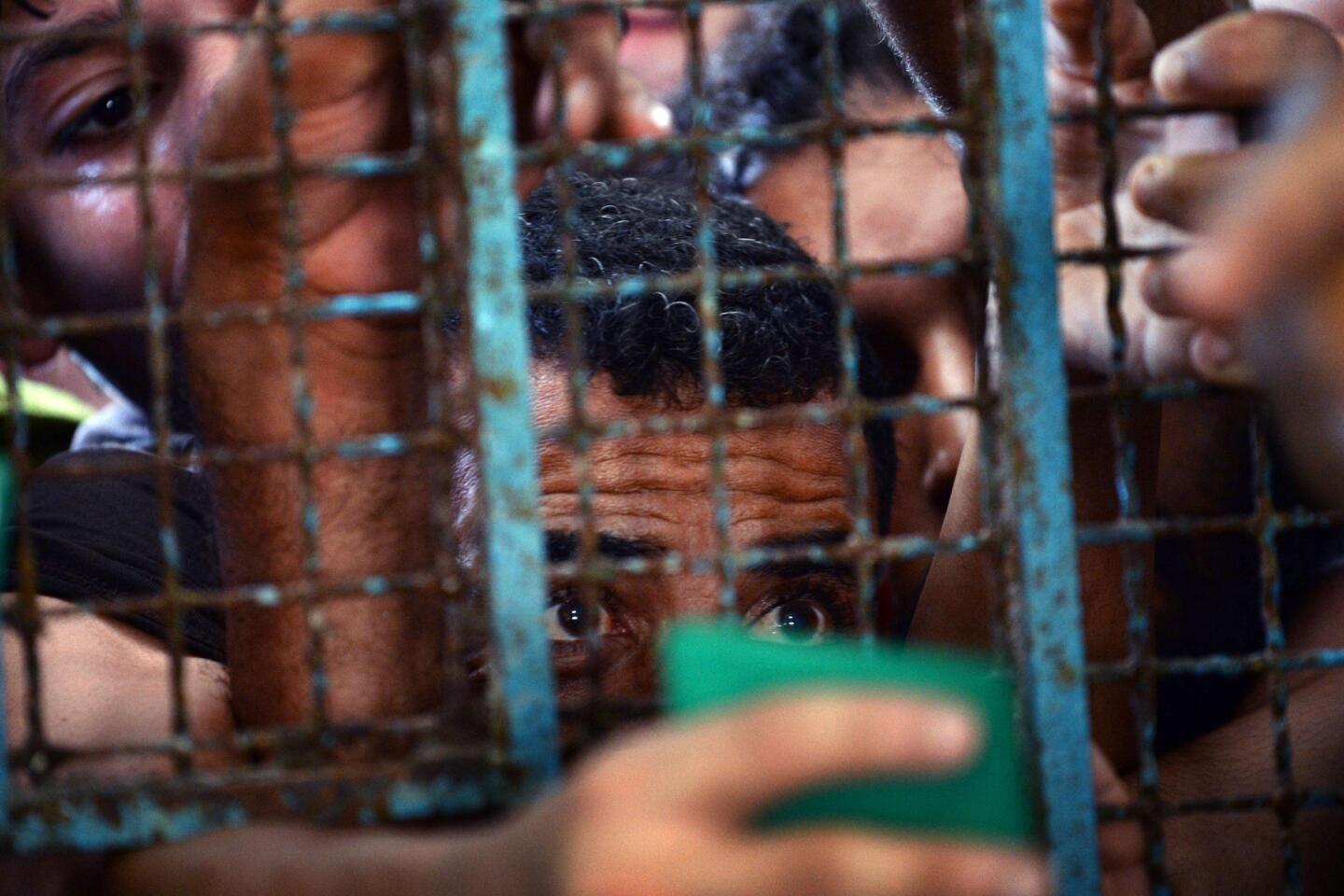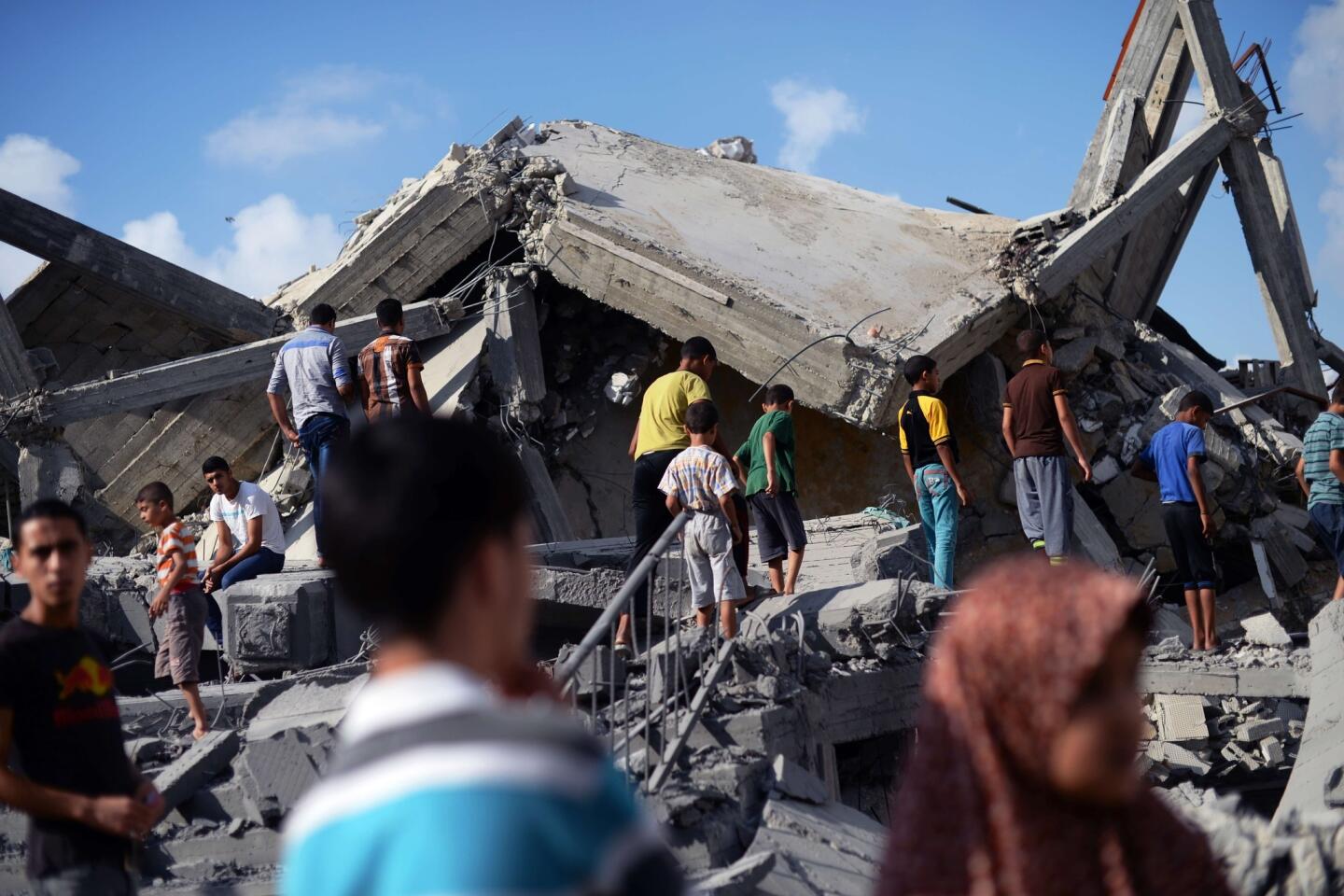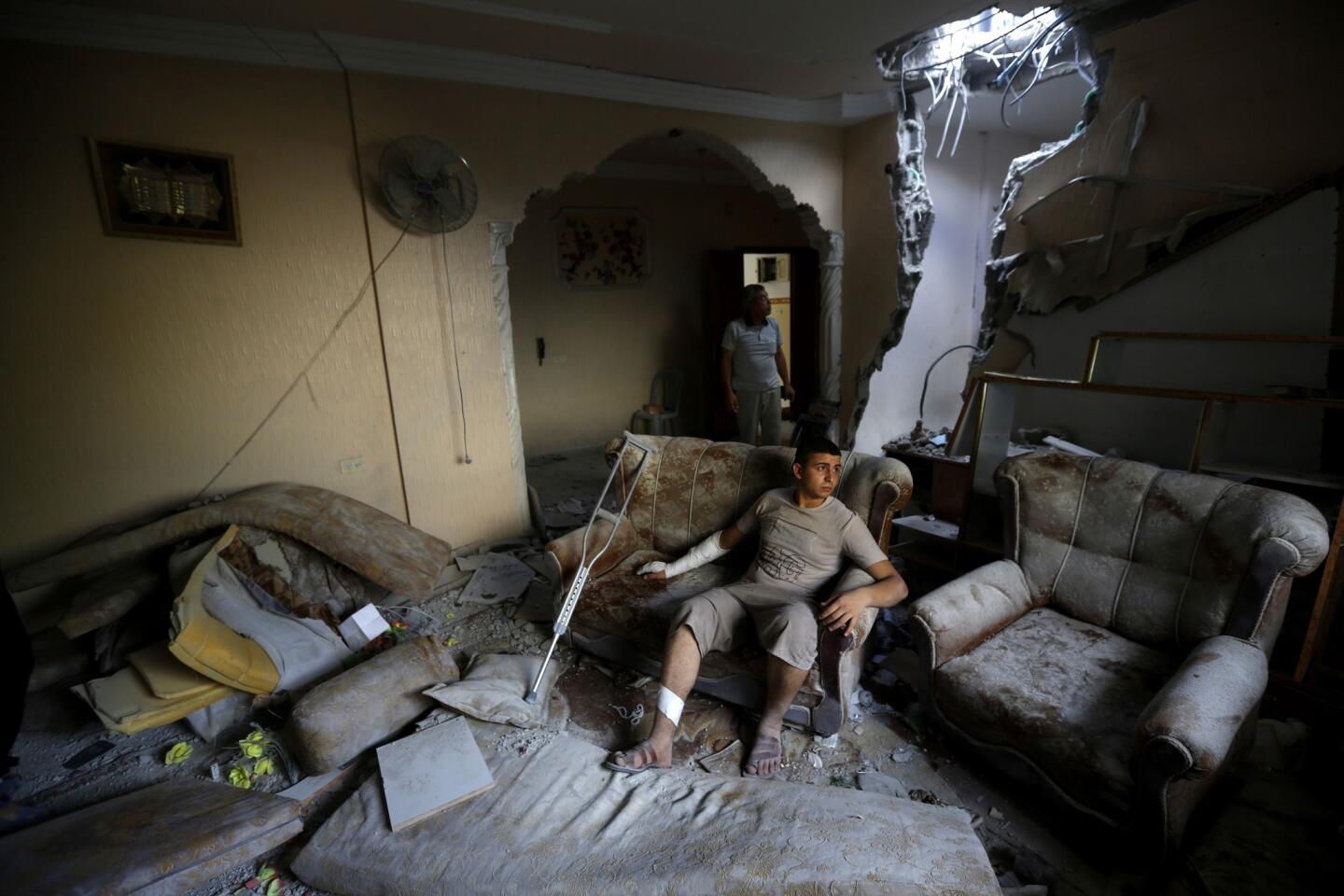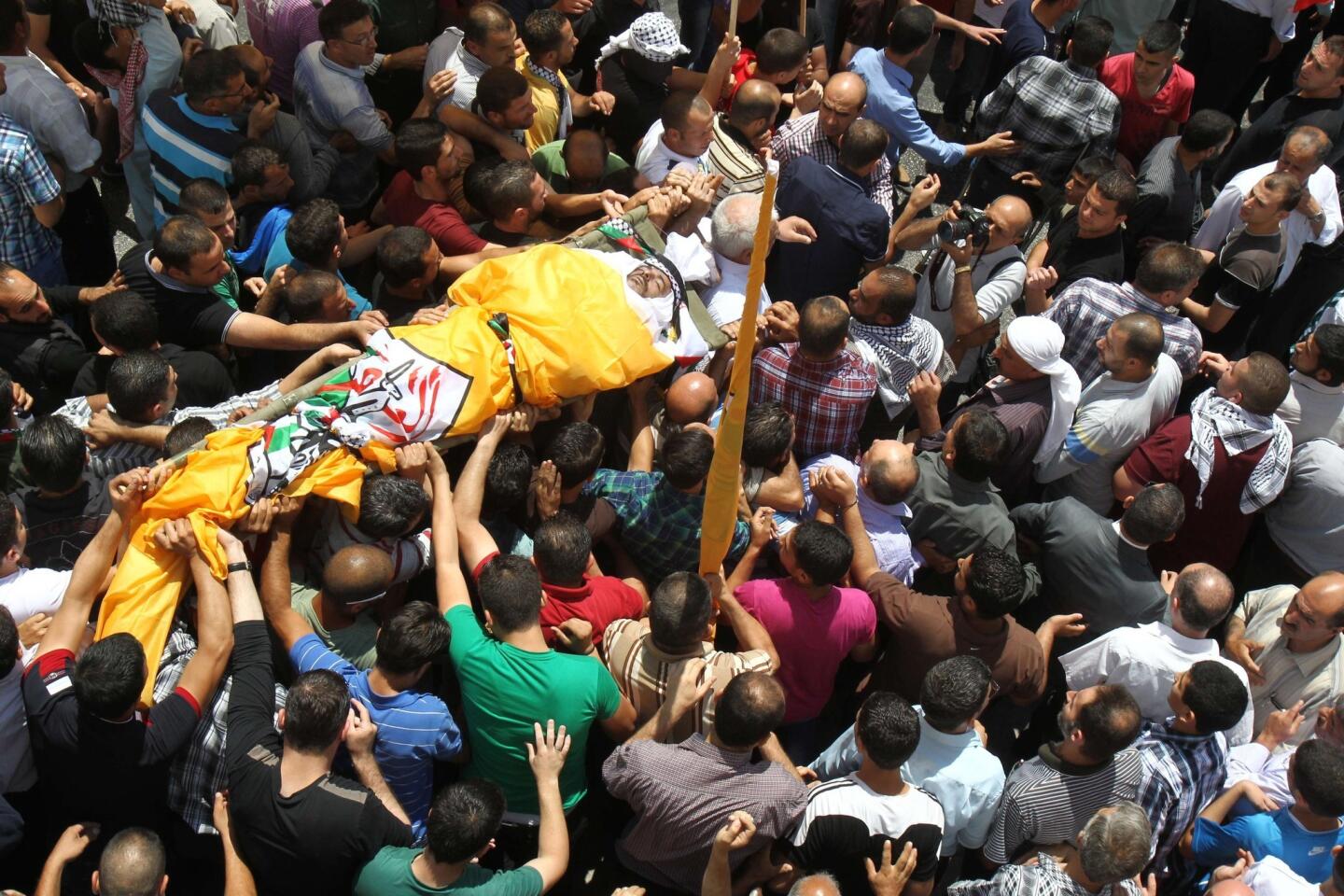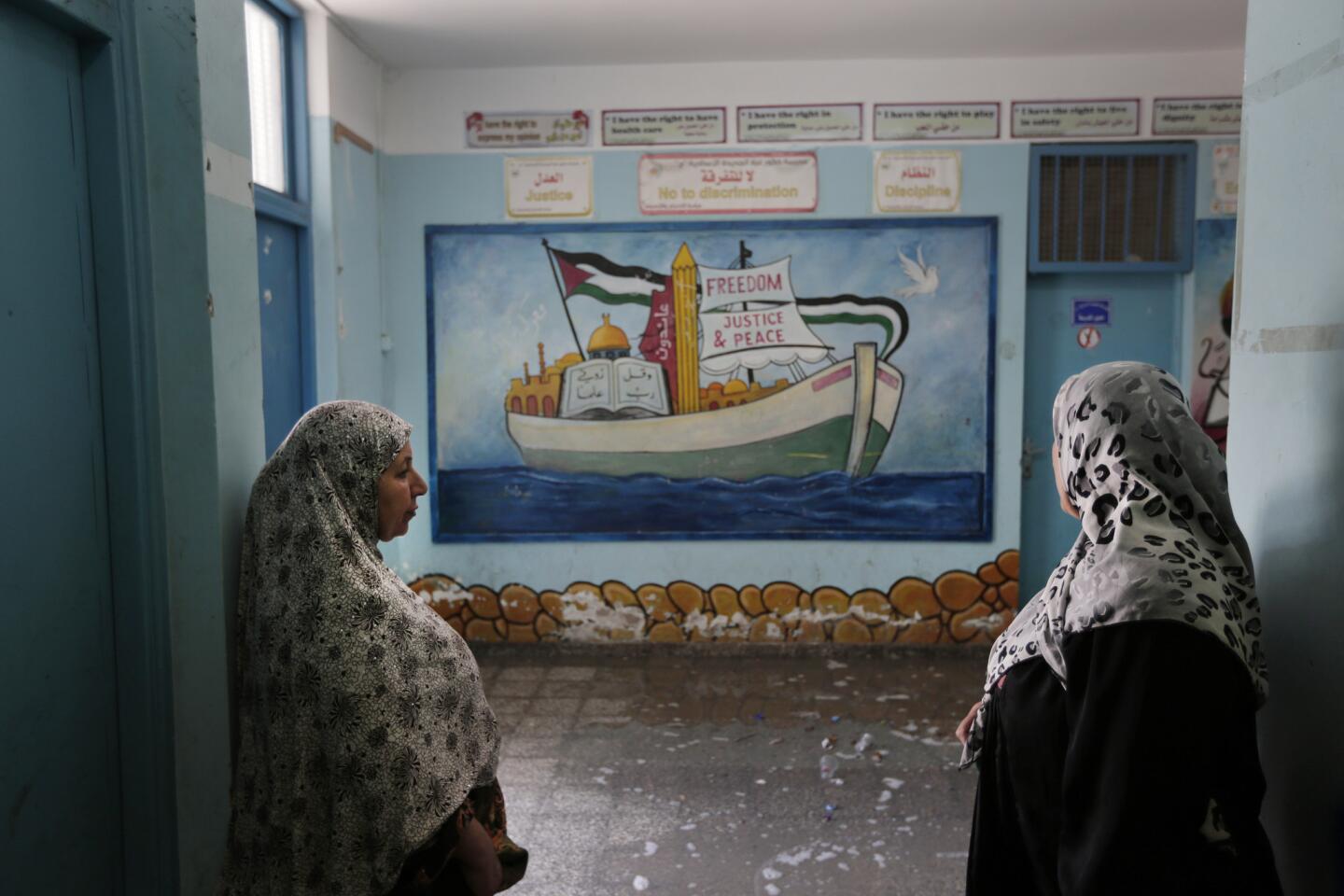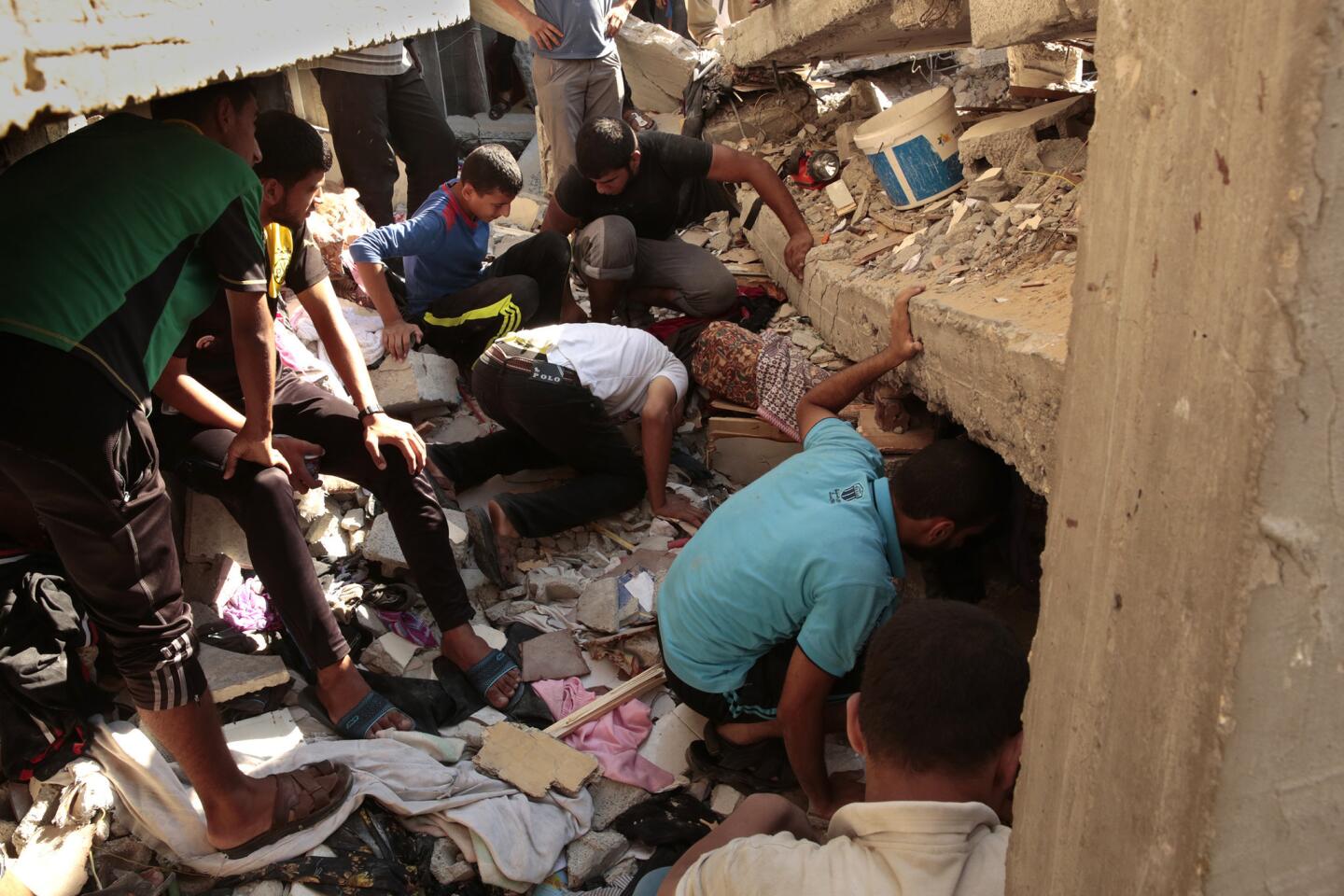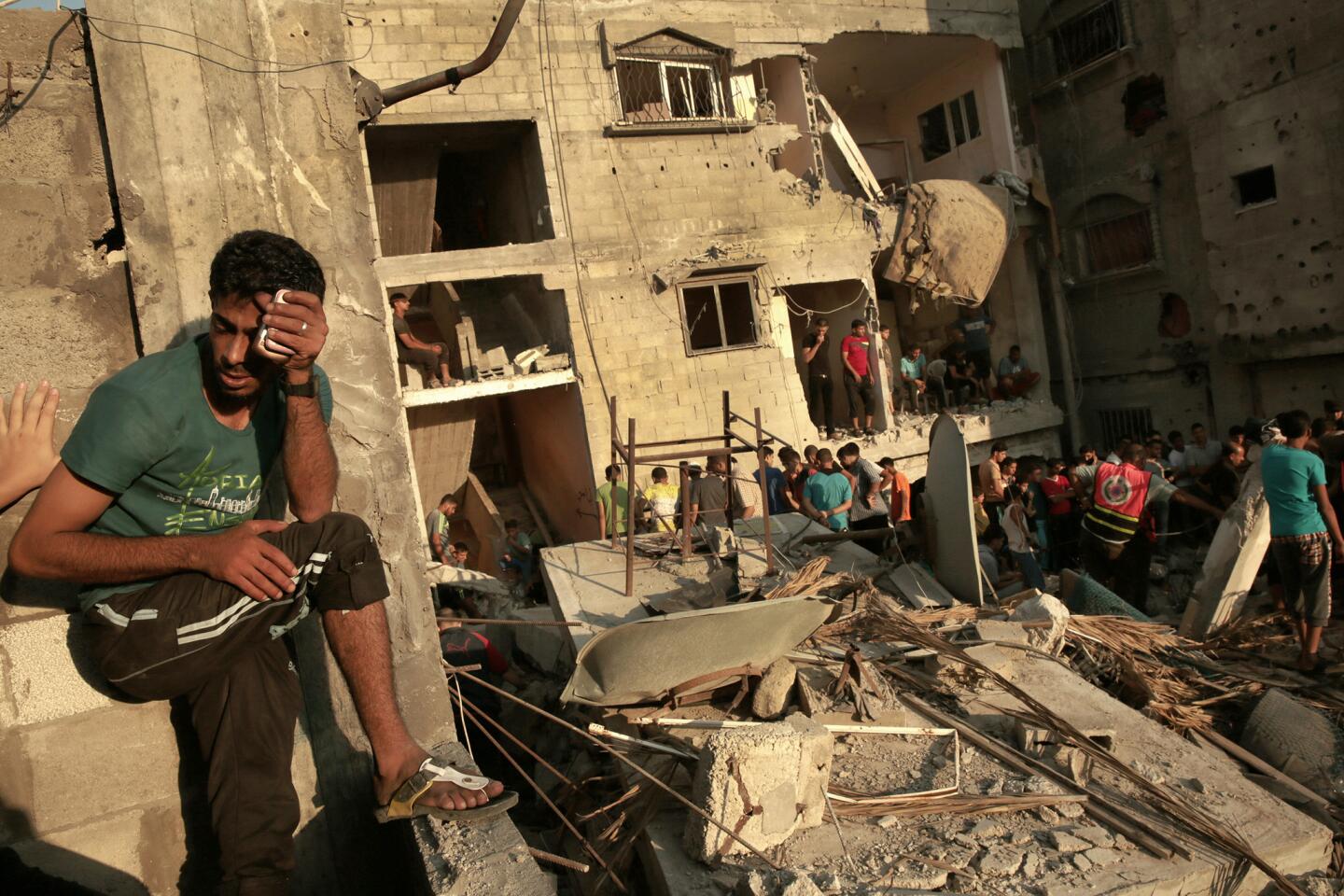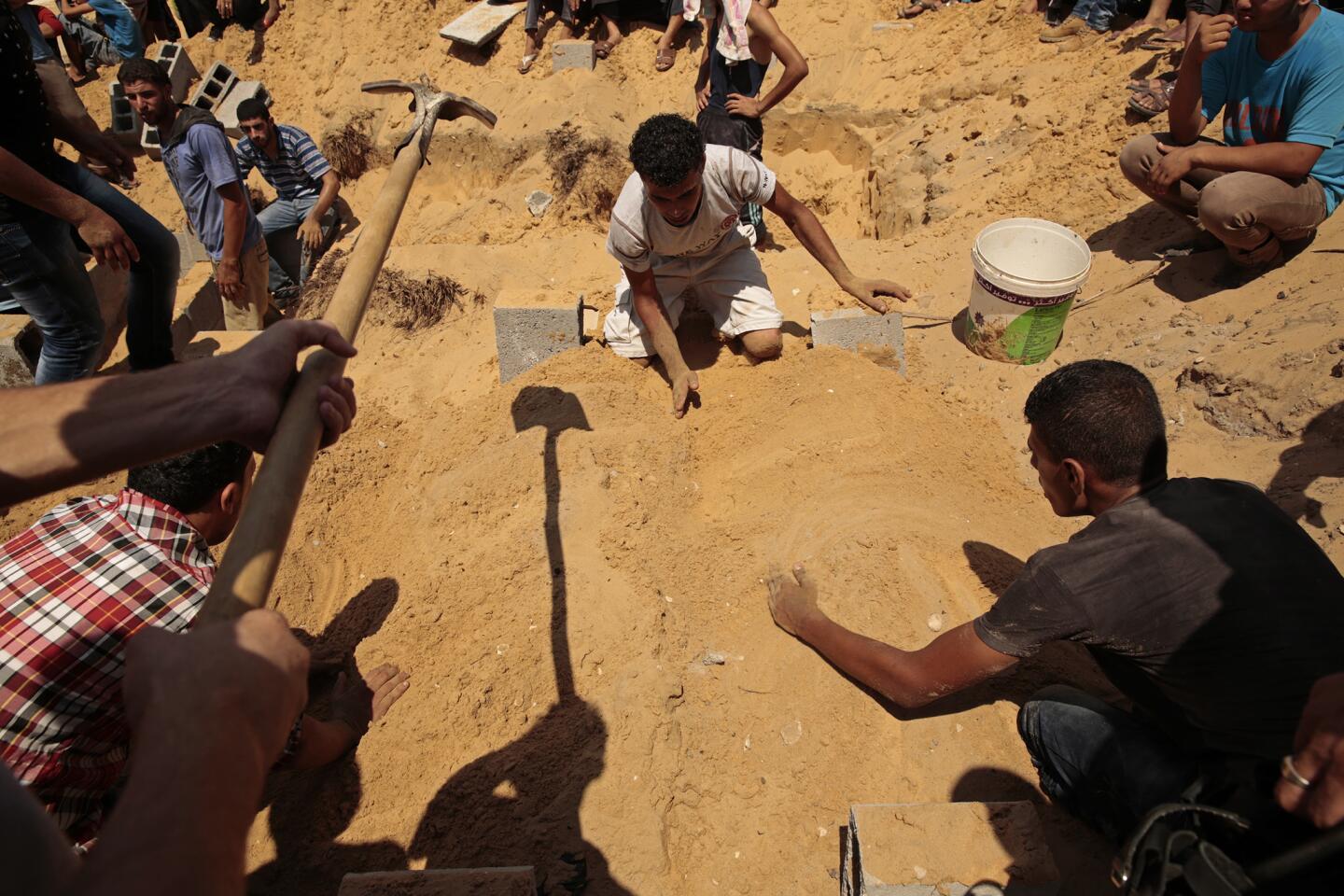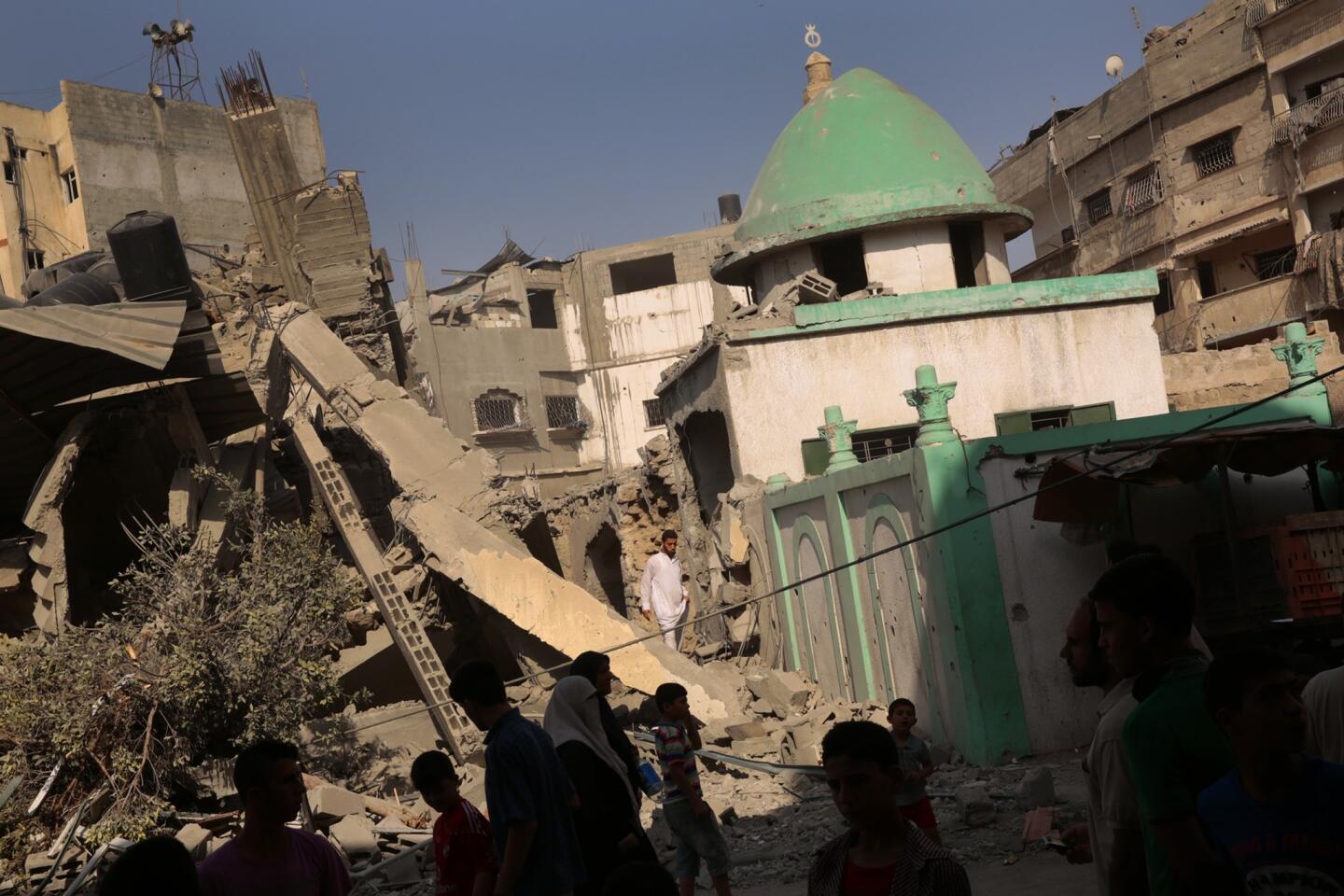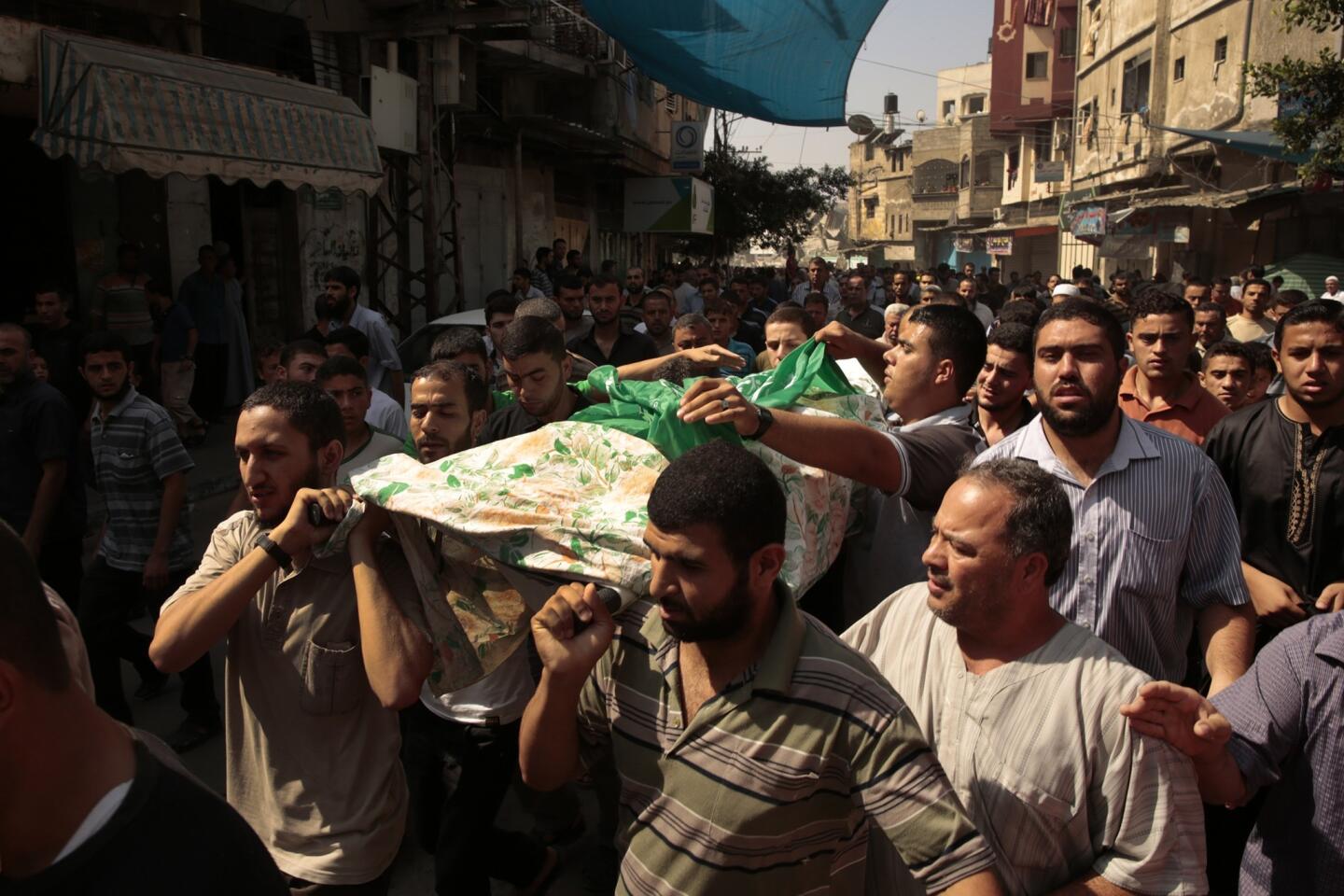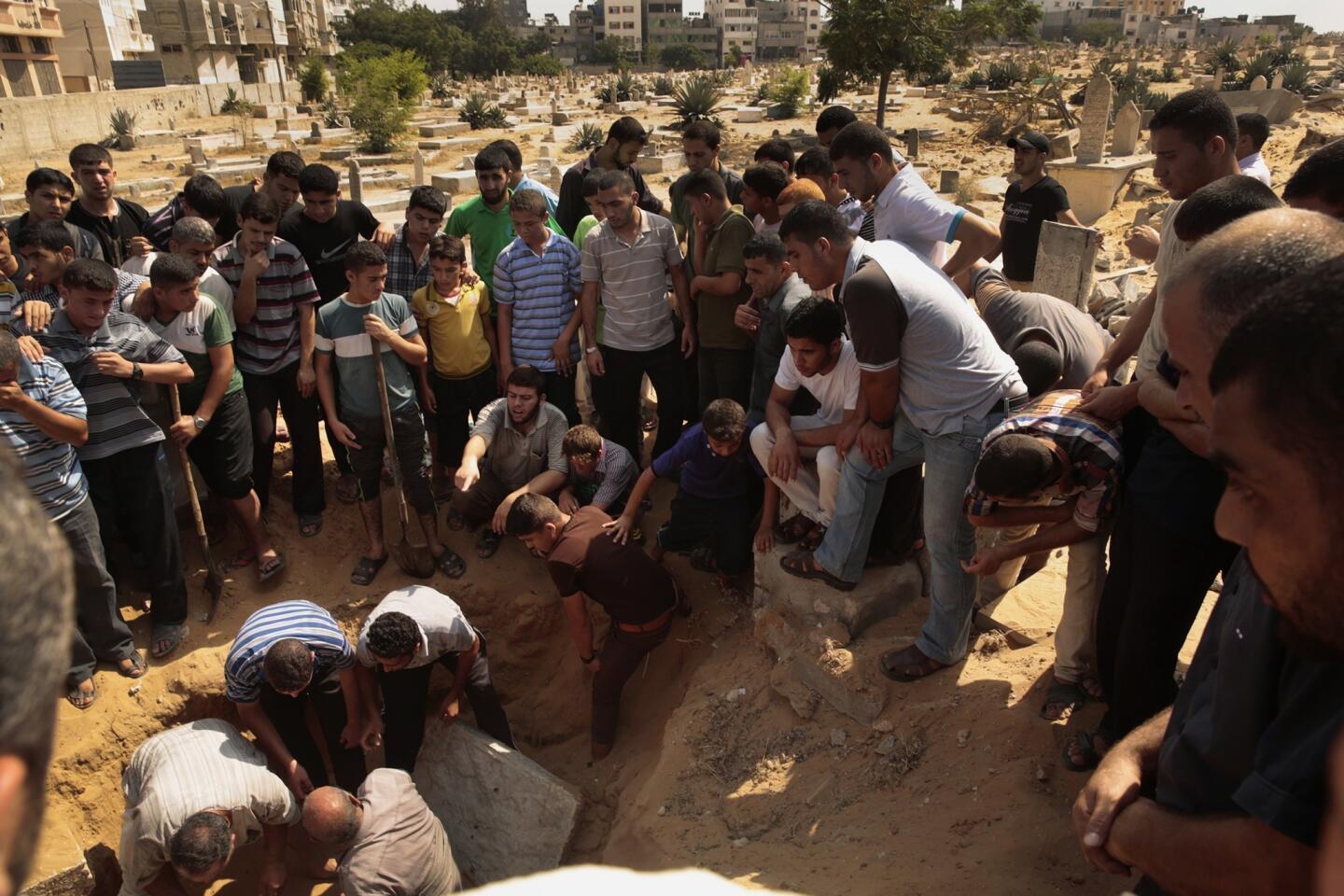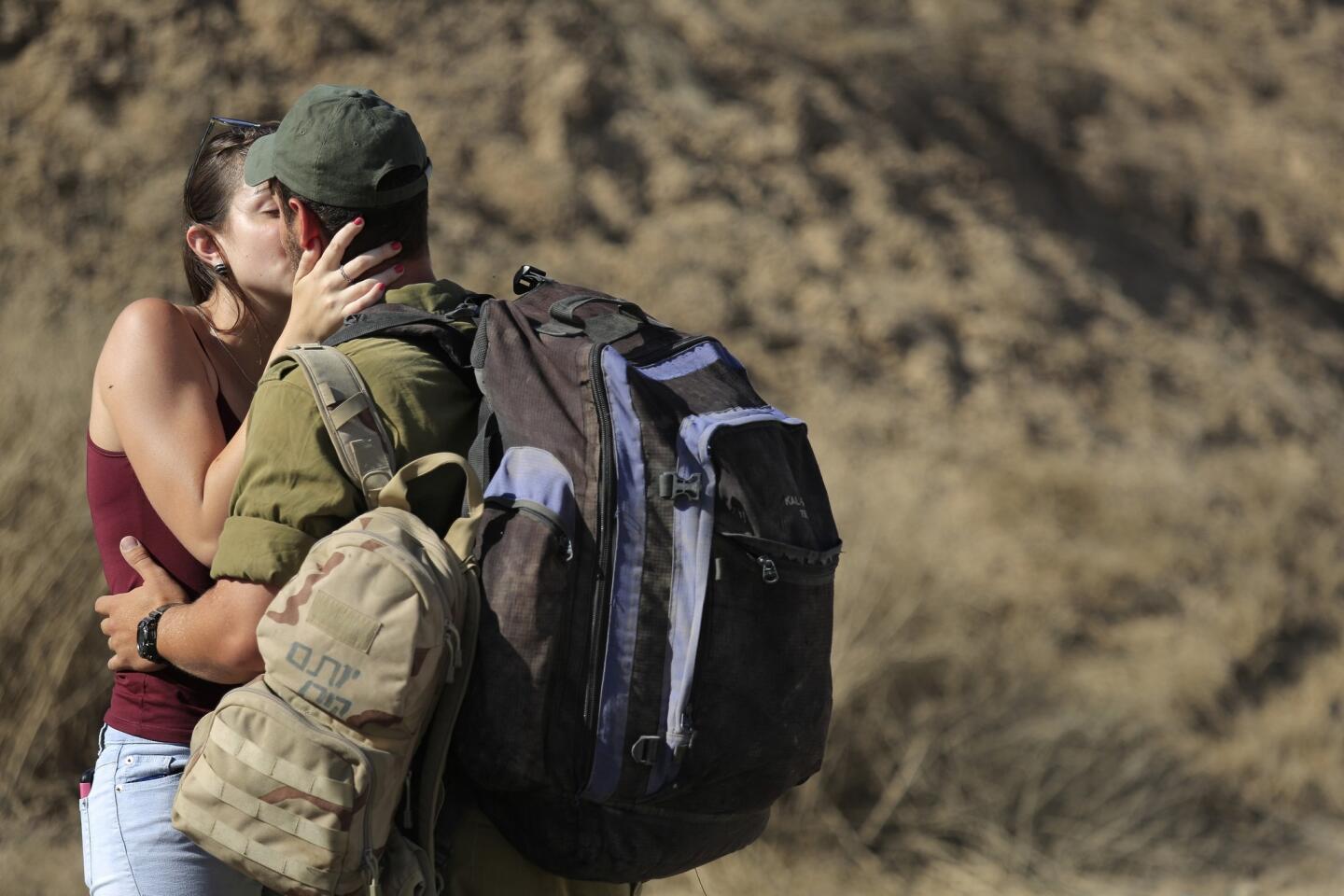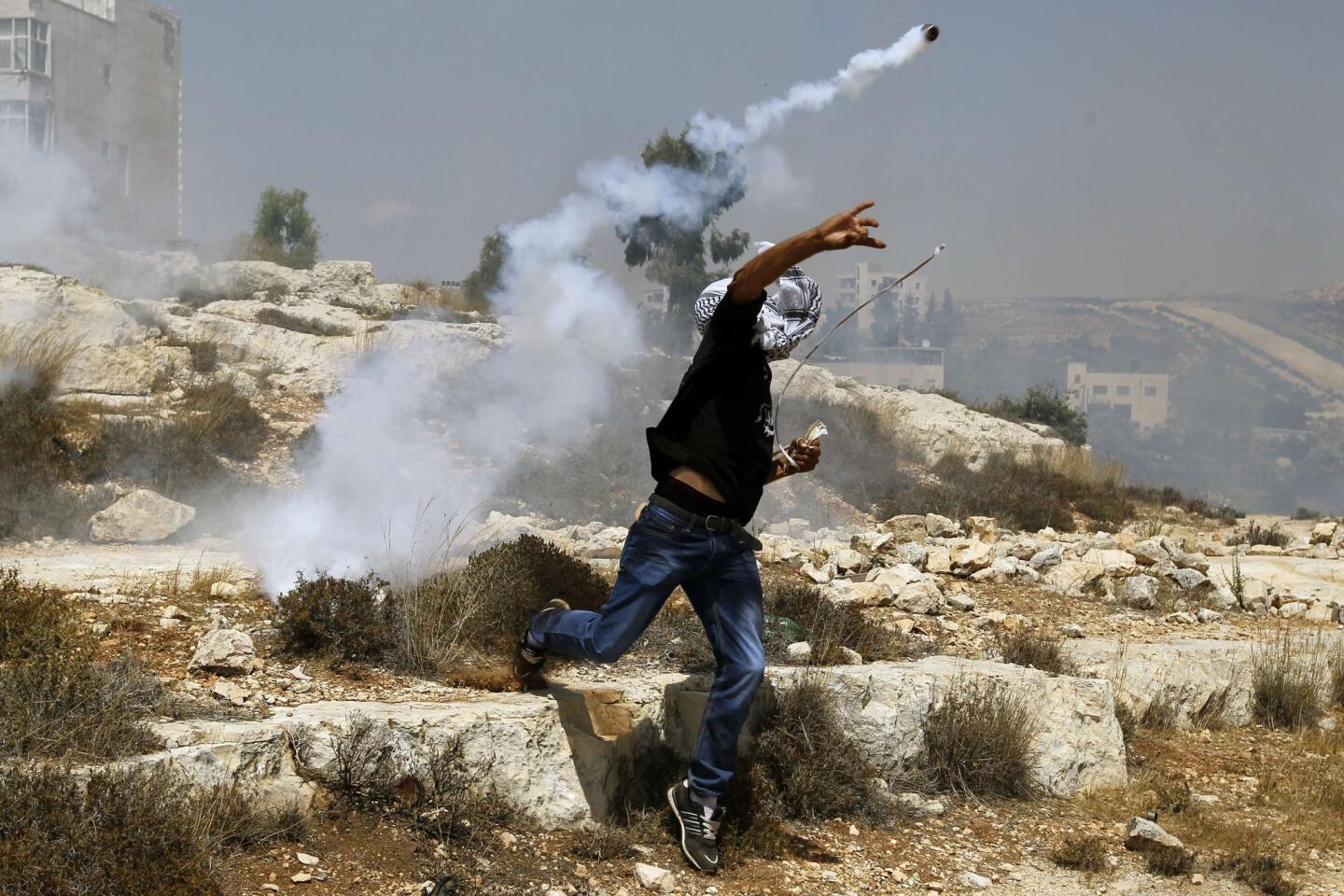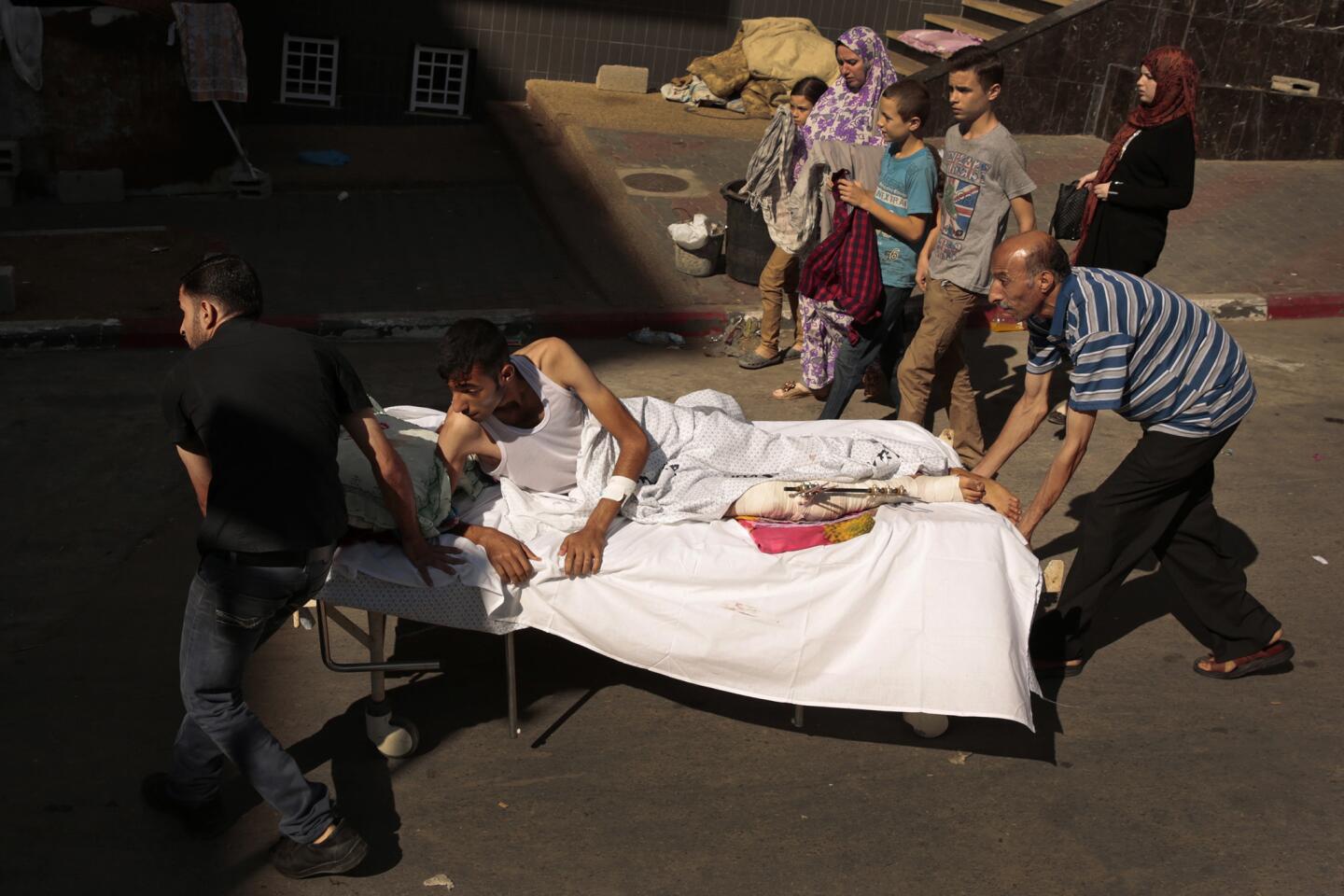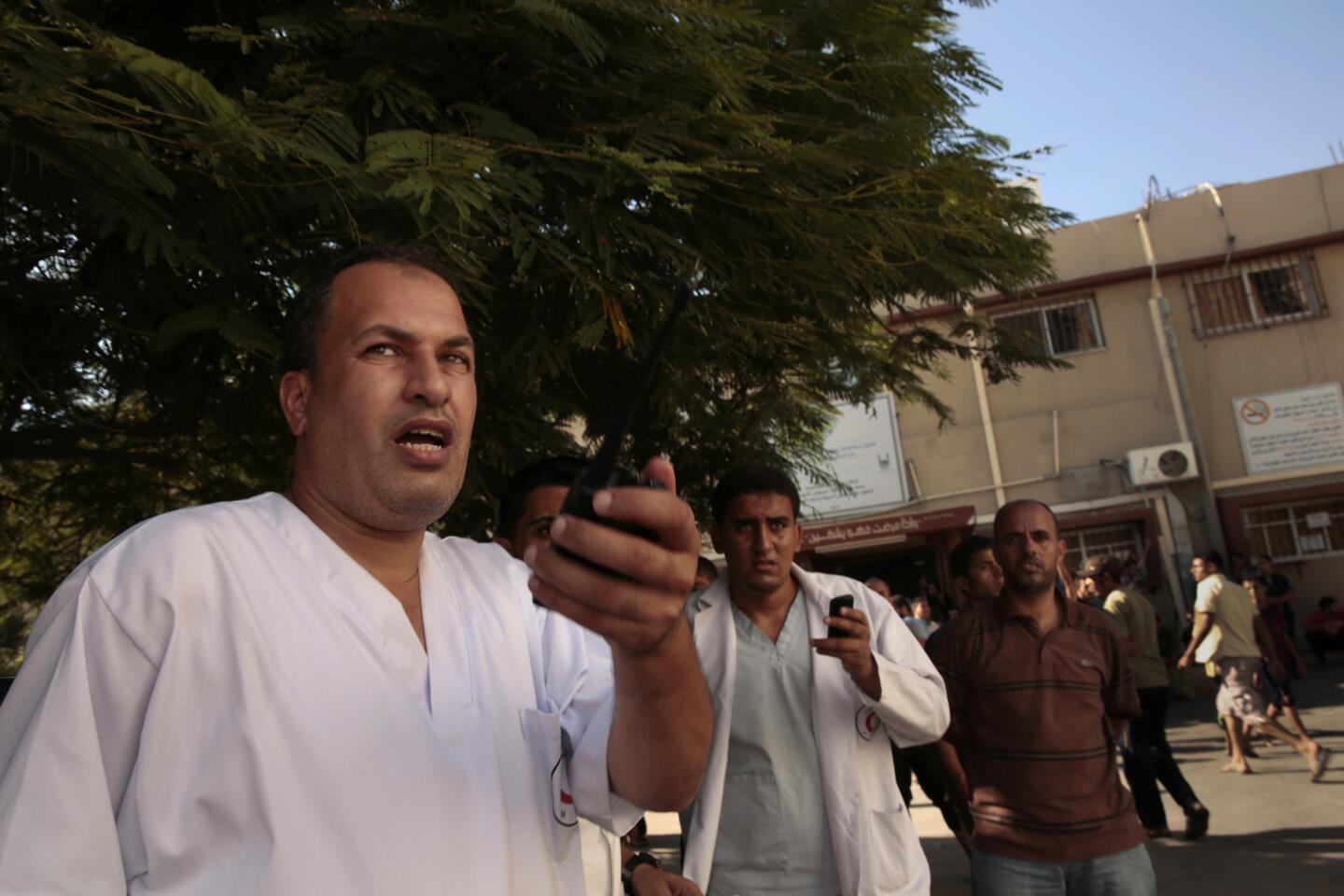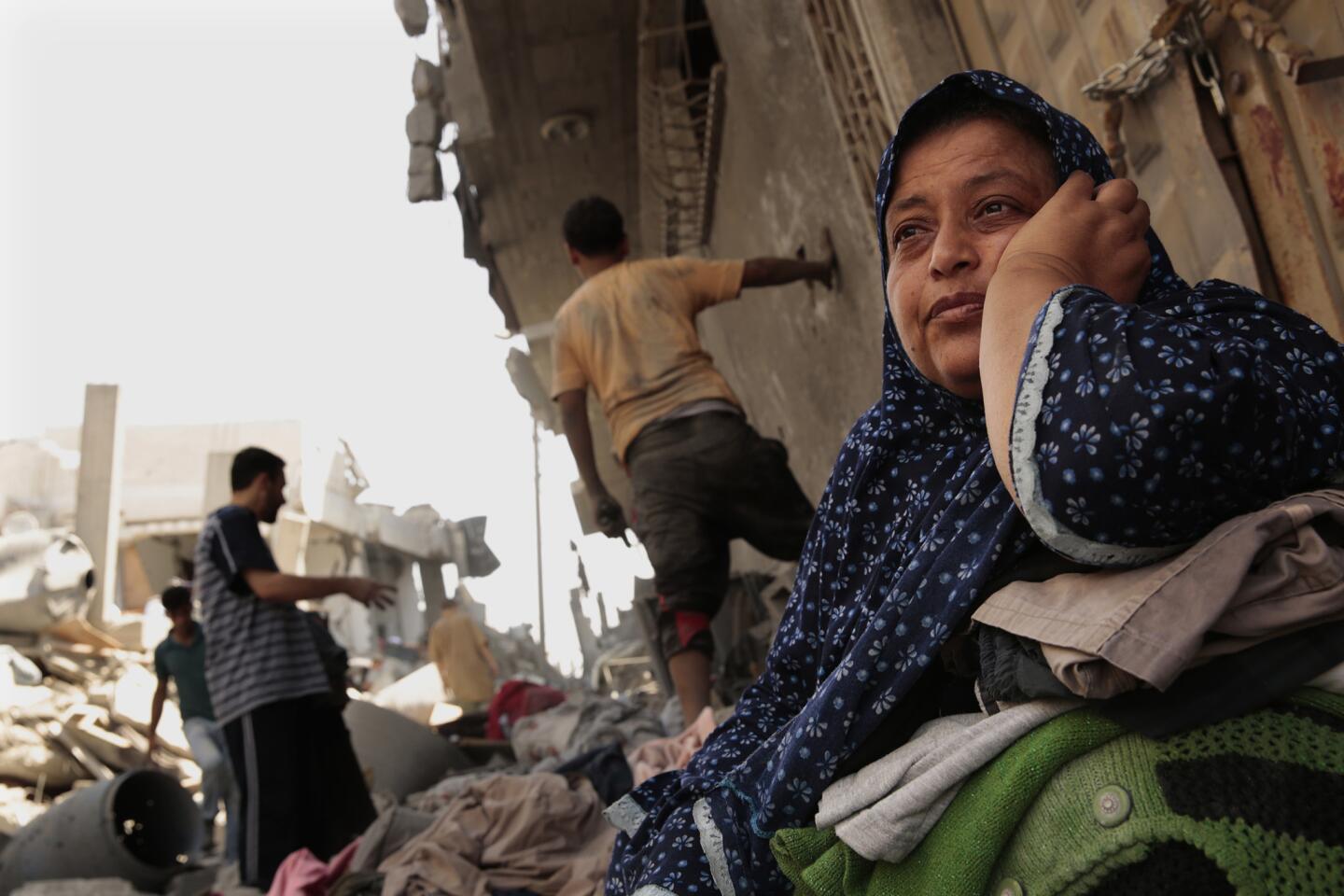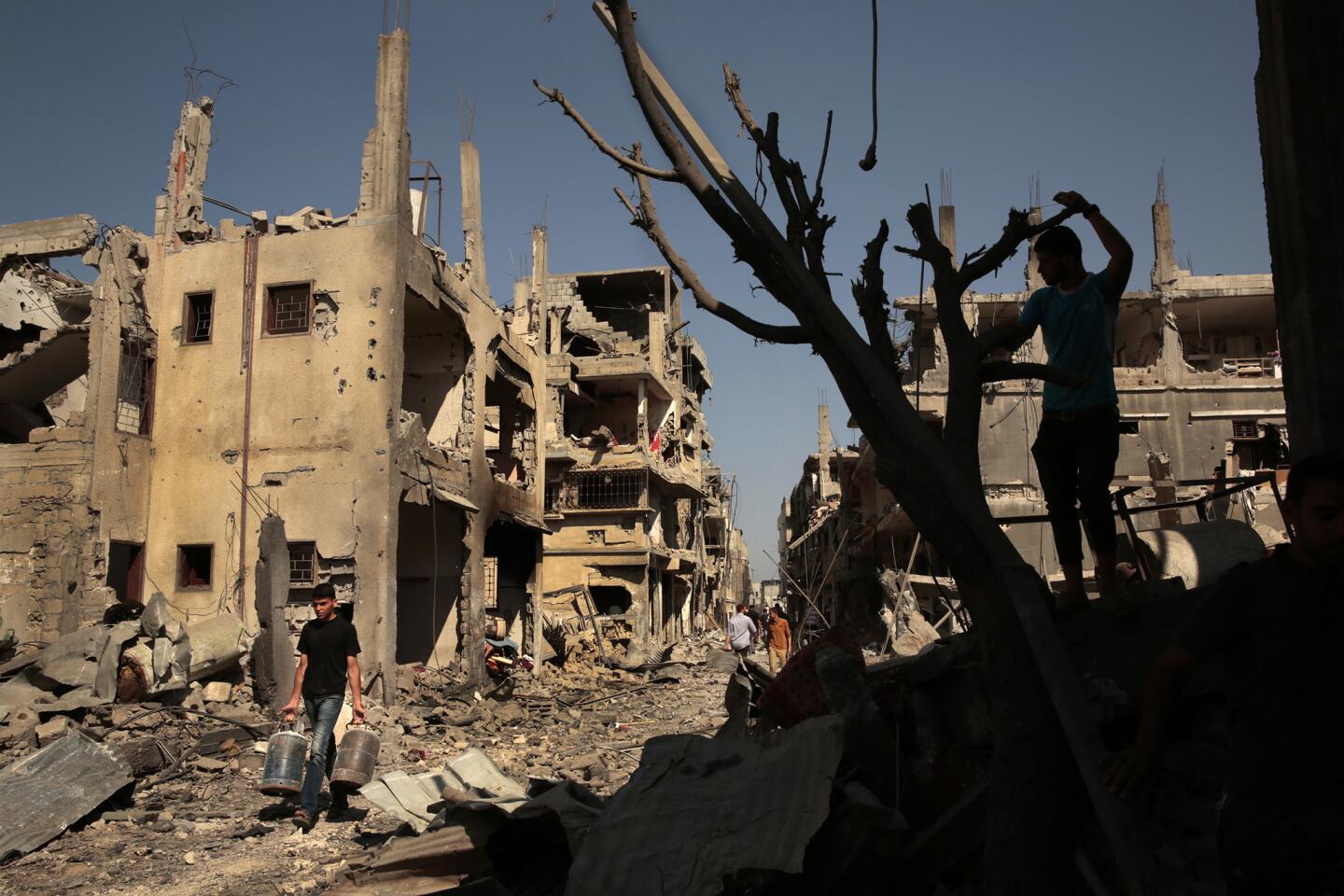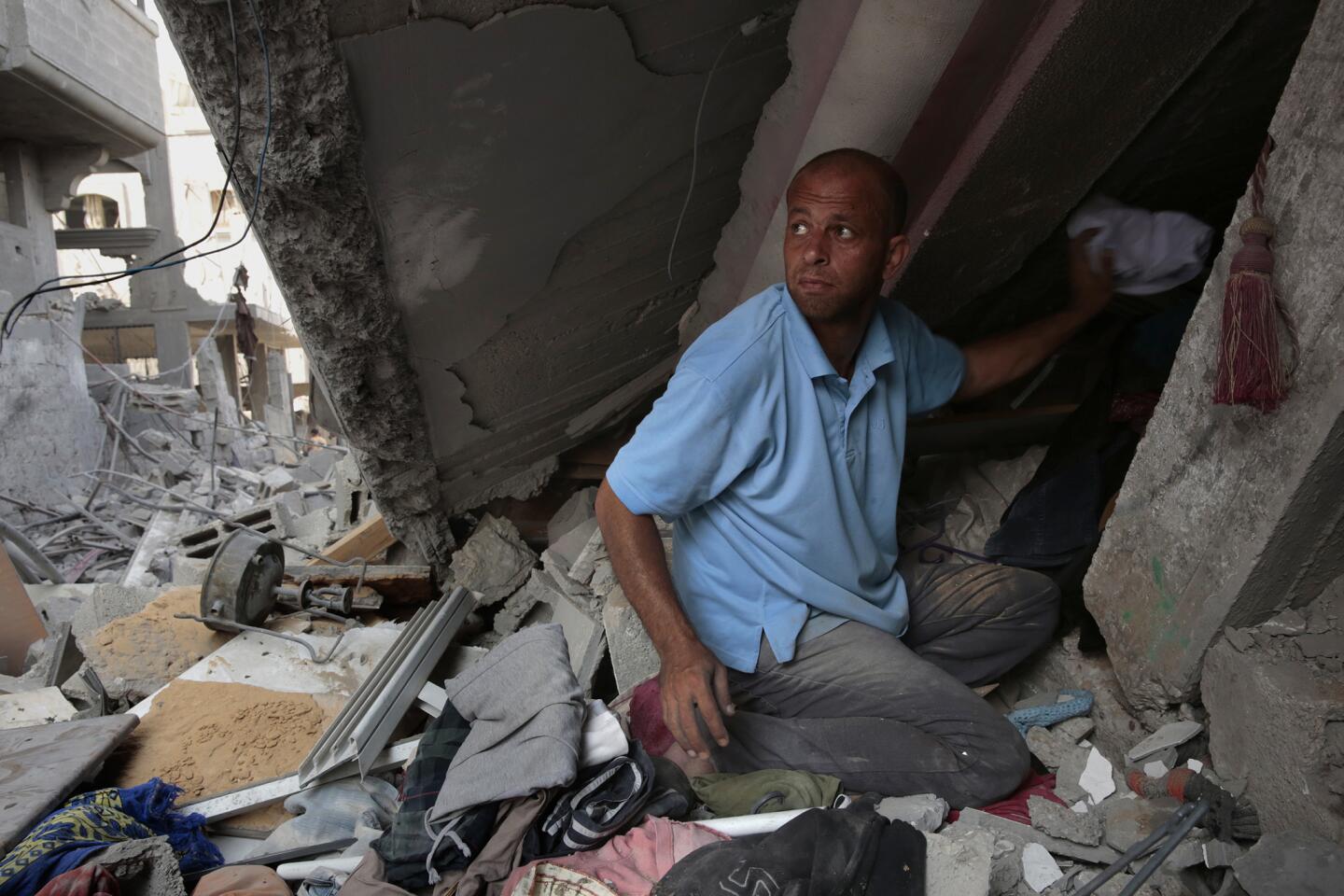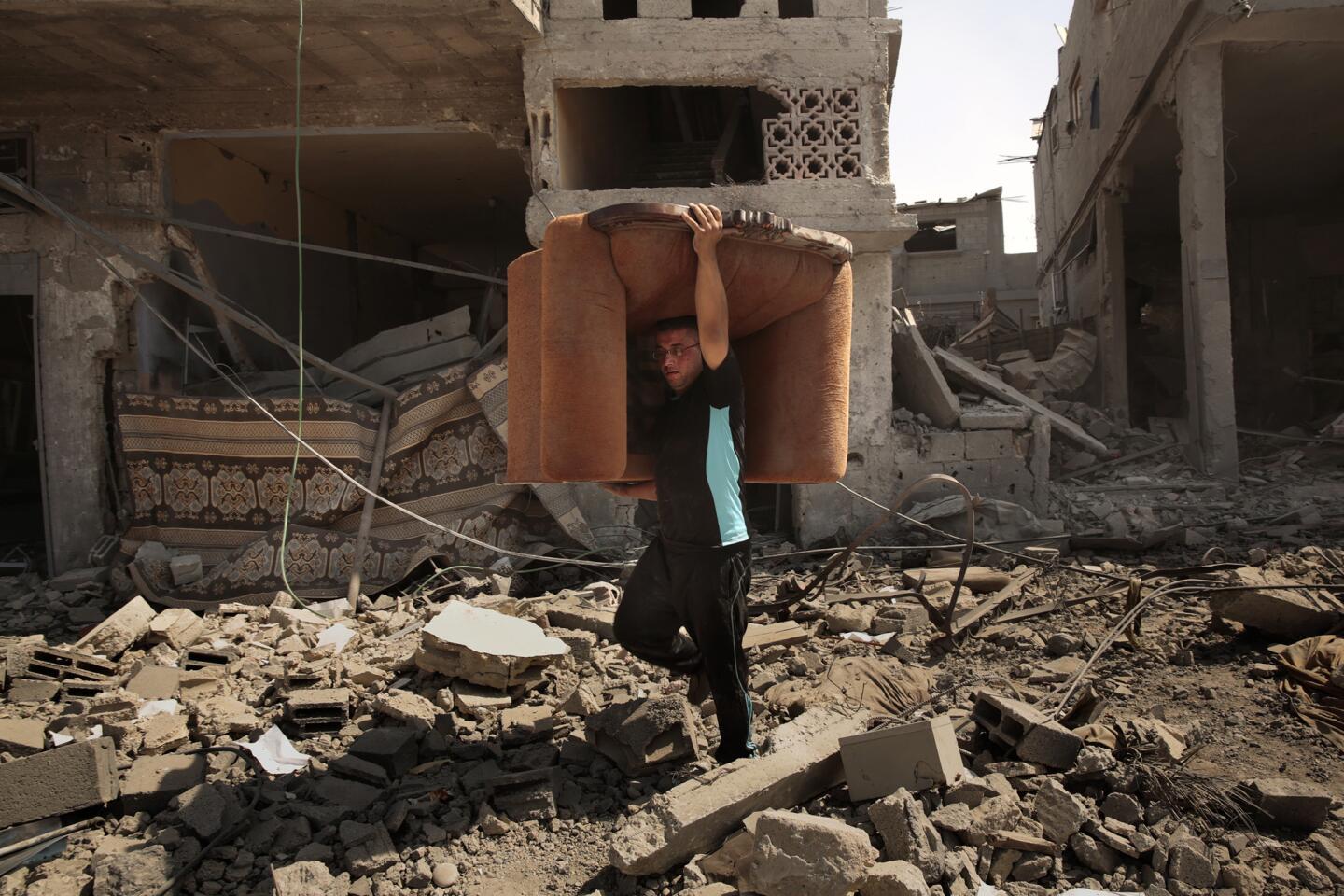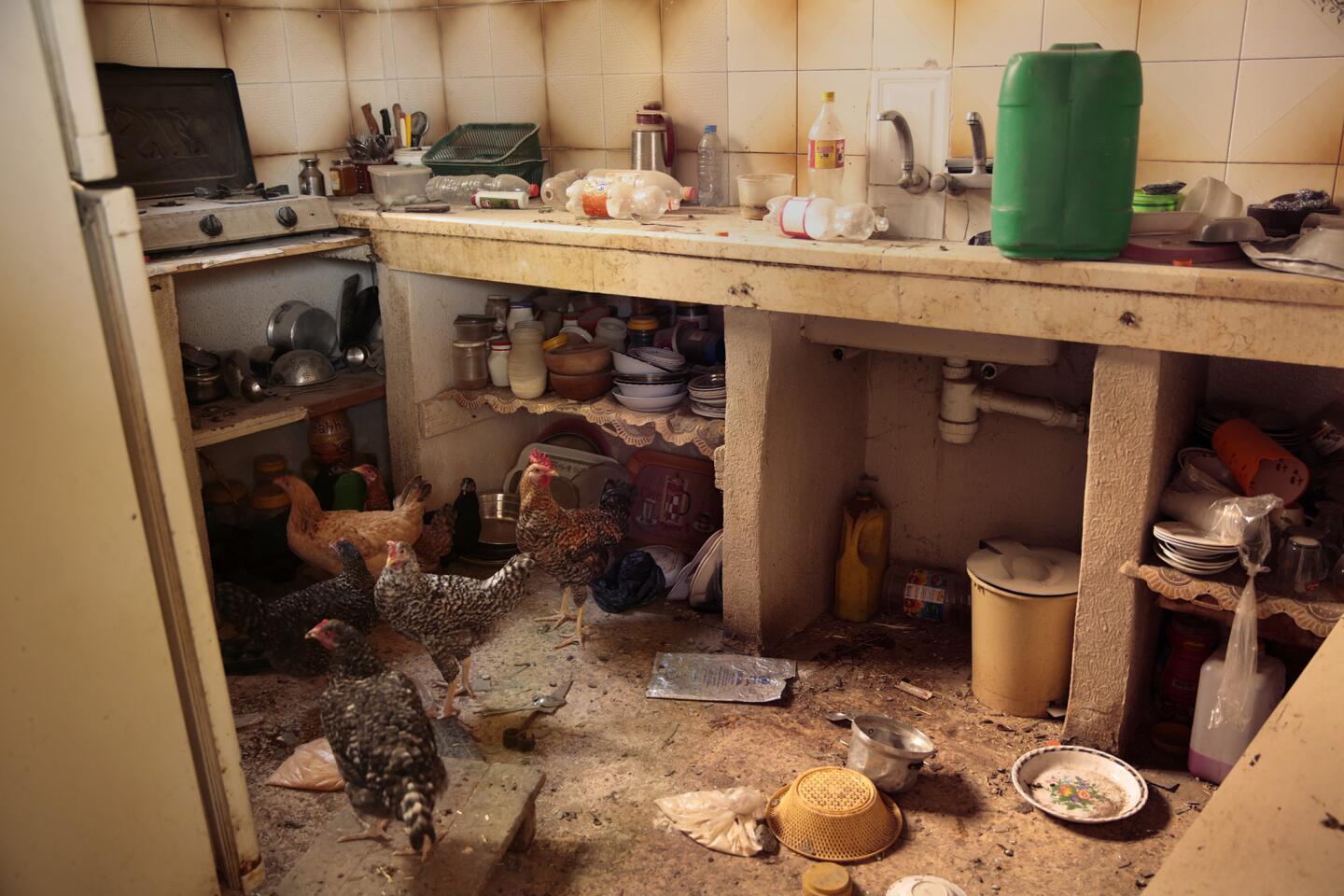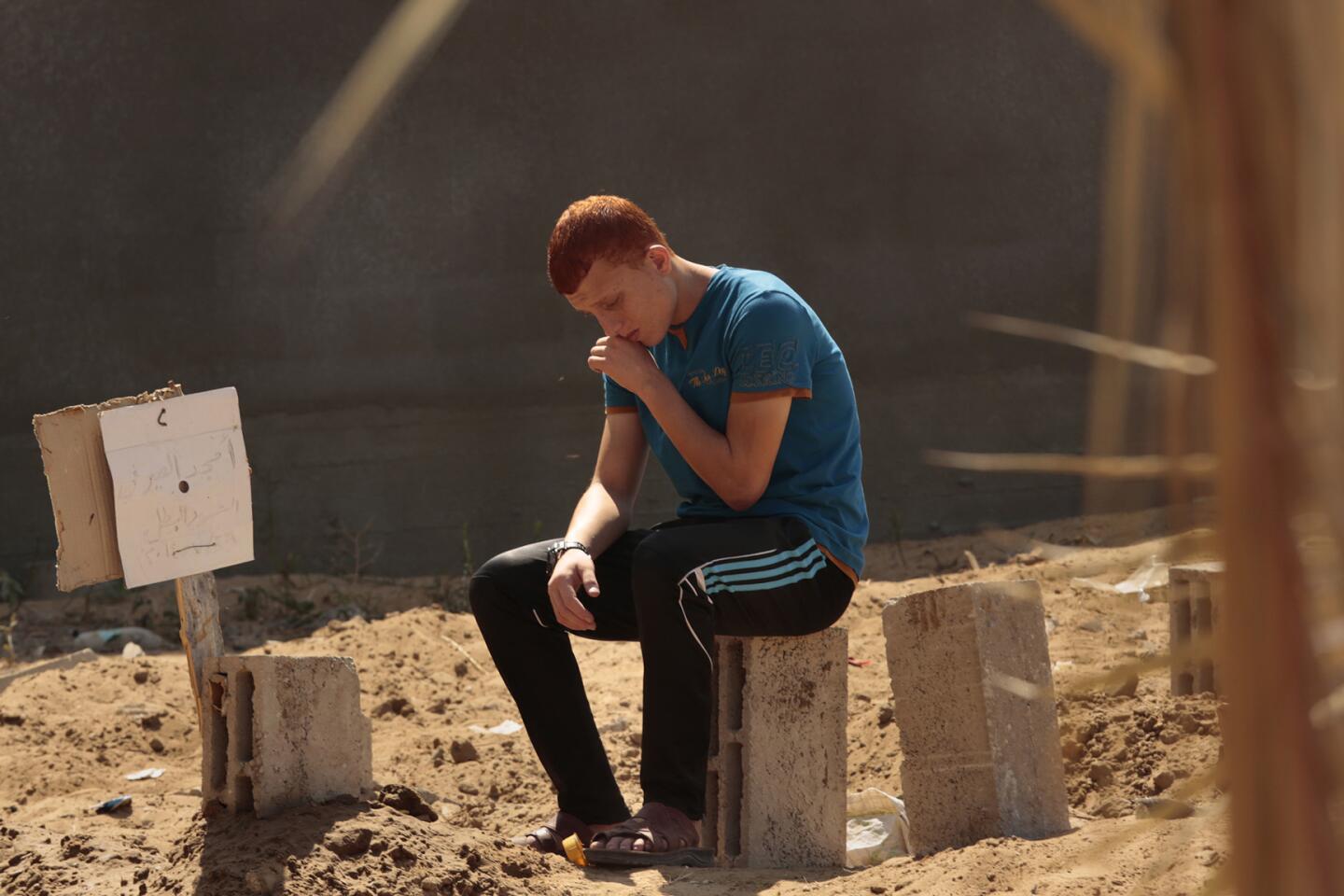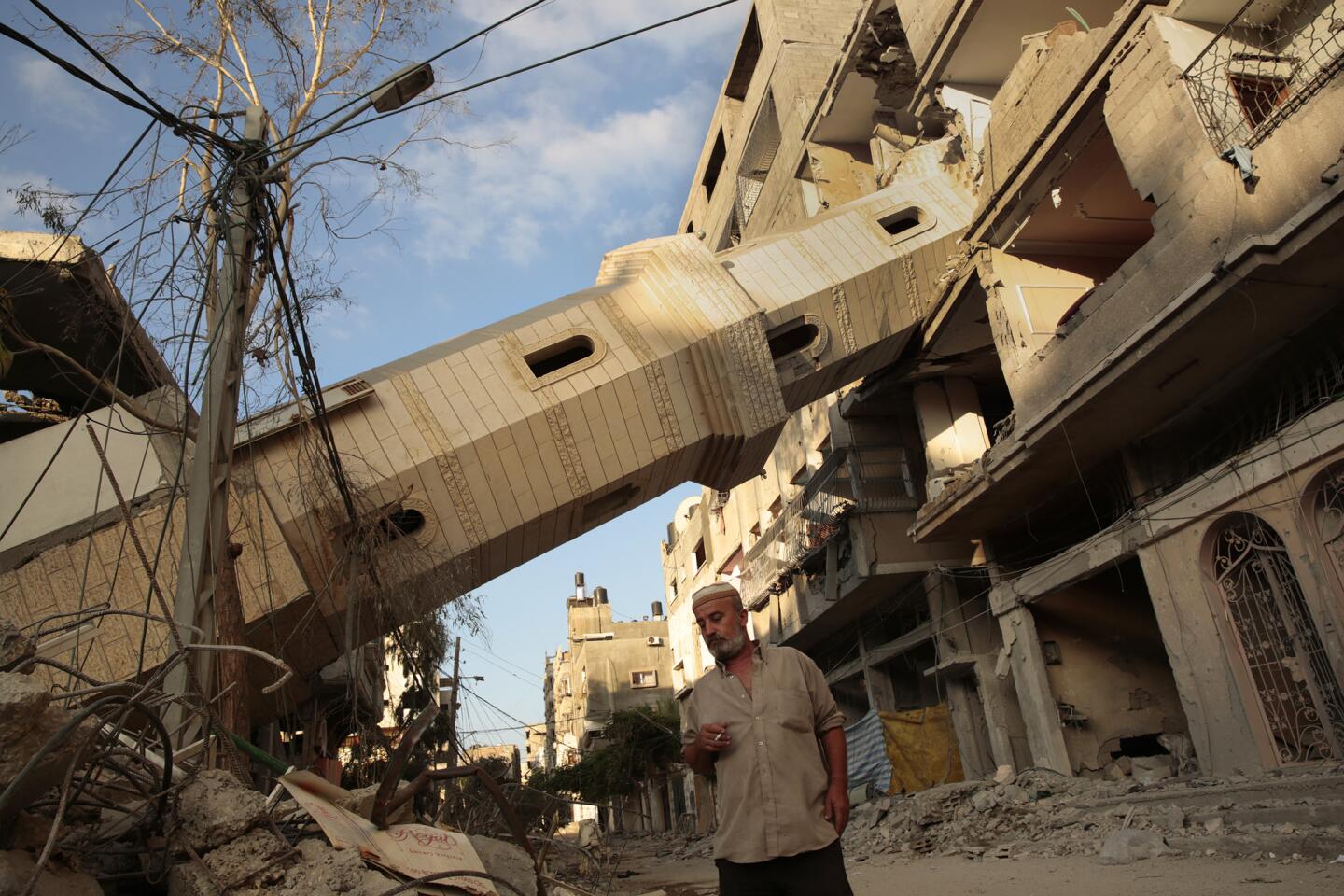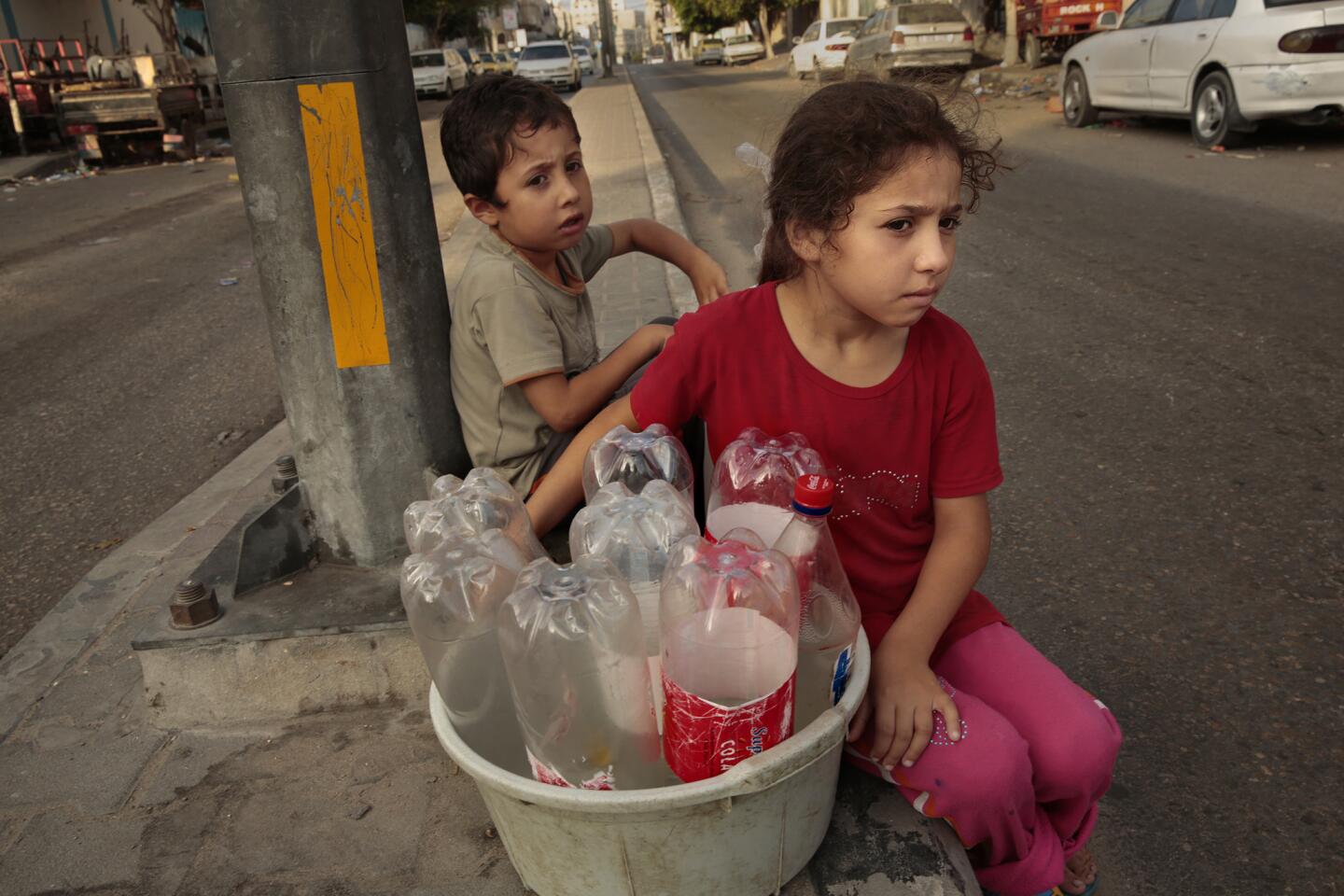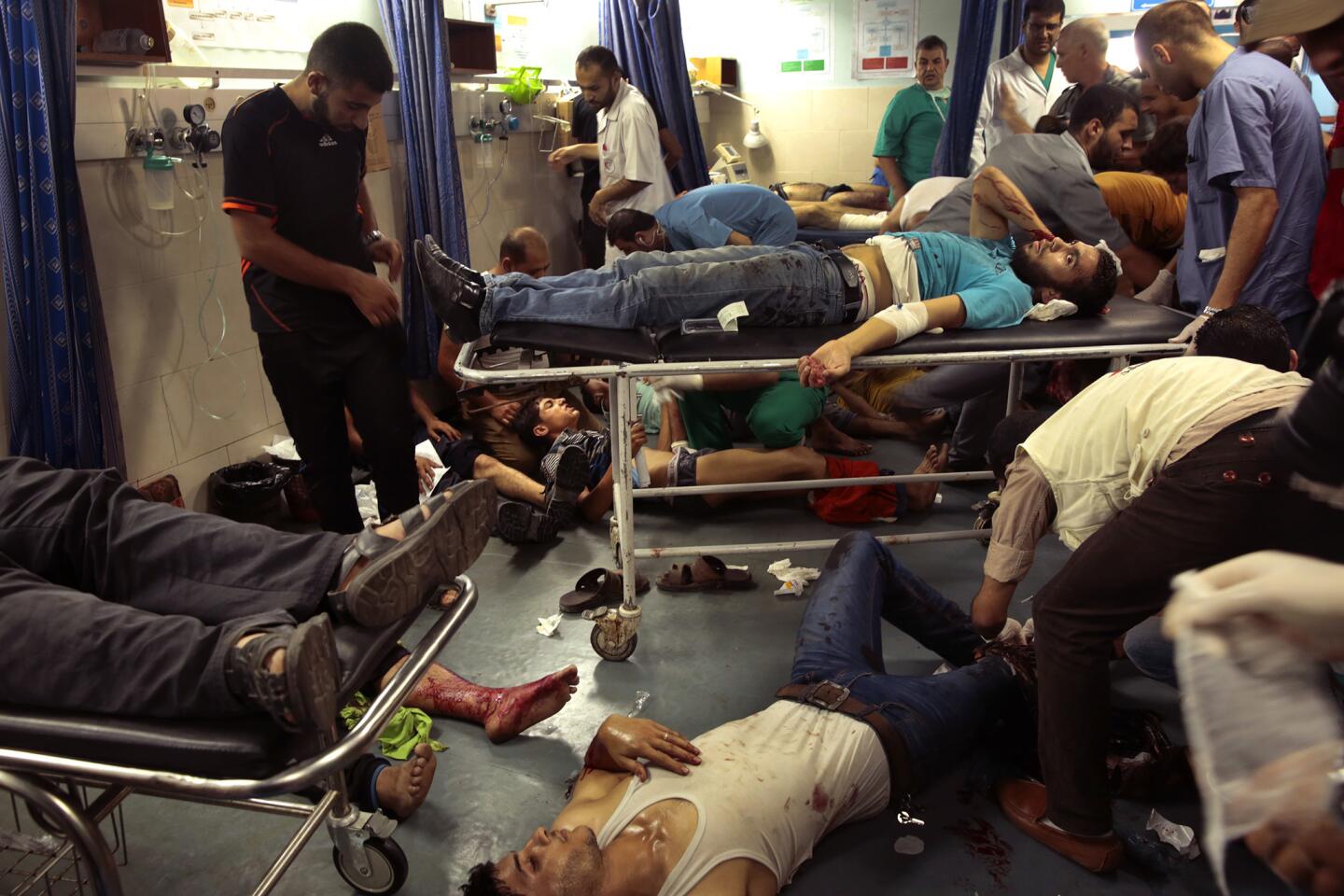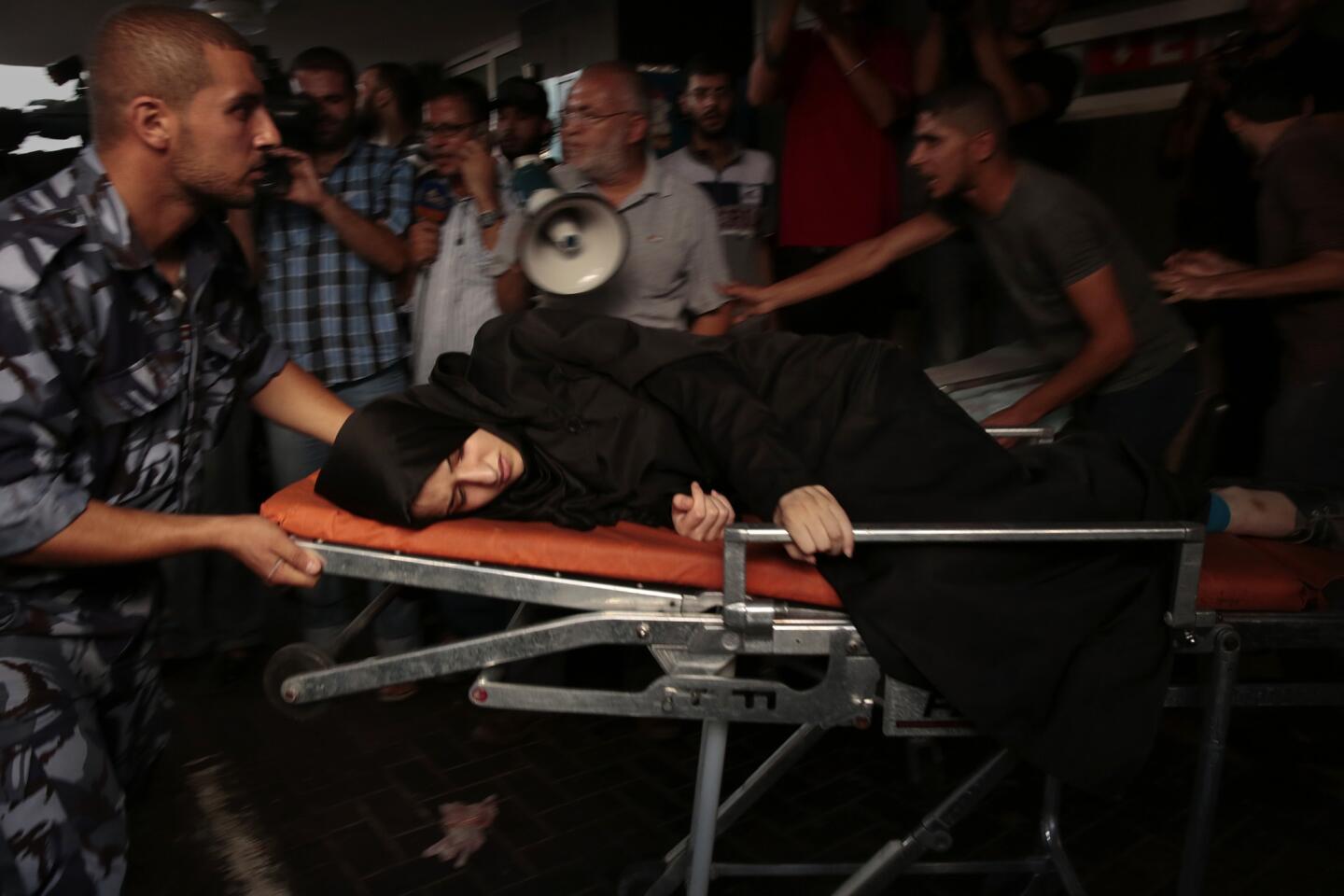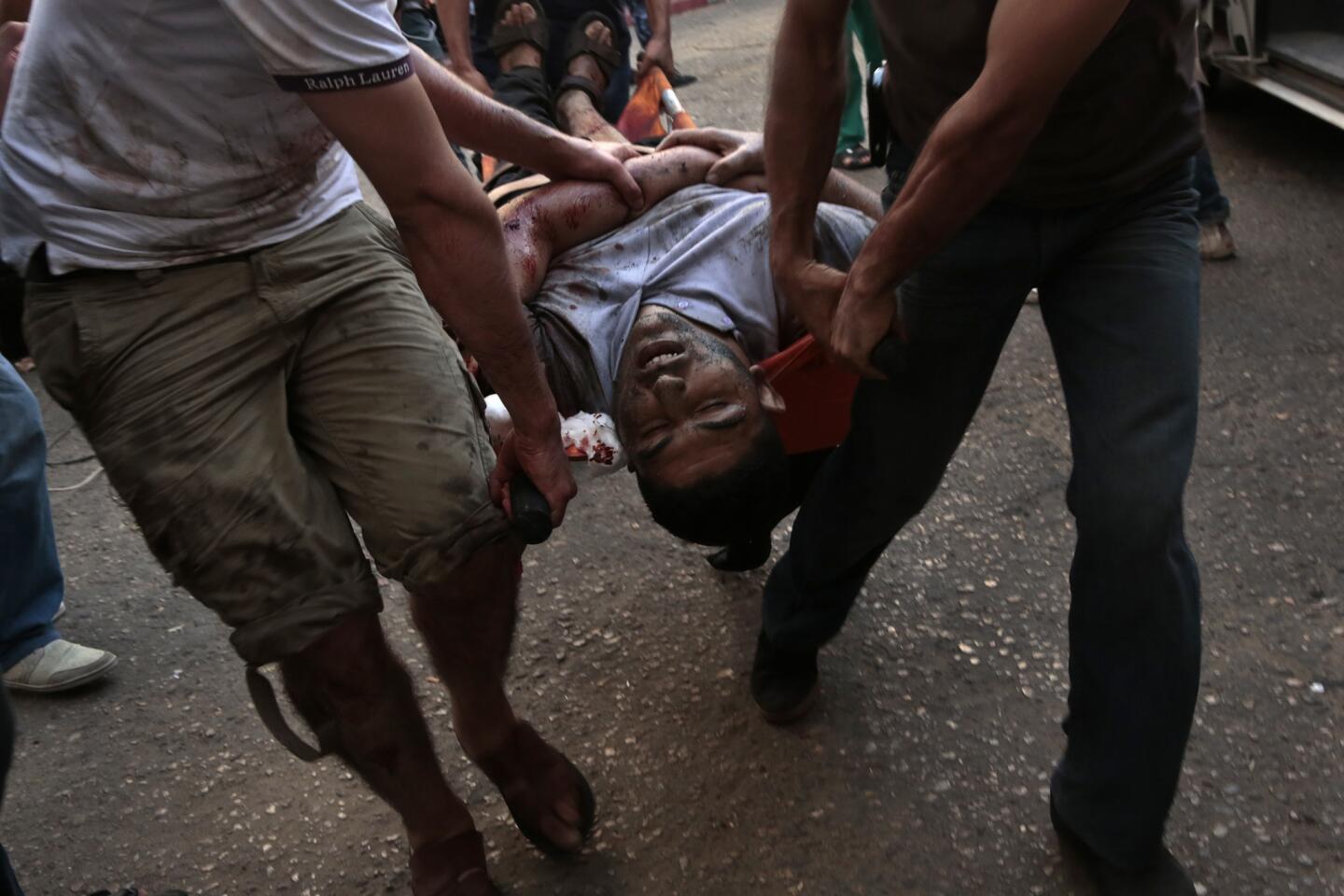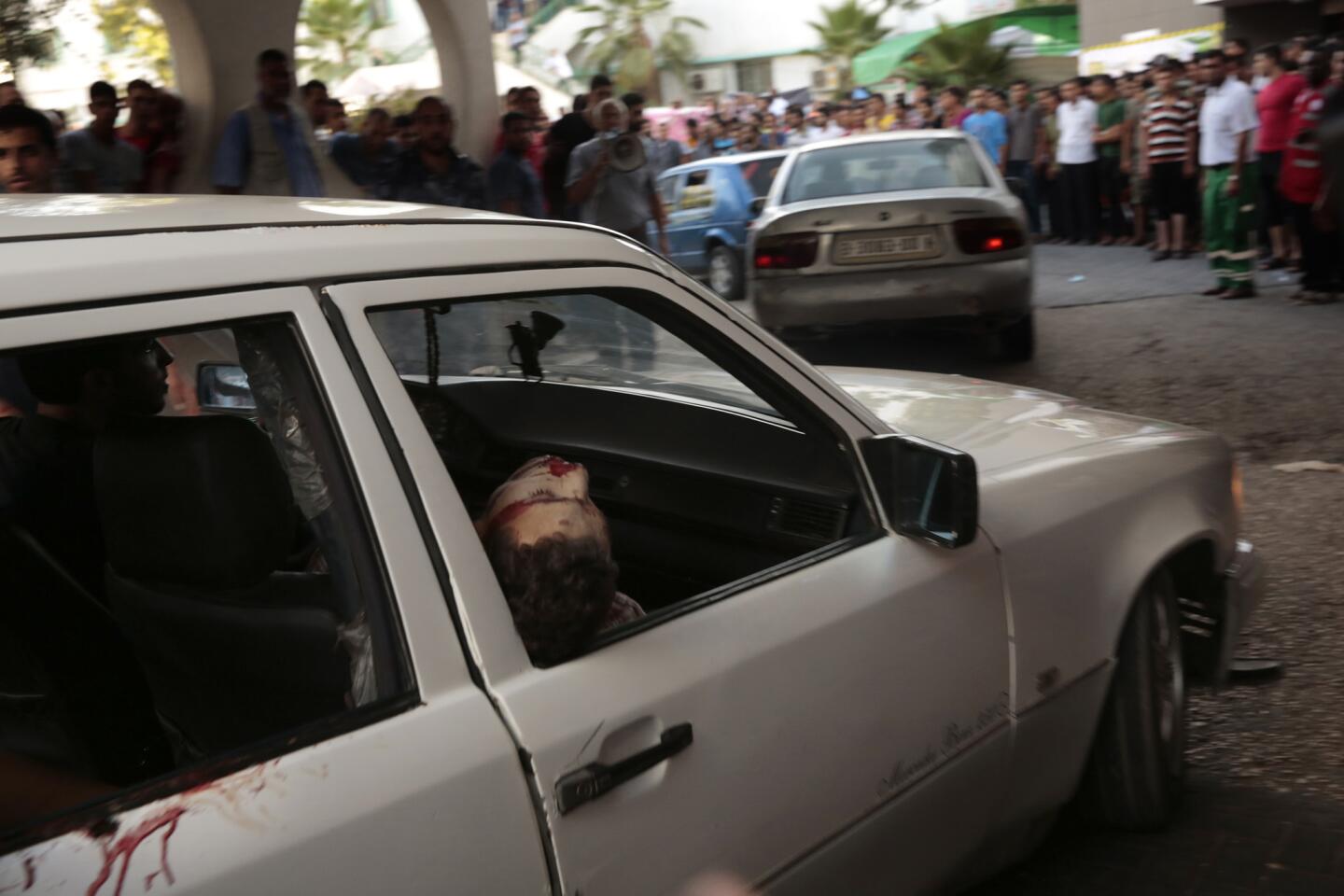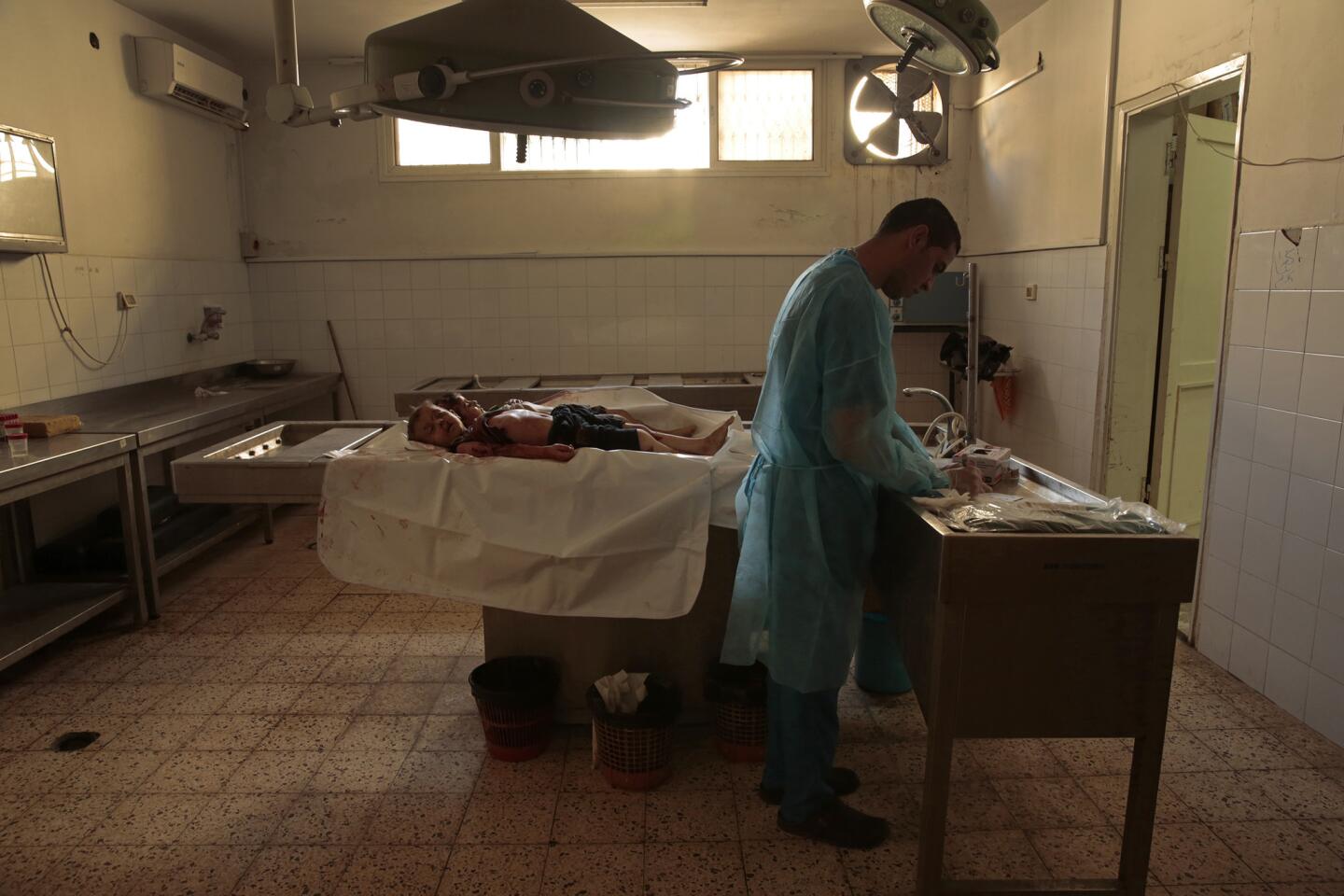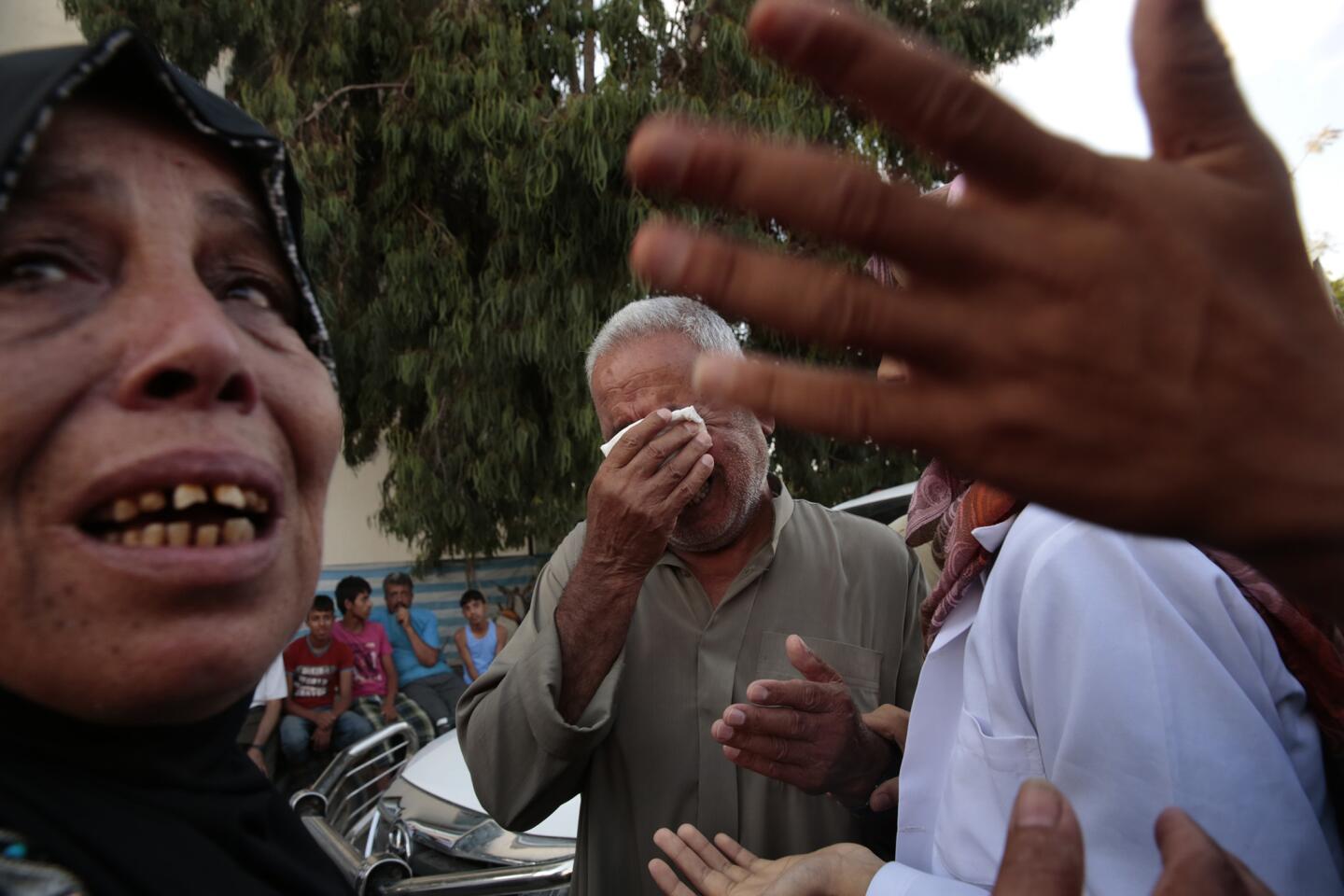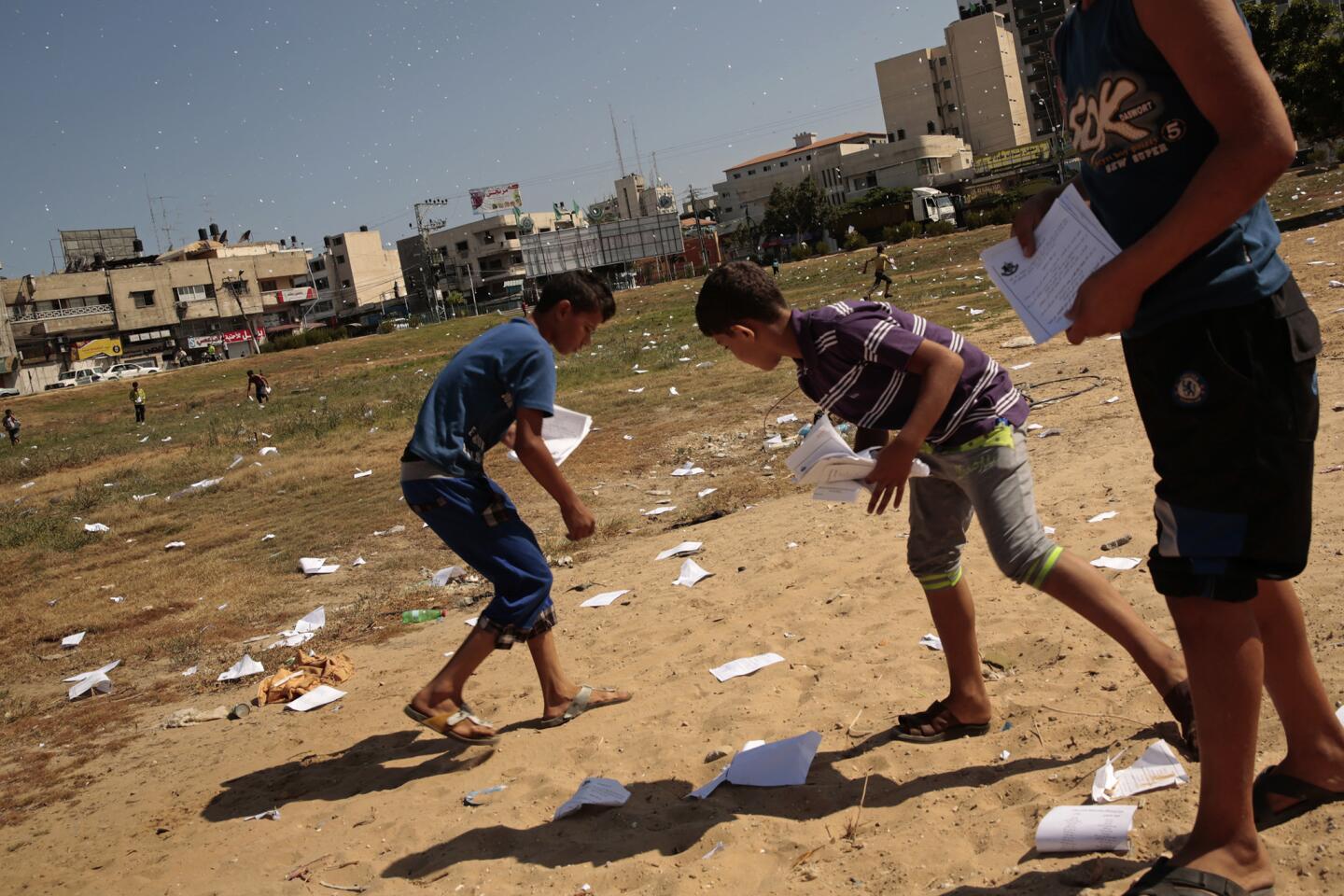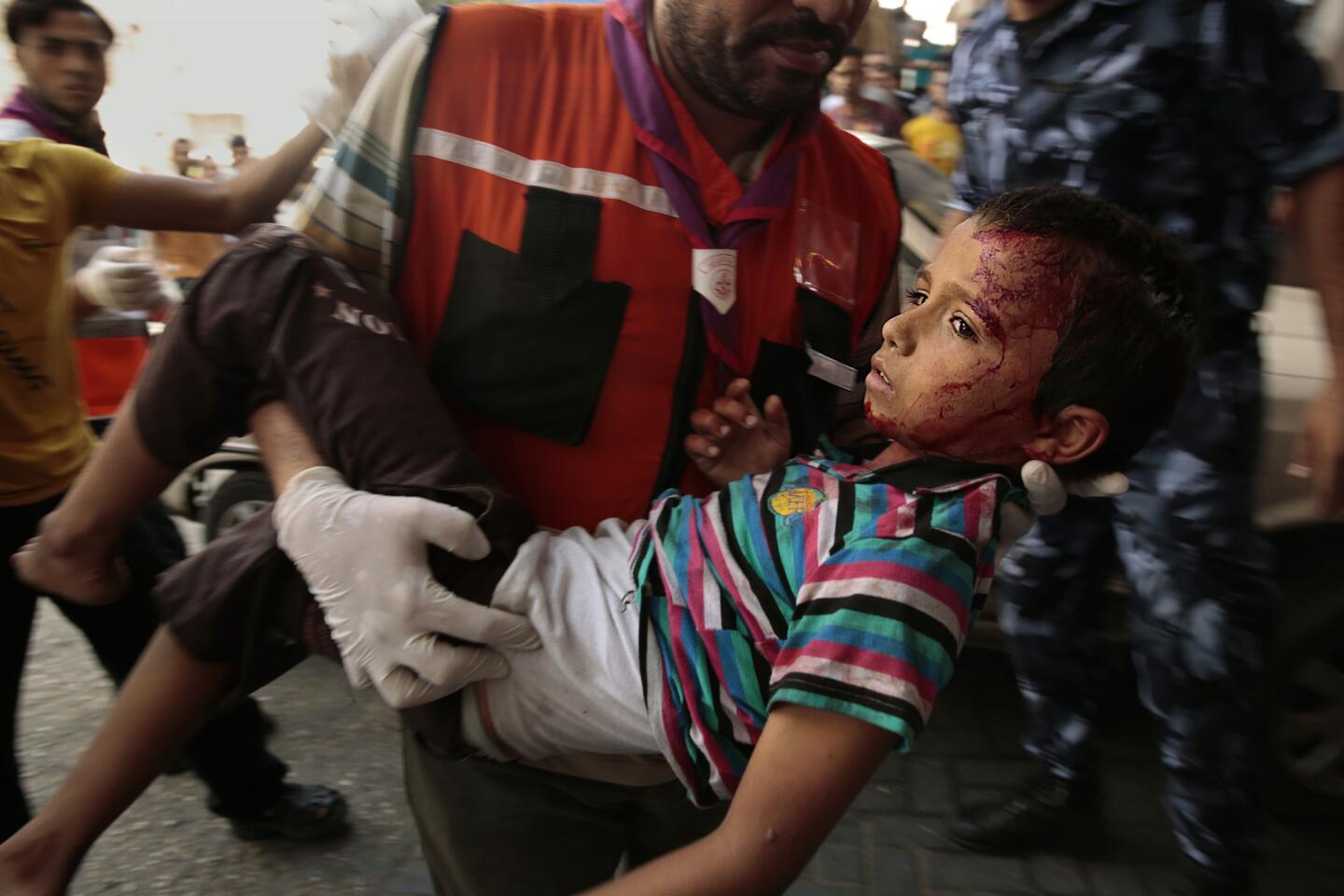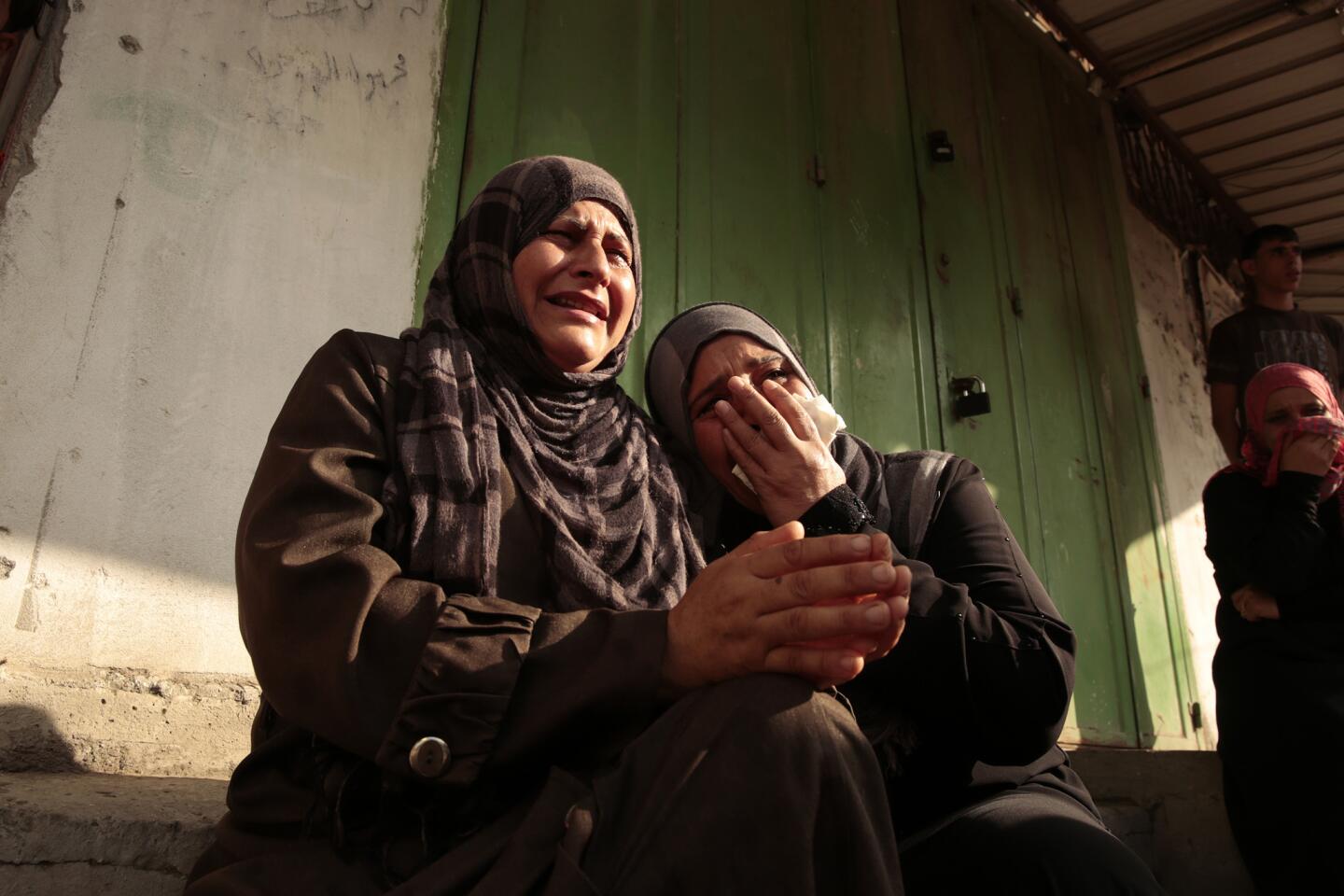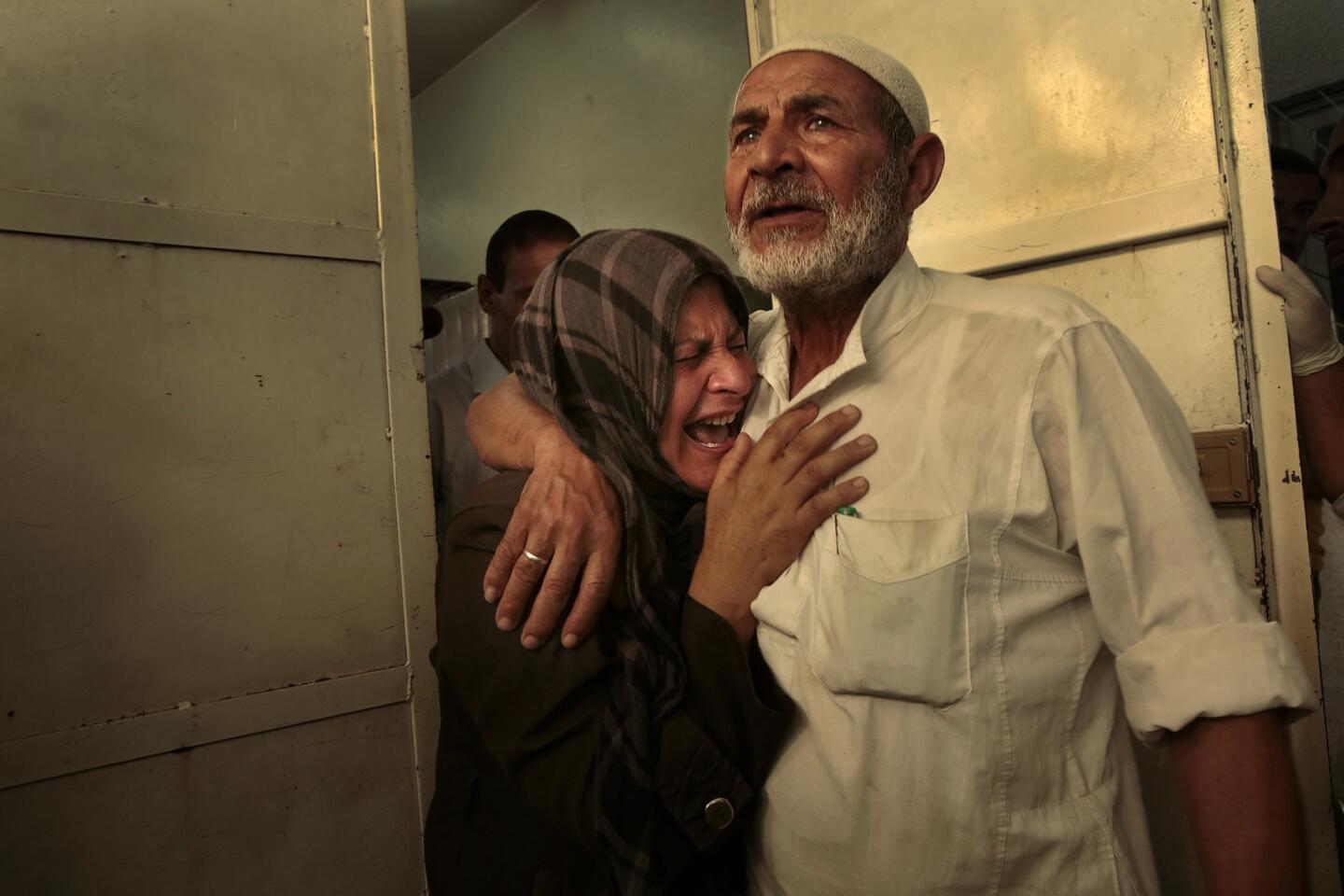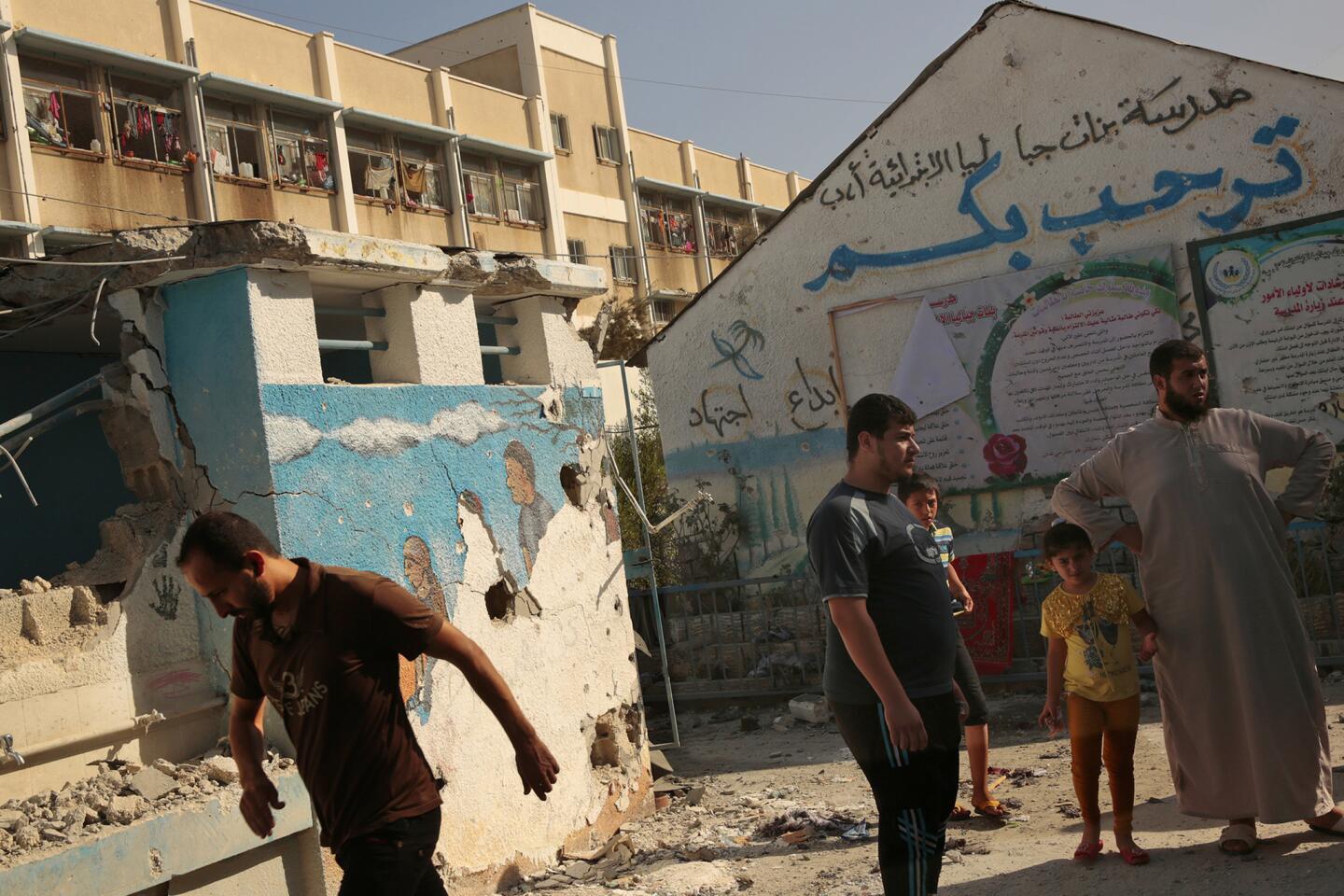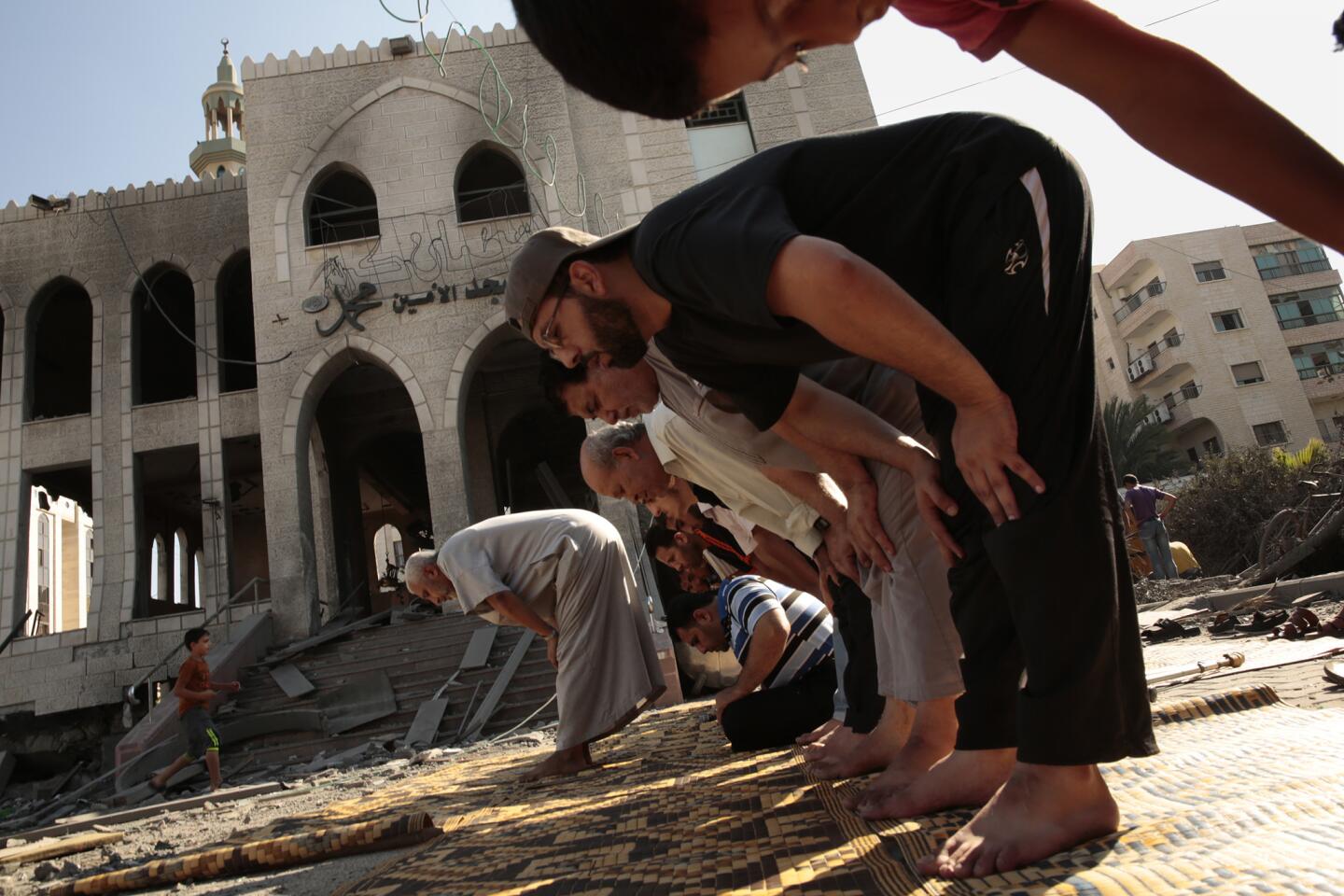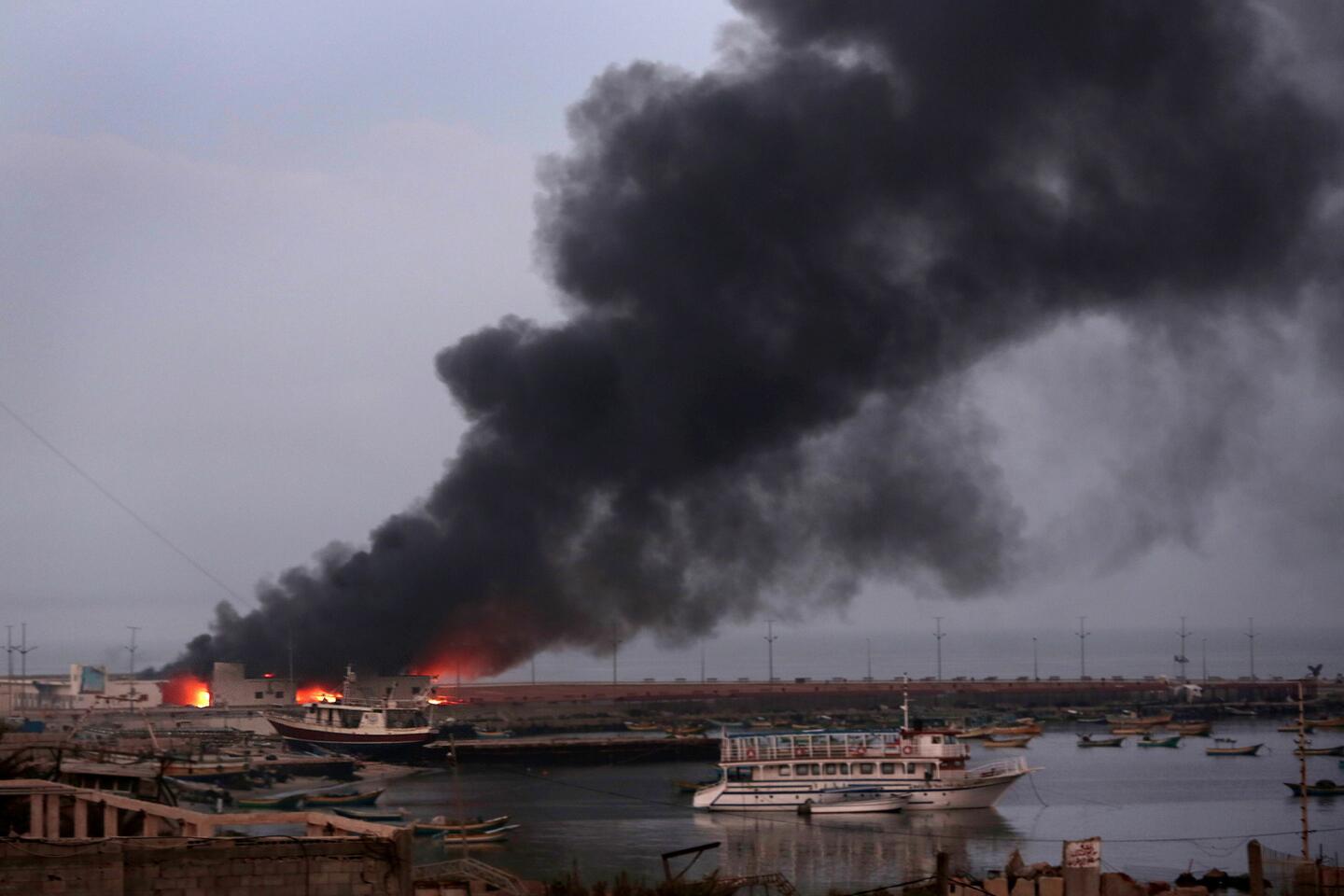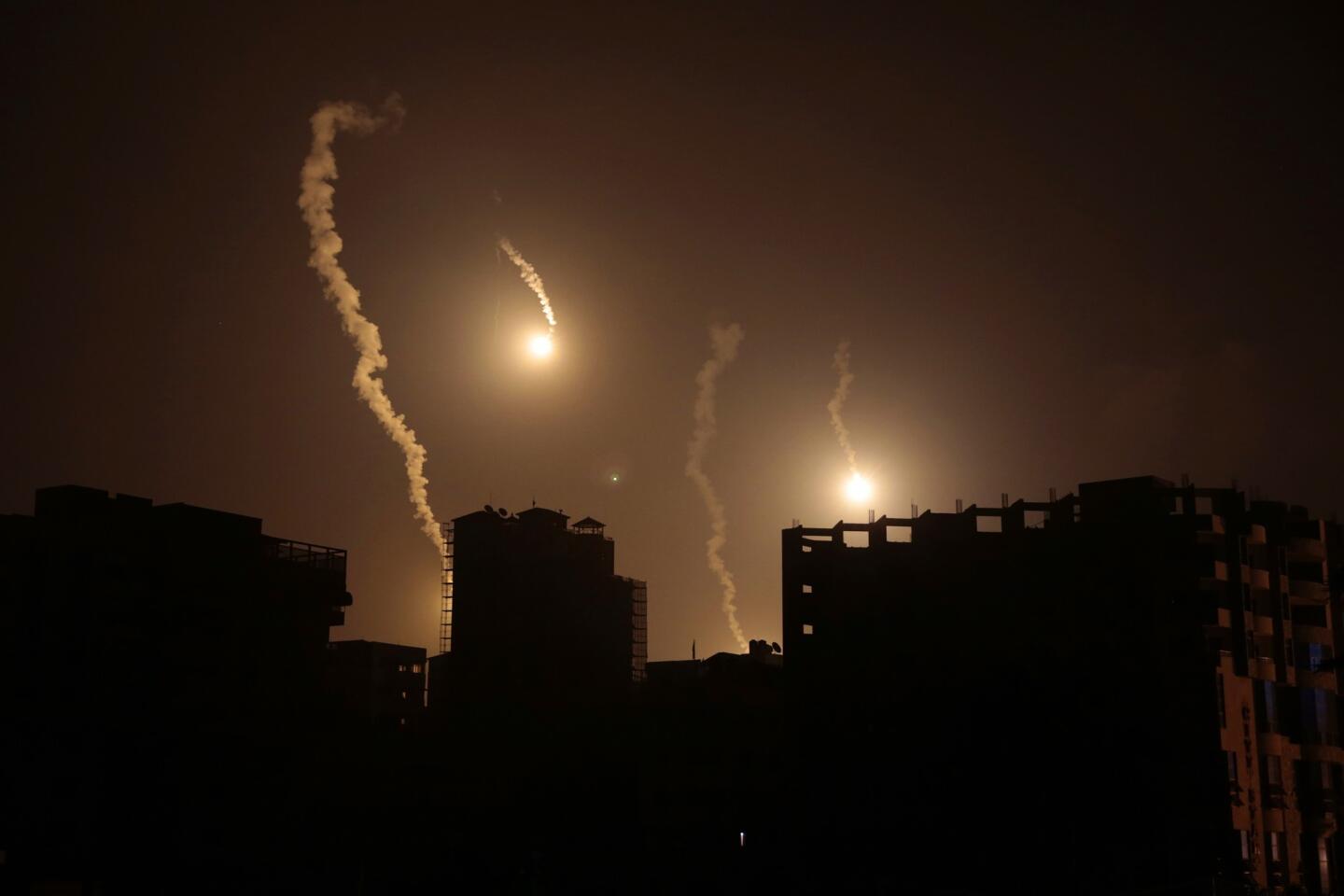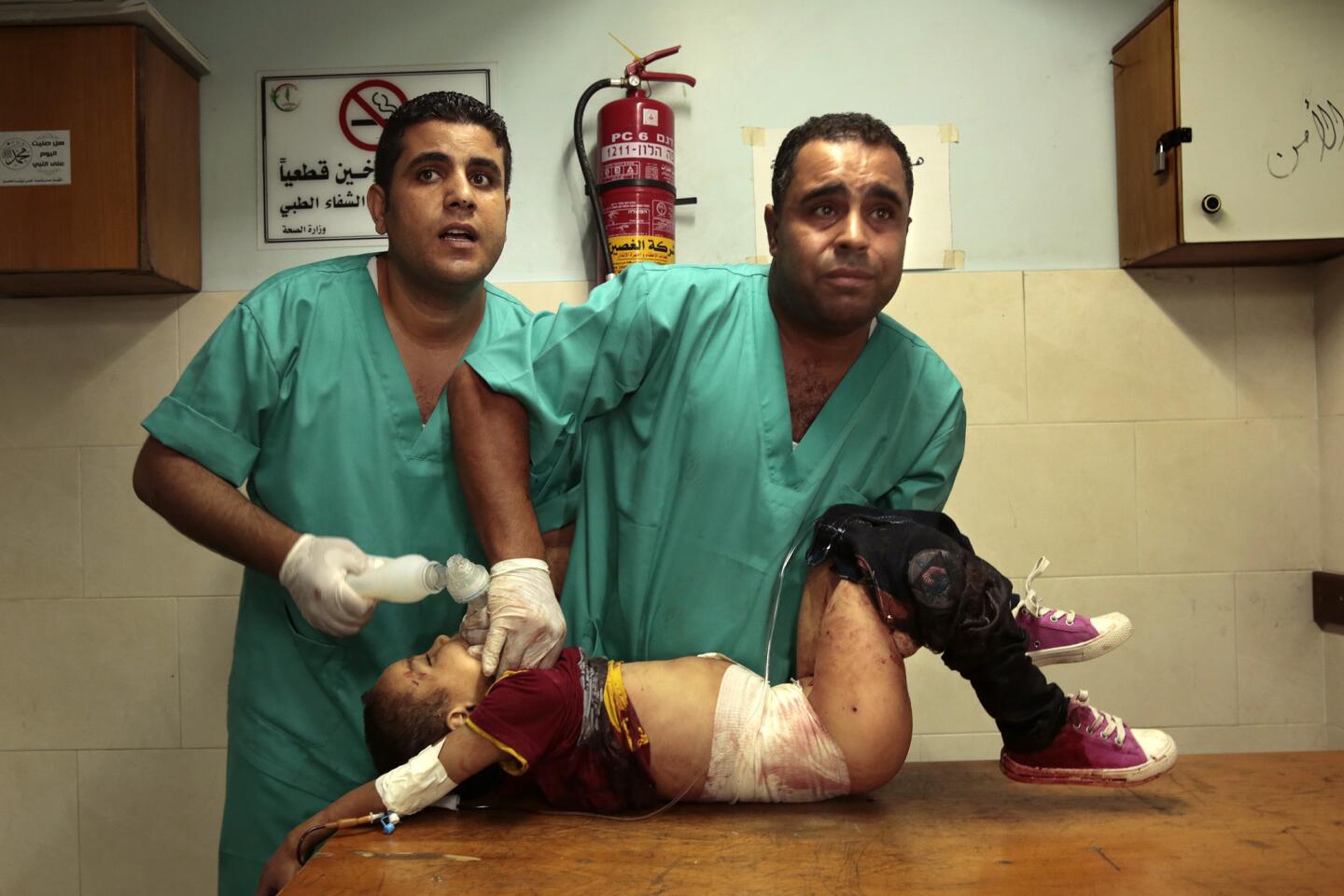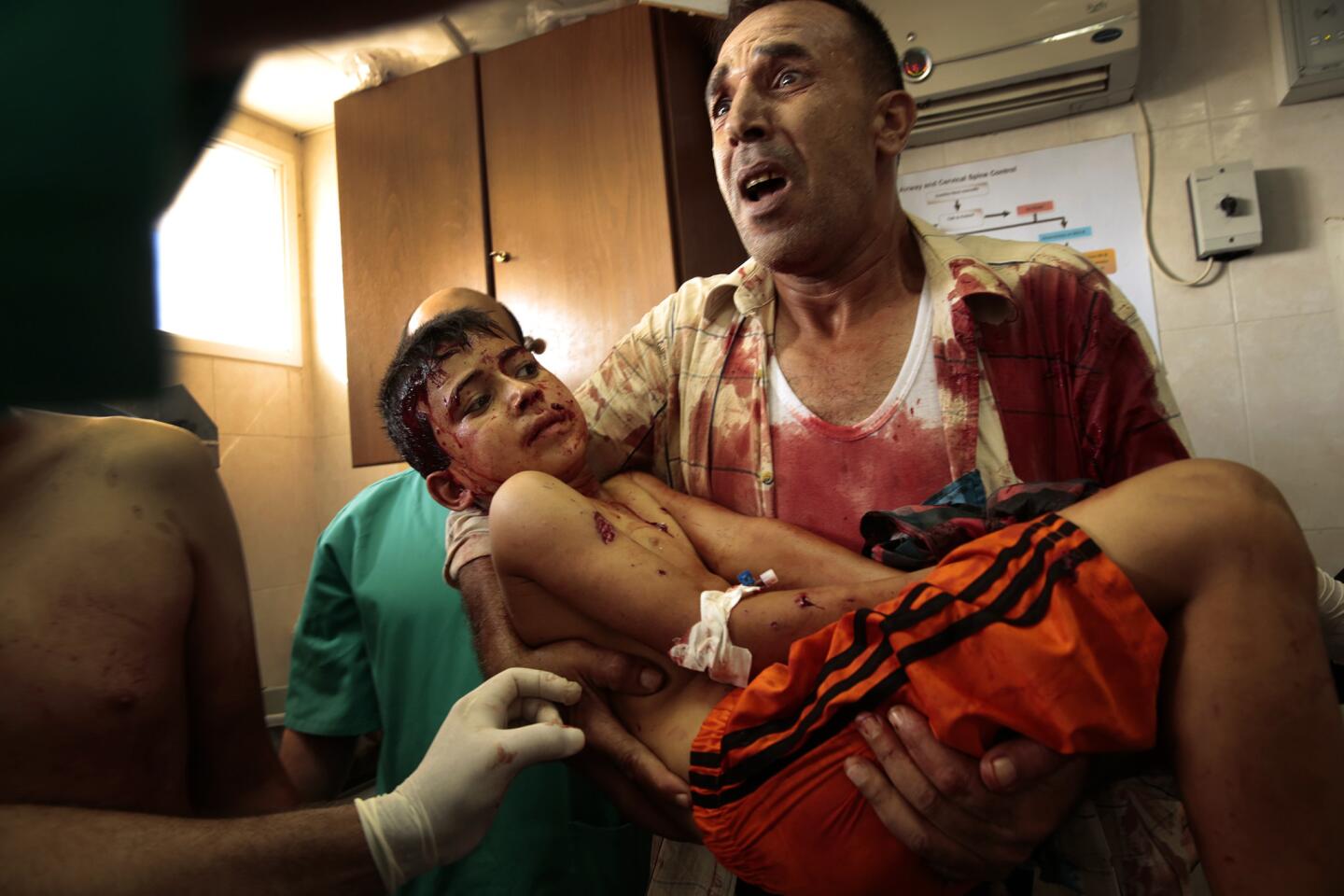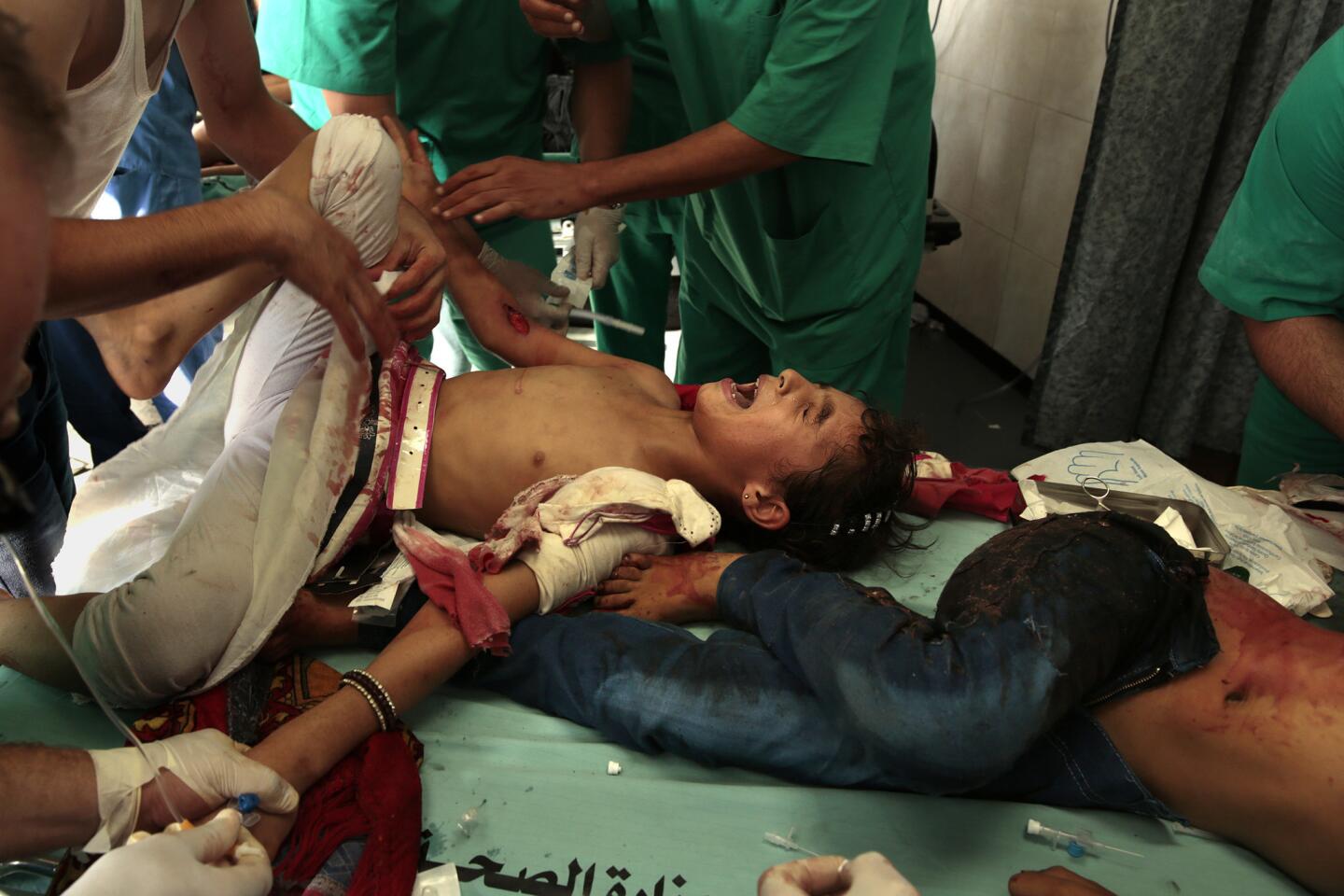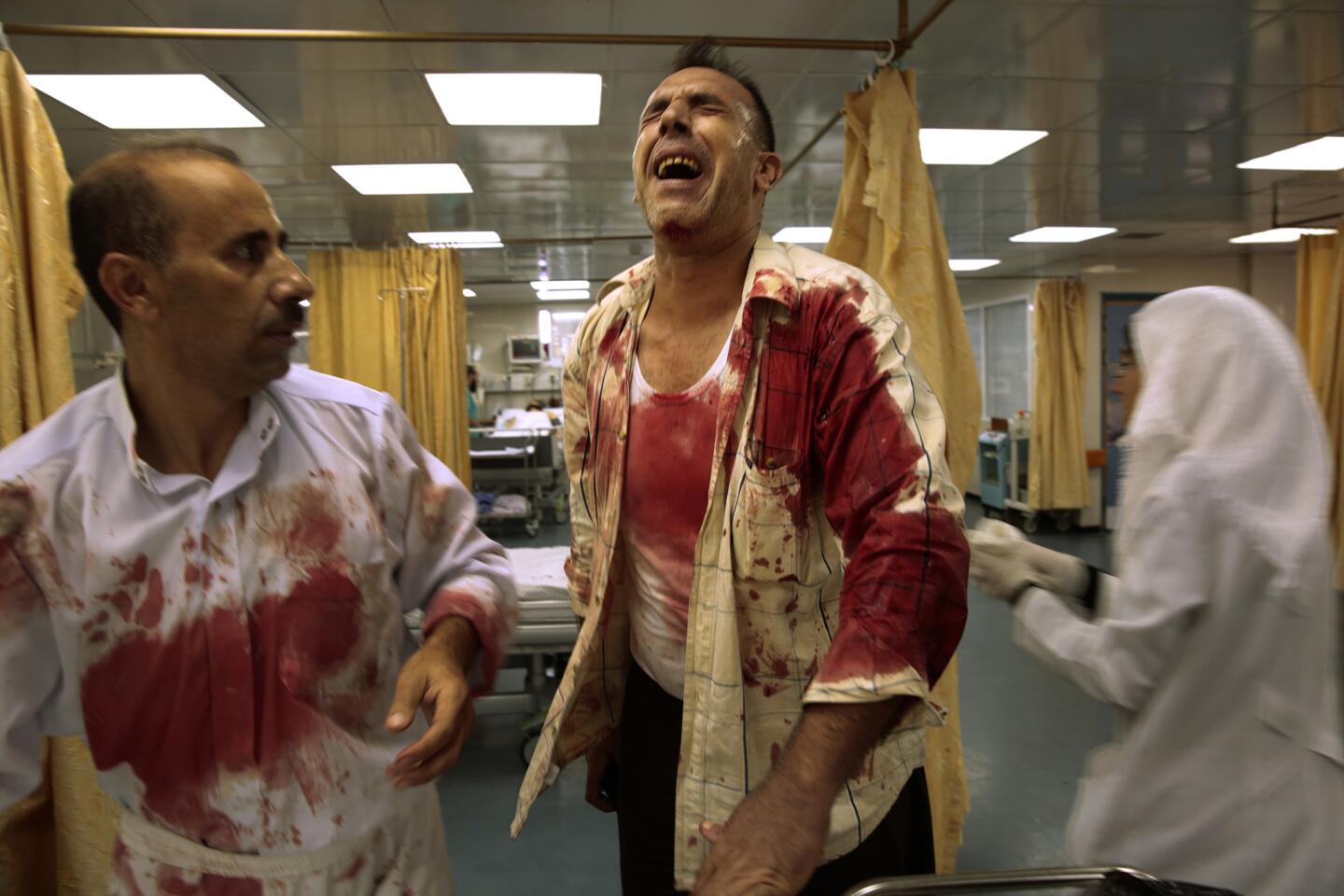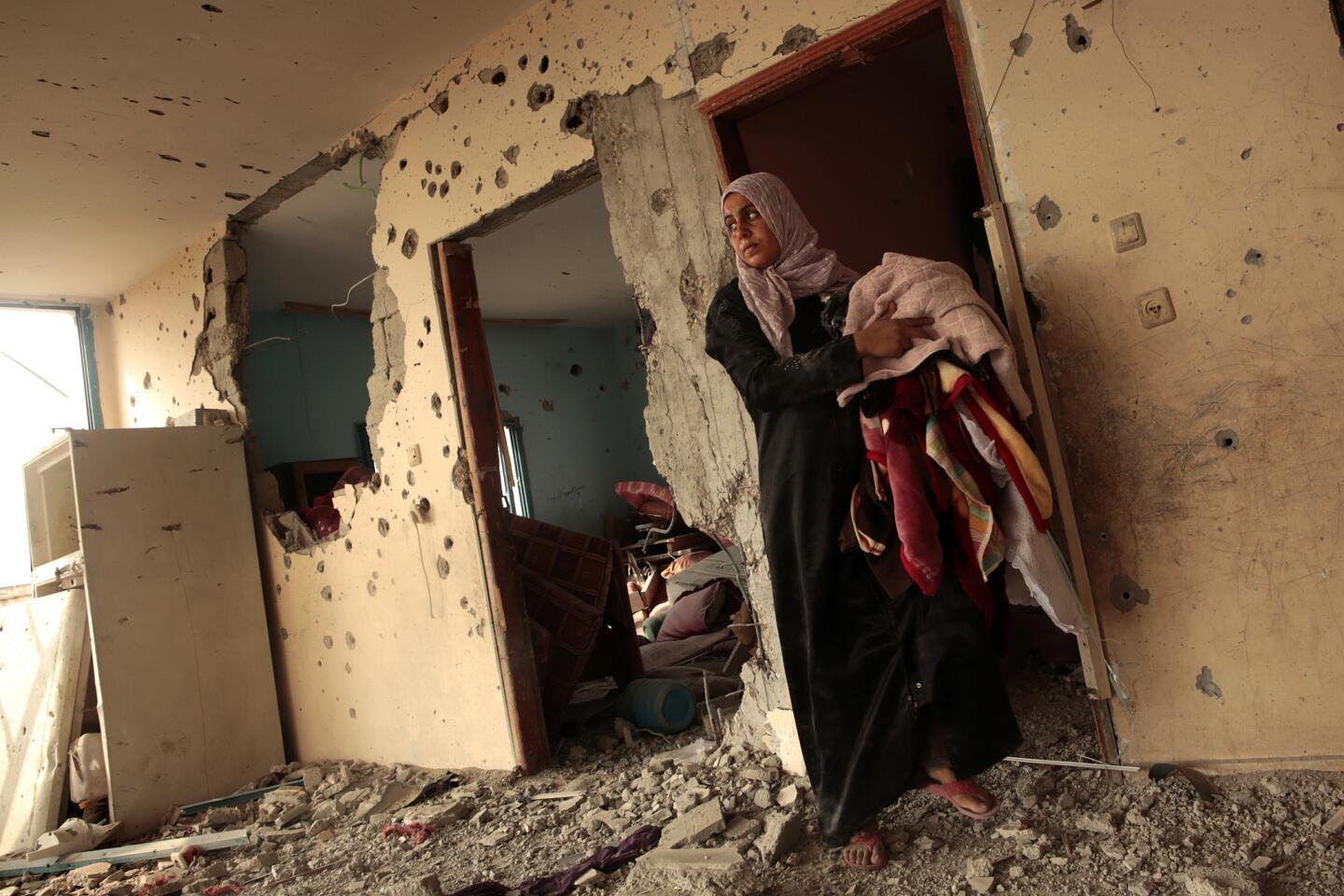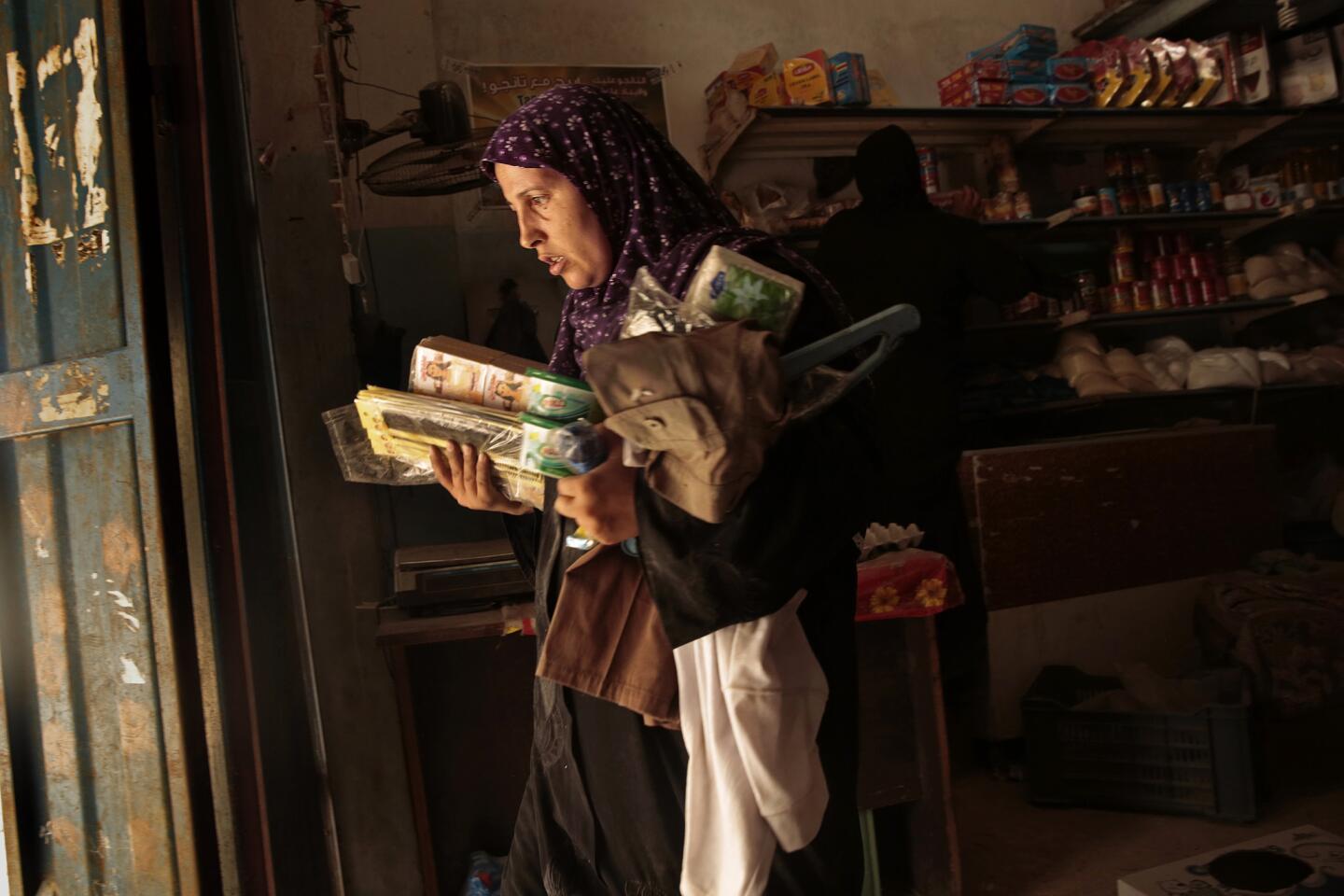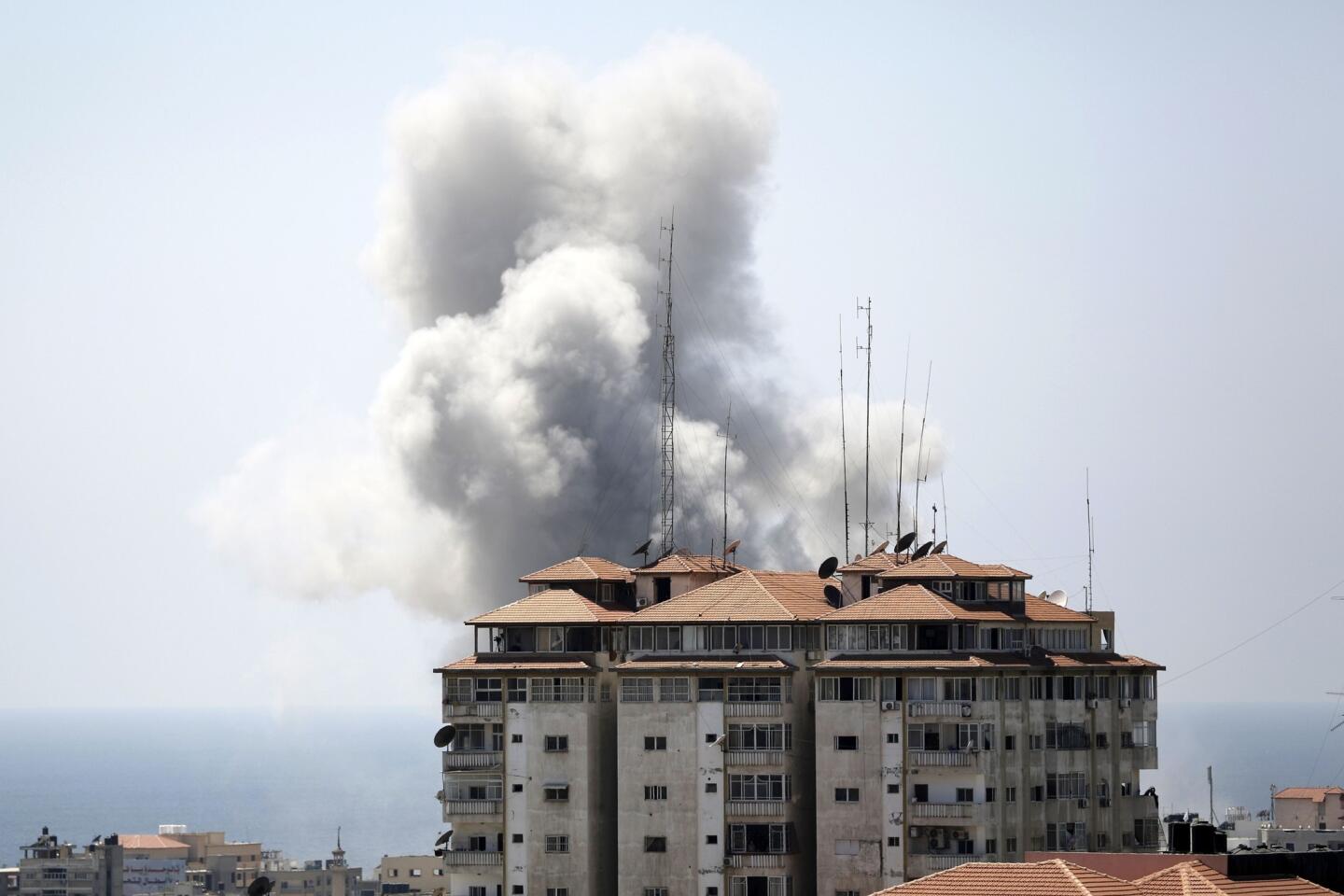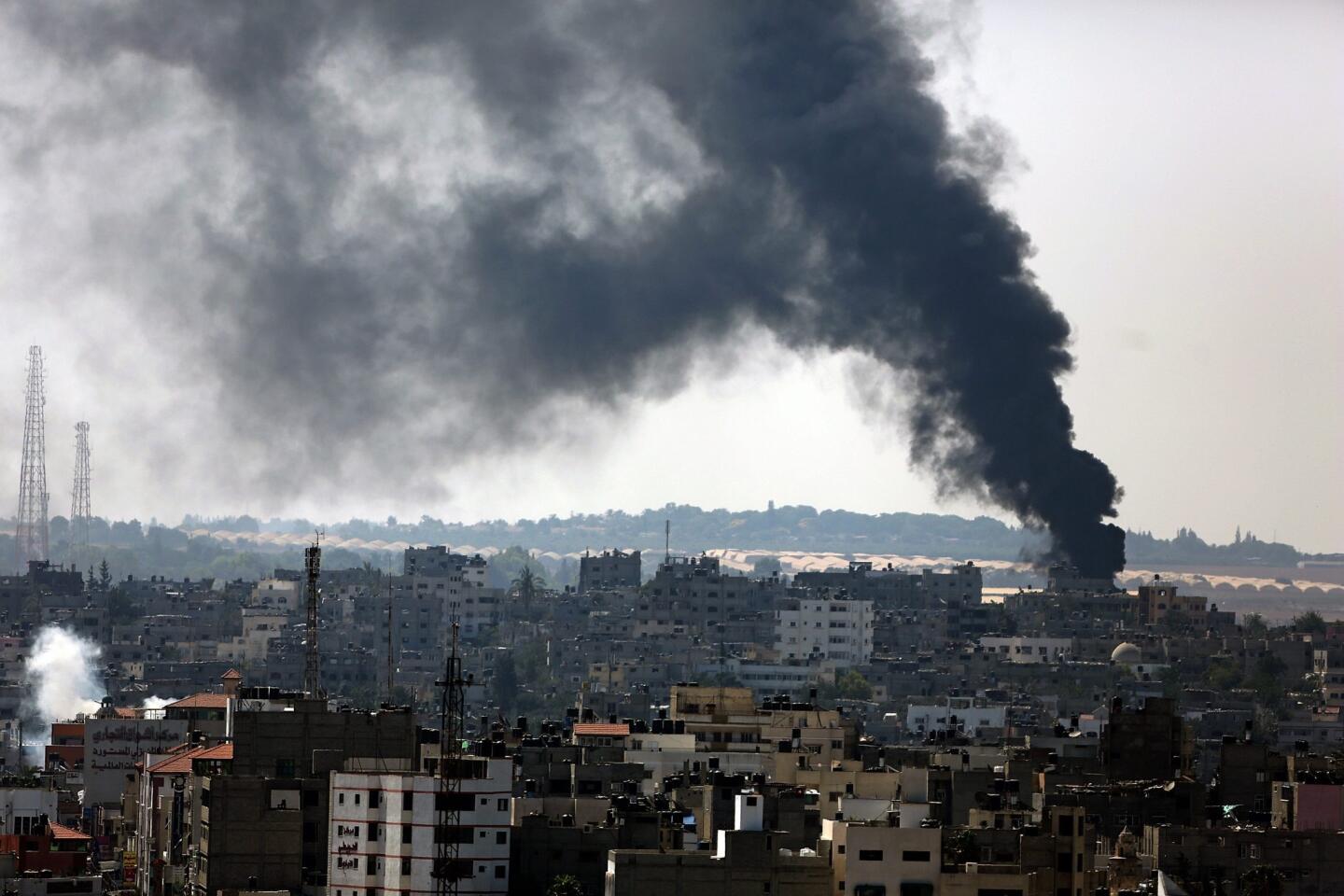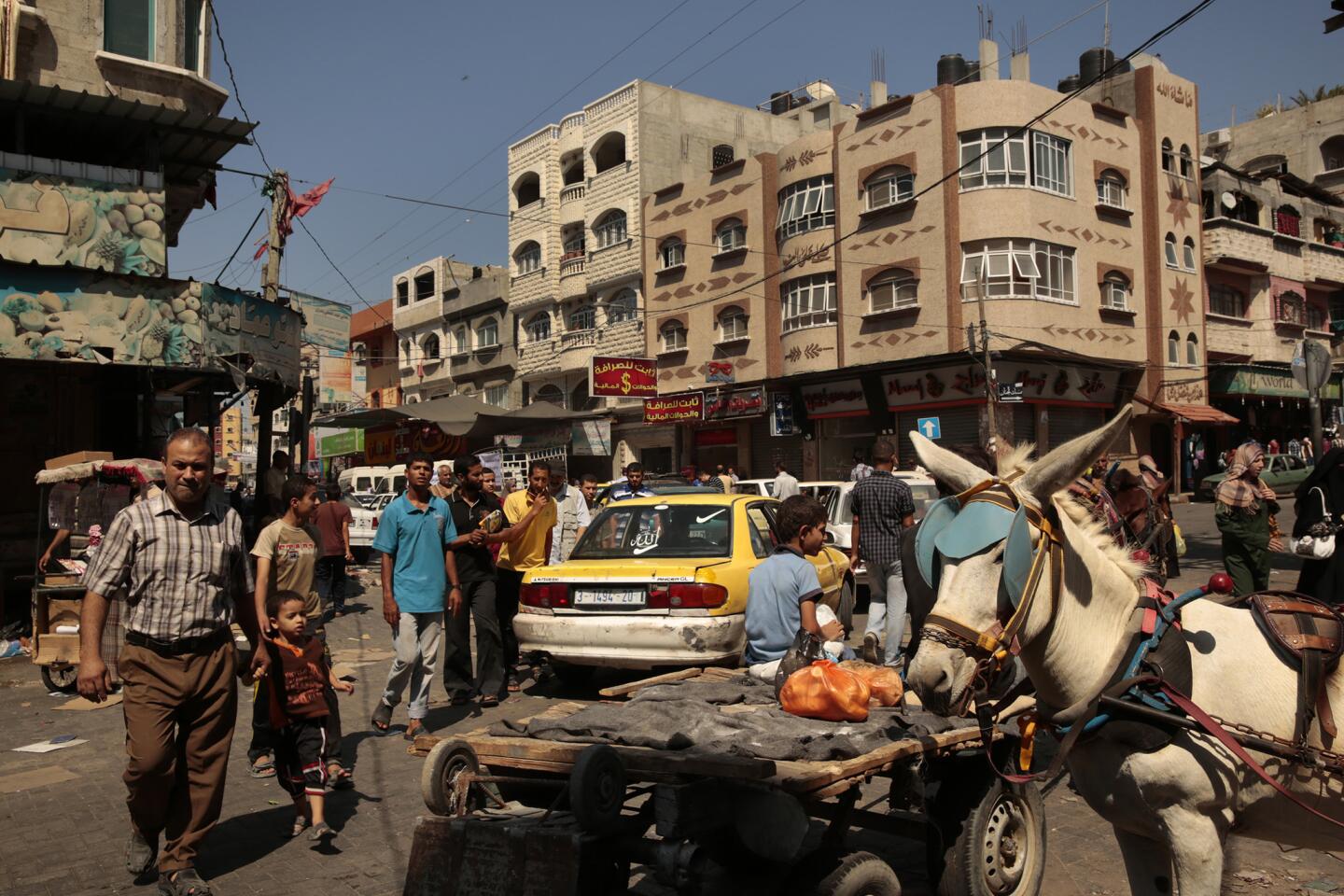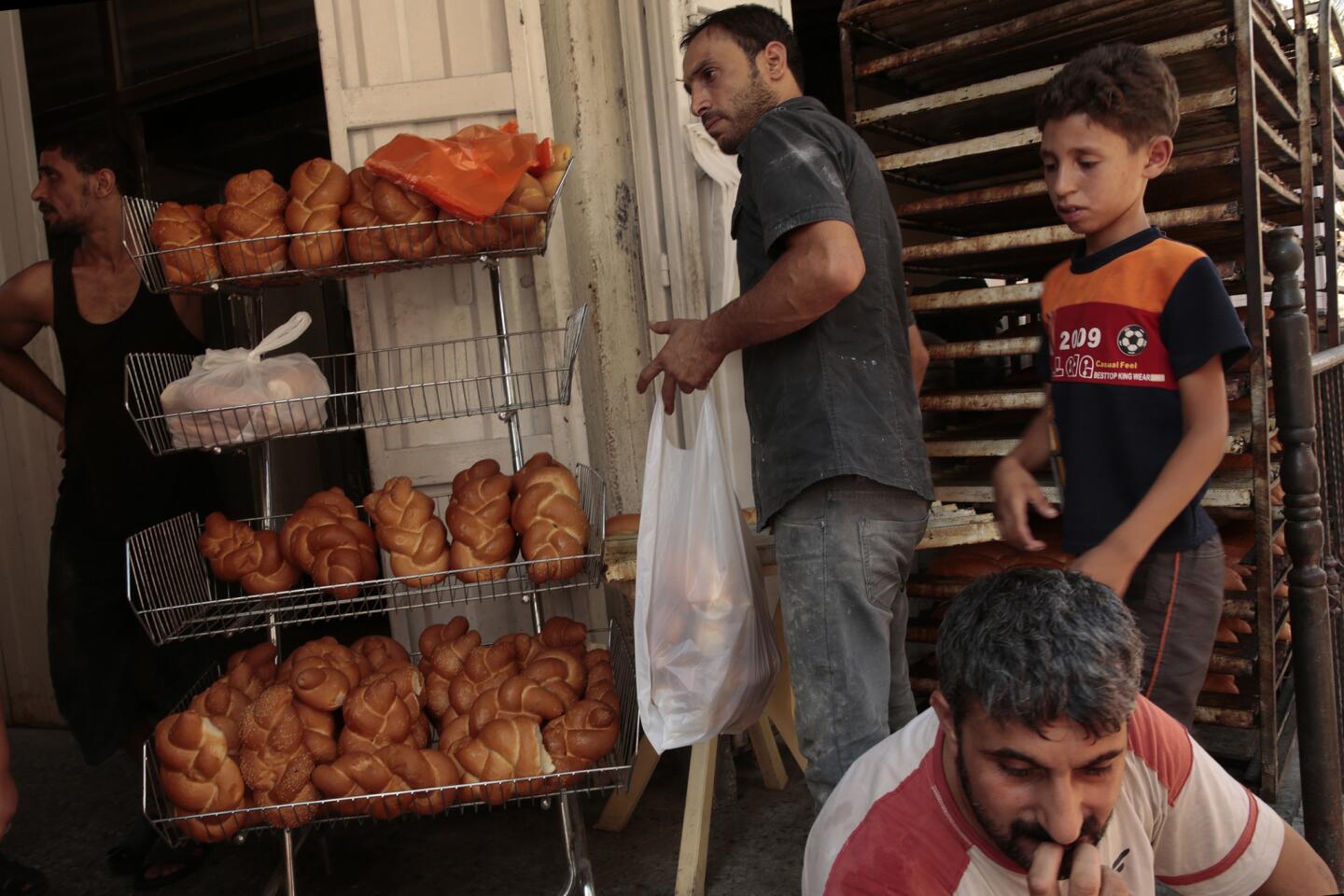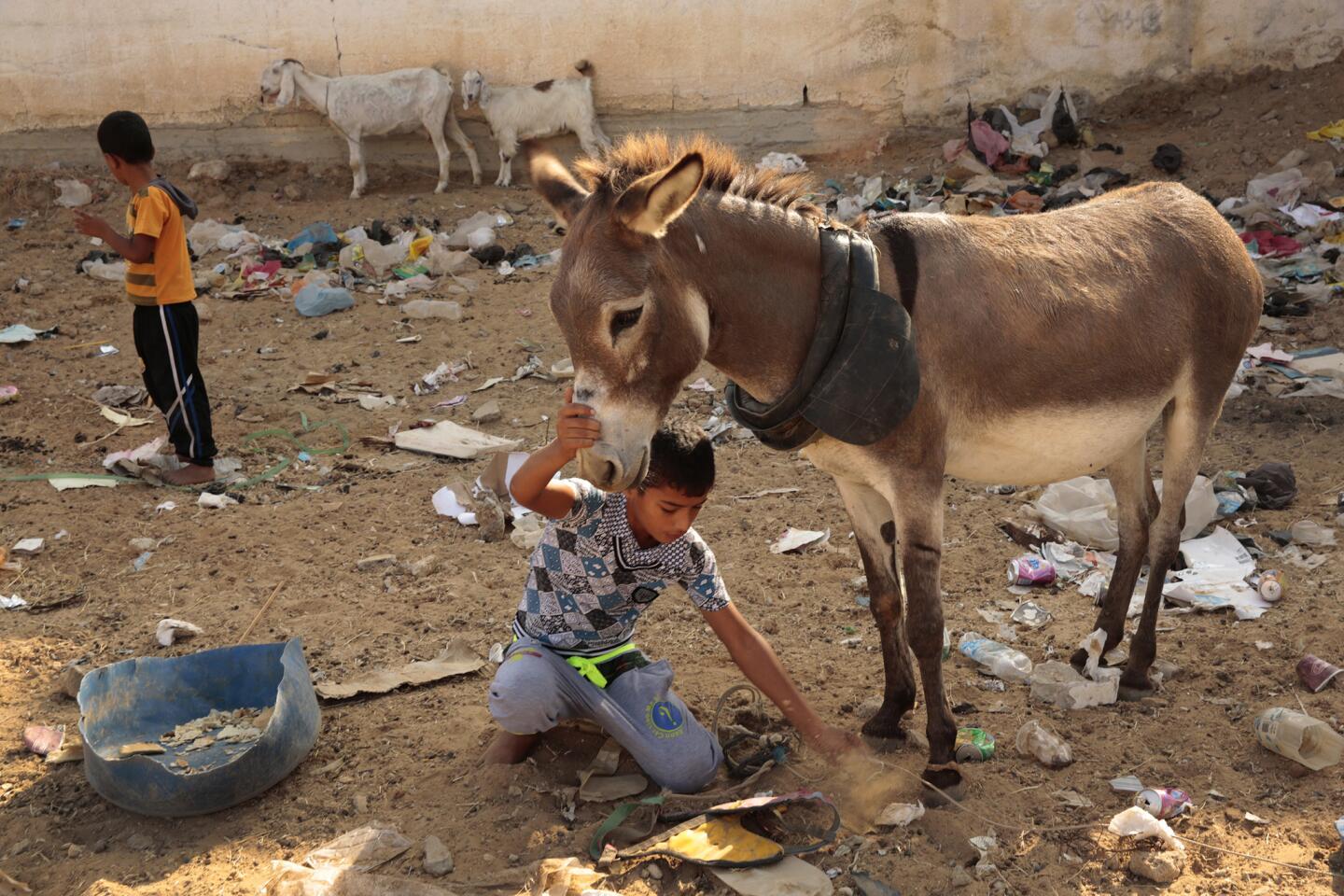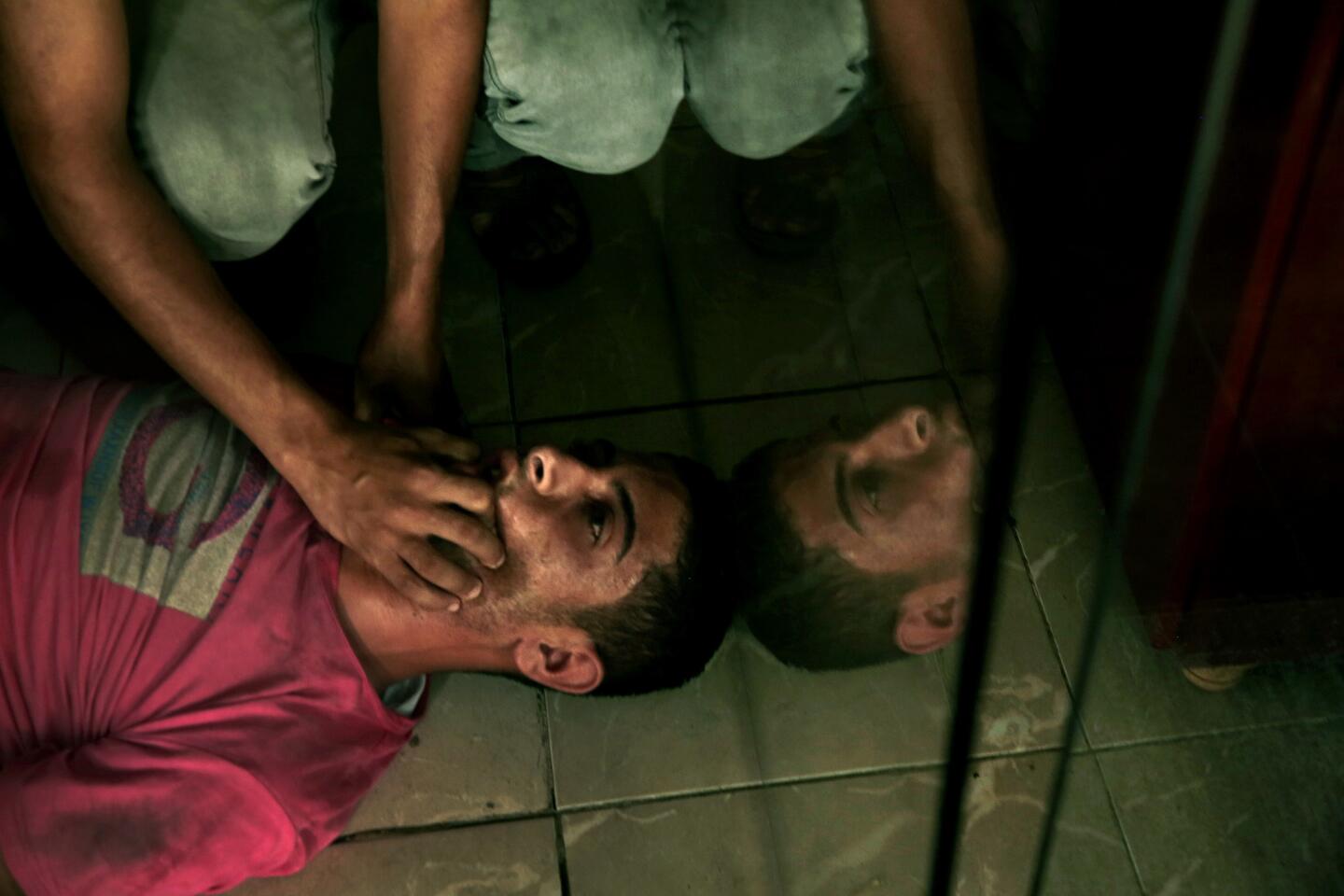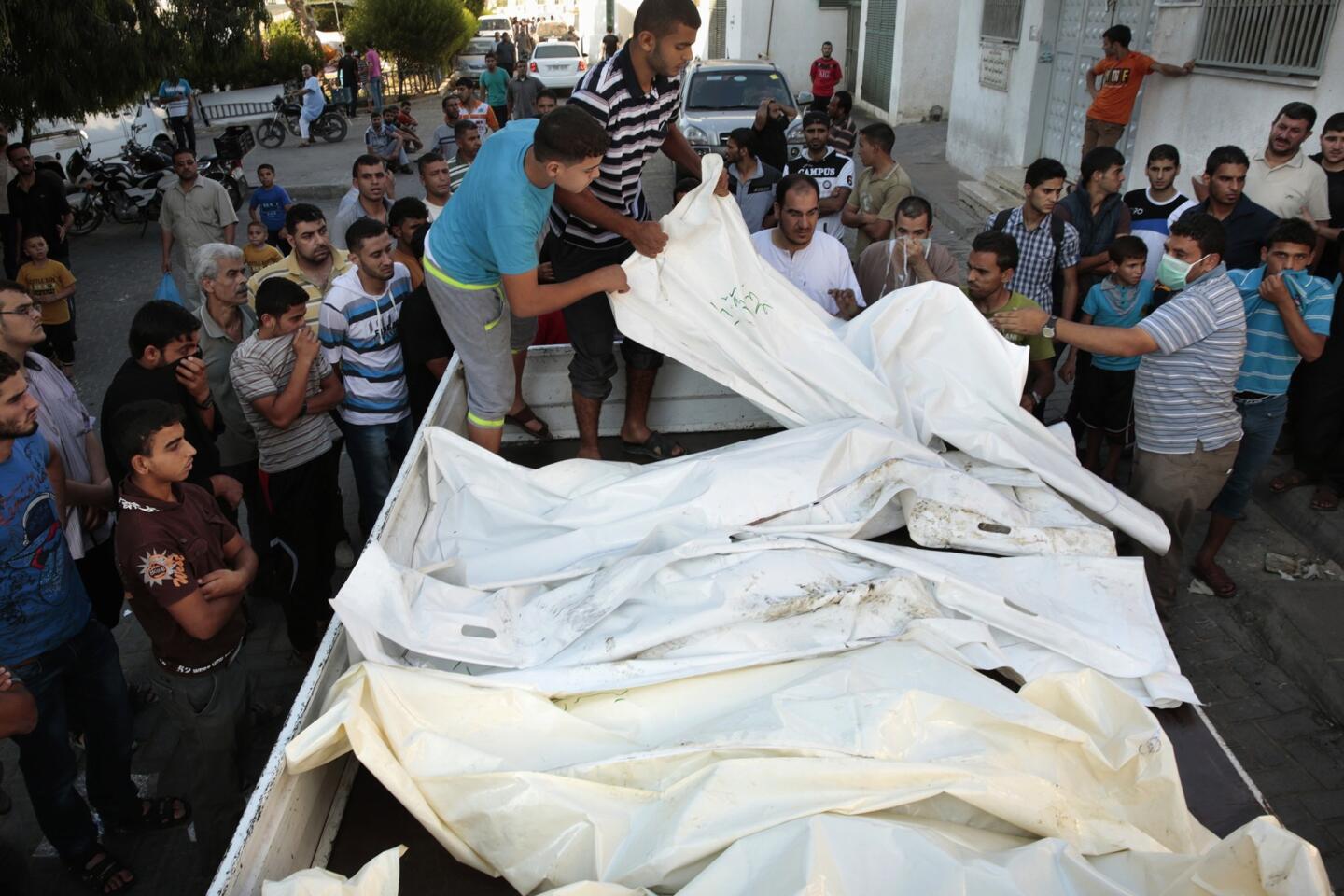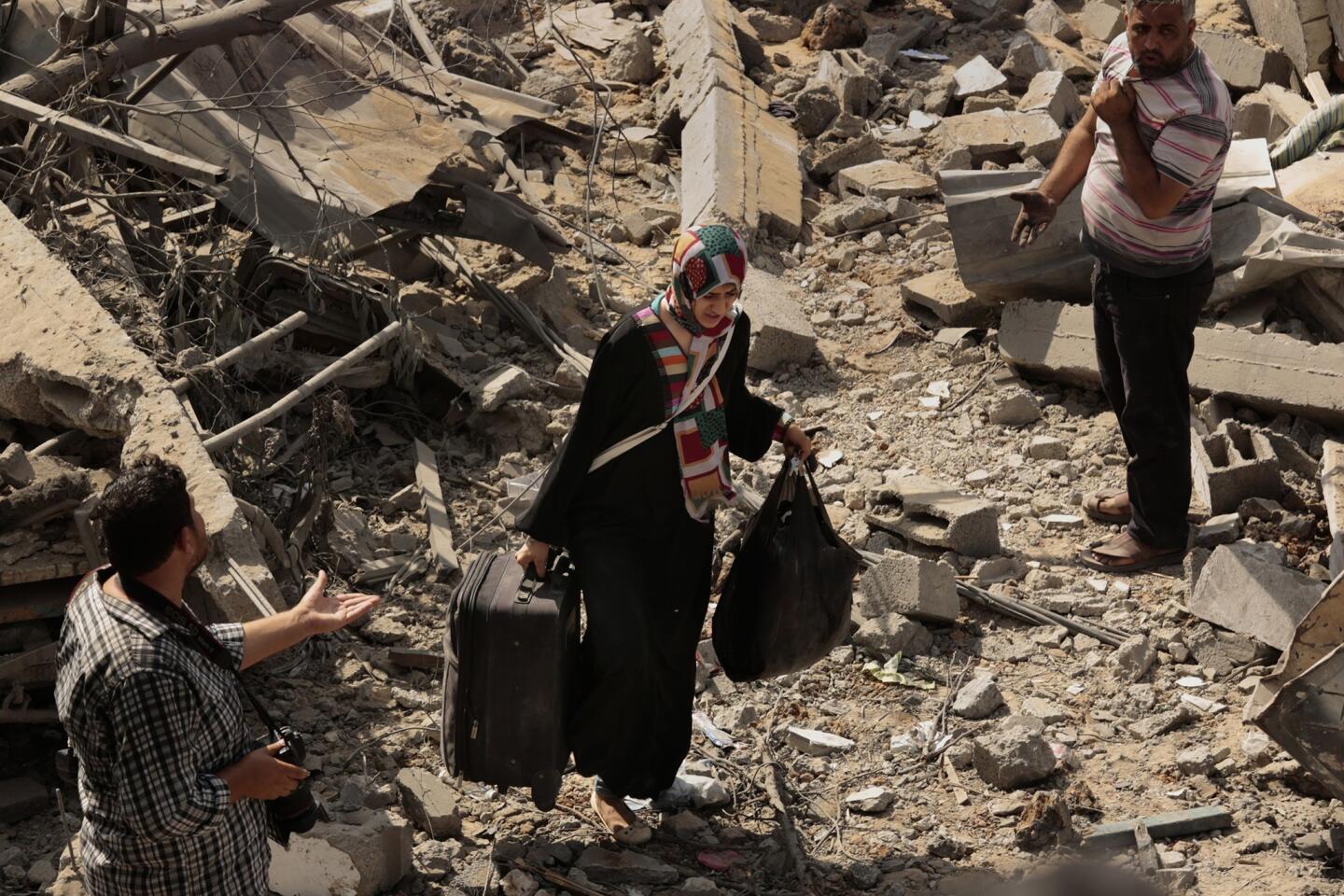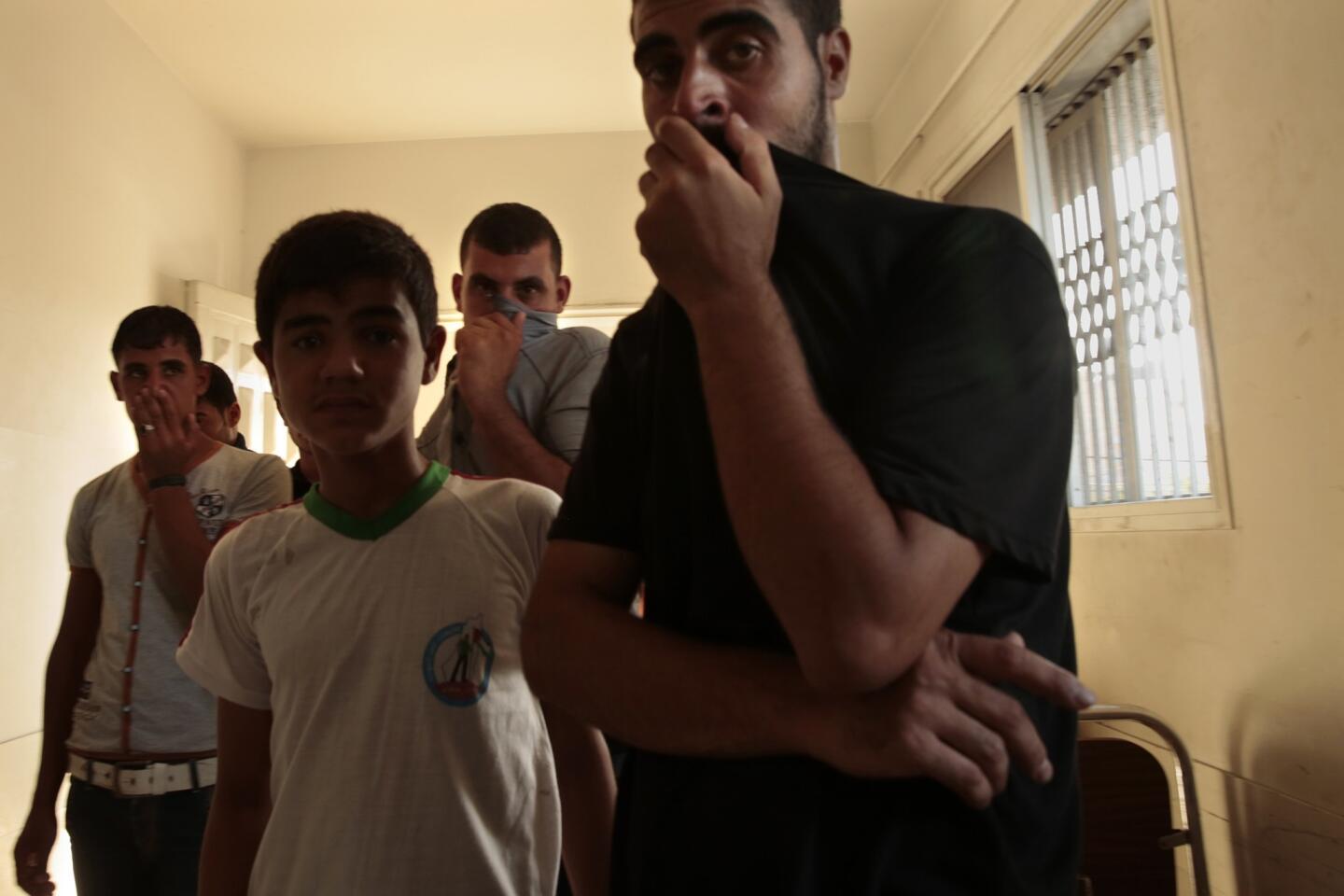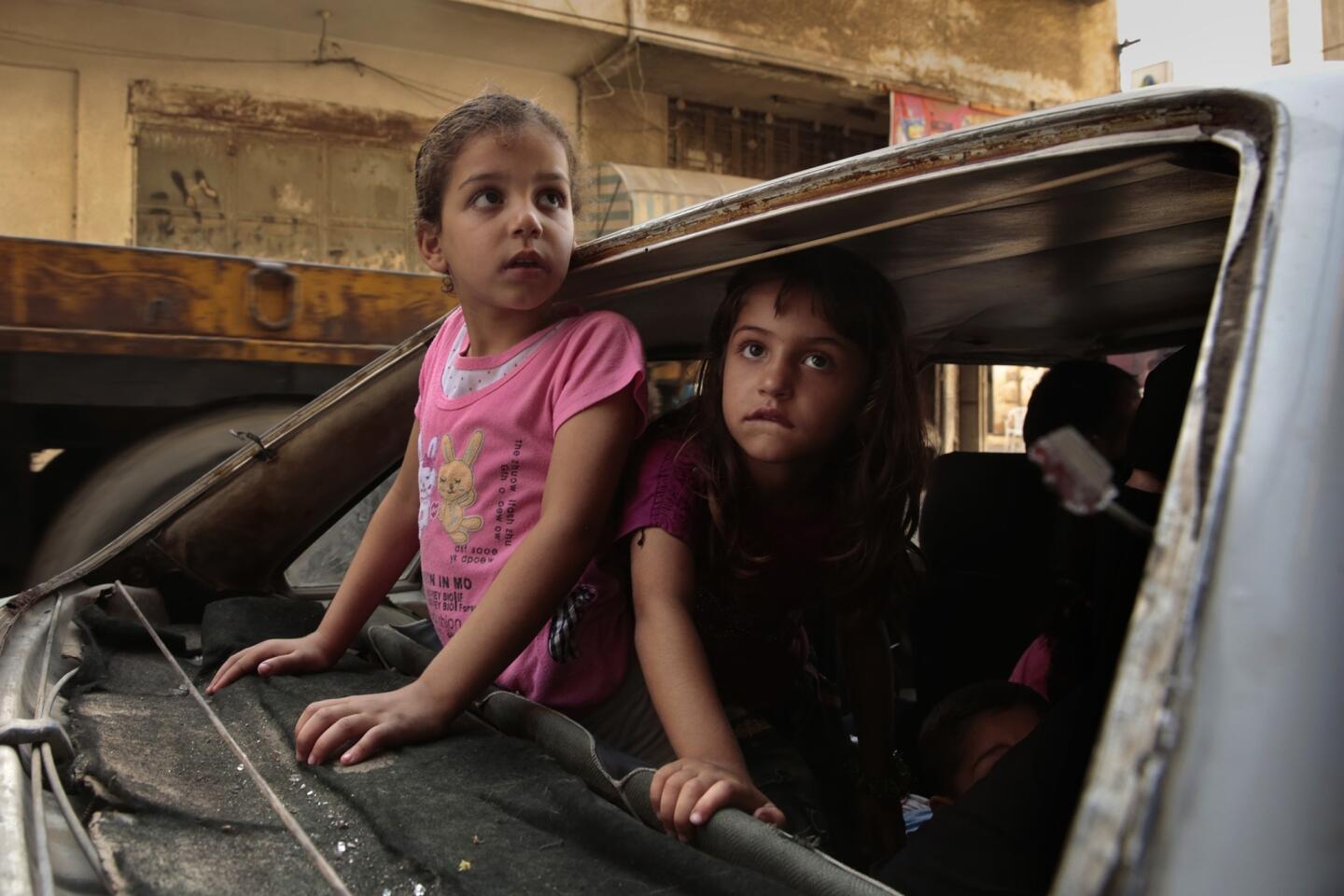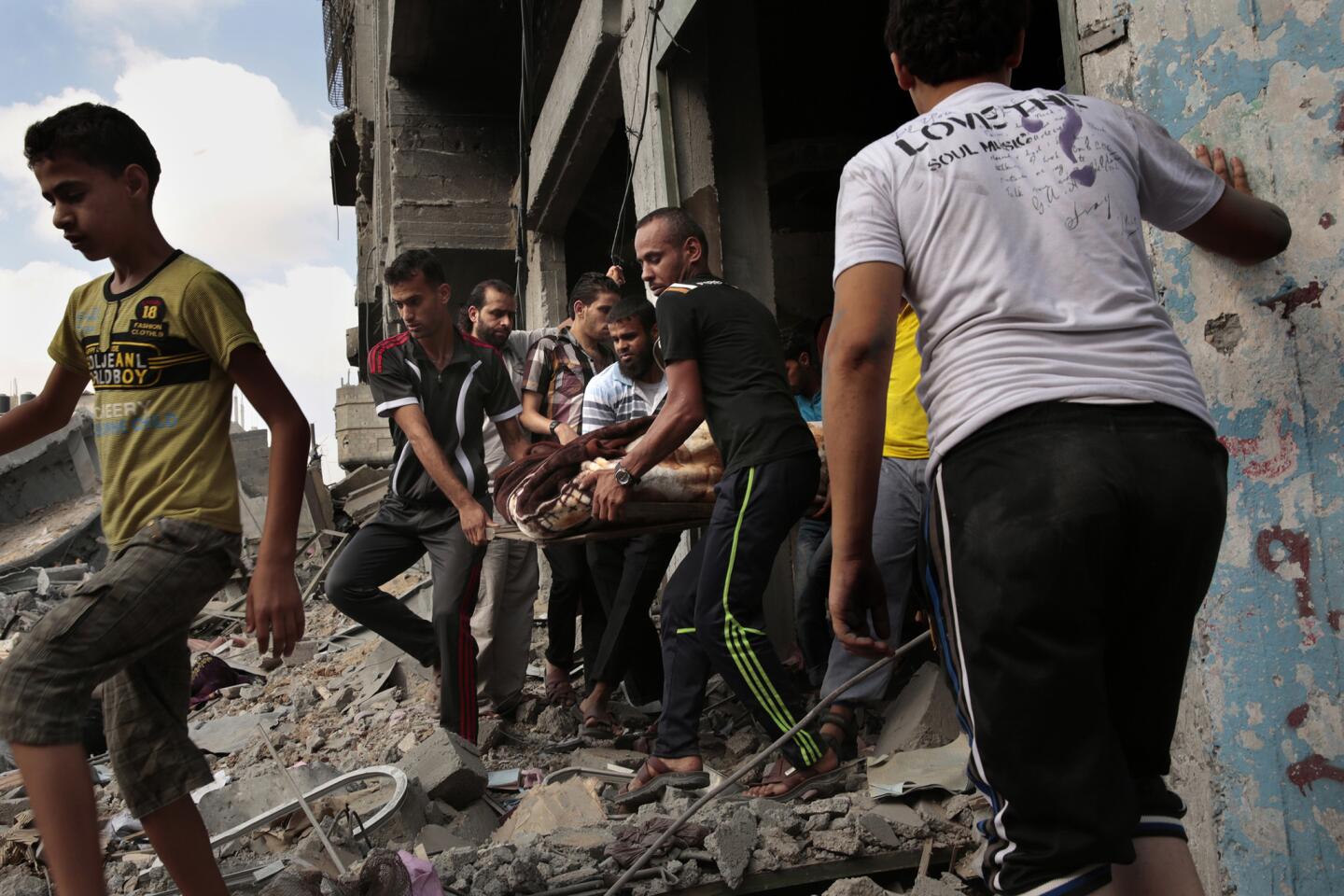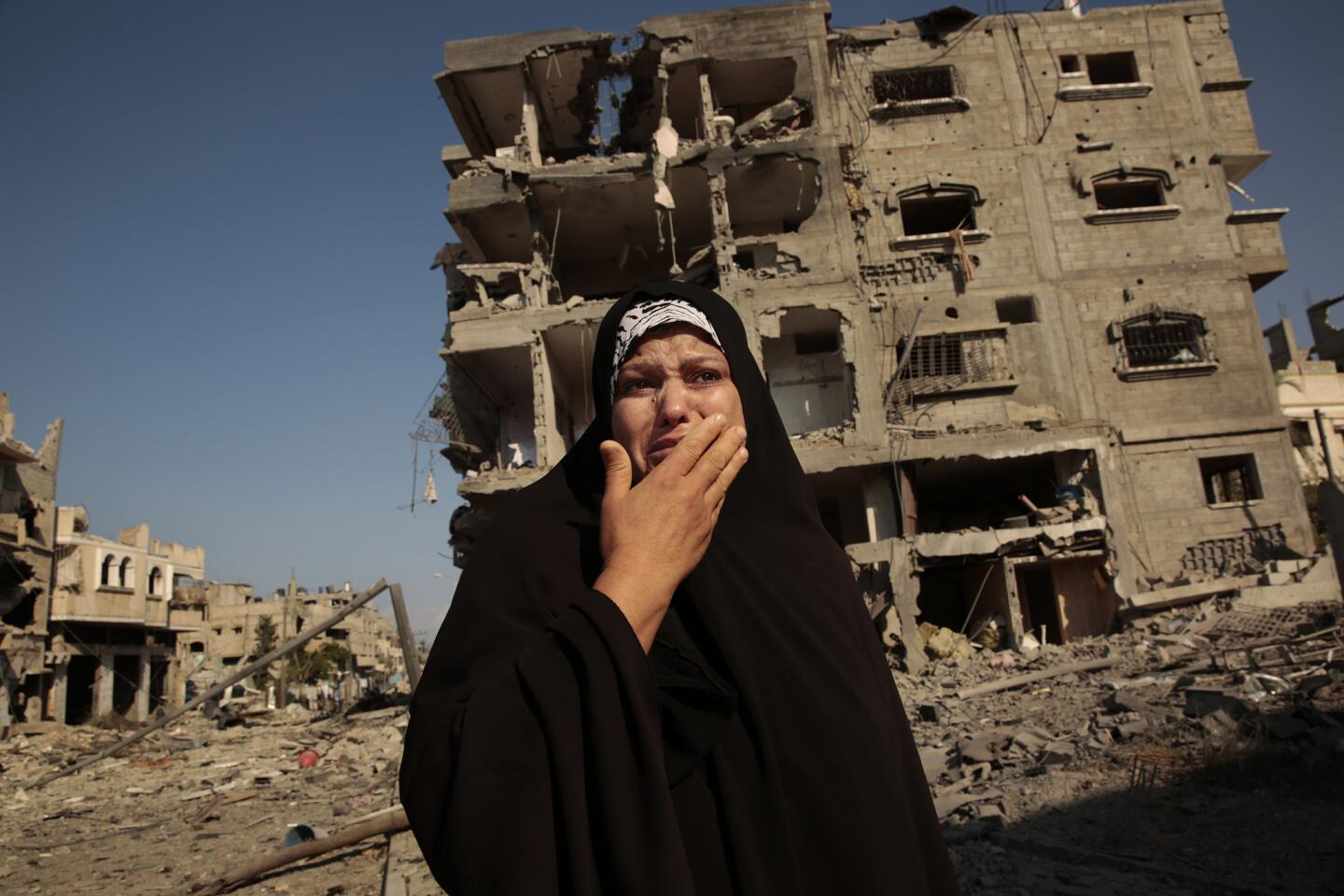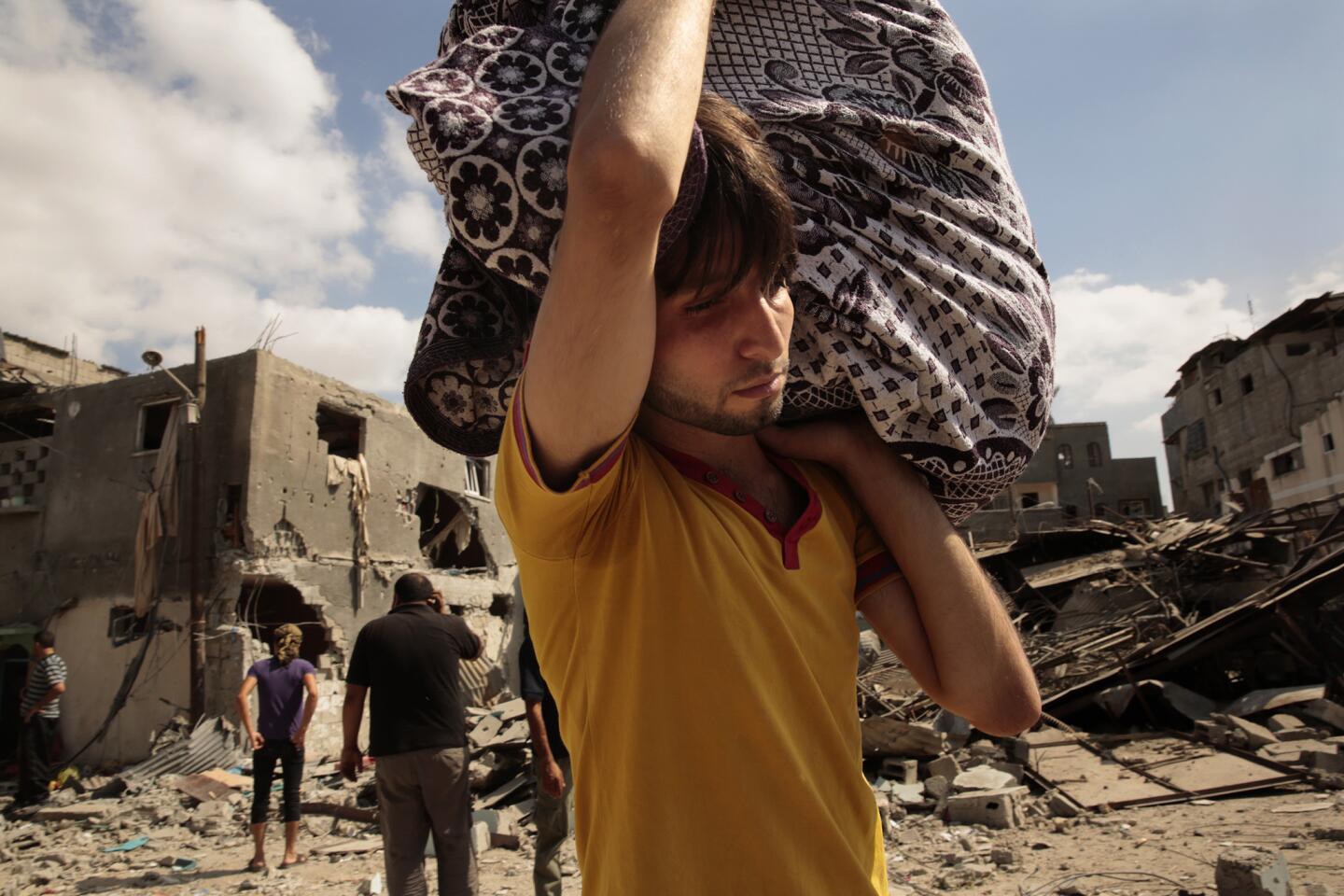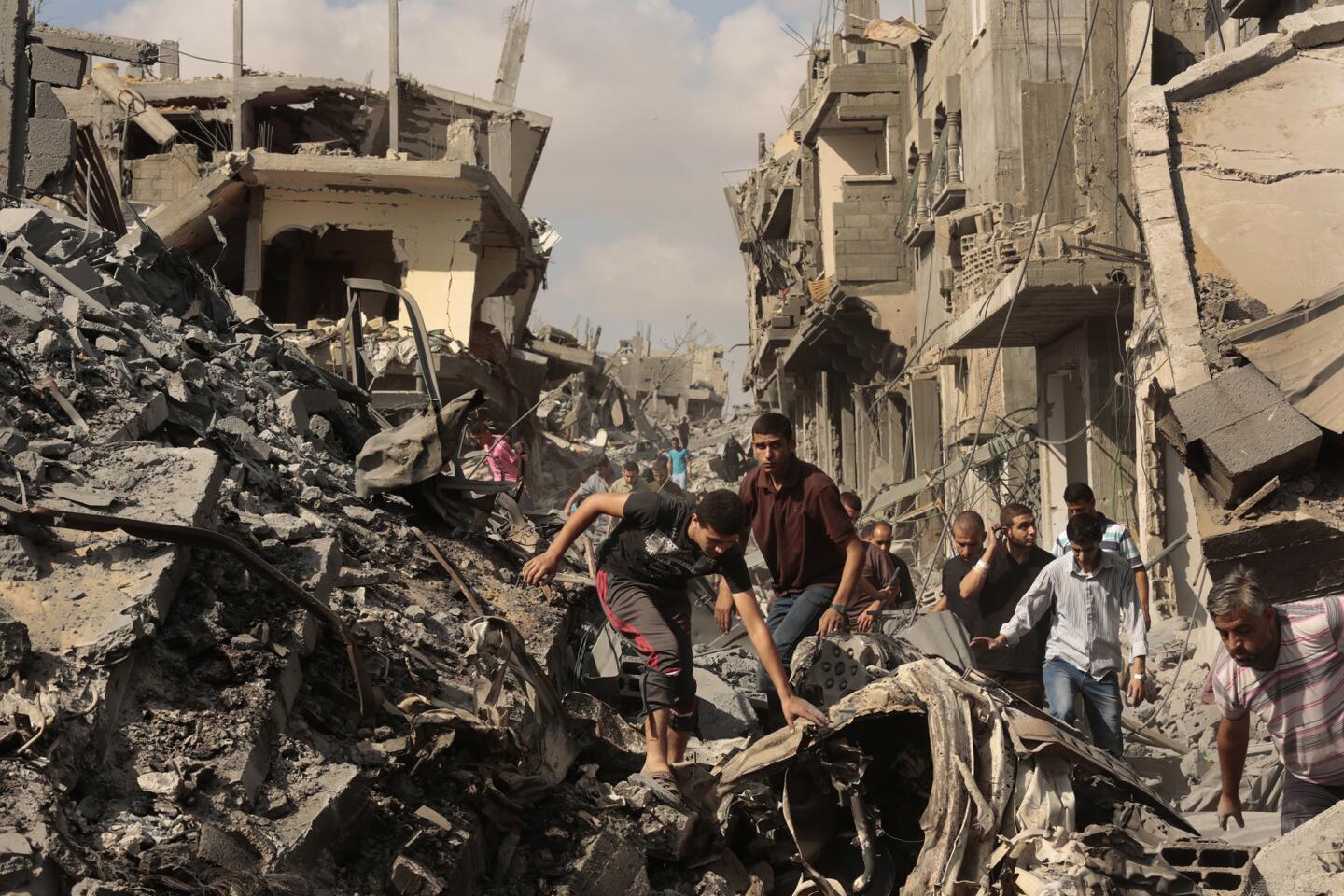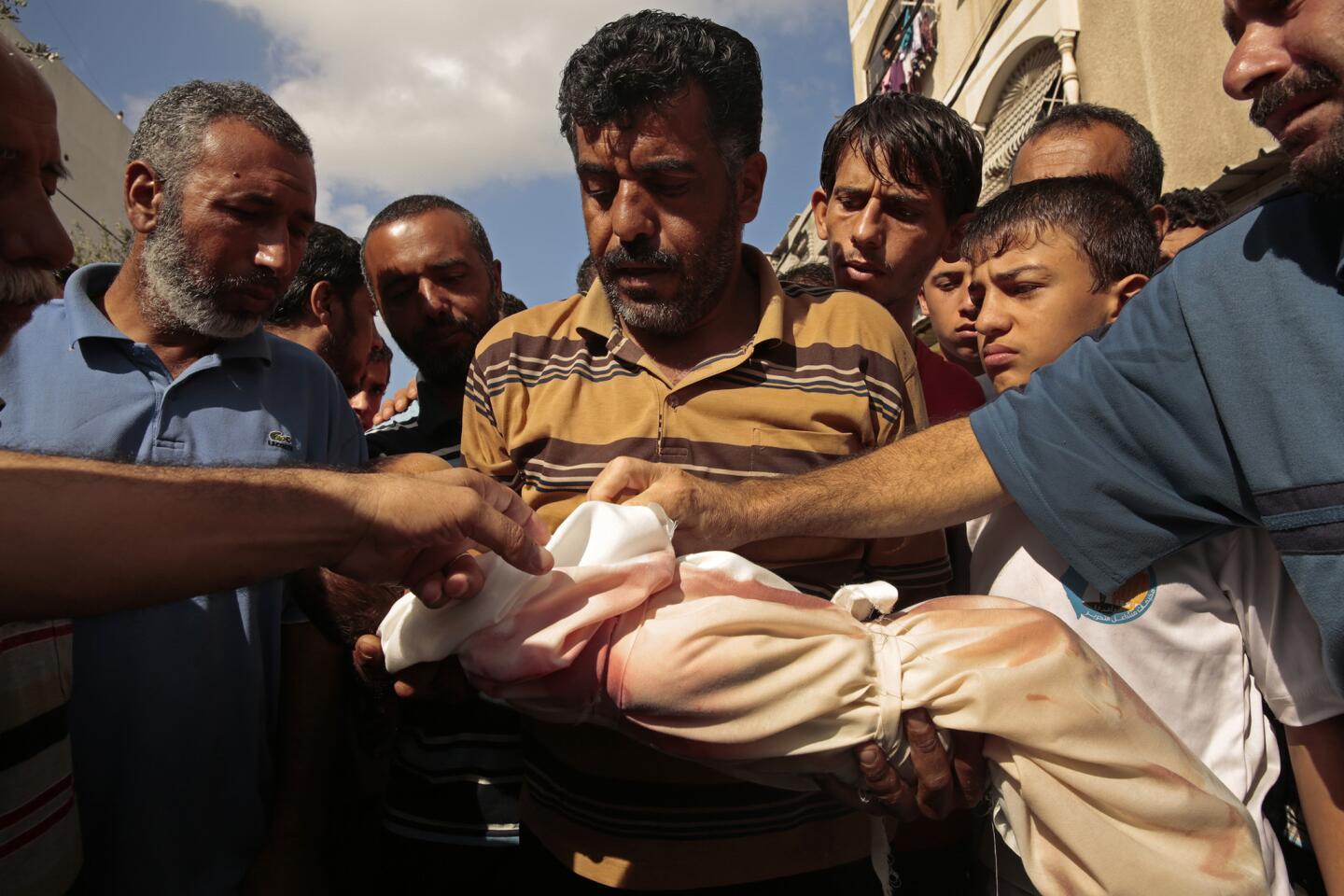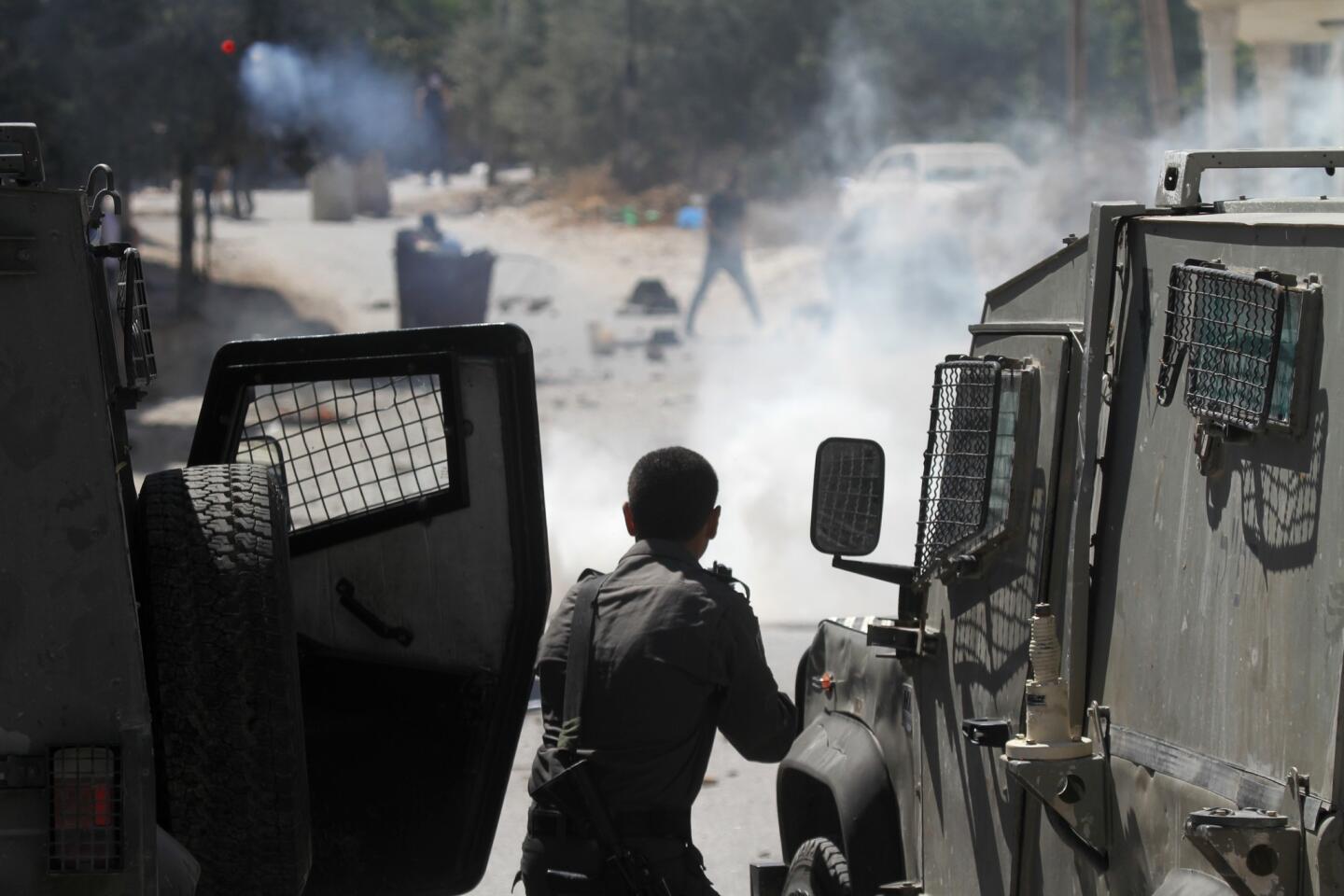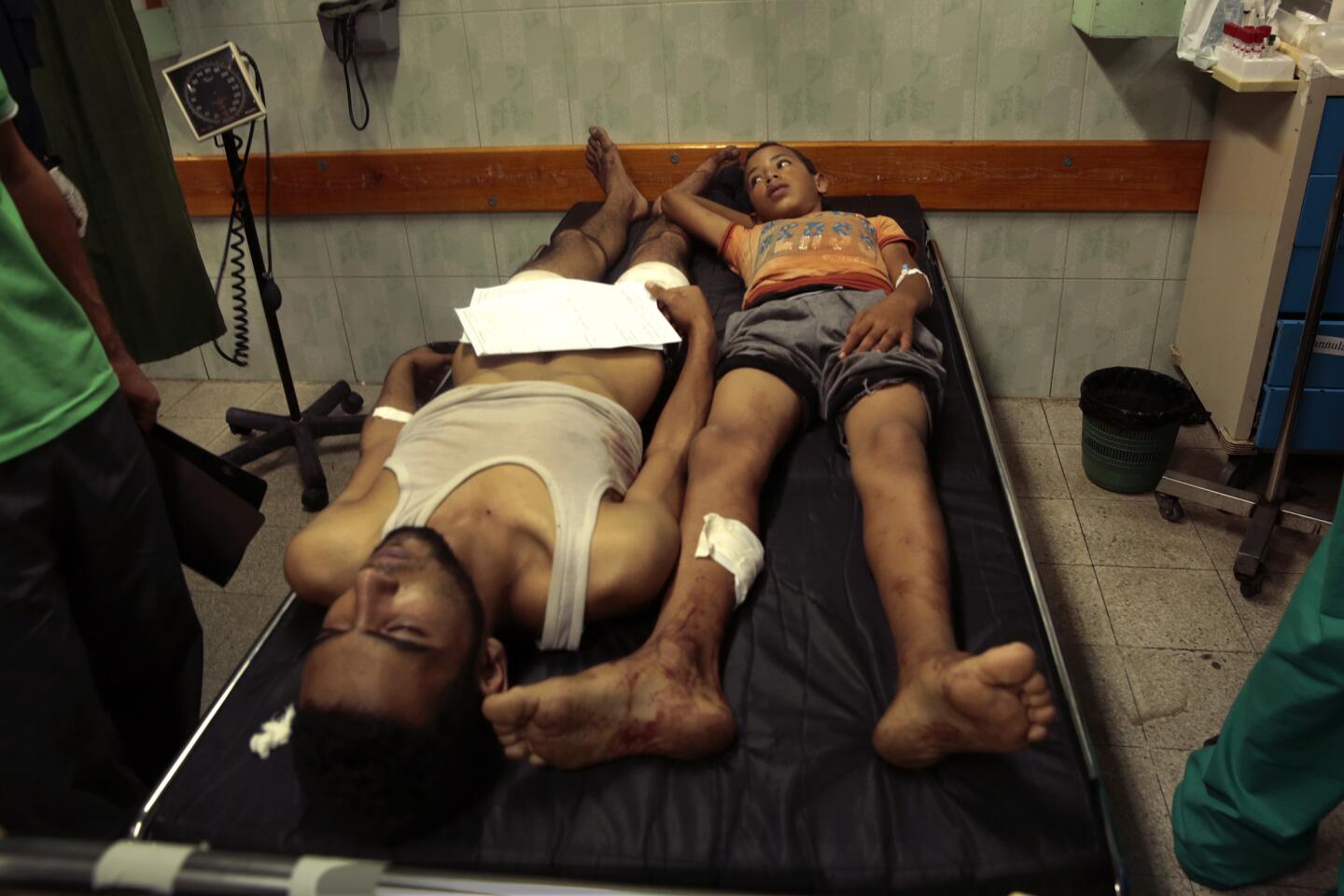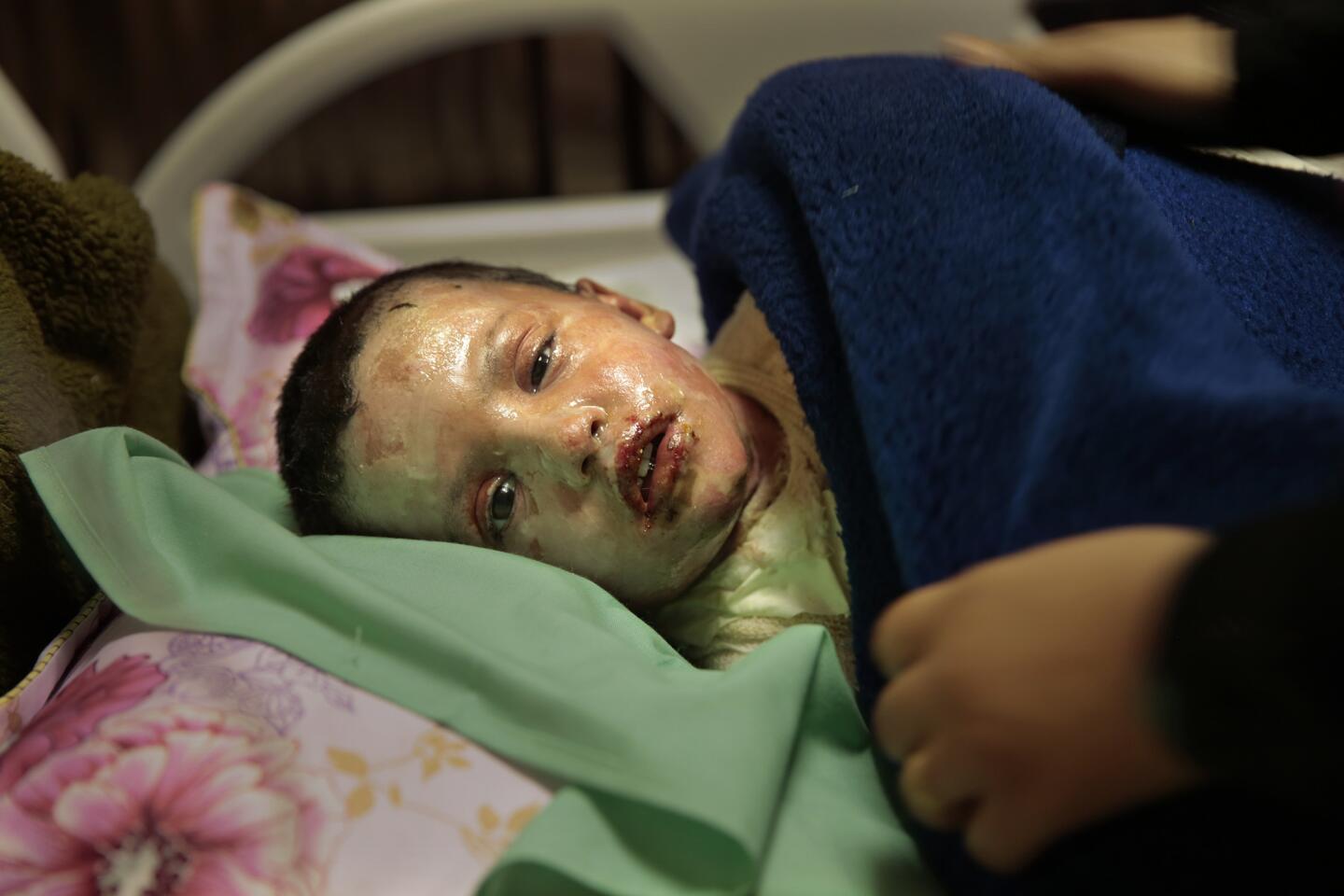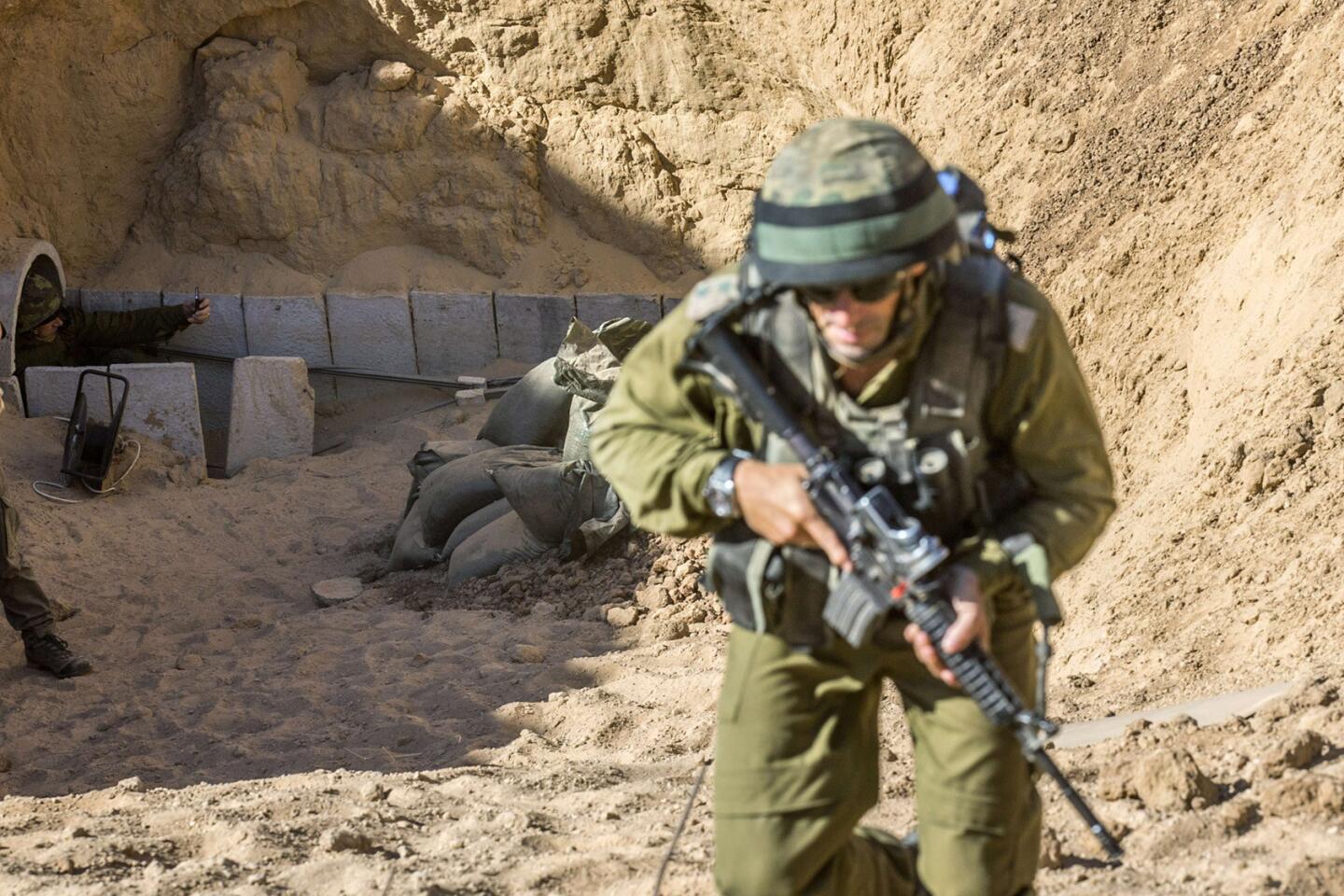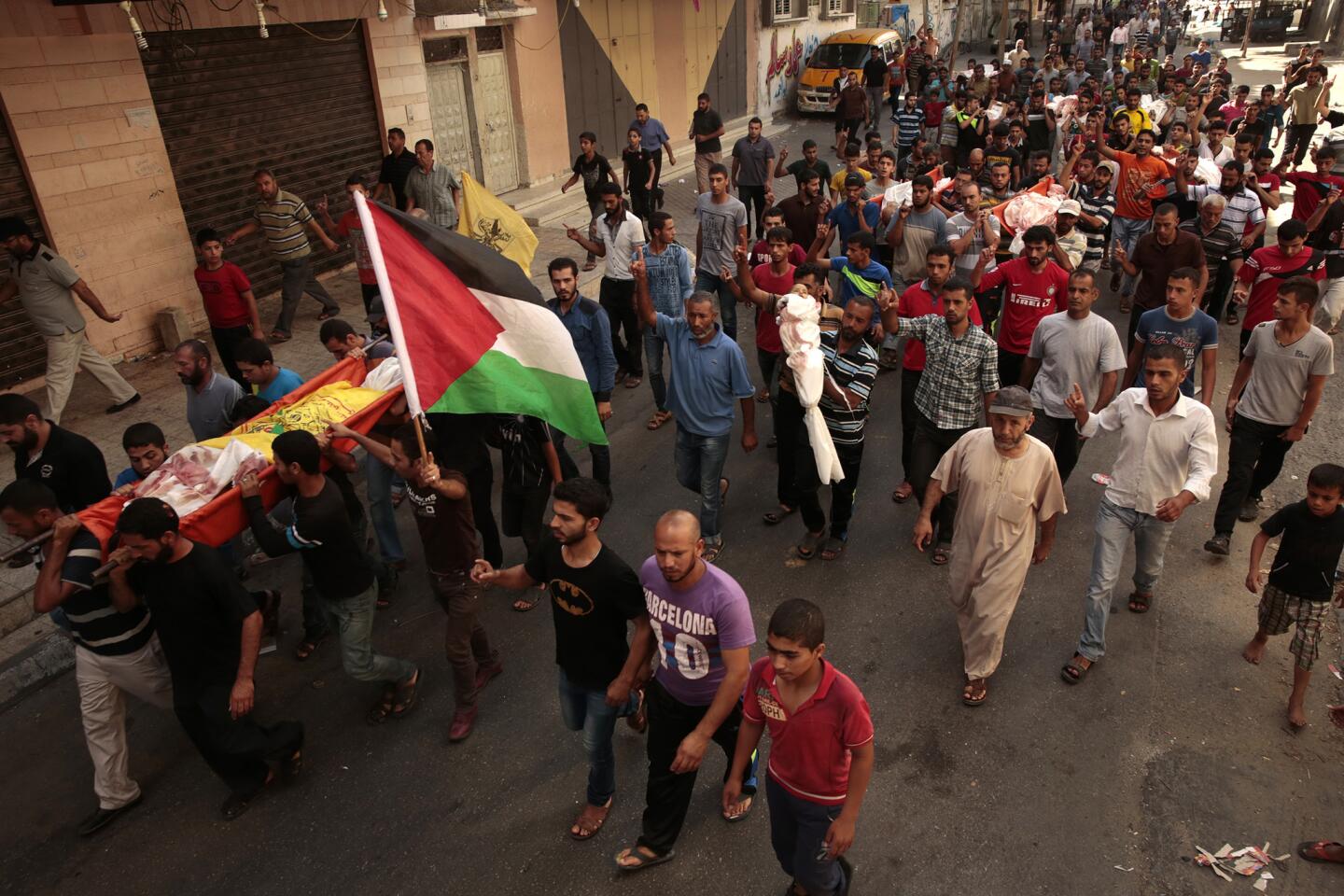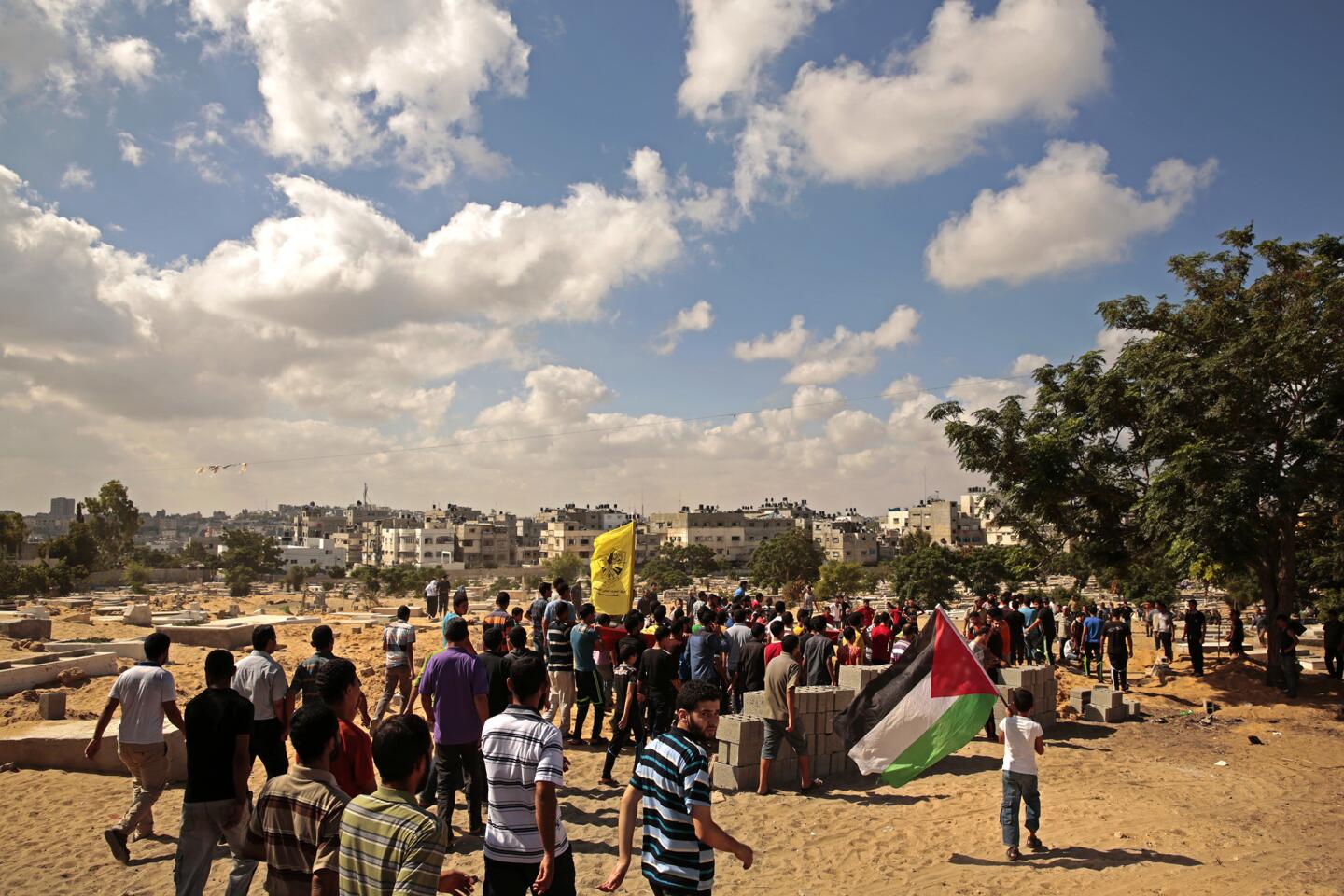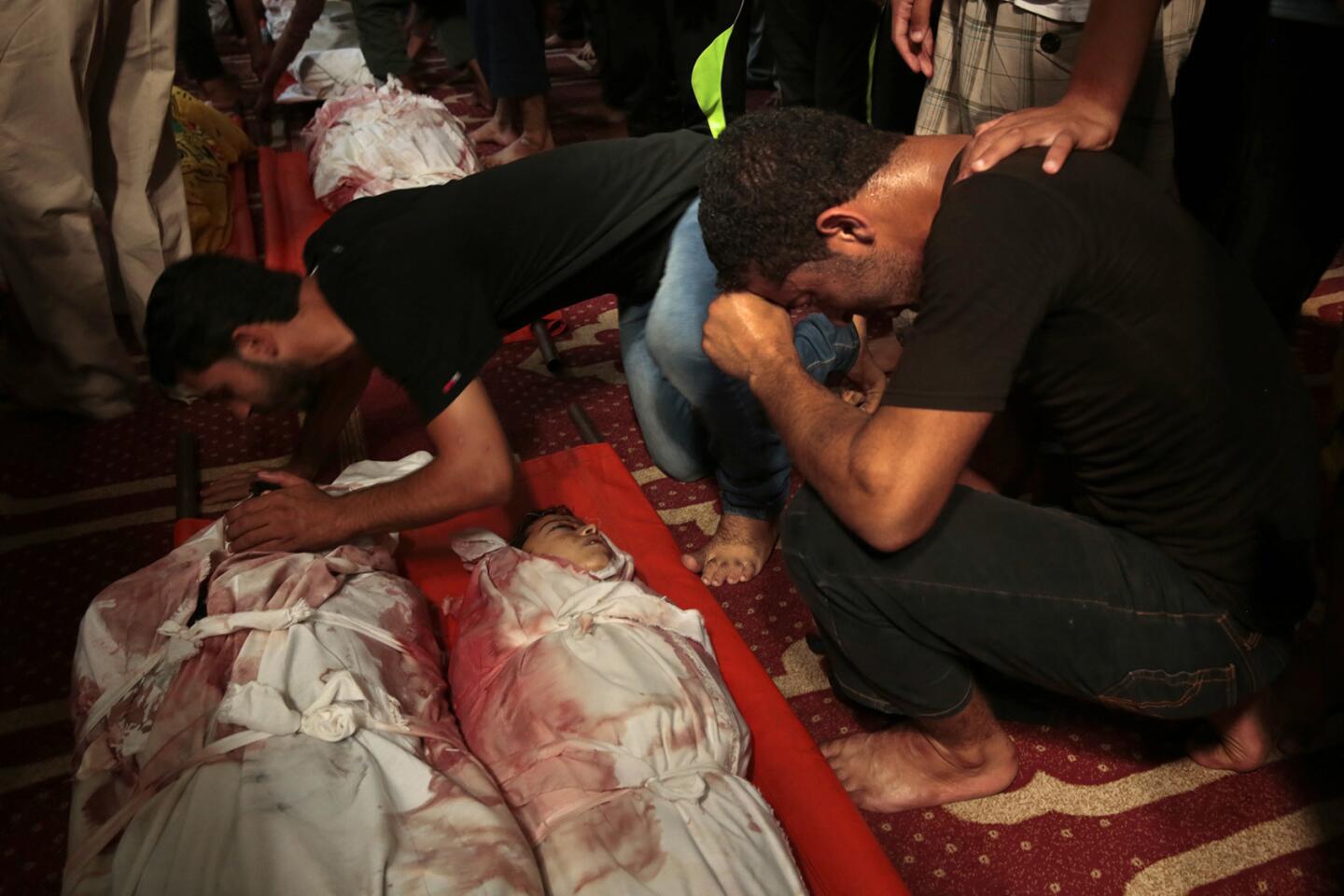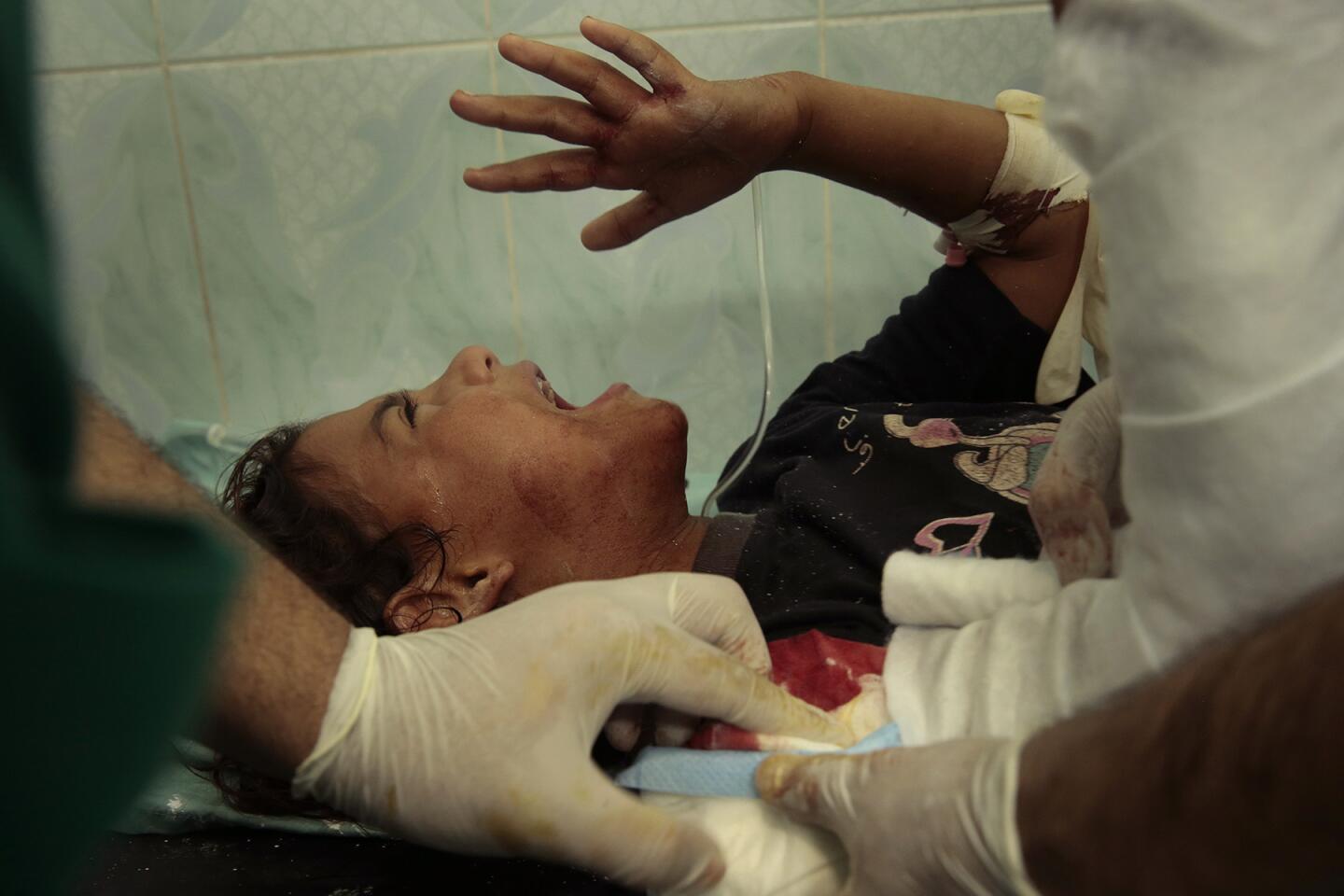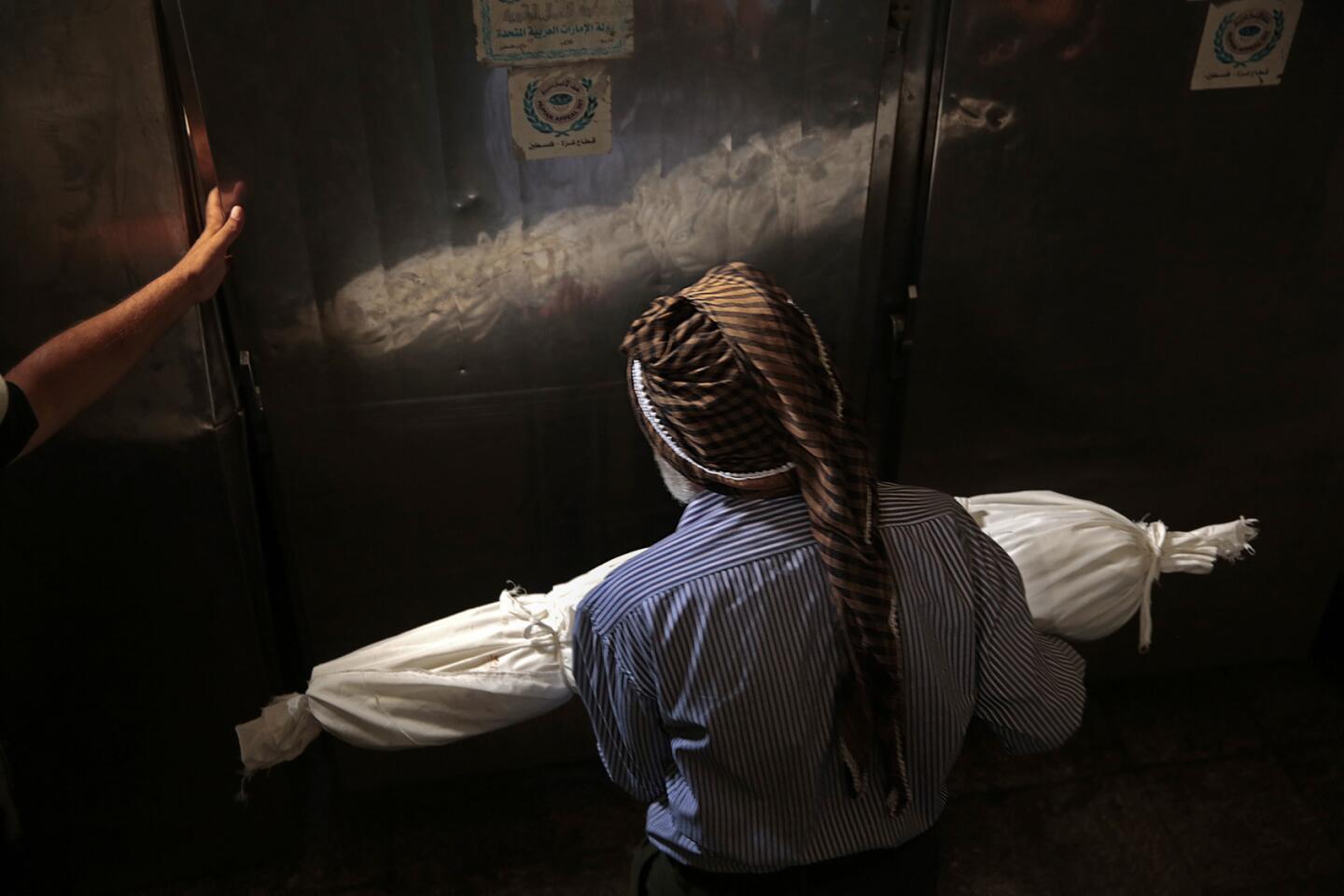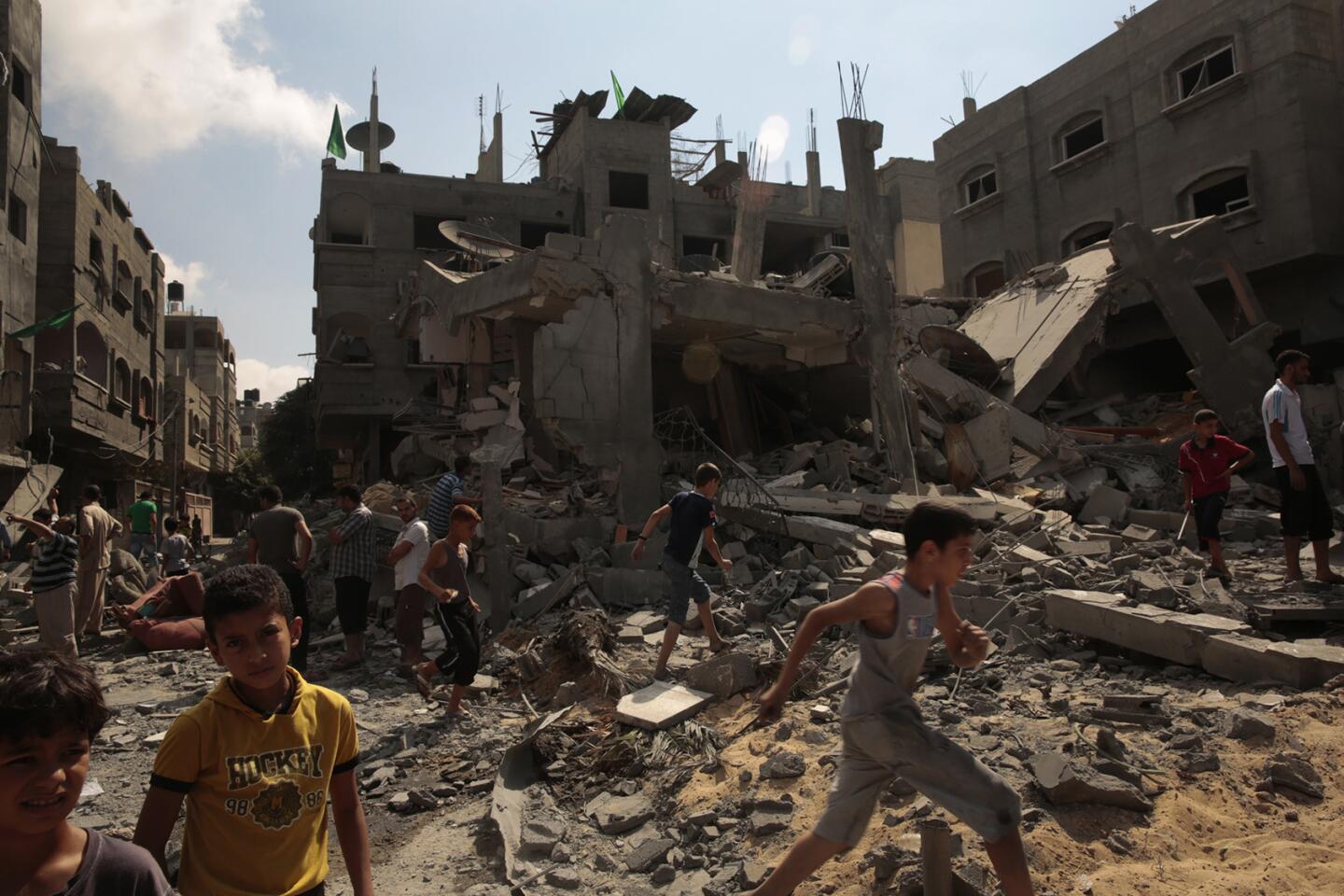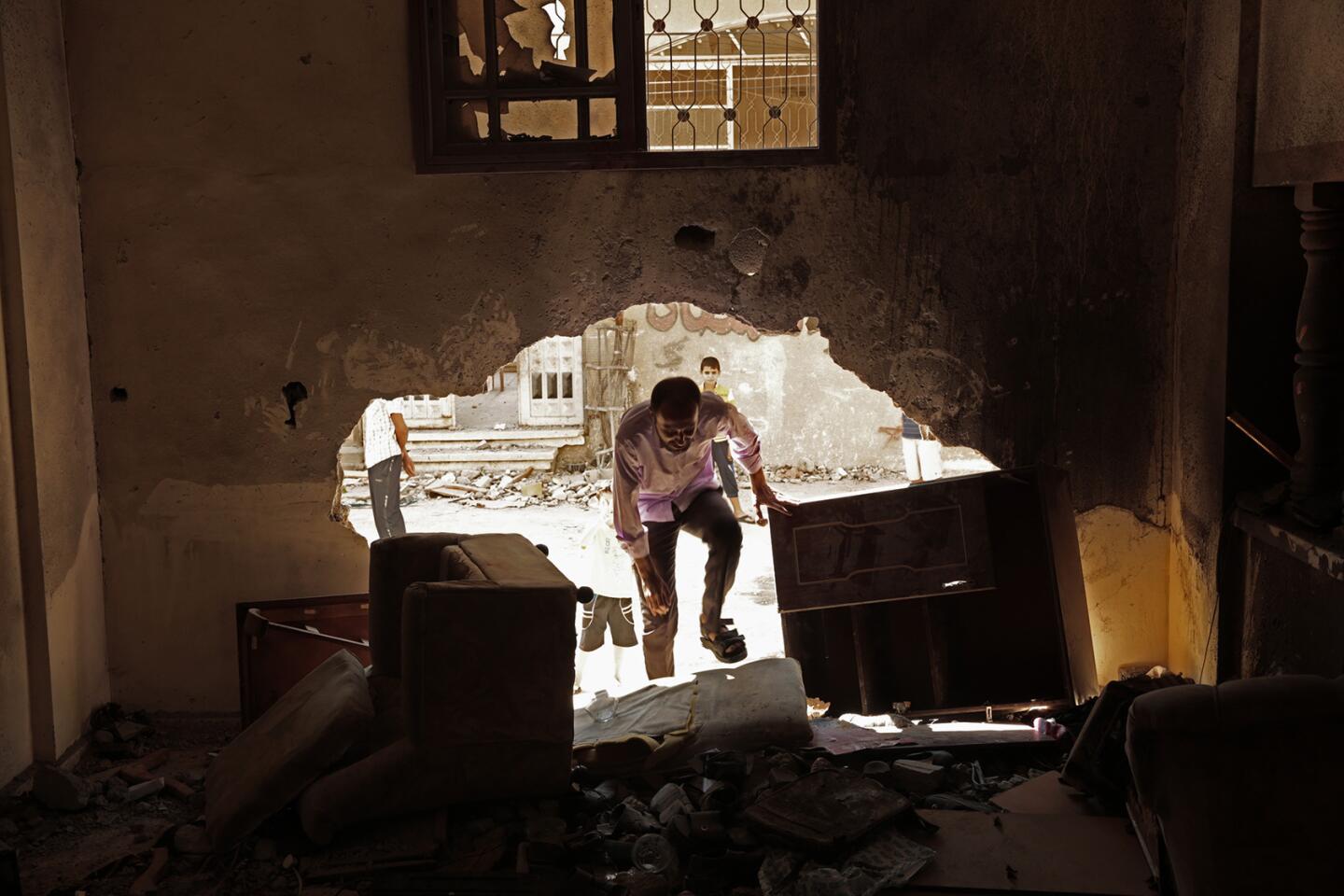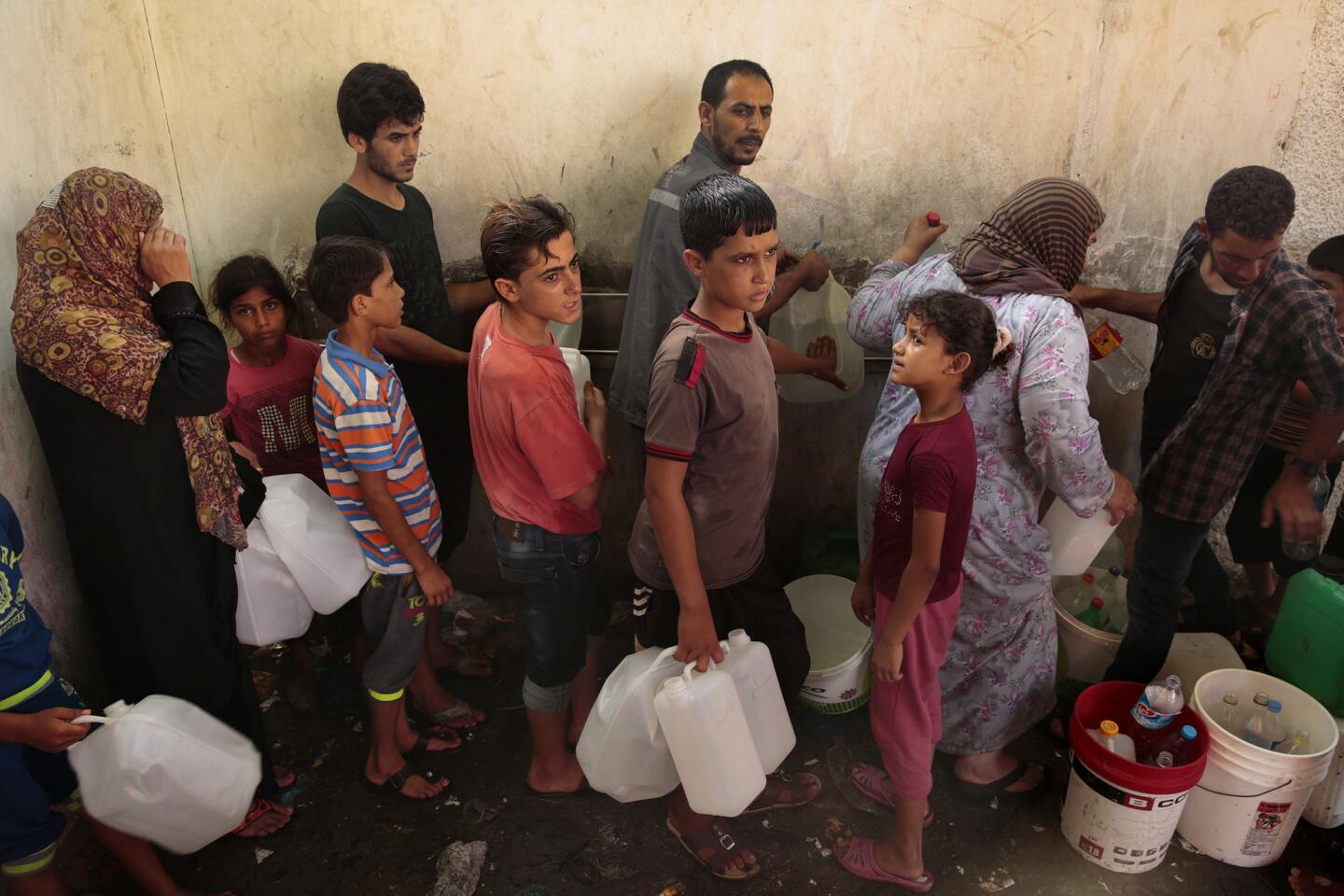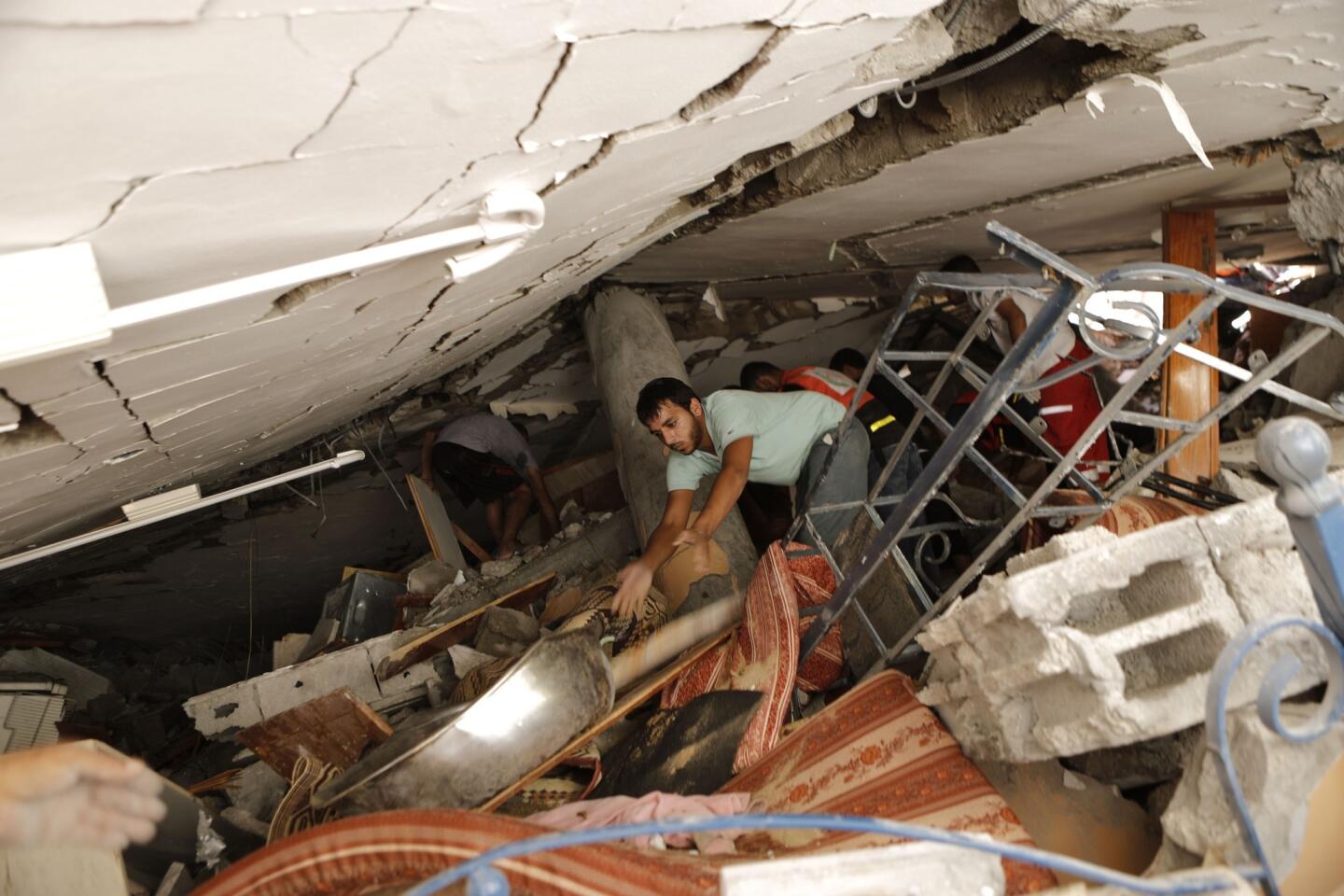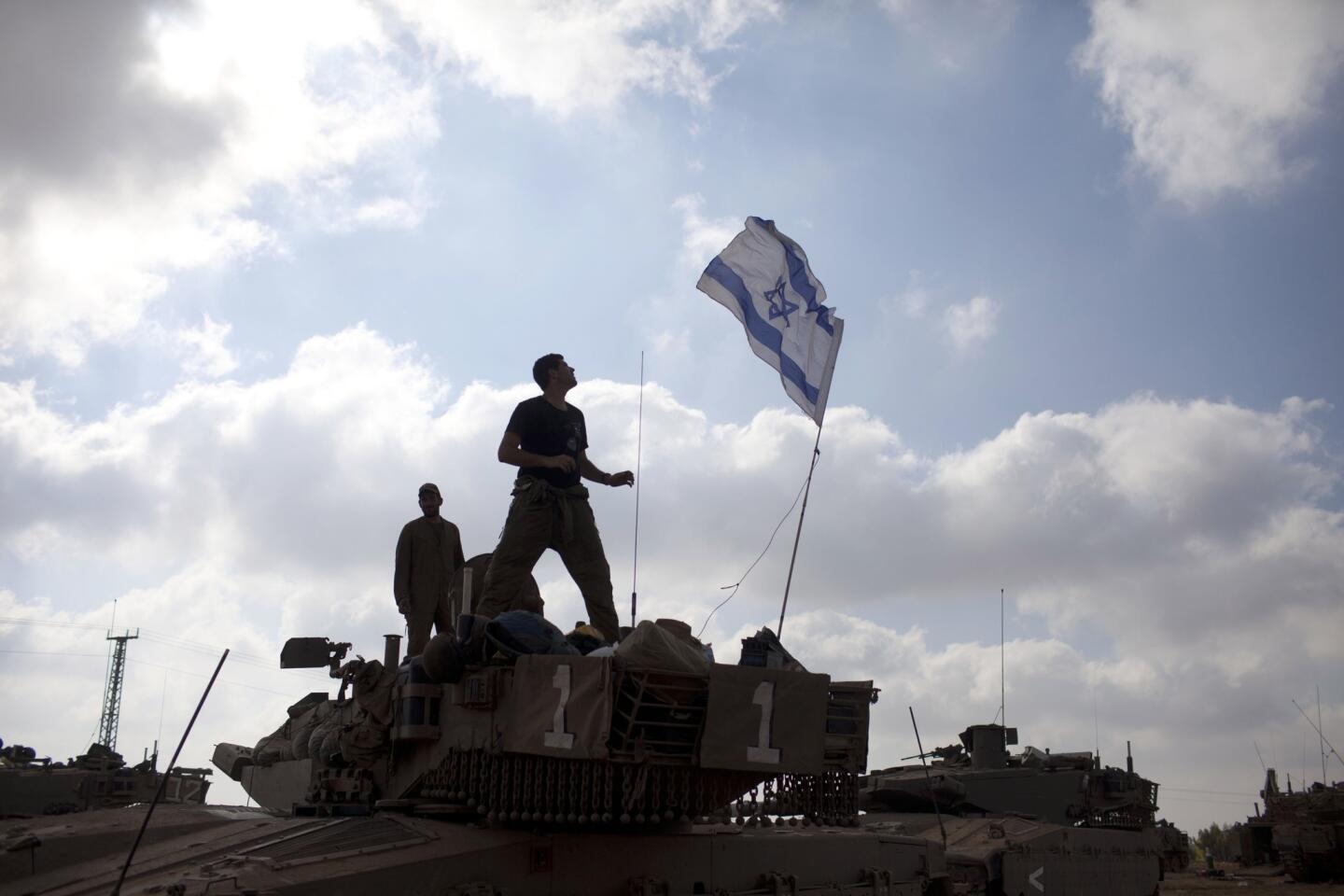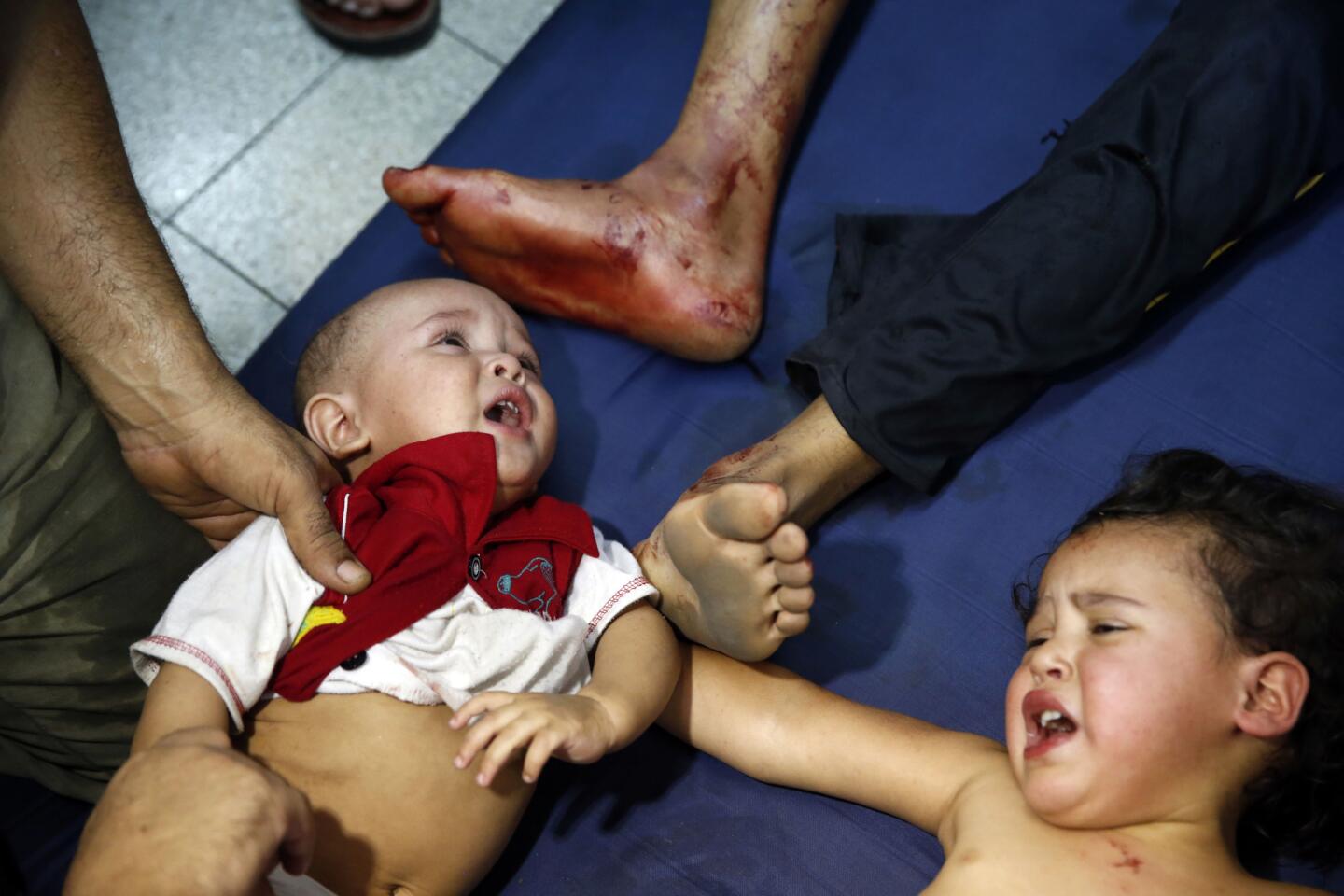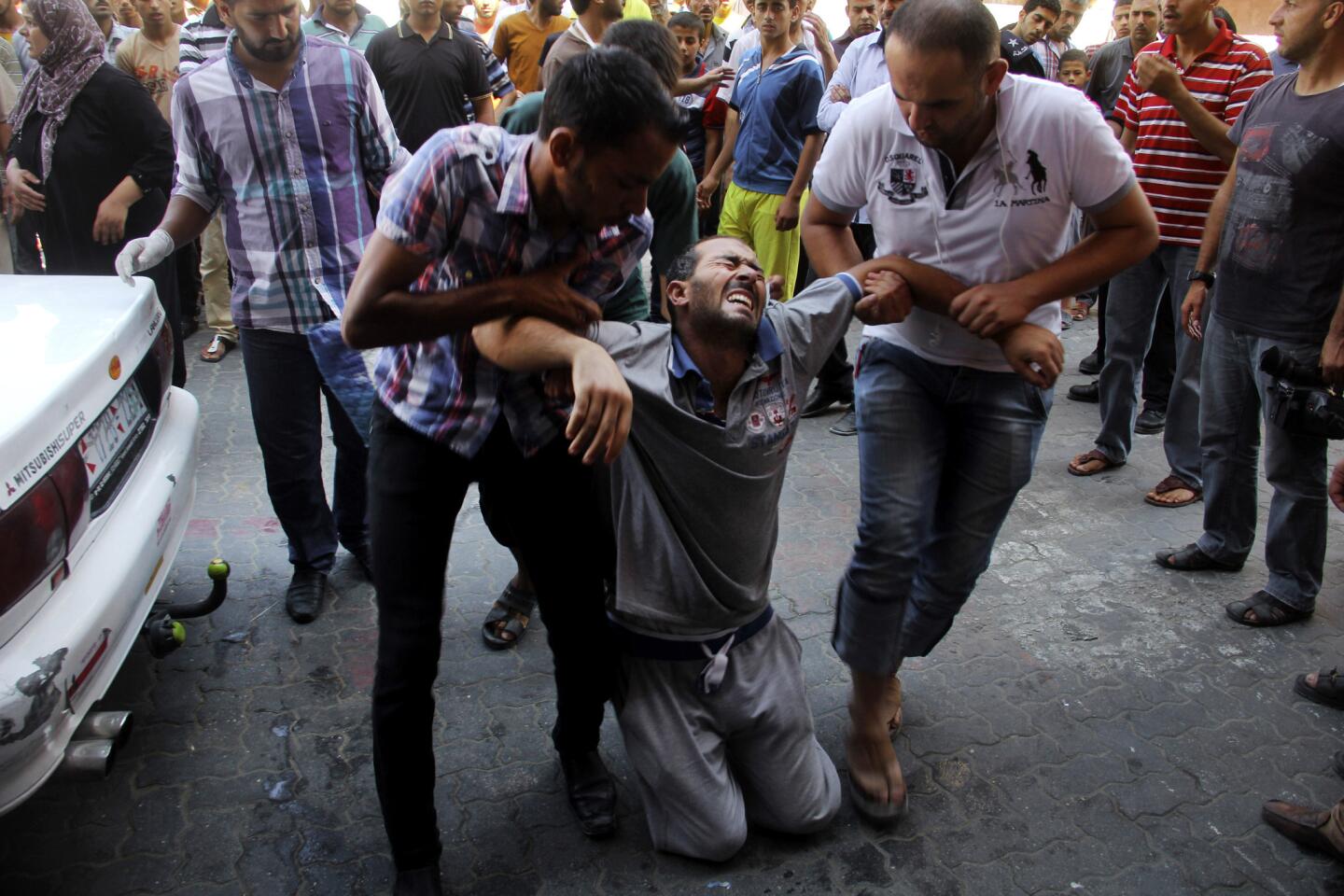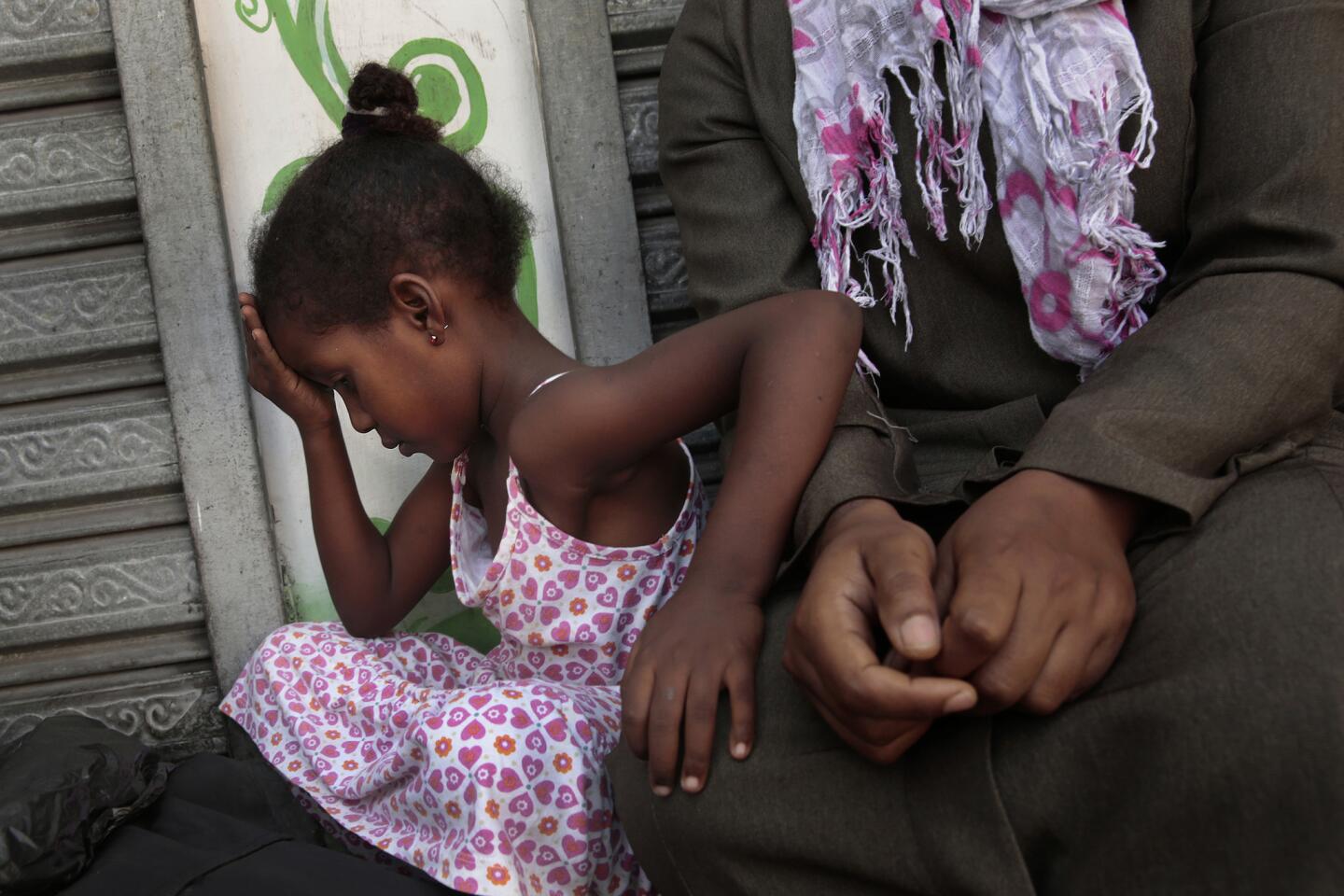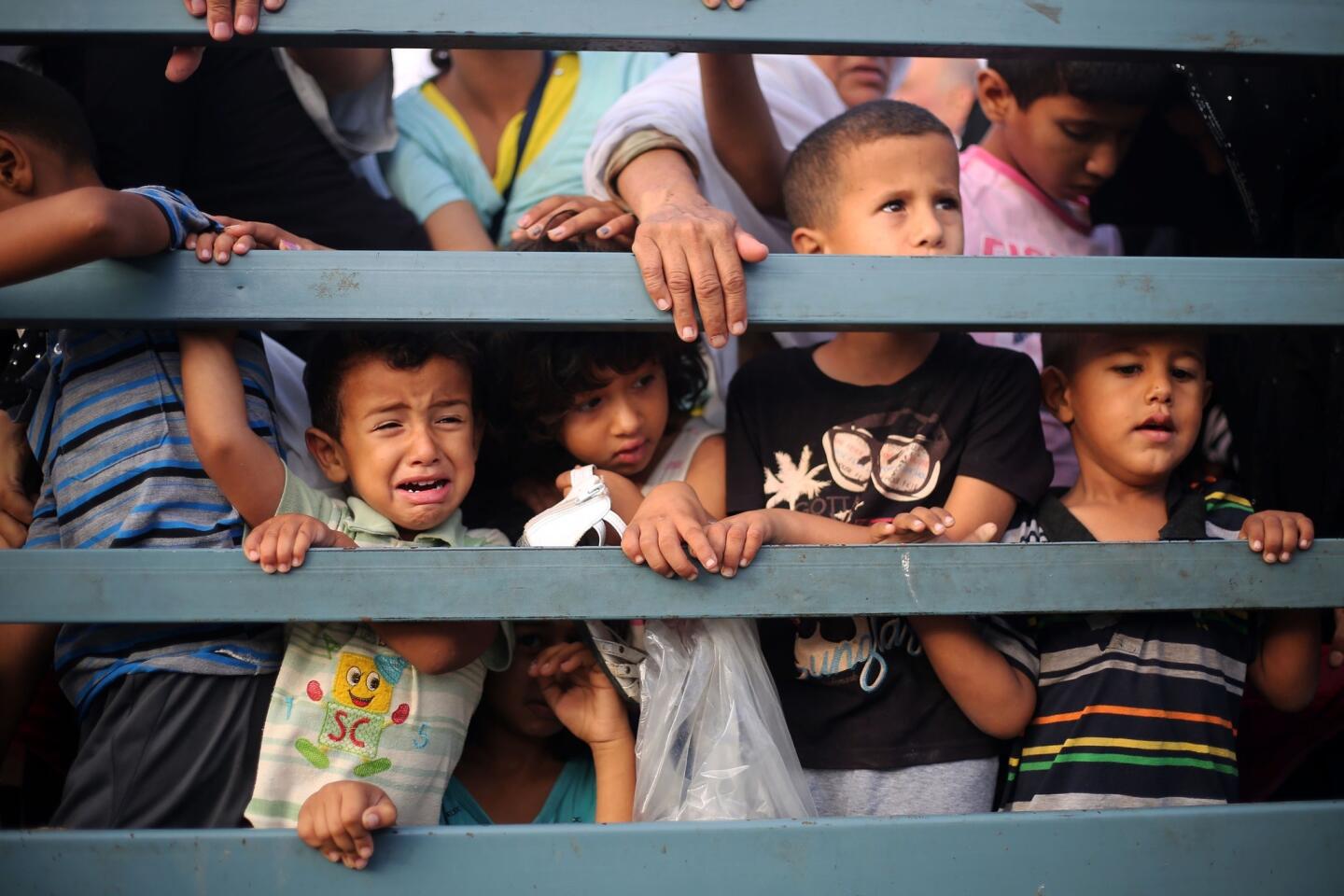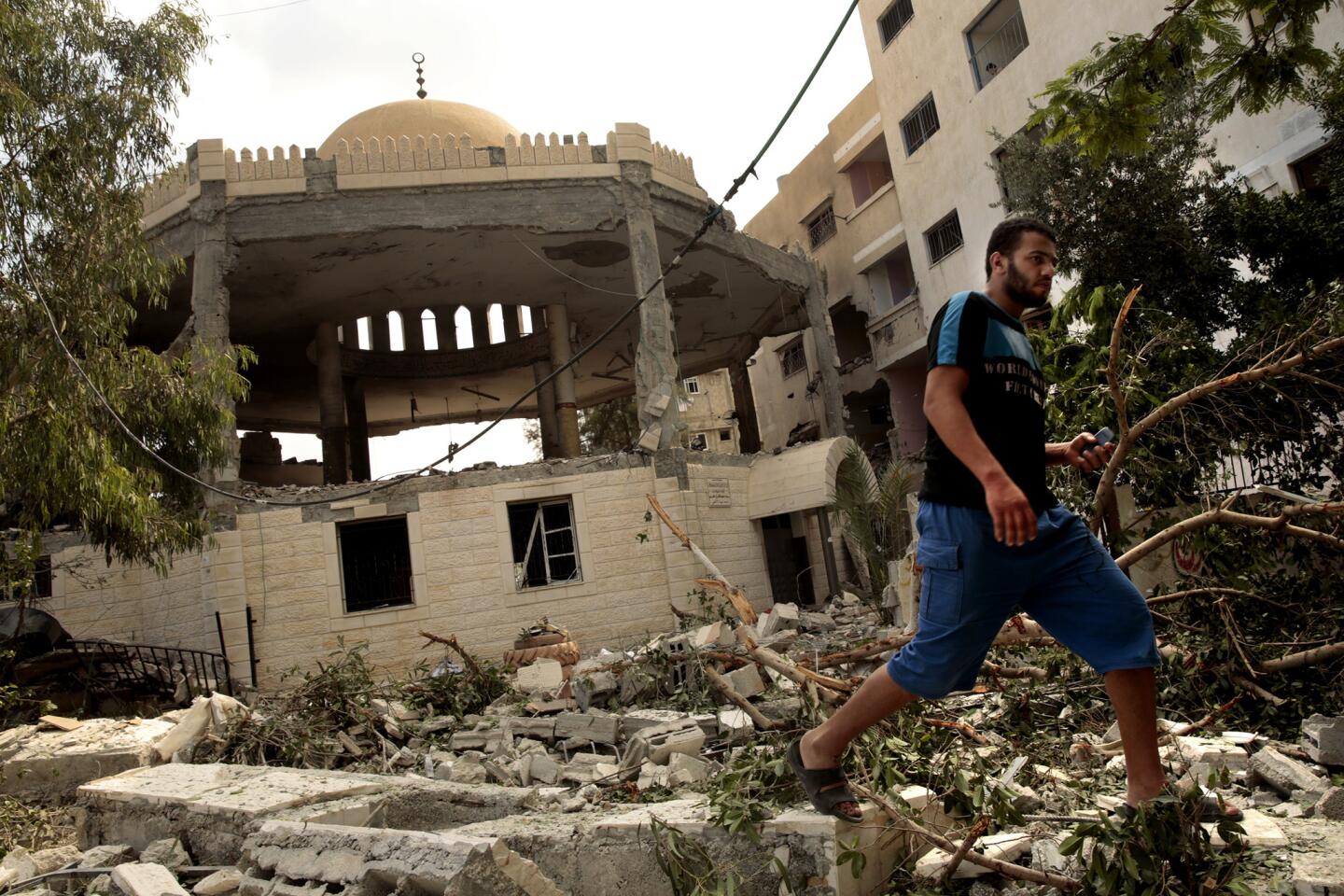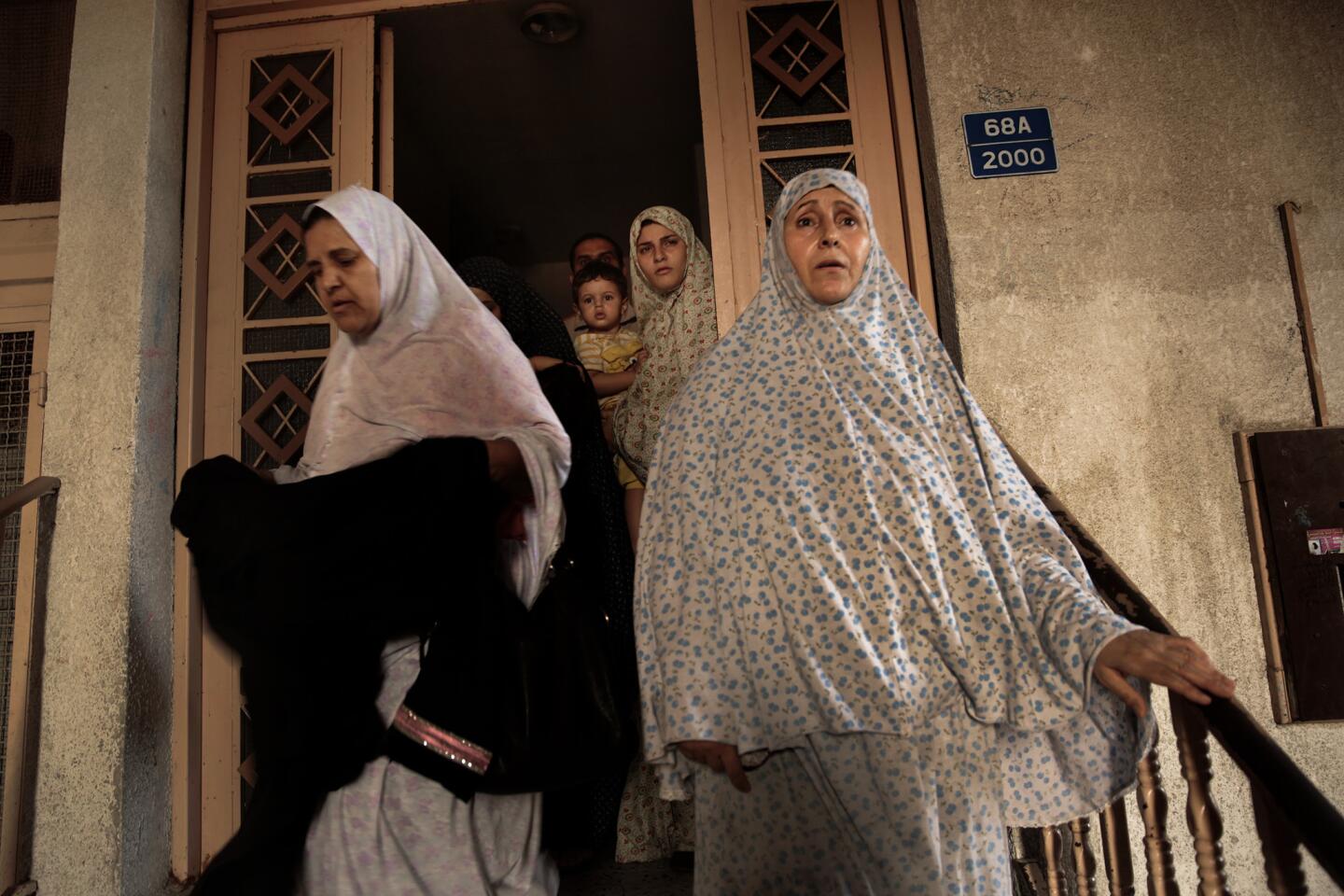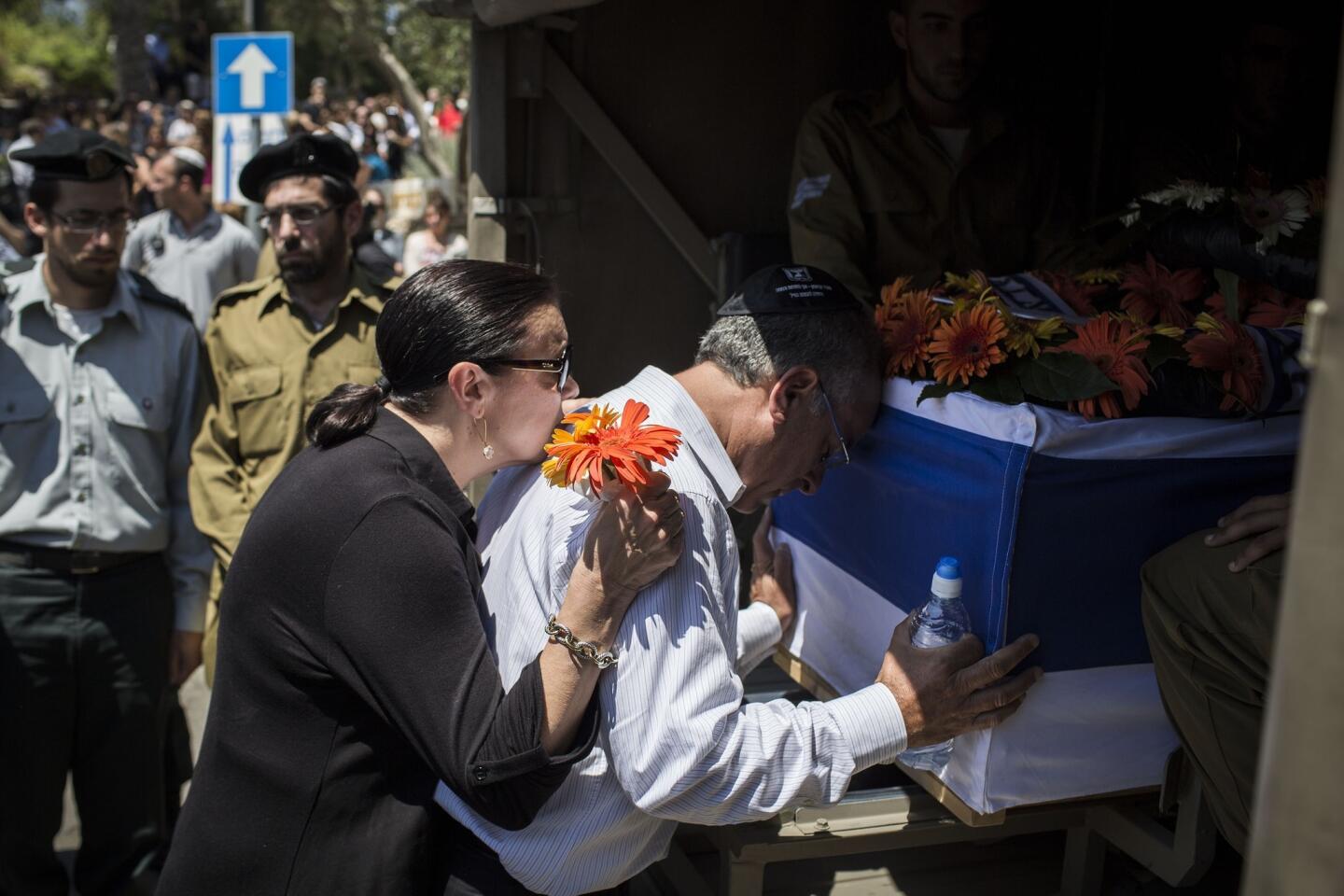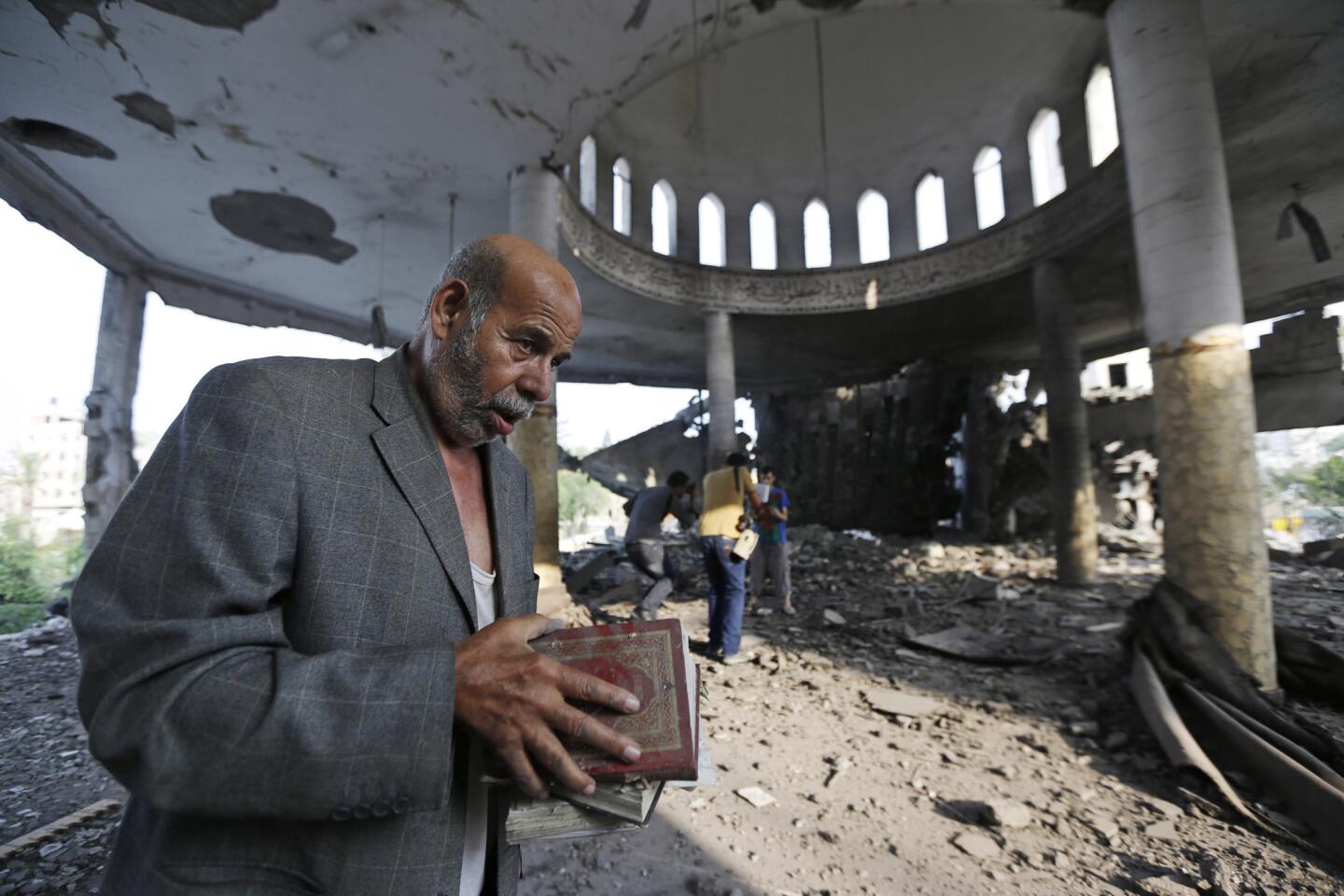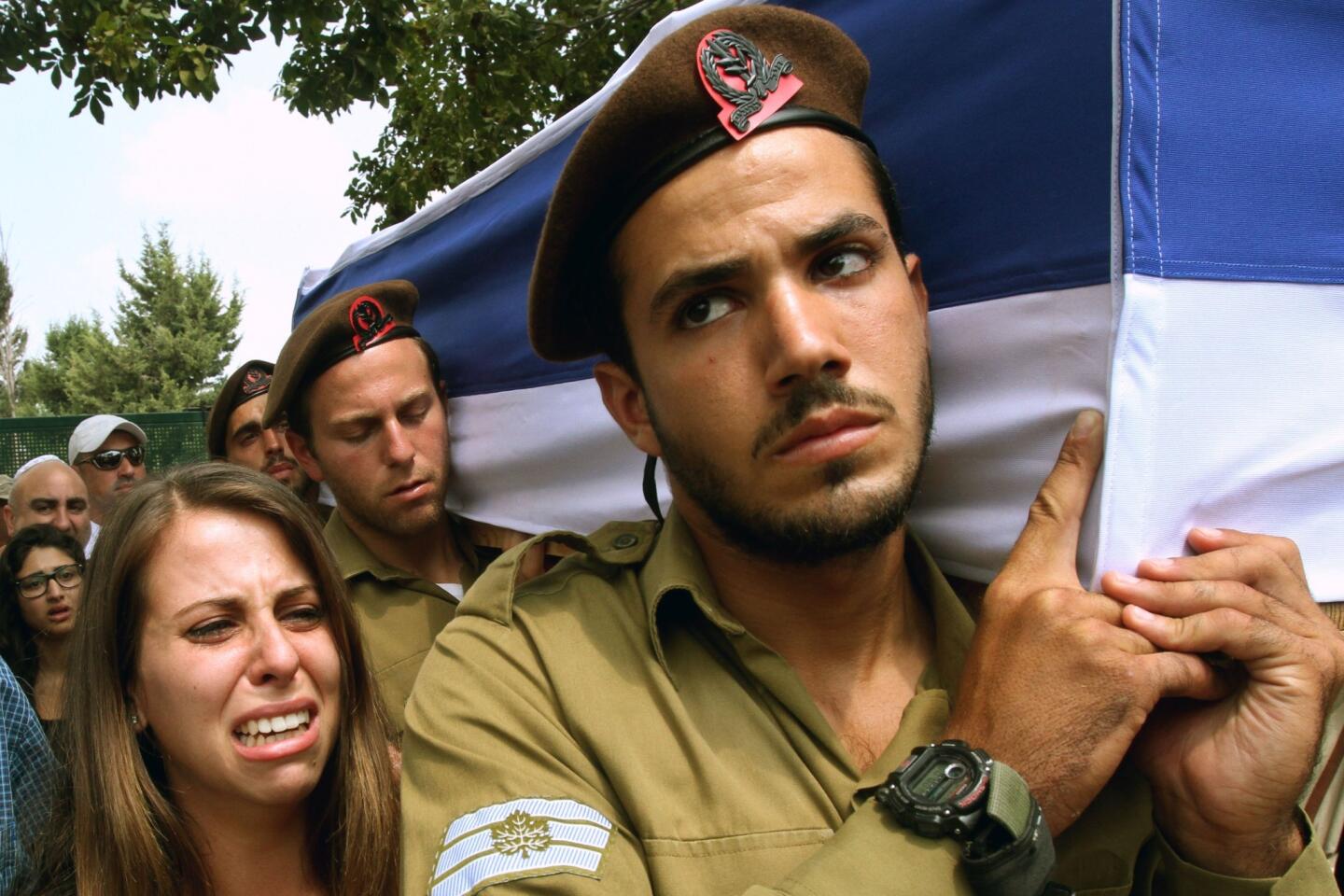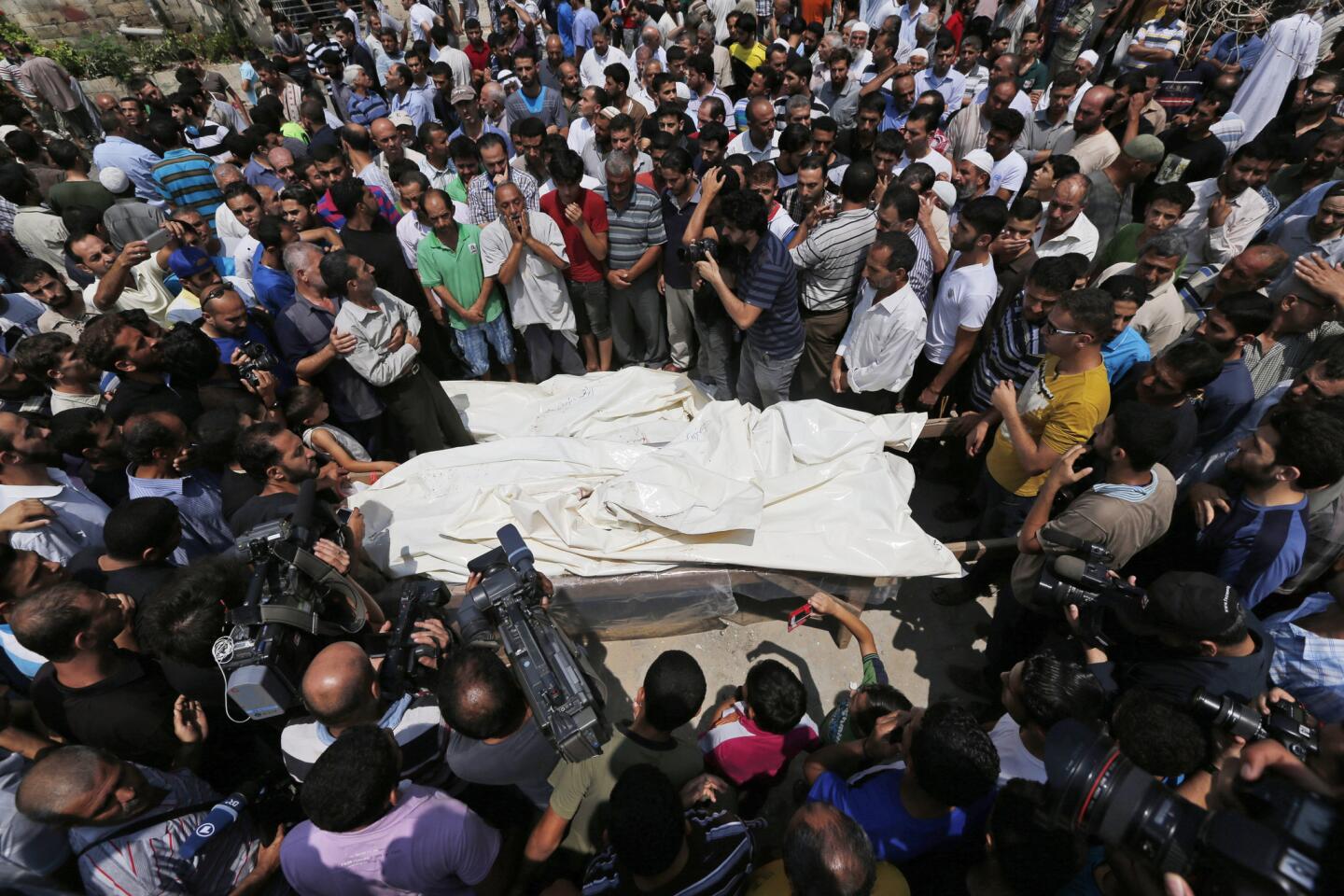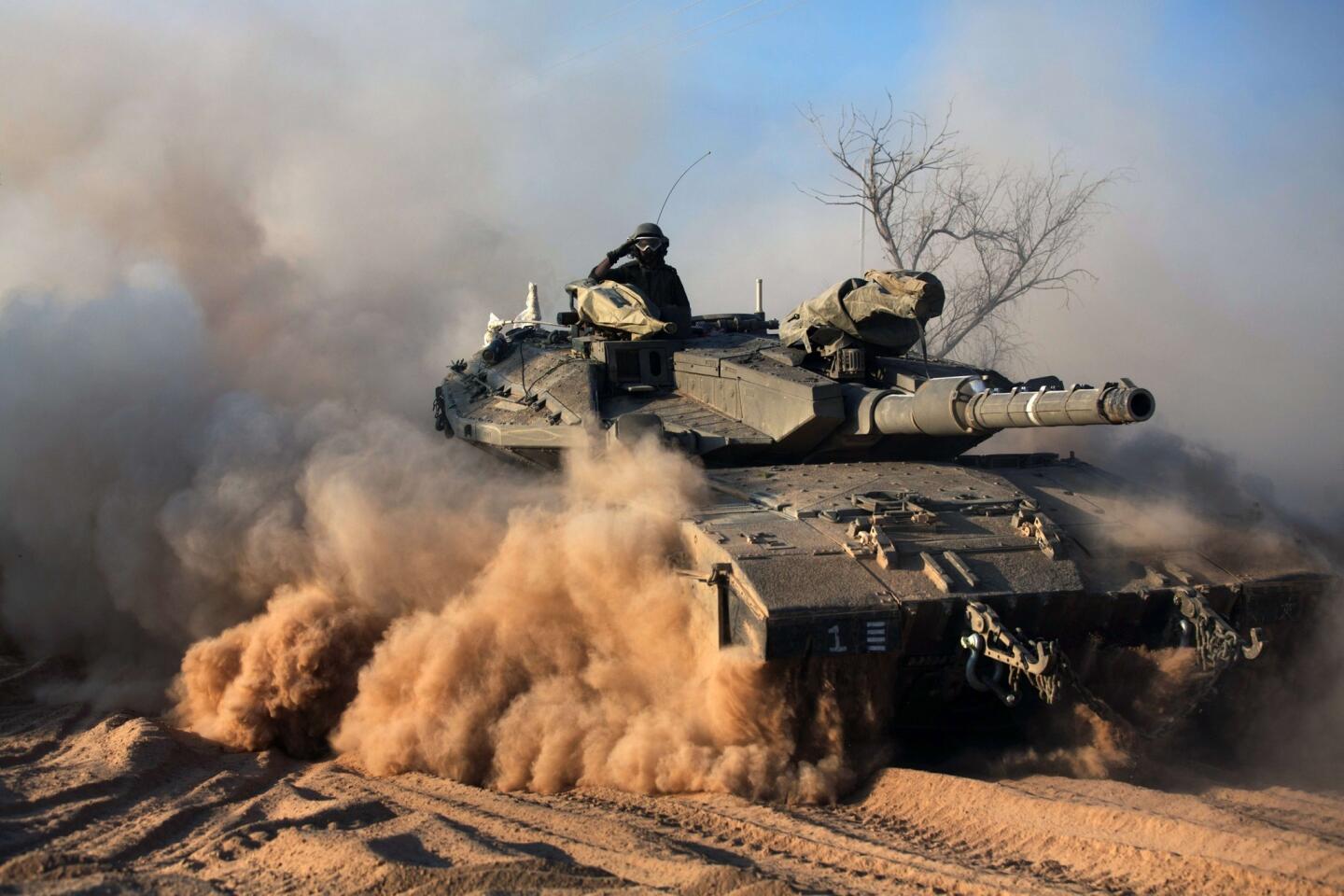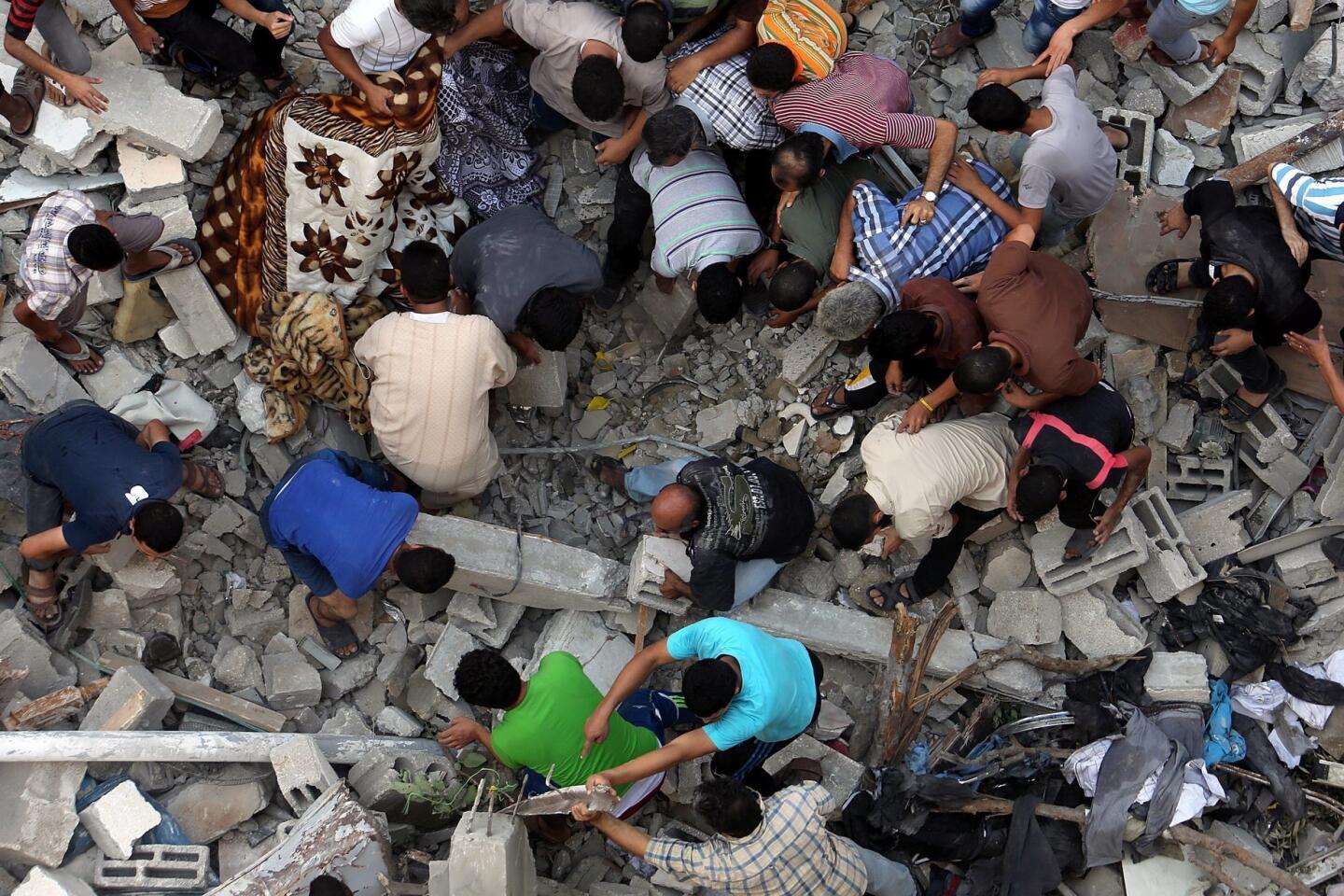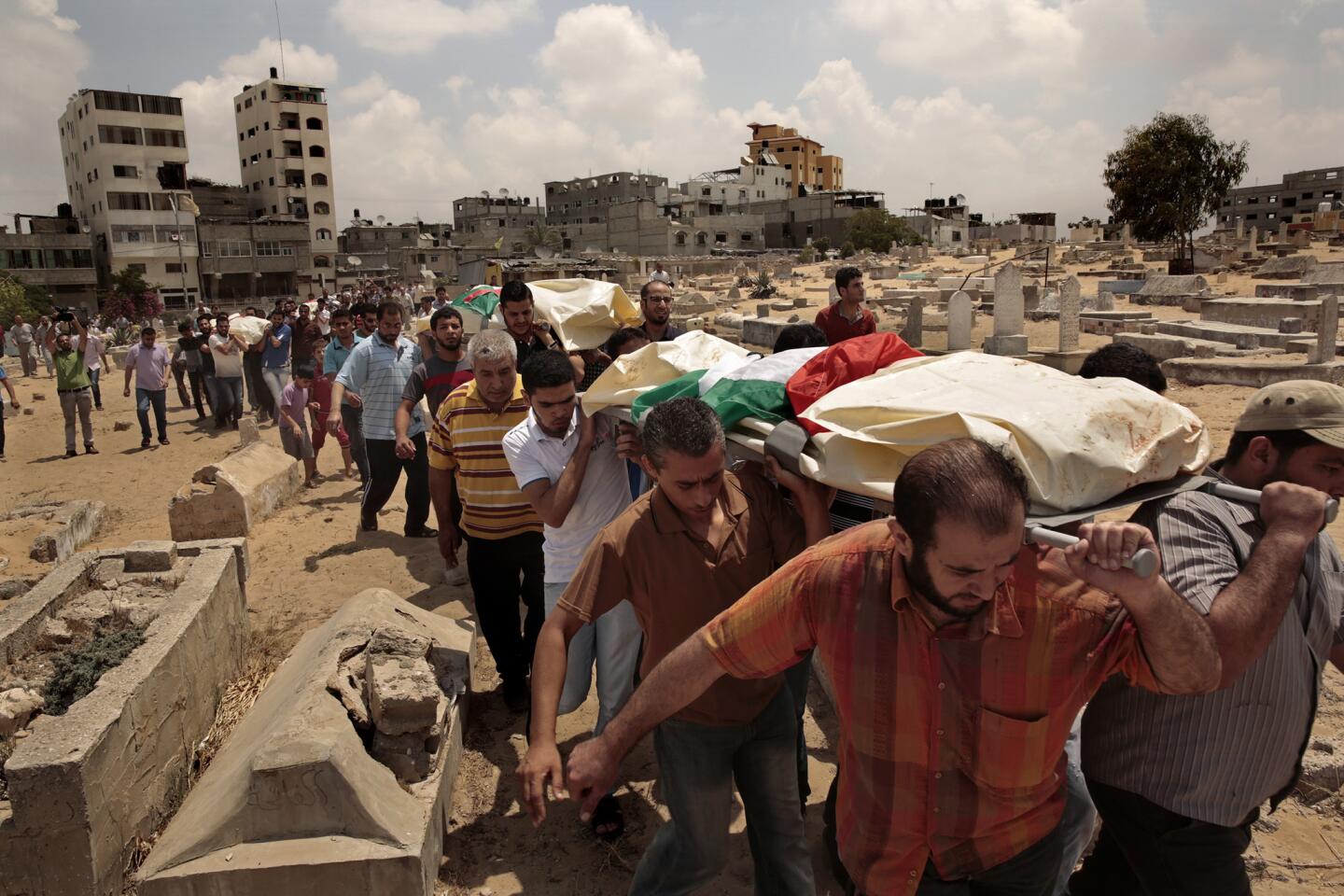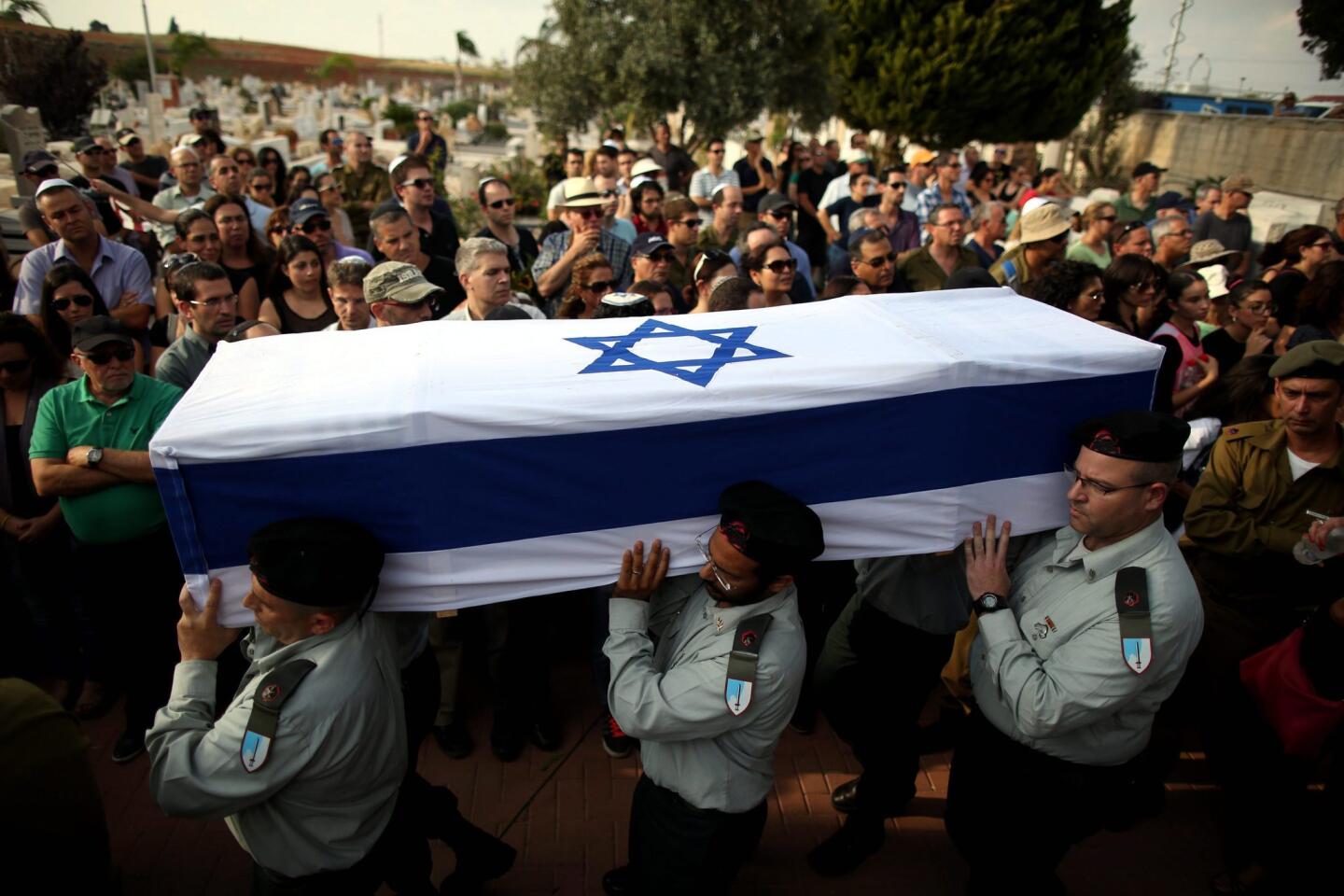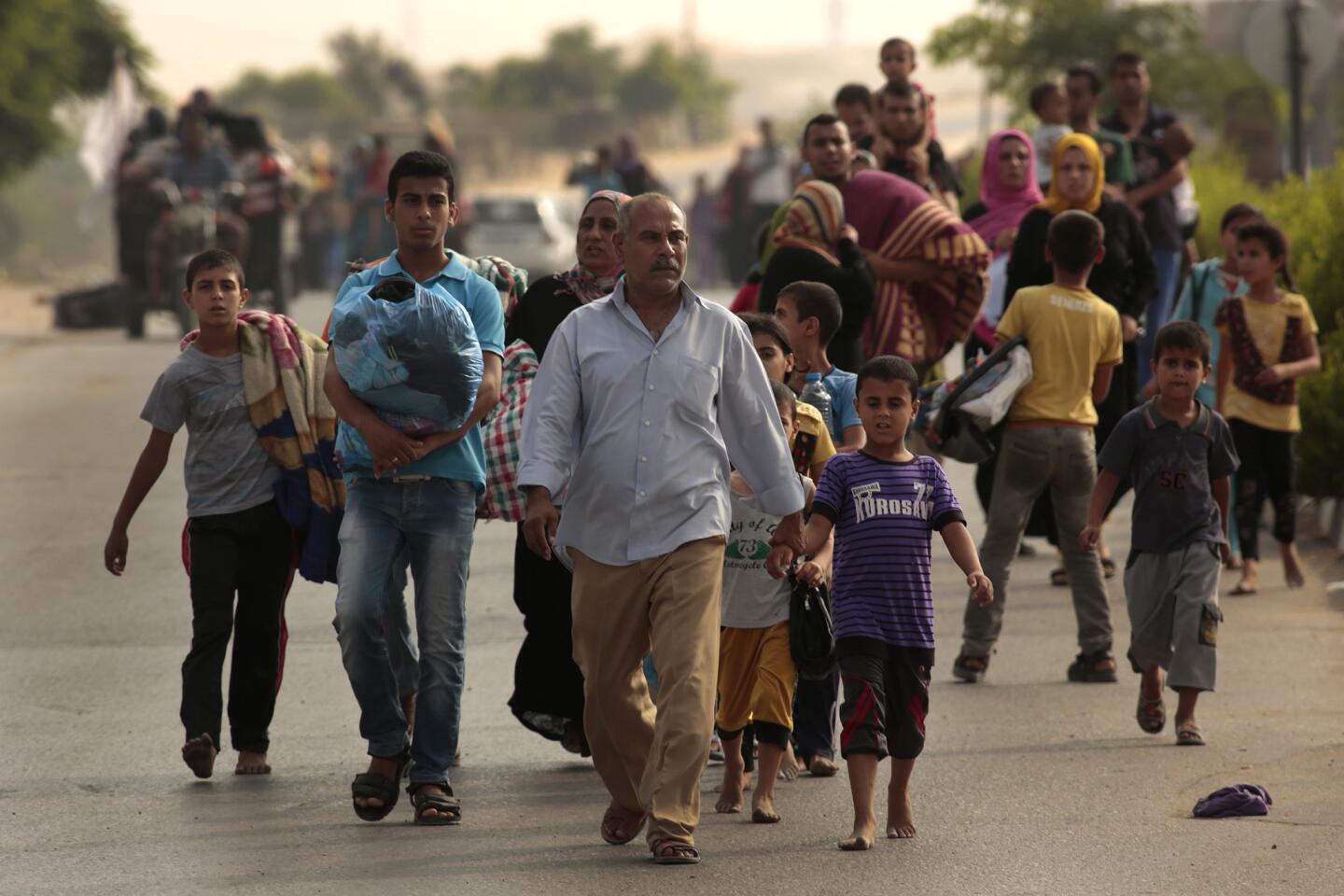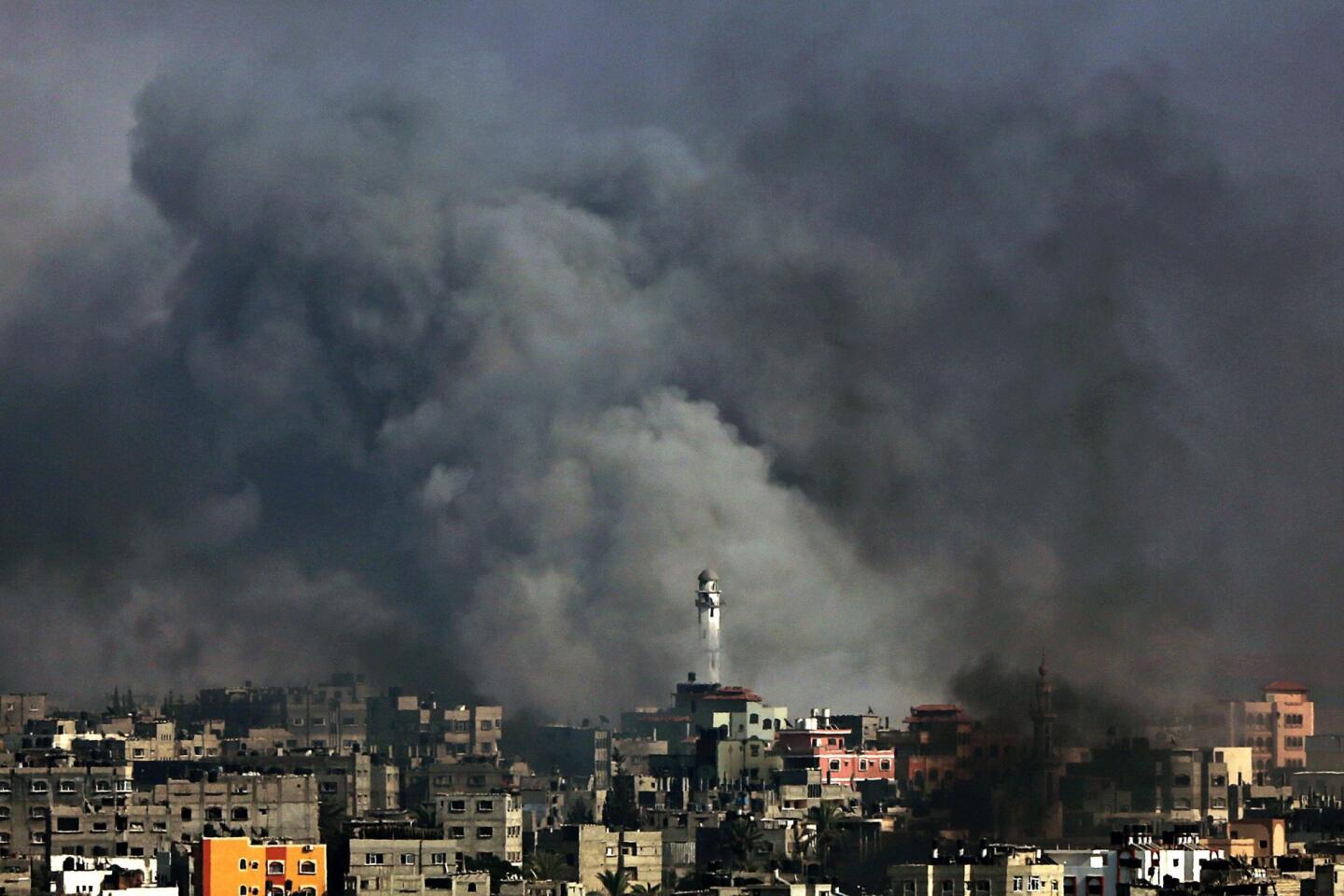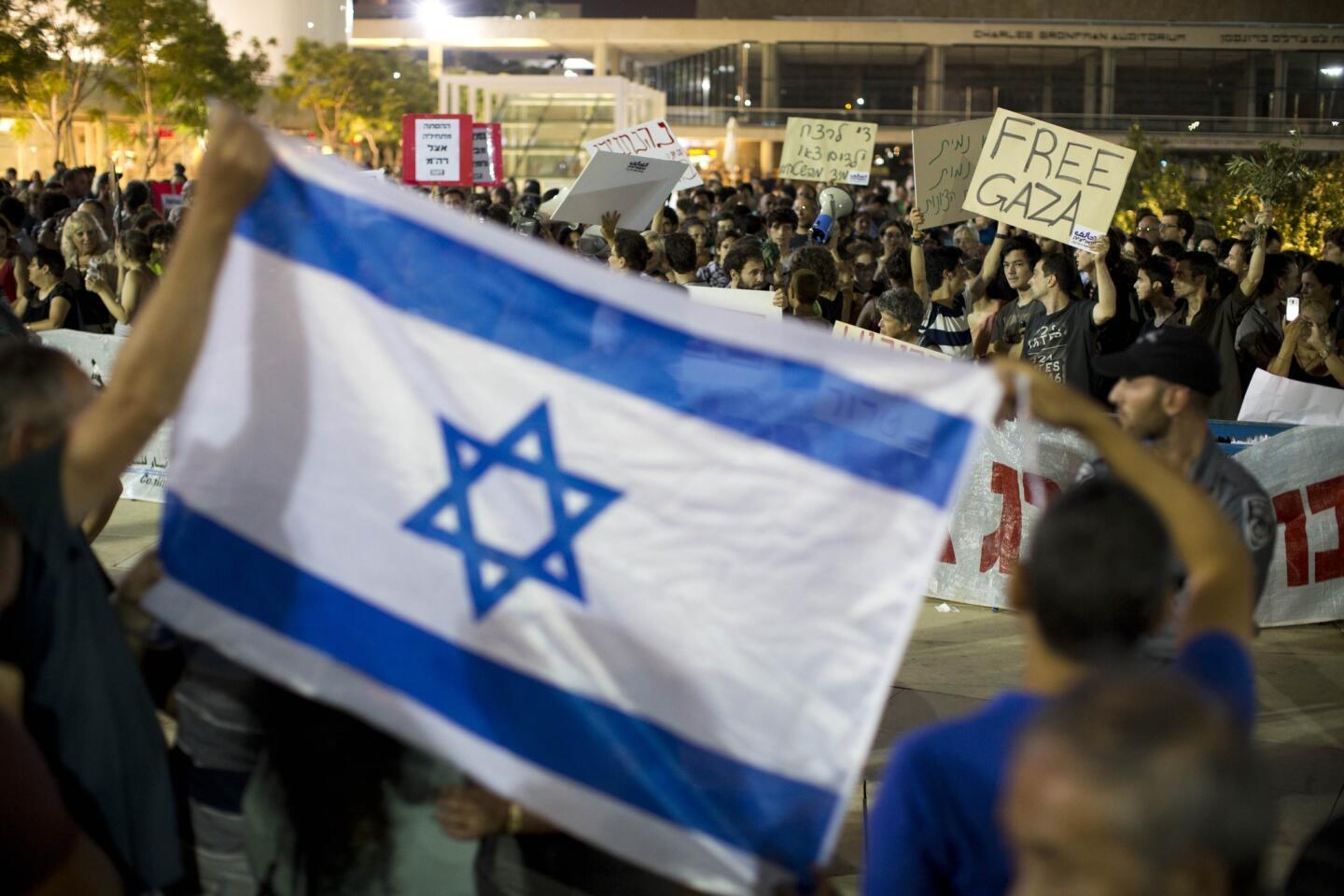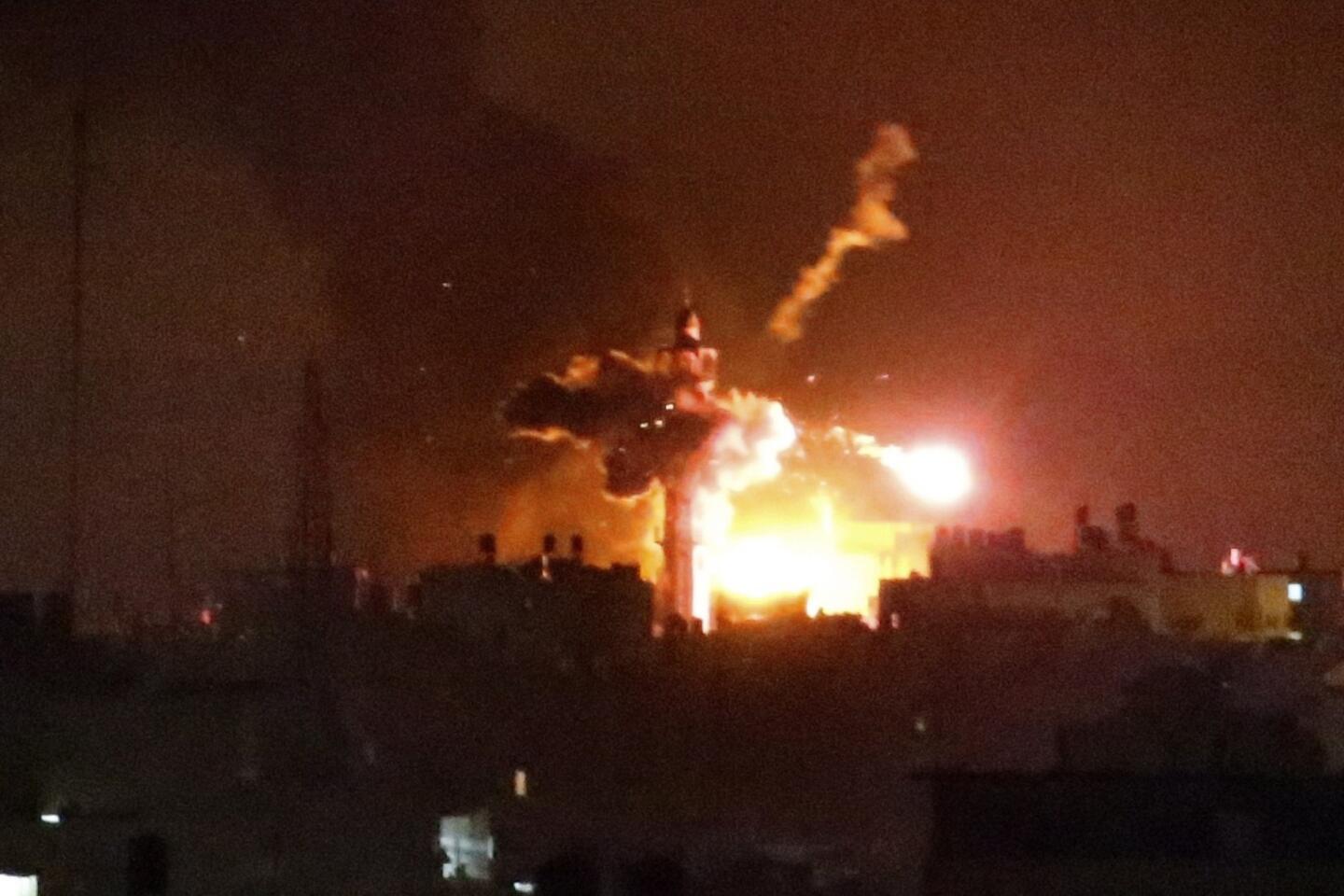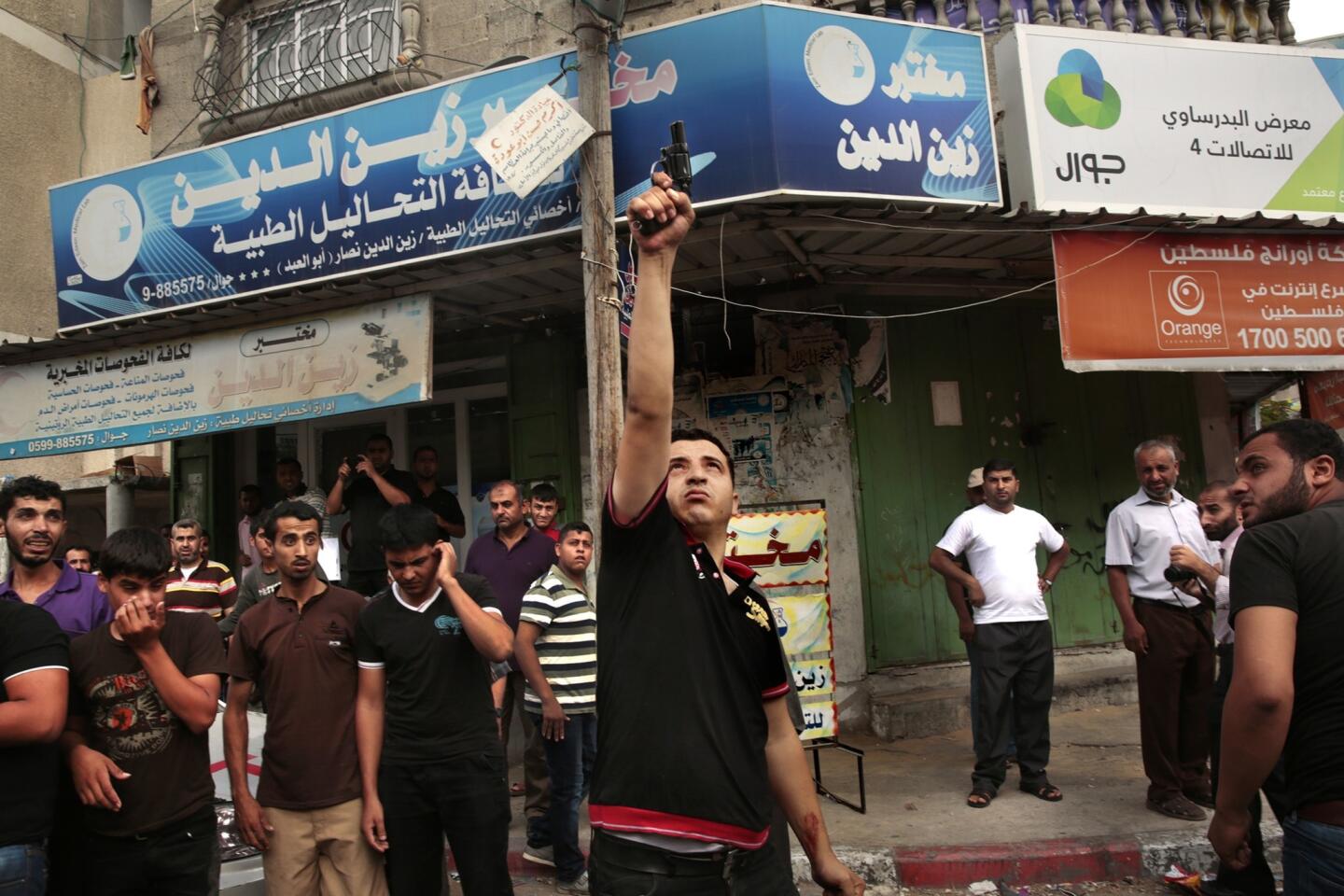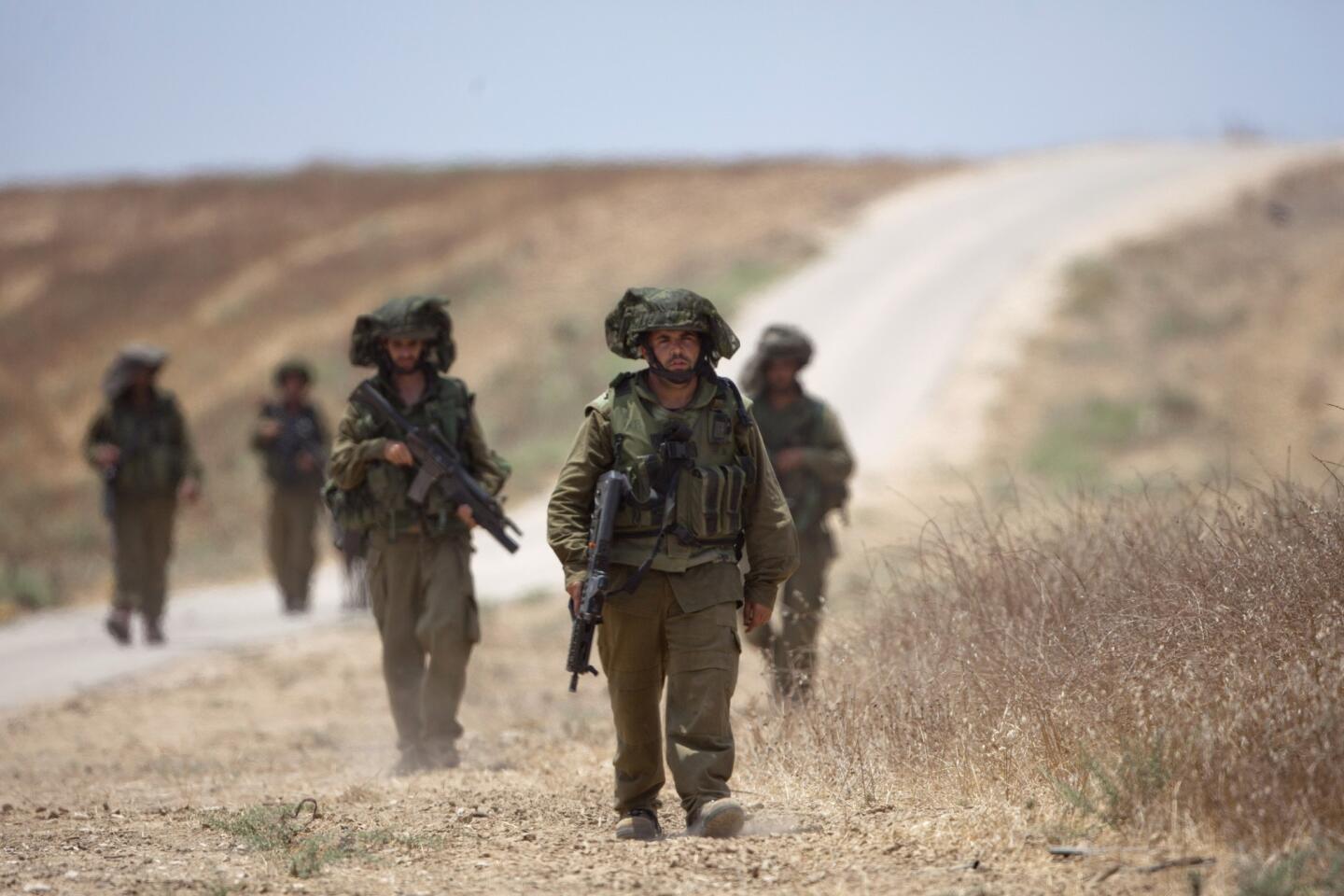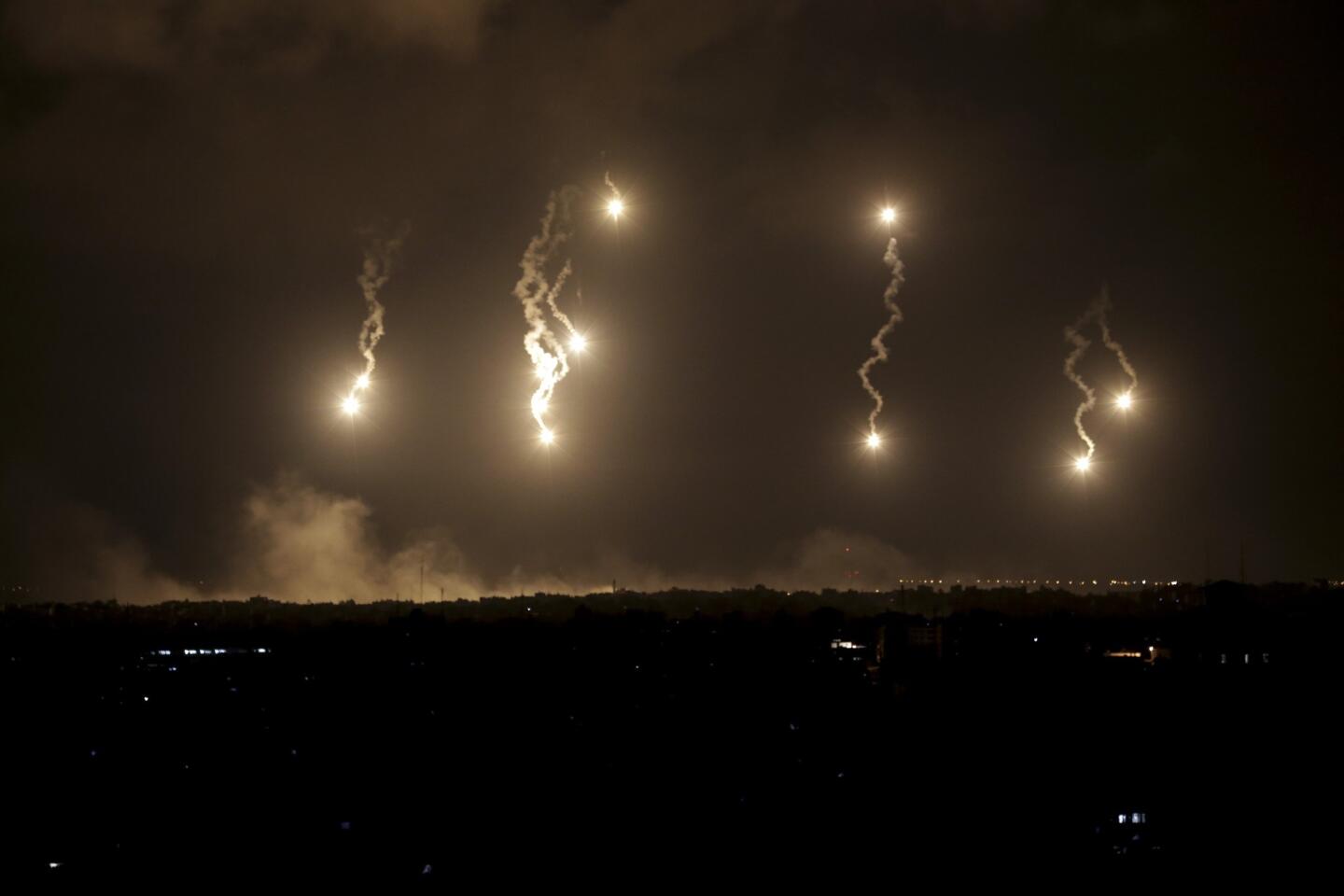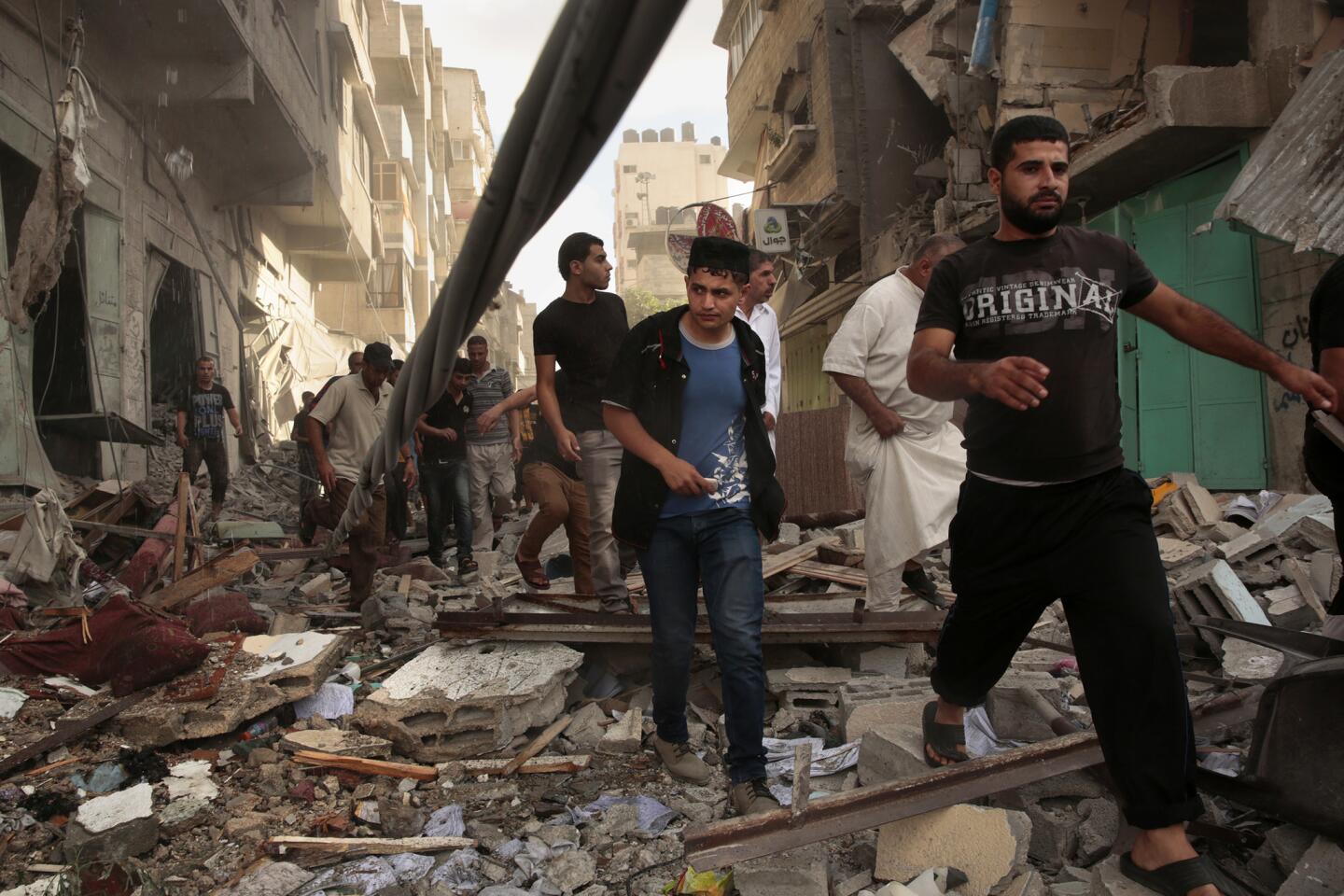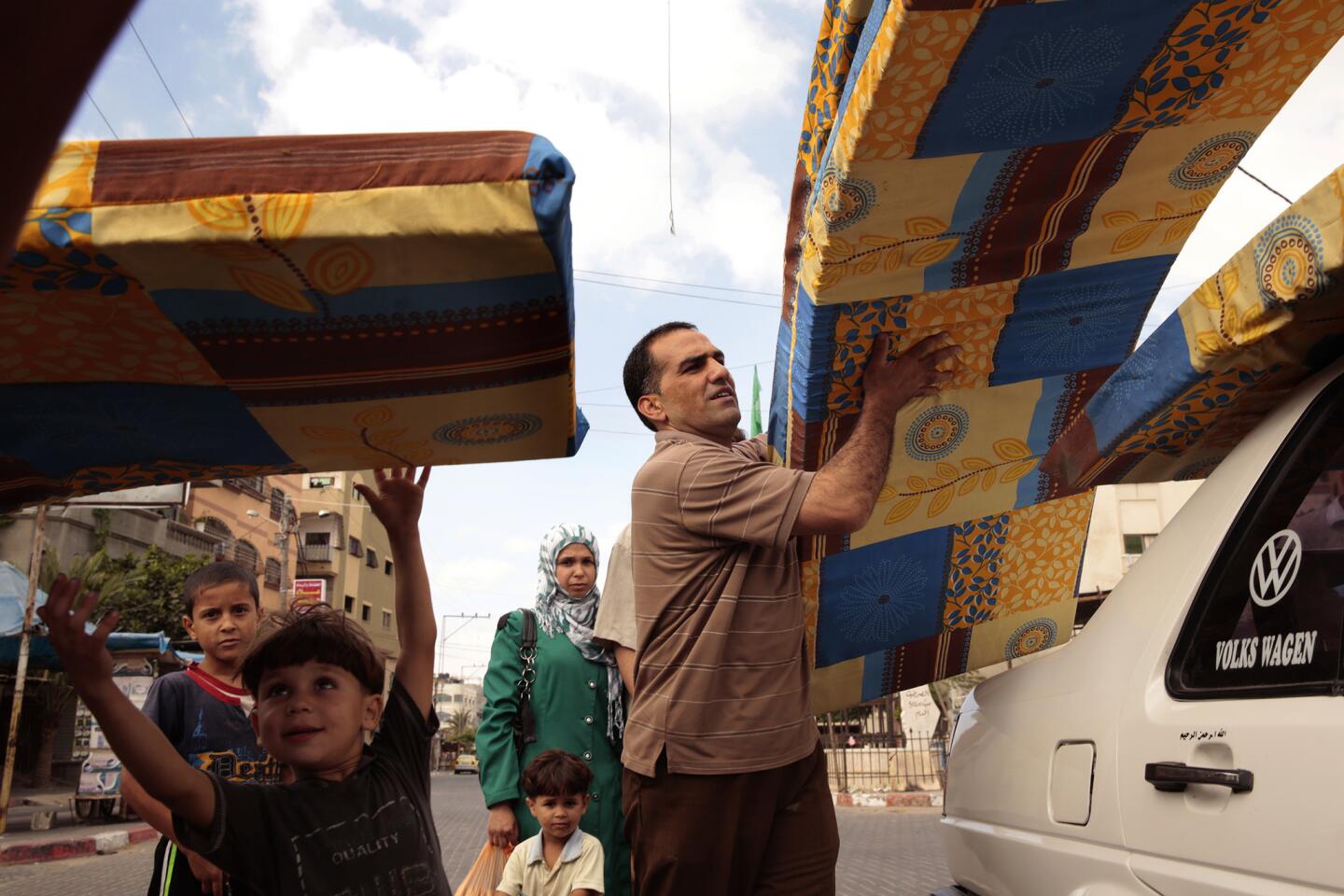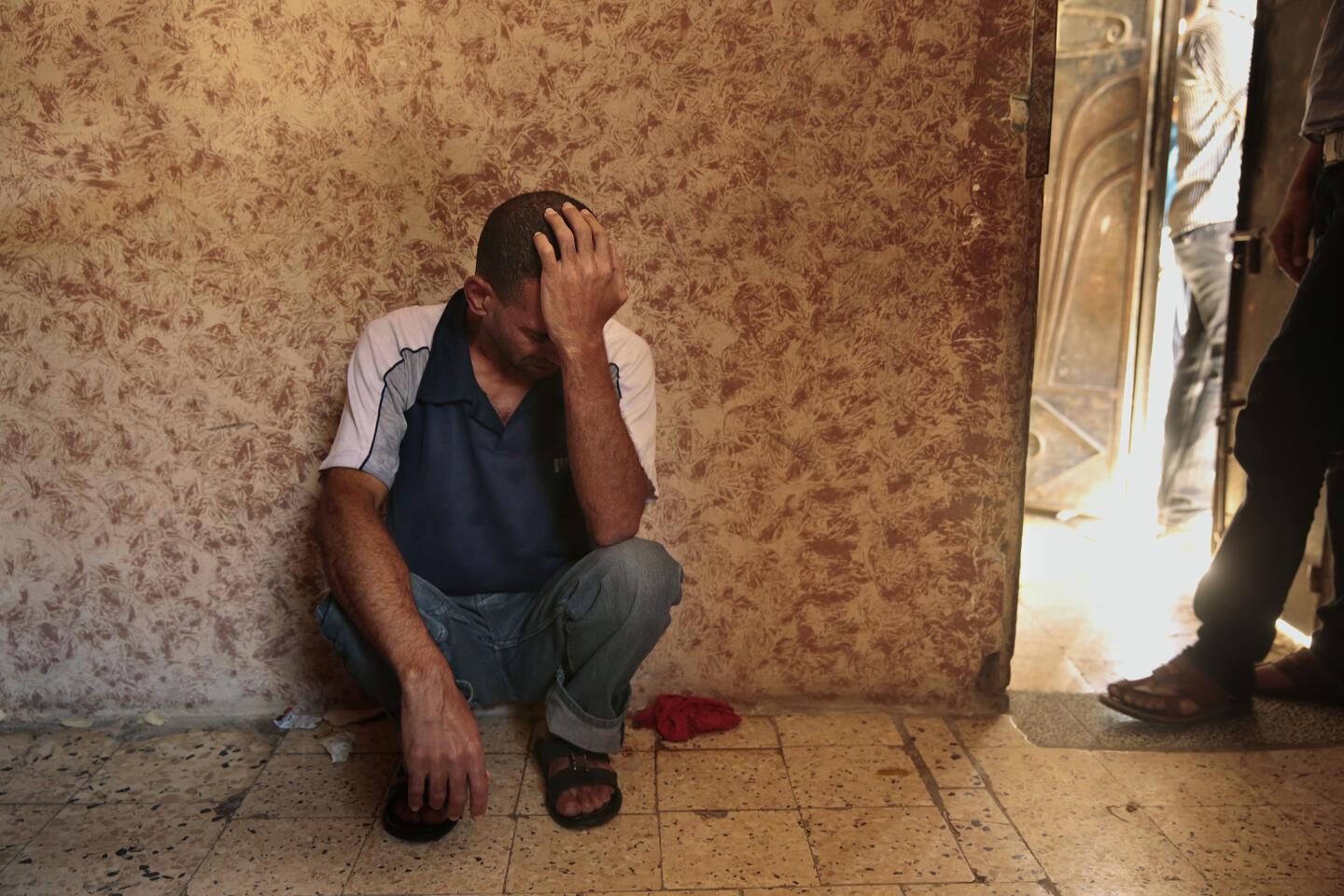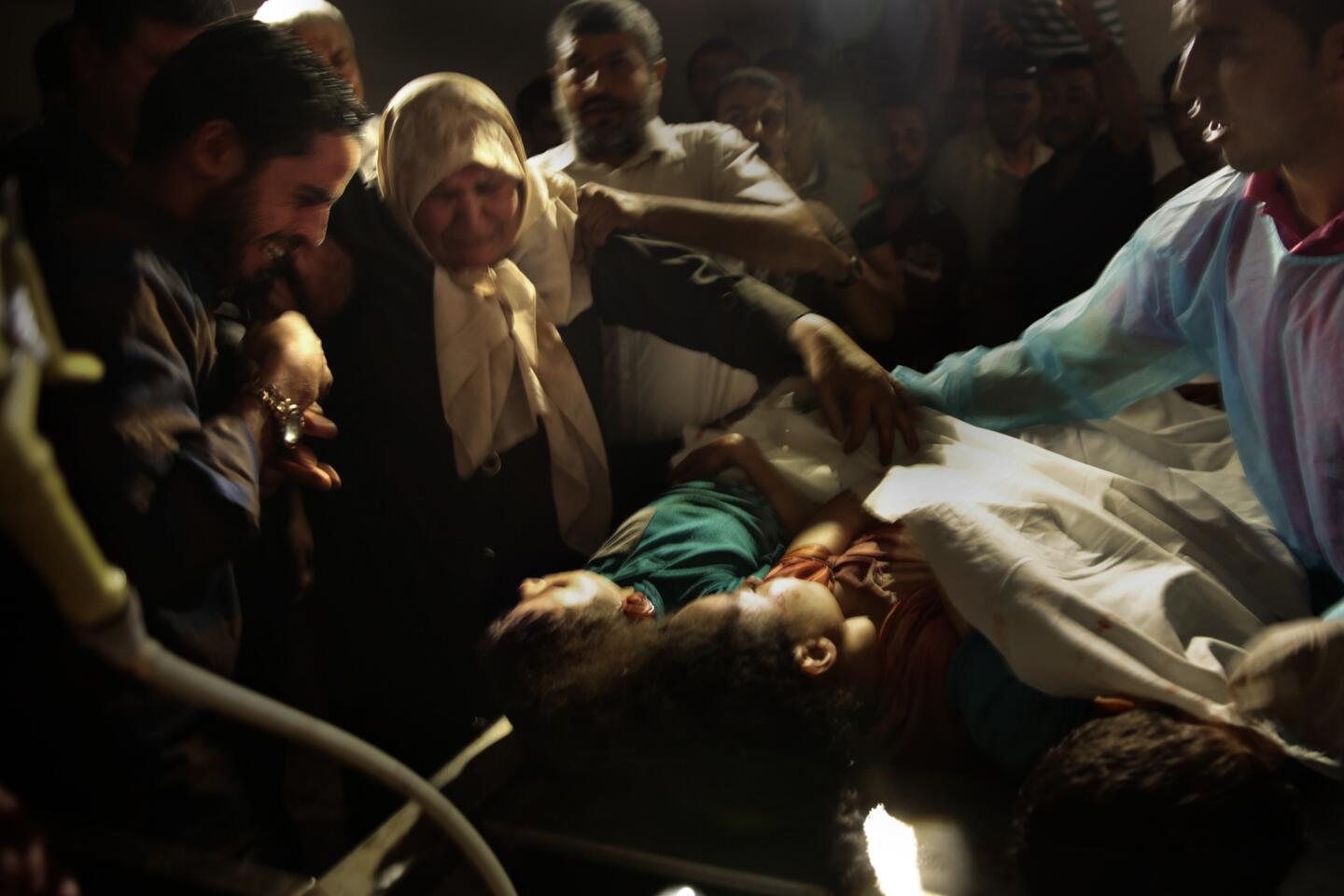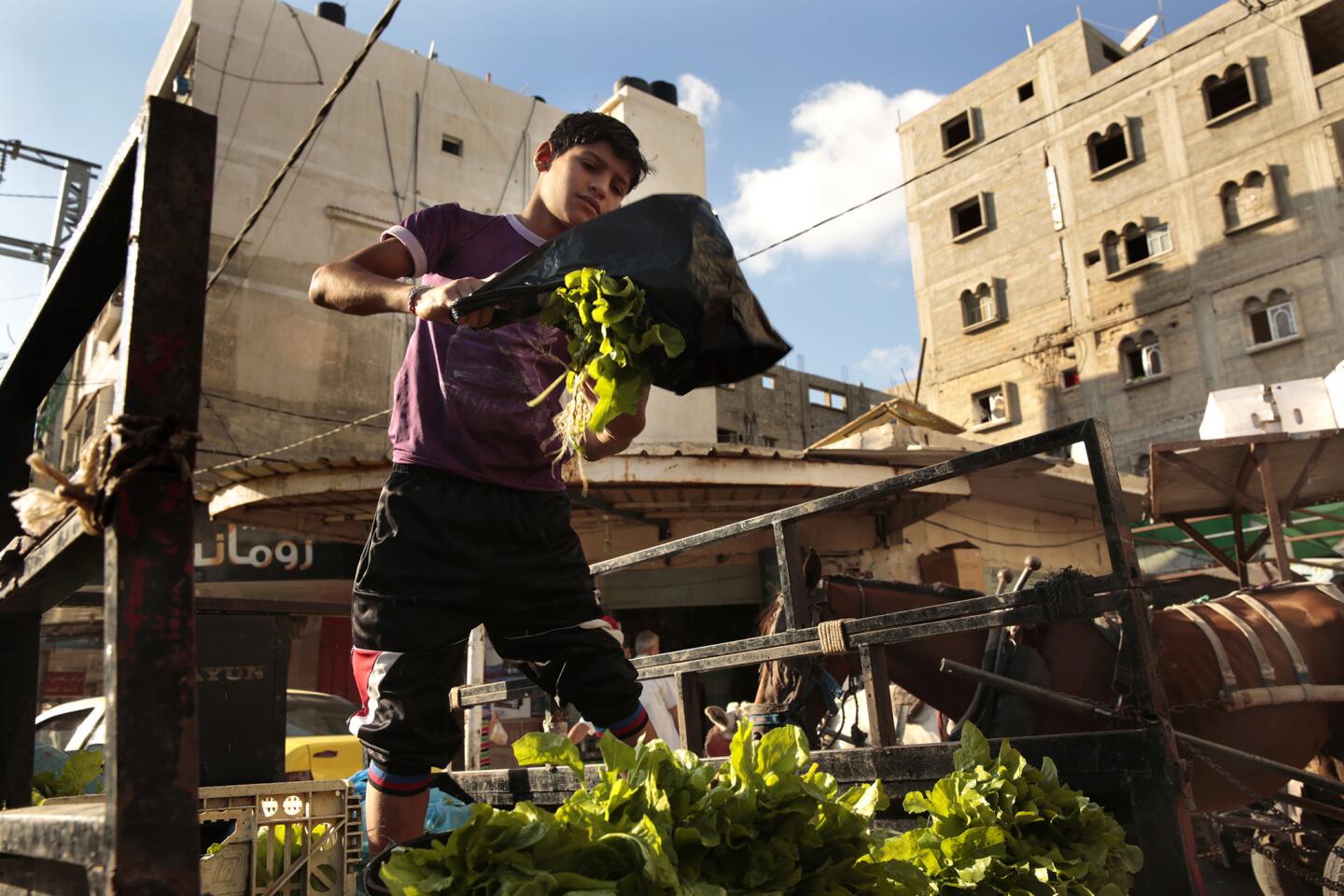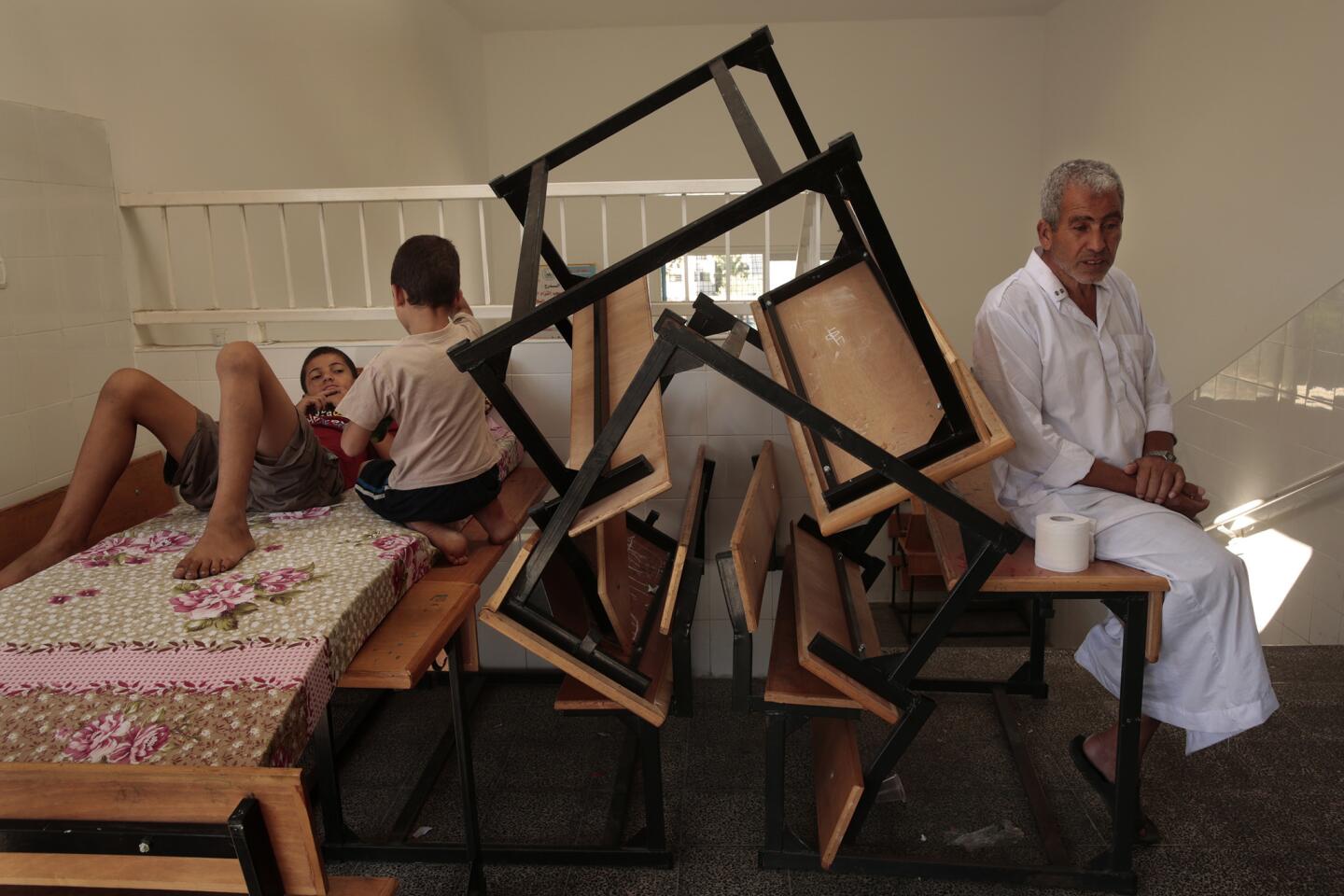Palestinians say they were waiting to evacuate when UN shelter was hit
- Share via
Reporting from Gaza City — It was supposed to be a place of refuge from a devastating war.
Hundreds of people were crammed into a United Nations-run elementary school in the northern Gaza Strip on Thursday when the converted shelter was hit by a series of explosions. At least 15 people were killed and more than 120 injured, according to local health officials.
Survivors said they had packed their belongings and were gathered in the schoolyard awaiting evacuation when the shells hit. But the circumstances remained murky late in the day.
The deaths added urgency to the efforts of U.S. Secretary of State John F. Kerry and others to negotiate a cease-fire in the nearly 3-week-old conflict, which has killed more than 800 people, the majority of them believed to be Palestinian civilians.
Gaza authorities accused Israel of targeting the school in Beit Hanoun with tank fire and said it was guilty of a war crime. Israel Defense Forces officials said the area was a battle zone and that they had asked international organizations to evacuate the school Tuesday between 10 a.m. and 2 p.m.
“From initial inquiries done about the incident … militants opened fire at IDF soldiers from the school area,” the Israeli military said in a statement. “In order to eliminate the threat posed to their lives, they responded with fire toward the origins of the shooting. The IDF is still reviewing the incident.”
The U.N. agency for Palestinian refugees said it had asked the Israeli liaison office repeatedly for a window of time in which to evacuate the staff and displaced people who wanted to leave the school.
“We got no answer,” said Adnan abu Hasna, a spokesman for the U.N. Relief and Works Agency, or UNRWA.
Survivors said they were waiting to leave when the shells hit.
“They never gave us the chance to leave,” wailed Subhiya Shembar, who was brought to a nearby hospital with shrapnel wounds to her leg. “The second we were gathered in the schoolyard the shelling started.”
Shembar’s 18-year-old son, Abed Rabo, was killed; two other sons and a daughter were injured.
“The yard was full of blood and body parts,” said Shembar’s daughter, Tahreer Kafarna.
“We left our houses because they were not safe. Now they bomb hospitals and UNRWA schools,” she said. “Where can we go and be sure we won’t be targeted?”
There was pandemonium at Kamal Adwan hospital. Ambulances arrived with sirens wailing. Frantic relatives searched for loved ones, and patients screamed with pain and fear.
At Gaza City’s Shifa hospital, a family kept vigil over the bed of 7-month-old Nada Handan. Shrapnel from the blasts had ripped into the girl’s back. Her mother was in surgery after a leg was severed.
“These kids didn’t fire any rockets,” said Nada’s furious uncle Mohammed Handan. “But after what they did, this little girl is going to grow up and make sure that rockets are fired at Israel.”
Mohammed Kafarna, head of the Beit Hanoun municipality, said local officials had sent a delegation to the school that morning after they were asked to help convince people that it was no longer safe to remain there, a statement denied by the U.N.’s Abu Hasna.
“I hold UNRWA fully responsible for what happened at the school,” Kafarna said. “These bombs were fired directly at the school, and no one was there to protect them.”
U.N. Secretary-General Ban Ki-moon, who was in the region this week to press for a cease-fire, said he was appalled by the strike, which he said also killed United Nations staff. “Today’s attack underscores the imperative for the killing to stop — and to stop now,” Ban said in a statement.
It was the fourth time this week that a shelter has been hit in Gaza. More than 141,000 people are living in 83 U.N.-run schools. Israel has been given the GPS coordinates of the schools, U.N. officials said.
The U.N. Human Rights Council voted Wednesday to investigate allegations that Israel was committing war crimes in Gaza. Navi Pillay, the U.N.’s high commissioner for human rights, also condemned “indiscriminate attacks” by Hamas against Israel.
Late Thursday, an Israeli shell exploded outside Durra hospital in central Gaza, killing a 2 1/2 -year old who was in the intensive care unit and injuring about 30 others, the Maan News Agency reported.
Israel says it does its utmost to prevent civilian casualties and does not target schools or hospitals. It blames Hamas for operating among civilians and accuses them of using Gaza residents as “human shields.”
Israel launched the campaign in Gaza on July 8 to crack down on rocket fire from the Palestinian territory and dismantle what it describes as an extensive tunnel system used by militants to smuggle weapons and fighters into Israel.
At least 788 Palestinians have been killed, according to local health officials. Israel has lost 32 soldiers. Two Israeli civilians and a Thai worker in Israel were killed by rocket and mortar fire.
With fighting raging across the Mediterranean coastal enclave and rockets streaking across its border into Israel, a cease-fire remained elusive Thursday.
Kerry, back in Cairo after a day of shuttle diplomacy in Israel and the West Bank, conferred Thursday with Egyptian officials, according to media reports there. He also conducted a round of telephone talks, speaking with counterparts in Turkey and Qatar, as well as with Israeli Prime Minister Benjamin Netanyahu, said Israel’s Haaretz newspaper. Kerry and Netanyahu met face to face a day earlier in Tel Aviv.
Haaretz reported late Thursday that Kerry had presented Netanyahu with a plan for a one-week cessation of hostilities, during which Israel would be allowed to continue destroying infiltration tunnels dug by Palestinian militants. Both Israel and Hamas were being asked for a response Friday, with Israel to respond to Kerry and Turkey and Qatar to put the question to exiled Hamas leader Khaled Meshaal, who has been given haven in Qatar.
On Thursday, Netanyahu seized another opportunity to forcefully advocate Israel’s right to defend its citizens. He appeared alongside visiting British Foreign Secretary Philip Hammond, who expressed hopes for a speedy truce and said his government was “gravely concerned” by the civilian casualties in Gaza.
Netanyahu, without mentioning the international efforts for a cease-fire, said Israel was doing its best to minimize civilian casualties but said that “we cannot give our attackers immunity or impunity.”
Special correspondent Batsheva Sobelman in Jerusalem and Times staff writer Laura King in Cairo contributed to this report.Follow @AlexZavis on Twitter for the latest from Gaza City.
More to Read
Sign up for Essential California
The most important California stories and recommendations in your inbox every morning.
You may occasionally receive promotional content from the Los Angeles Times.
